All about Thématique
747 element(s) found
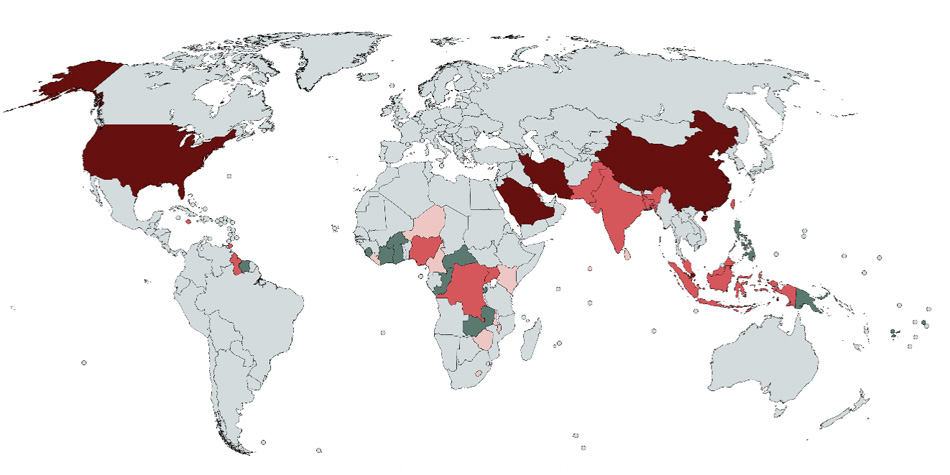
Article(s)
Strengthening the Abolitionist Movement: Launch of the Global Consortium for Death Penalty Abolition
By World coalition against the death penalty, on 12 July 2024
Despite a growing number of countries worldwide joining the abolitionist movement every year, bringing the prospect of universal abolition closer to reality, the death penalty remains a significant human rights concern.
2024
Trend Towards Abolition
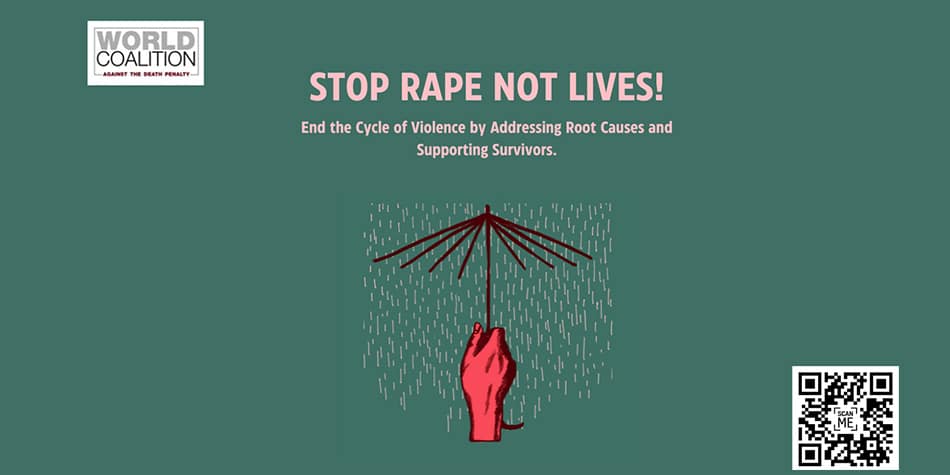
Article(s)
Why is the Death Penalty not the answer to Rape?
By Morine Chauvris, on 8 July 2024
Every October 10th, the World Coalition against the death penalty and its members celebrates the World Day against the Death penalty. In 2024 and 2025, the abolitionist movement will focus on challenging the widespread misconception that the death penalty enhances safety for individuals and communities.
2024
Women
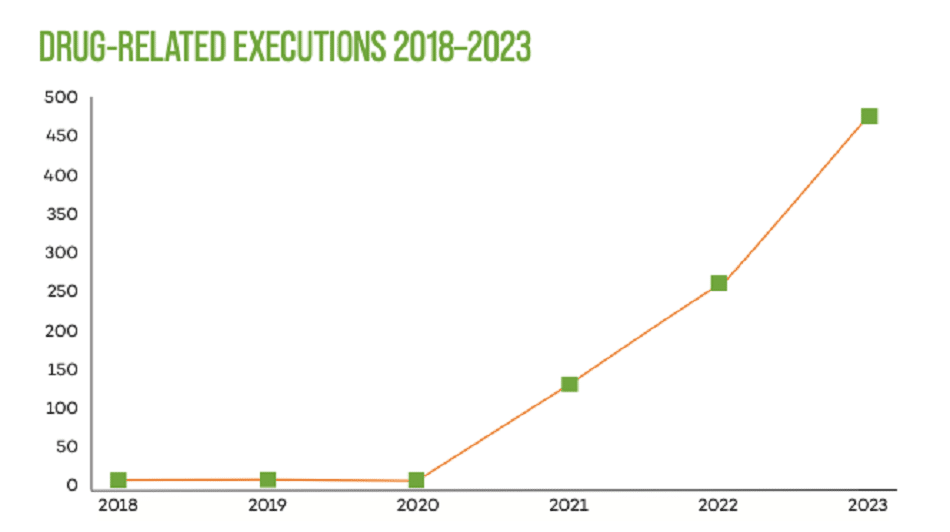
Article(s)
“Frightening” increase of executions in Iran
By World coalition against the death penalty, on 20 June 2024
Iran Human Rights (IHRNGO) reports that at least 243 people, including 10 women, have been executed in 2024, as of 15 June. In 2023, the number of people executed has increased from 582 to 834. At least 471 people were executed for drug-related offenses. This represent a 84% increase compared to 2022 (256).
2024
Drug Offenses
Iran (Islamic Republic of)
Document(s)
REPORT WORLD DAY AGAINST THE DEATH PENALTY 2023
By world coalition against the death penalty, on 7 June 2024
2024
NGO report
Death Row Conditions
Fair Trial
frMore details Download [ pdf - 1029 Ko ]
- Document type NGO report
- Themes list Death Row Conditions / Fair Trial
- Available languages RAPPORT JOURNÉE MONDIALE CONTRE LA PEINE DE MORT 2023
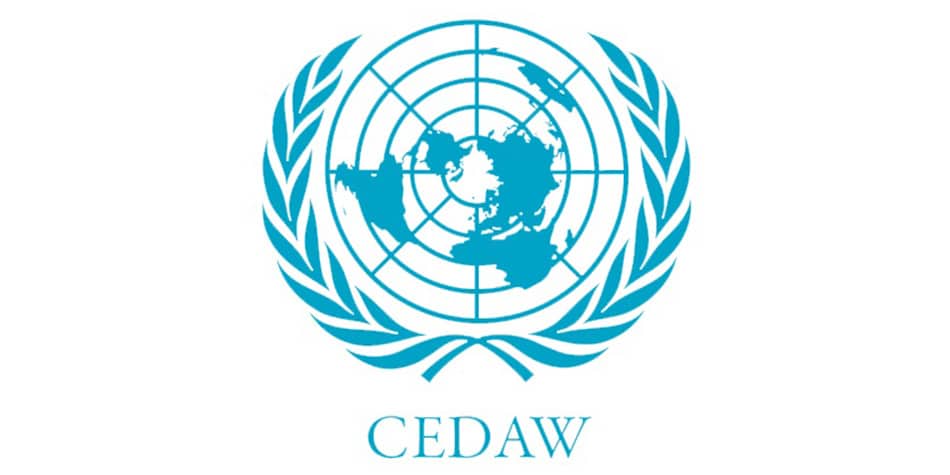
Article(s)
Abolitionist advocacy at the 88th CEDAW Session
on 7 June 2024
The 88th session of the Committee on the Elimination of Discrimination Against Women (CEDAW) was held in Geneva, Switzerland, from May 13 to 31, 2024.
Brazil
Estonia
Gender
Kuwait
Malaysia
Montenegro
Republic of Korea
Rwanda
Singapore
Document(s)
Indonesian – Laporan Global Amnesty International : hukuman mati dan eksekusi 2023
on 29 May 2024
2024
NGO report
Trend Towards Abolition
More details Download [ pdf - 897 Ko ]
Pemantauan yang dilakukan oleh Amnesty Internasional terhadap hukuman mati secara global
mencatat terdapat 1.153 eksekusi hukuman mati pada tahun 2023. Angka tersebut menunjukkan
adanya peningkatan sebanyak 31% dari 883 eksekusi pada tahun 2022. Namun, ada penurunan
yang signifikan pada angka negara yang menerapkan hukuman mati. Dari 20 negara pada 2022
menjadi hanya 16 negara di 2023
- Document type NGO report
- Themes list Trend Towards Abolition
Document(s)
Swahili – Ripoti ya kimataifa ya amnesty international: hukumu za kifo na watu walioadhibiwa kifo 2023
on 29 May 2024
NGO report
Trend Towards Abolition
More details Download [ pdf - 1806 Ko ]
Ufuatiliaji wa Amnesty International wa matumizi ya adhabu ya kifo duniani ulibaini watu
1,153 wanaofahamika kuwa walinyongwa mwaka 2023, ambalo ni ongezeko la asilimia
31 kutoka 883 mwaka 2022. Hata hivyo nchi zinazowanyonga watu zilipungua kwa
kiwango kikubwa kutoka 20 mwaka 2022 hadi 16 mwaka 2023
- Document type NGO report
- Themes list Trend Towards Abolition
Document(s)
Amnesty International – Global Report : death sentences and executions 2023
on 29 May 2024
NGO report
Trend Towards Abolition
aresfrMore details See the document
Amnesty International’s monitoring of the global use of the death penalty recorded 1,153 known executions in 2023, an increase by 31% from 883 in 2022. However, there was a significant decrease in executing countries, from 20 in 2022 to 16 in 2023.
- Document type NGO report
- Themes list Trend Towards Abolition
- Available languages التقرير العالمي لمنظمة العفو الدولية أحكام وعمليات اإلعدام في 2023Informe Global de Amnistia internacional: condenas a muerte y ejecuciones 2023Amnesty international - Rapport mondial : condamnations à mort et exécutions 2023
Document(s)
Broken Promises: How a History of Racial Violence and Bias Shaped Ohio’s Death Penalty
By Death Penalty Information Center , on 14 May 2024
2024
NGO report
Fair Trial
Innocence
Trend Towards Abolition
United States
More details See the document
In January 2024, Ohio lawmakers announced plans to expand the use of the death penalty to permit executions with nitrogen gas, as Alabama had just done a week earlier. But at the same time the Attorney General and the Ohio Prosecuting Attorneys Association are championing this legislation, a bipartisan group of state legislators has introduced a bill to abolish the death penalty based on “significant concerns on who is sentenced to death and how that sentence is carried out.” The competing narratives make it more important than ever for Ohioans to have a meaningful, accurate understanding of how capital punishment is being used, including whether the state has progressed beyond the mistakes of its past.
- Document type NGO report
- Countries list United States
- Themes list Fair Trial / Innocence / Trend Towards Abolition
Document(s)
Death Row in the USA: Death Penalty Cases and Statistics by State
By Legal Defense Fund , on 13 May 2024
2024
Academic report
Death Row Conditions
United States
More details See the document
LDF issues a quarterly report entitled Death Row USA that contains death penalty information, death row populations by state, and other capital punishment statistics in the United States.
- Document type Academic report
- Countries list United States
- Themes list Death Row Conditions
Document(s)
Special issue: a decade-long review of the death penalty for drug offences
By Harm Reduction International, on 7 May 2024
2024
NGO report
Drug Offenses
More details See the document
This report builds on the pioneering work HRI has been doing since its first ‘The Death Penalty for Drug Offences: Global Overview (‘Global Overview’) in 2007. It analyses how the landscape of the death penalty for drug offences has shifted in the last decade, looking at the main trends regarding people on death row, death sentences and executions for drug offences, as well as key developments at national and international level in the period between 2014 and 2023.
- Document type NGO report
- Themes list Drug Offenses
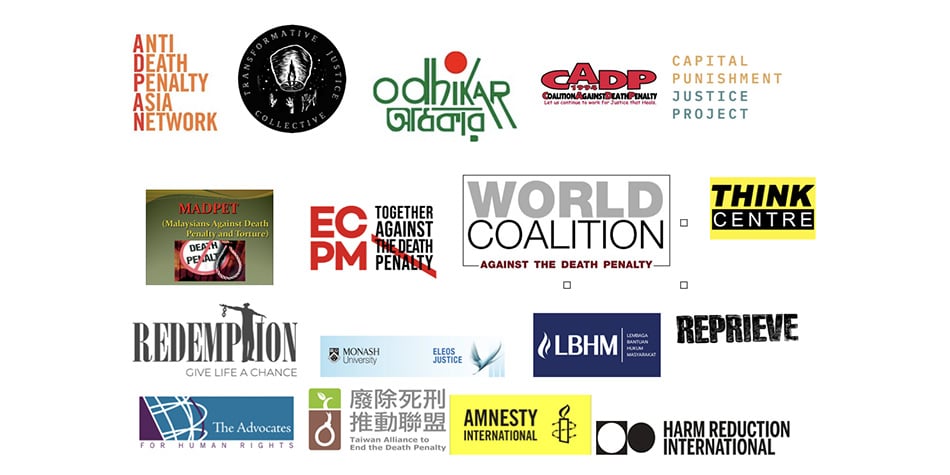
Article(s)
Calling on Singapore to respect international safeguards and halt executions
on 3 May 2024
We are greatly concerned by the news that the Government of Singapore has issued at least five execution notices since 12 April 2024, all cases in relation to drug offending. Transformative Justice Collective, a member of the Anti-Death Penalty Asia Network, reports that in four of these five cases, the execution was stayed at the […]
2024
Drug Offenses
Fair Trial
Legal Representation
Singapore
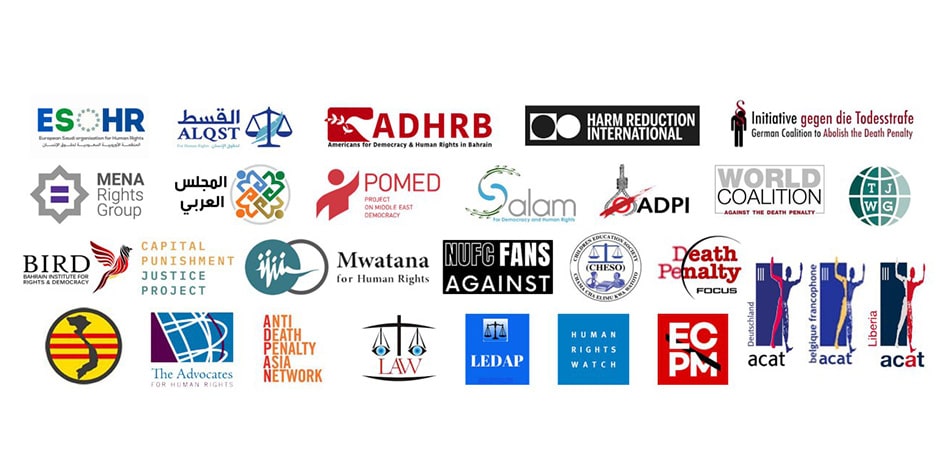
Article(s)
Escalating concerns over the lives of minors threatened with death in Saudi Arabia
on 3 May 2024
The undersigned organizations express their grave concern for the lives of minor defendants particularly the two young men, Yousif Al-Manasif and Ali Al-Mubaiouq, who are at imminent risk of execution in Saudi Arabia following confirmed information that the Specialized Criminal Court of Appeal (SCCA) has upheld their death sentences.
Juveniles
Saudi Arabia
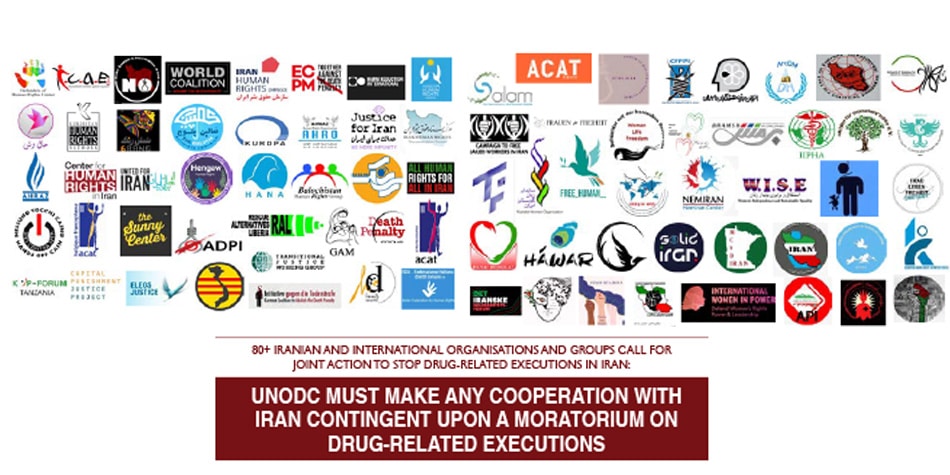
Article(s)
Call for joint action to stop drug-related executions in Iran
on 3 May 2024
April 10, 2024 Iran Human Rights (IHRNGO) and 83 Iranian and international organisations and groups have called for joint action to stop drug-related executions, urging UNODC to make “any cooperation with the Islamic Republic contingent on a complete halt on drug-related executions”. They have announced the start of a mass international campaign in this regard.
Drug Offenses
Iran (Islamic Republic of)
Document(s)
Lethal injection in the modern era: cruel, unusual and racist
By Reprieve , on 24 April 2024
2024
NGO report
Cruel, Inhuman and Degrading Treatment and Punishment
United States
More details See the document
Published on April 2024.
Researchers at Reprieve conducted an in-depth comparative study of botched lethal injection executions in the modern era of the U.S. death penalty, cross-referenced against the 1,407 lethal injection executions carried out or attempted during that period.
This report examines the phenomenon of botched executions by lethal injection, exploring the trends and contributing factors leading to botched executions through an analysis of 73 botched executions in the 1,407 lethal injection executions since 1977 (known as the modern era of the death penalty in the U.S.). This analysis used a process called multi-variable logistic regression, a type of analysis that assesses the odds of something happening considering multiple variables, to assess how identifiable characteristics (gender, age, and race) were associated with botched executions.
- Document type NGO report
- Countries list United States
- Themes list Cruel, Inhuman and Degrading Treatment and Punishment
Document(s)
Gender Matters: Women on Death Row in the United States
By Sandra Babcock, Nathalie Greenfield, Kathryn Adamson, Cardozo Law Review , on 24 April 2024
Academic report
Gender
United States
Women
More details See the document
This article presents a comprehensive study of 48 persons sentenced to death between 1990 and 2023 who presented as women at the time of their trials. This research is the first of its kind to conduct a holistic and intersectional analysis of the factors driving women’s death sentences. It reveals commonalities across women’s cases, delving into their experiences of motherhood, gender-based violence and prior involvement with the criminal legal system. This report also explore the nature of the women’s crimes of conviction, including the role of male co-defendants and the State’s use of aggravating factors. Finally, it reveals for the first time the extent to which capital prosecutions are dominated by men—including judges, elected District Attorneys, defense attorneys, and juror forepersons—and explain why gender matters in determining who lives and who dies
- Document type Academic report
- Countries list United States
- Themes list Gender / Women
Document(s)
The Death Penalty For Drug Offences: Global Overview 2023
By Harm Reduction International, on 28 March 2024
2024
NGO report
Drug Offenses
More details See the document
Published in 2023.
At the end of 2023, 34 countries retained the death for drug offences. In July 2023 Pakistan took the landmark decision to remove the death penalty from the list of punishments that can be imposed for certain violations of its Control of Narcotics Substances Act. This year also saw notable progress in Malaysia, which abolished the mandatory death penalty for all offences, including drug-related ones. This reform may impact the lives of over 700 people on death row for drug offences and bring the country one step closer to total abolition of capital punishment. In stark contrast to these positive developments is the record-high number of drug-related executions in 2023 at least 467. Of those executed, at least 59 people belonged to ethnic minority groups (in Iran and in Singapore), 13 individuals were foreign nationals, and six were women. These figures confirm that these groups are uniquely vulnerable to capital punishment as a tool of drug control. Despite not accounting for the dozens, if not hundreds, of executions believed to have taken place in China, Vietnam, and North Korea, the 467 executions that took place in 2023 represent a 44% increase from 2022.
- Document type NGO report
- Themes list Drug Offenses
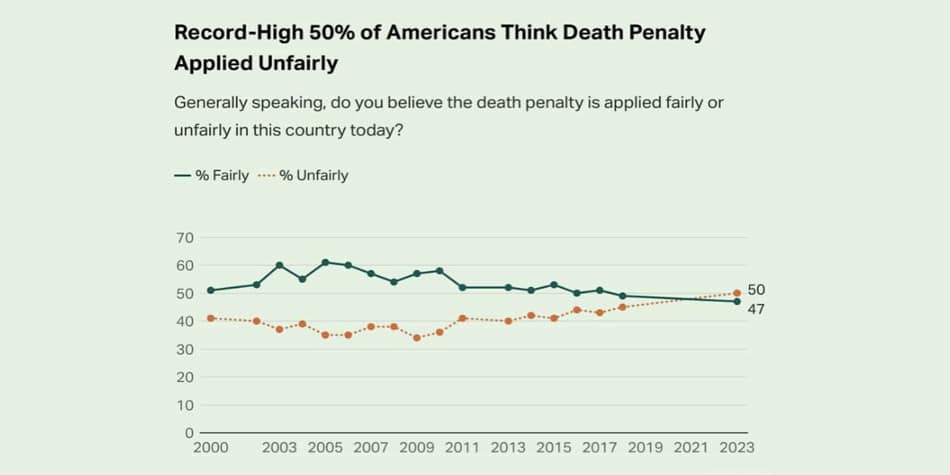
Article(s)
The unprecedent shift in attitudes towards abolition in the US
By World coalition against the death penaly, on 22 March 2024
The Death Penalty Information Center’s 2023 report highlights a rising trend towards abolition in the US, evidenced by a decrease in states conducting executions and heightened backing for individuals asserting innocence. In 2023, the United States witnessed 24 executions, 21 death sentences, and three exonerations, reflecting this evolving trend.
2024
Trend Towards Abolition
United States
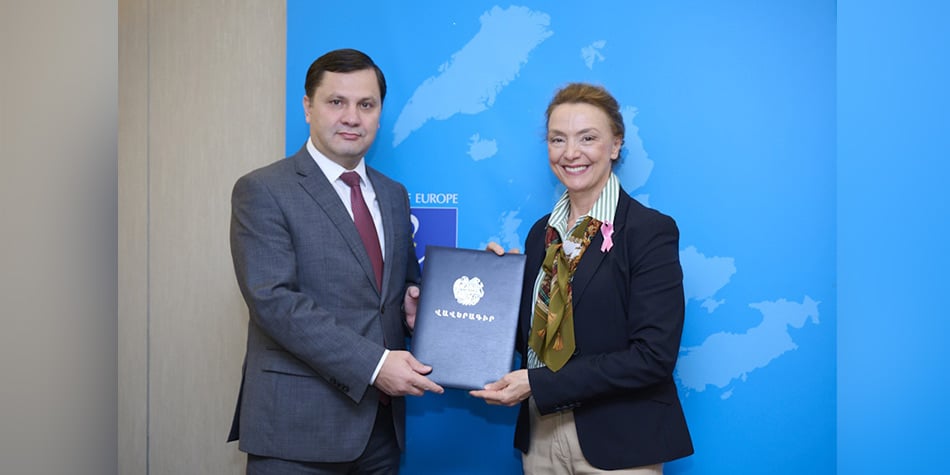
Article(s)
Entry into force of Armenia’s ratification of the European Protocol for abolition in all circumstances
By Aurélie Plaçais, on 22 March 2024
In February 2024, Armenia’s ratification of Protocol No. 13 to the Convention for the Protection of Human Rights and Fundamental Freedoms concerning the abolition of the death penalty in all circumstances entered into force. Armenia was already abolitionist for all crimes and a State Party to the Second Optional Protocol to the ICCPR, aiming at […]
Armenia
Trend Towards Abolition
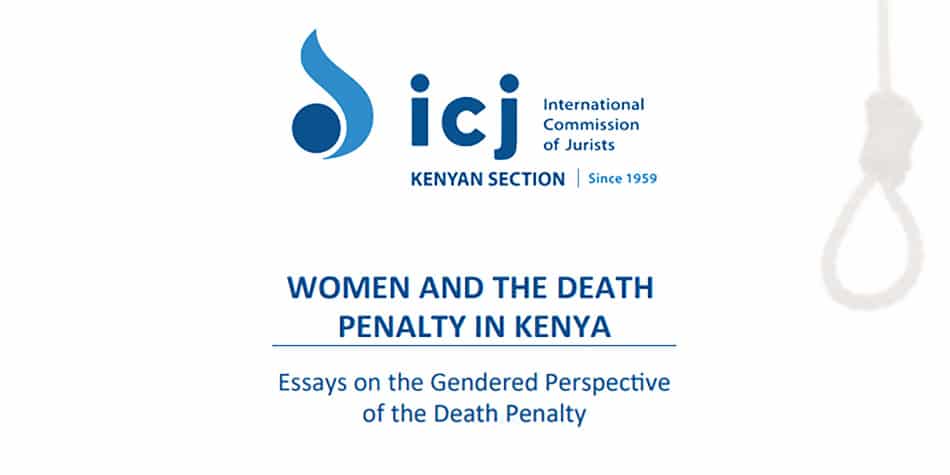
Article(s)
ICJ Kenya Makes Gender Discrimination in Capital Punishment Visible
By World coalition against the death penalty, on 8 March 2024
Kenya is one of a few target countries for the World Coalition Against the Death Penalty’s “Gender and the Death Penalty” campaign; a campaign that is being conducted in collaboration with its member organisations in the country, namely the Kenyan Section of the International Commission of Jurists (ICJ Kenya) and the Kenya Human Rights Commission.
2024
Gender
Gender
Kenya
Kenya
Document(s)
Does care have to be at the periphery if crime is at the centre? A conversation that unspools the various threads tying feminism with crime.
By The Third Eye, on 15 February 2024
2024
Article
Gender
Women
More details See the document
Published on January 30, 2024.
The Third Eye invited Maitreyi Misra of Project 39A to help us think through our central idea: why do we need a feminist way of looking at crime, and how does that help the larger goal of social justice?
Project 39A is inspired by Article 39-A of the Indian Constitution, a provision that furthers the intertwined values of equal justice and equal opportunity by removing economic and social barriers. Using empirical research to re-examine practices and policies in the criminal justice system, Project 39A aims to trigger new conversations on legal aid, torture, forensics, mental health in prisons, and the death penalty.
- Document type Article
- Themes list Gender / Women
Document(s)
Proven With(out) Certainty: How Judges Sentence Defendants to Death for Drug Offences in Iran
By Abdorrahman Boroumand Foundation for the Promotion of Human Rights and Democracy in Iran, Monash University and ELEOS Justice, on 6 February 2024
2024
NGO report
Drug Offenses
More details See the document
Published in April 2023.
Despite the reduction in the number of executions for drug offences during 2018-2020, a sudden increase in executions was recorded during 2021-2023: at least 131 known executions were recorded for drug offences in 2021, 253 executions in 2022, and 82 executions during the first 3 months of 2023 (Table). However, information concerning the death penalty in Iran is notoriously difficult to obtain because of the secrecy surrounding the country’s criminal justice process. This note provides a rare glimpse into the application of capital drug laws in the Islamic Republic of Iran. It exposes the idiosyncratic practices of the judiciary and its decision-making, using cases concerning the death penalty for drug offences—its imposition prohibited long under international standards. These judgments repeatedly use the language of ‘certainty’ in convicting the accused. In reality, to those familiar with basic fair trial standards, they raise serious concerns about miscarriages of justice that could potentially result in the erosion of legitimacy of the criminal ‘justice’ system in Iran.
- Document type NGO report
- Themes list Drug Offenses
Document(s)
Efforts towards abolition of the death penalty: Challenges and prospects
By Death Penalty Research Unit (DPRU), University of Oxford, on 5 February 2024
2024
Academic Article
Trend Towards Abolition
More details See the document
Published in December 2023.
This paper reflects on the role of international human rights treaties in promoting universal abolition and progressive restriction of the death penalty. It suggests that over the past quarter of a century a ‘new human rights dynamic’ has aimed to generate universal acceptance that however it is administered, the death penalty violates the human rights of all citizens exposed to it. Nevertheless, defences of capital punishment based on principles of national sovereignty are engrained in some parts of the world, particularly in Asia and the Middle East. The human rights project struggles to make inroads into such jurisdictions where political will is opposed to abolition, and trenchant protection of sovereignty threatens the very universality of these rights.
- Document type Academic Article
- Themes list Trend Towards Abolition
Document(s)
Women and The Death Penalty in Kenya: Essays on the Gendered Perspective of the Death Penalty
on 2 February 2024
2024
NGO report
Death Row Conditions
Fair Trial
Gender
Kenya
Women
More details See the document
This publication seeks to make visible the gender and intersectional discrimination faced by women in the judicial process leading to the death penalty. Through the various articlesin this publication, the authors bring to light the reality of women facing the death penalty through a different lens.
The first author, Shekinah Bright Kiting’a, in making a compelling case for abolition of the death penalty, explores how the death penalty uniquely affects women in the context of motherhood. Further, she highlights the rights and well-being of the children affected by their mothers’ death sentences, revealing flaws in our legal and ethical systems. With the overall aim of advocating for its abolition due to its significant impact on both parenthood and children’s rights, her article seeks to push for reforms that honour motherhood and prioritize children’s well-being in these difficult circumstances.
Kenaya Komba dissects gender disparity in the judicial system by exploring the intersection of domestic violence and the death penalty. In making a case for a restorative approach to justice, her article analyses the impact of capital punishment on victims of domestic violence and the systemic injustice and biases they continue to grapple with. Her elaborate analysis of the Constitution of Kenya, 2010 and the Protection Against Domestic Violence Act, 2016, highlights the urgent need for reform in the legal system.
While Analyzing the role the media plays in shaping perceptions of women on death row, Patricia Chepkirui evaluates the implications of positive and negative media portrayals of such women by highlighting the ethical responsibilities of media in the coverage of women on death row cases. The article ultimately underscores the significance of responsiblemedia coverage in ensuring that media exposure of cases of women on death row is fair,balanced, and respectful of their rights and dignity.
Alex Tamei delves into the intricacies of abuse, gender-based violence, and trauma as mitigating factors in death penalty sentencing for women. His article comparatively analyses two Kenyan cases of murder in retaliation to intimate partner violence, seeking to shed light on the plight of victims of gender-based violence. The article effortlessly brings out the nexus between the death penalty and intimate partner violence and makessolid recommendations for change.
The fifth author, Patience Chepchirchir, delves into the nexus between psychological abuse and provocation. Through her article, she brings out the scope of psychological abuse while focusing on the linkage between emotional abuse and provocation and how the same can be considered as mitigating factors. Through an elaborate analysis of case law, she makes a case for psychological abuse of women as a mitigating circumstance during sentencing.
Stella Cherono’s article reflects on the intersectional discrimination faced by women in the criminal trial process leading to death row. The article highlights the complex and overlapping forms of discrimination women experience during the pretrial, trial and sentencing stages. Through her comprehensive analysis of gendered pathways to offending and imprisonment, she challenges how society perceives discrimination.
Loraine Koskei Interrogates the emerging jurisprudence on Intimate Partner Violence.Her article lays out the gendered factor in the commissioning and sentencing of women convicted of murder and offers possible recommendations.
- Document type NGO report
- Countries list Kenya
- Themes list Death Row Conditions / Fair Trial / Gender / Women
Document(s)
Gender, Violence, and the Death Penalty
By Sandra Babcock and Nathalie Greenfield, California Western International Law Journal , on 1 February 2024
2024
Academic Article
Gender
Women
More details See the document
Published in 2023.
This article is the first in a series that will systematically explore how gender has affected the criminal proceedings of women currently on death row. For this inaugural article, we have undertaken the first—and, to our knowledge, only comprehensive analysis of gender-based violence (“GBV”) in the lives of all women currently on death row, examining the prevalence of GBV and how it has shaped the lives and affected the criminal prosecutions of women facing execution. Our research reveals, for the first time, that almost every woman on death row in the United States has experienced GBV. Indeed,the great majority have experienced more than one incident of GBV in their lifetime. Our findings align with previous studies demonstrating that women’s pathways to incarceration are paved with physical, sexual, and psychological abuse. Our research further shows that both in the United States and around the world, defense attorneys frequently fail to present evidence of GBV in women’s capital trials. When they do introduce such evidence, they fail to fully explain the nature of their clients’ victimization and the harm they have suffered as a result. Moreover, prosecutors frequently rely on gendered tropes to discredit women’s accounts of violence such as childhood sexual abuse, rape, and intimate partner violence. Consequently, those who sentence women to die rarely comprehend the extensive trauma that the women have endured throughout their lives, and how that trauma relates to their legal and moral culpability.
- Document type Academic Article
- Themes list Gender / Women
Document(s)
From Advocacy To Abolition: How The Universal Periodic Review Can Shape The Trajectory Of The Abolition Of The Death Penalty
By Amy Bergquist, California Western, School of Law, on 1 February 2024
Academic Article
Trend Towards Abolition
More details See the document
Published in 2023.
This article assesses whether there is evidence to suggest that the UPR can influence the timing of a country’s decision to abolish the death penalty. The evidence arises out of the examination of thirty case studies of countries that abolished the death penalty, or ratifiedthe leading treaty calling for abolition. This article concludes that in some circumstances the UPR does appear to influence that timing. These conclusions can assist civil society organizations as they refine their advocacy to encourage more countries to abolish the death penalty.
Part I of this article offers an introduction to the global abolitionist movement and two of its advocacy targets: the U.N. Human Rights Council and the UPR. Part II makes the case for focusing on the UPR to assess the efficacy of U.N. advocacy. Part III describes the process of abolition and offers several theories as to how the UPR might influence a country’s trajectory toward abolition. Part IV sets out the study’s methodology and encompasses the analysis of the case studies, focusing first on countries that have abolished the death penalty early in a UPR cycle, then on countries that have abolished at mid-cycle, and finally on countries that have abolished during the tail end of the cycle. The conclusion discusses the implications of these findings for civil society organizations working toward abolition of the death penalty.
- Document type Academic Article
- Themes list Trend Towards Abolition
Document(s)
The Death Penalty in 2023: Year End Report
By The Death Penalty Information Center (DPIC), on 25 January 2024
2024
NGO report
Public Opinion
United States
More details See the document
Published on December 01, 2023.
Innocence cases dominated much of the media’s attention on death penalty cases in 2023. While these prisoners were largely unsuccessful in the courts, there was unprecedented support for their claims from state legislators, prosecutors, judges, and other elected officials, some of whom declared themselves newly disillusioned with use of the death penalty in their state. This year is the 9th consecutive year with fewer than 30 people executed (24) and fewer than 50 people sentenced to death (21, as of December 1). The 23 men and one woman who were executed in 2023 were the oldest average age (tied with 2021) and spent the longest average number of years in prison in the modern death penalty era before being executed. As in previous years, most prisoners had significant physical and mental health issues at the time of their executions, some of which can be attributed to the many years they spent in severe isolation on death row. Continued difficulties obtaining lethal injection drugs led some states to explore new, untested methods of execution or revive previously abandoned methods. Other states enacted or continued pauses on executions while the state’s method of execution was studied.
- Document type NGO report
- Countries list United States
- Themes list Public Opinion
Document(s)
The Illusion of Heightened Standards in Capital Cases
By Anna VanCleave, University of Connecticut - School of Law, on 25 January 2024
Article
Fair Trial
United States
More details See the document
Published on April 3, 2023.
The death penalty has gained its legitimacy from the belief that capital prosecutions are more procedurally rigorous than noncapi-tal prosecutions. This Article reveals how a project of heightened capital standards, set in motion when the Supreme Court ended and then revived the death penalty, was set up to fail.
In establishing what a constitutional death penalty would look like, the Court in 1976 called for heightened standards of reliability in capital cases. In the late 1970s and early 80s, the Supreme Court laid out specific constitutional procedures that must be applied in capital cases, and left the door open for the Eighth Amendment to do even more. In the decades that followed, state and federal courts have fueled a perception of heightened procedural rigor in capital cases by referring repeatedly to the heightened standards applica-ble in capital cases.
- Document type Article
- Countries list United States
- Themes list Fair Trial
Document(s)
Reducing Facial Stereotype Bias in Consequential Social Judgments: Intervention Success With White Male Faces
By Youngki Hong, Kao-Wei Chua, & Jonathan B. Freeman, Columbia University, on 25 January 2024
Article
United States
More details See the document
Published on December 18, 2023.
Initial impressions of others based on facial appearances are often inaccurate yet can lead to dire outcomes. Across four studies, adult participants underwent a counterstereotype training to reduce their reliance on facial appearance in consequential social judgments of White male faces. In Studies 1 and 2, trustworthiness and sentencing judgments among control participants predicted whether real-world inmates were sentenced to death versus life in prison, but these relationships were diminished among trained participants. In Study 3, a sequential priming paradigm demonstrated that the training was able to abolish the relationship between even automatically and implicitly perceived trustworthiness and the inmates’ life-or-death sentences. Study 4 extended these results to realistic decision-making, showing that training reduced the impact of facial trustworthiness on sentencing decisions even in the presence of decision-relevant information. Overall, our findings suggest that a counterstereotype intervention can mitigate the potentially harmful effects of relying on facial appearance in consequential social judgments.
- Document type Article
- Countries list United States
Document(s)
New Research Finds That Historical News Coverage Reduced Executed Black Men to “Faceless, Interchangeable Public Safety Hazards” While Executed White Men Were Portrayed As “Tragic Heroes”
By The Death Penalty Information Center (DPIC), on 24 January 2024
2024
Article
Public Opinion
United States
More details See the document
Published on December 12, 2023.
In a recently published academic article, Emory University History Professor Daniel LaChance writes about an important and underrecognized distinction in the way newspaper editors and journalists covered the executions of Black and white men in the late 19th and early 20th centuries. Professor LaChance argues that the portrayals of the defendants made legal executions “a high-status punishment that respected the whiteness of those who suffered it.” While the length and detail of articles about the executions of Black men shrank dramatically over time, he notes that journalists consistently highlighted the humanity of white men who were executed, making it “easier for those who wanted to project a modern image of the South to distance capital punishment from lynching, a form of violence that was becoming a source of embarrassment for respectable white Southerners.”
- Document type Article
- Countries list United States
- Themes list Public Opinion
Document(s)
Singapore’s death penalty for drug trafficking: What the research says and doesn’t
By Academia SG - Promoting Scorlorahsip Of/For/By Singapore, on 24 January 2024
Academic report
Drug Offenses
Singapore
More details See the document
Published on October 7, 2023.
Of all retentionist countries, Singapore seems to be the most vocal about the need to execute individuals as a form of criminal punishment. MAI SATO (Monash University) reviews studies conducted or commissioned by Singapore’s Ministry of Home Affairs that claim public backing for and the effectiveness of the death penalty in managing drug trafficking. Sato finds that these studies provide far weaker evidence for using the death penalty for drug trafficking than their authors and officials citing them claim.
- Document type Academic report
- Countries list Singapore
- Themes list Drug Offenses
Document(s)
Death by Design: Part 2
By The Wren Collective, on 23 January 2024
2024
NGO report
Legal Representation
United States
More details See the document
Published in December 2023.
In “Death by Design” Parts 1 and 2, Wren investigated the state of court-appointed capital representation in Harris County—the death penalty capital of the world. The second report examines why that poor representation has thrived, and the ways that the judges overseeing those cases have enabled it to continue that way.
Wren recommends a total overhaul to the system of capital representation for poor defendants in Harris County, with either the public defender absorbing those cases or the judges establishing a new, freestanding capital public defender that is independent from judicial oversight.
- Document type NGO report
- Countries list United States
- Themes list Legal Representation
Document(s)
Death by Design: Part 1
By The Wren Collective , on 23 January 2024
NGO report
Legal Representation
United States
More details See the document
Published in December 2023.
In “Death by Design” Parts 1 and 2, Wren investigated the state of court-appointed capital representation in Harris County—the death penalty capital of the world.The first report delves into the failings of the lawyers in capital cases.
Wren recommends a total overhaul to the system of capital representation for poor defendants in Harris County, with either the public defender absorbing those cases or the judges establishing a new, freestanding capital public defender that is independent from judicial oversight.
- Document type NGO report
- Countries list United States
- Themes list Legal Representation
Document(s)
Documentaire: femmes dans la couloir de la mort
By Investigations et Enquêtes , on 17 January 2024
2024
Multimedia content
Death Row Conditions
Gender
United States
Women
More details See the document
Un regard déchirant sur la vie des femmes condamnées et les failles du système judiciaire américain. Aux Etats-Unis, 54 femmes « attendent » l’exécution de leur peine. Linda Carty et Melissa Lucio sont emprisonnées au Texas, Shawna Forde en Arizona. Elles se livrent. Parmi les prisonnières, certaines espèrent la révision de leur procès.
- Document type Multimedia content
- Countries list United States
- Themes list Death Row Conditions / Gender / Women
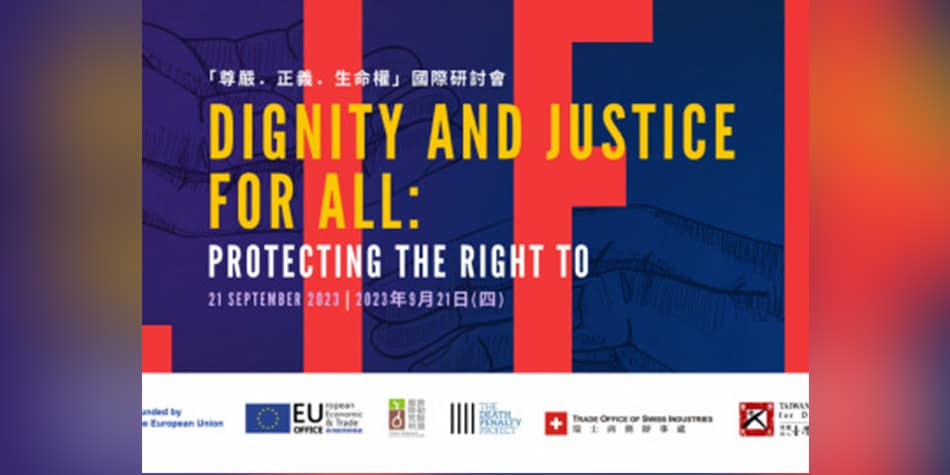
Article(s)
Symposium international sur le droit à la vie à Taiwan
By L'Alliance taïwanaise pour l'abolition de la peine de mort (TAEDP), on 12 January 2024
L’Alliance taïwanaise pour l’abolition de la peine de mort (TAEDP) a organisé une série d’événements, dont un séminaire international, une visite de prison et des réunions, du 19 au 22 septembre 2023, pour célébrer son 20e anniversaire.
2024
Cruel, Inhuman and Degrading Treatment and Punishment
Death Row Conditions
India
Taiwan

Article(s)
International Symposium on the Right to Life in Taiwan
By Taiwan Alliance to End the Death Penalty (TAEDP), on 12 January 2024
The Taiwan Alliance to End the Death Penalty (TAEDP) held a series of events including an international seminar, prison visit, and meetings that took place from 19-22 September 2023 to celebrate its 20th anniversary.
Cruel, Inhuman and Degrading Treatment and Punishment
Death Row Conditions
India
Taiwan
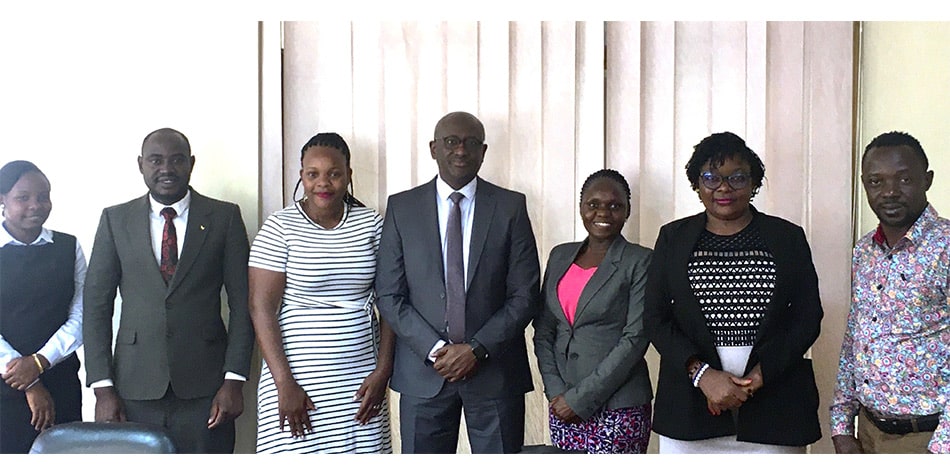
Article(s)
Abolition en Afrique – 77ème session ordinaire de la Commission africaine des droits de l’homme et des peuples
By Yasin Sentumbwe Munagomba et Bronwyn Dudley, on 12 January 2024
La 77ème Session ordinaire publique la CADHP (Commission africaine des droits de l’homme et des peuples) s’est tenue à Arusha, en Tanzanie, du 20 octobre au 9 novembre 2023.
Gender
Gender
Uganda
United Republic of Tanzania
Uganda
United Republic of Tanzania

Article(s)
Abolition in Africa- 77th Ordinary Session of the African Commission on Human and Peoples’ Rights
By Yasin Sentumbwe Munagomba and Bronwyn Dudley, on 12 January 2024
The ACHPR (African Commission on Human and Peoples’ Rights) 77th Public Ordinary Session was held in Arusha, Tanzania from 20 October – 9 November 2023.
Gender
Trend Towards Abolition
Uganda
United Republic of Tanzania

Article(s)
Advocating for the Adoption of the Draft Protocol by the African Union: A Step in the Right Direction for Abolition in Africa
By Florence Venunye Ayivor-Vieira and Hervé Nsambimana, on 15 December 2023
Advocacy in Addis-Ababa On the 10 October 2023, the FIACAT (International Federation of ACATs), and the World Coalition Against the Death Penalty, represented by Ms. Florence Ayivor-Vieira of ACAT-Ghana and Mr. Hervé Nsabimana of CODHAS (Centre d’observation des Droits de l’Homme et d’Assistance Sociale), Co-Chairpersons of the World Coalition’s working group on the draft protocol […]
2023
Trend Towards Abolition
Document(s)
World Psychiatric Association position statement mental health and the death penalty
By World Psychiatric Association, on 30 November 2023
2023
Arguments against the death penalty
Fair Trial
Intellectual Disability
zh-hantMore details See the document
International law and laws of various countries prohibit the imposition of the death penalty on persons
with mental illness or developmental and intellectual disabilities due to the special barriers faced by
them in defending themselves; their limited moral culpability; and their diminished ability to
understand the nature and reason for their execution. However, due to lack of accommodations in
criminal proceedings and legal safeguards, persons with mental illness, developmental and intellectual
disabilities are at a greater risk of being sentenced to death and having their fair trial rights denied.
Authors:
Maitreyi Misra, Director (Mental Health and Criminal Justice), Project 39A, National Law University
Delhi.
Namrata Sinha, Research Associate (Mental Health and Criminal Justice), Project 39A, National Law
University Delhi.
Neeraj Gill, Professor, Health Research Institute, University of Canberra and Griffith University,
School of Medicine, Griffith University, Gold Coast, Australia.
Soumitra Pathare, Consultant Psychiatrist, Director, Centre for Mental Health Law and Policy, ILS
Law College, Pune.
Afzal Javed, President, World Psychiatric Association.
- Document type Arguments against the death penalty
- Themes list Fair Trial / Intellectual Disability
- Available languages 世界精神醫學會針對精神健康與死刑之立場聲明
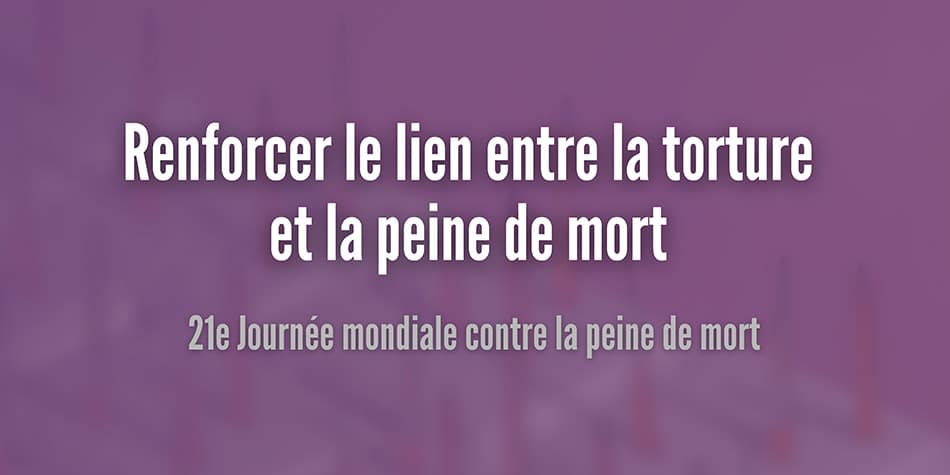
Article(s)
Renforcer le lien entre la torture et la peine de mort : 21e Journée mondiale contre la peine de mort
By Venus Aves, on 17 November 2023
« Dans le monde d’aujourd’hui, il est impossible d’appliquer la peine de mort de manière légale, sans violer le droit international. »Telle est l’affirmation audacieuse et sans équivoque de Juan Méndez, ancien rapporteur spécial des Nations unies sur la torture, lors d’une discussion en ligne avec des experts des Nations unies et des ancien·nes détenu·es, organisée par […]
2023
Cruel, Inhuman and Degrading Treatment and Punishment
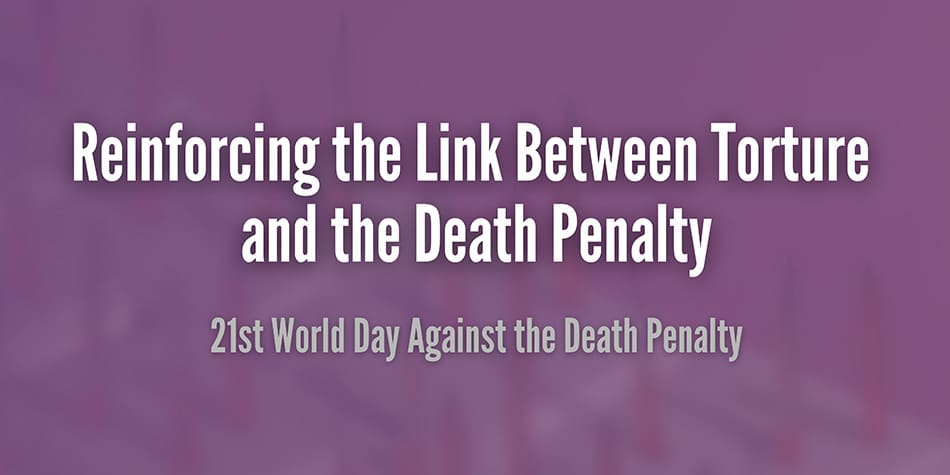
Article(s)
Reinforcing the Link Between Torture and the Death Penalty: 21st World Day Against the Death Penalty
By Venus Aves, on 17 November 2023
“There is no way in today’s world to apply the death penalty in a legal way, in a way that does not violate international law.” This was the bold and unequivocal assertion of former UN Special Rapporteur on Torture Juan Méndez in an online discussion with UN experts and exonerees organized by the World Coalition […]
Cruel, Inhuman and Degrading Treatment and Punishment
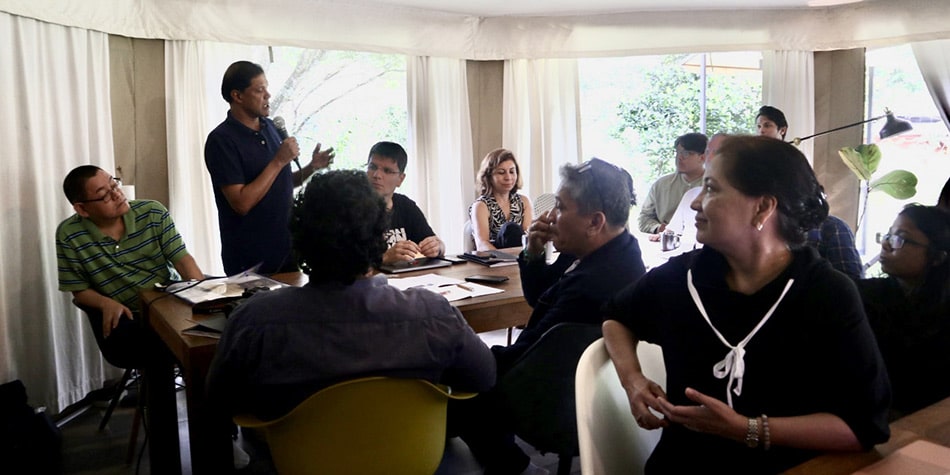
Article(s)
Démystifier les arguments en faveur du rétablissement de la peine de mort
By Venus Aves, on 13 November 2023
À maintes reprises, les abolitionnistes ont plaidé contre la peine de mort en soulignant son caractère inhumain, inefficace et injuste.
2023
Drug Offenses
Maldives
Philippines
Public Opinion
Sri Lanka
Turkey

Article(s)
Debunking narratives for a return of the death penalty
By Venus Aves, on 13 November 2023
Time and time again, abolitionists have been making the case against the death penalty, highlighting how inhumane, inefficient and unfair it is.
Drug Offenses
Maldives
Philippines
Public Opinion
Sri Lanka
Trend Towards Abolition
Turkey
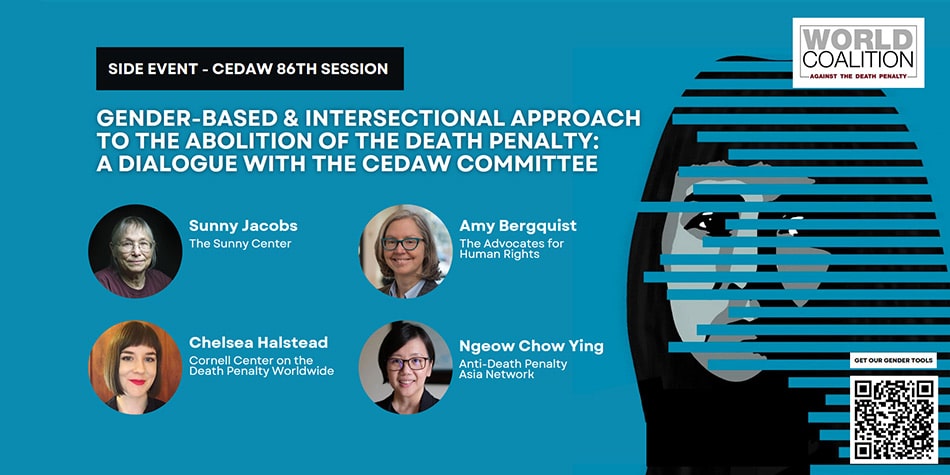
Article(s)
Les expert(e)s CEDAW remercient les membres de la Coalition mondiale pour leur évènement parallèle sur le genre et la peine de mort #CEDAW86
By Venus Aves, on 8 November 2023
Le 22 octobre 2023, la Coalition mondiale contre la peine de mort (Coalition mondiale) a organisé un événement parallèle à huis clos sur une approche sensible au genre et intersectionnelle de l’abolition de la peine de mort, dans le cadre de la 86e session du Comité pour l’élimination de la discrimination à l’égard des femmes […]
2023
Gender

Article(s)
CEDAW experts welcome World Coalition members in the #CEDAW86 side event on gender and the death penalty
By Venus Aves, on 8 November 2023
On 22 October 2023, the World Coalition Against the Death Penalty (World Coalition) organized a closed-door side event on a gender-based and intersectional approach to abolition as part of the 86th session of the Committee on the Elimination of Discrimination Against Women (CEDAW).
Gender

Article(s)
Importance de comprendre les phases de l’abolition : le danger de « abolitionniste dans la pratique »
By Venus Aves, Bronwyn Dudley et Shahindha Ismail, on 6 November 2023
En juillet 2023, la Coalition mondiale contre la peine de mort a organisé un séminaire en Malaisie dans le cadre de son projet “Pays à risque”. Le sujet des moratoires informels a suscité beaucoup d’intérêt, les participant.es ayant réfléchi à des stratégies préventives pour empêcher le retour de la peine de mort et aux facteurs […]
2023
Moratorium
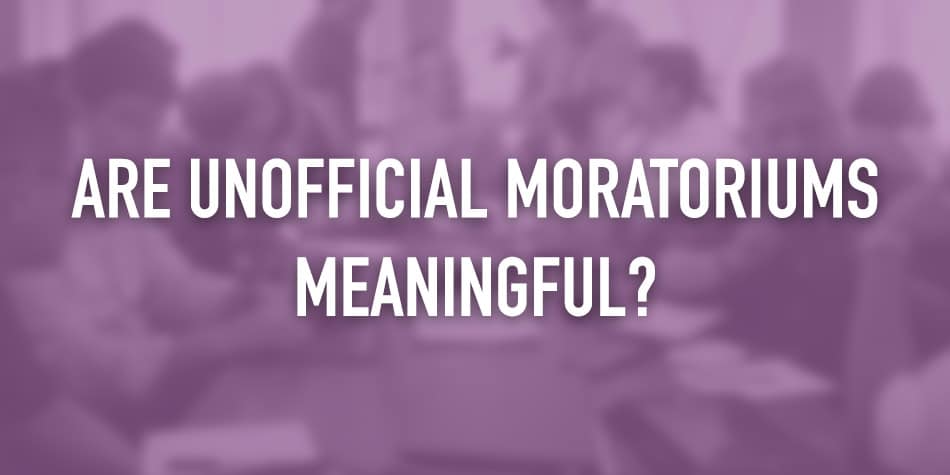
Article(s)
Importance of understanding phases of abolition: the danger of ‘abolitionist in practice’
By Venus Aves, Bronwyn Dudley, and Shahindha Ismail, on 6 November 2023
In July 2023, the World Coalition hosted a seminar in Malaysia in the context of its “Countries at Risk” project. This subject of informal moratoriums solicited much interest as participants considered preventative strategies for stopping a return to the death penalty, and what environmental factors need to be considered to implement those strategies. This article […]
Moratorium
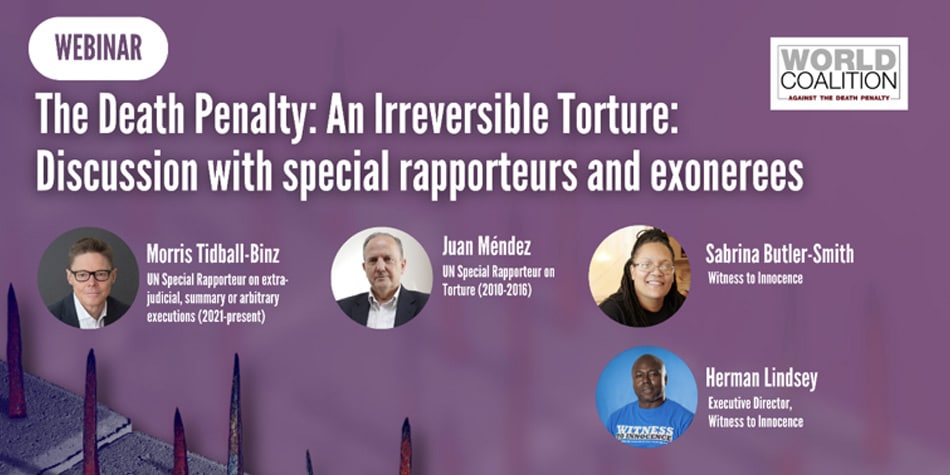
Article(s)
Points forts : Discussion sur la torture et la peine de mort avec des experts de l’ONU et des ancien.nes détenu.es
By Venus Aves, on 6 November 2023
À l’occasion de la 21e Journée mondiale contre la peine de mort, consacrée à la réflexion sur le lien entre le recours à la peine de mort et la torture ou d’autres peines ou traitements cruels, inhumains ou dégradants, qui débutera en 2022, la Coalition mondiale a organisé une discussion en ligne avec des experts […]
Cruel, Inhuman and Degrading Treatment and Punishment
Death Row Conditions

Article(s)
Highlights: Discussion on torture and the death penalty with UN experts and exonerees
By Venus Aves, on 6 November 2023
For the 21st World Day Against the Death Penalty dedicated to the reflection on the relationship between the use of the death penalty and torture or other cruel, inhuman, and degrading treatment or punishment started in 2022, the World Coalition hosted an online discussion with United Nations experts Morris Tidball Binz (UN Special Rapporteur on […]
Cruel, Inhuman and Degrading Treatment and Punishment
Death Row Conditions
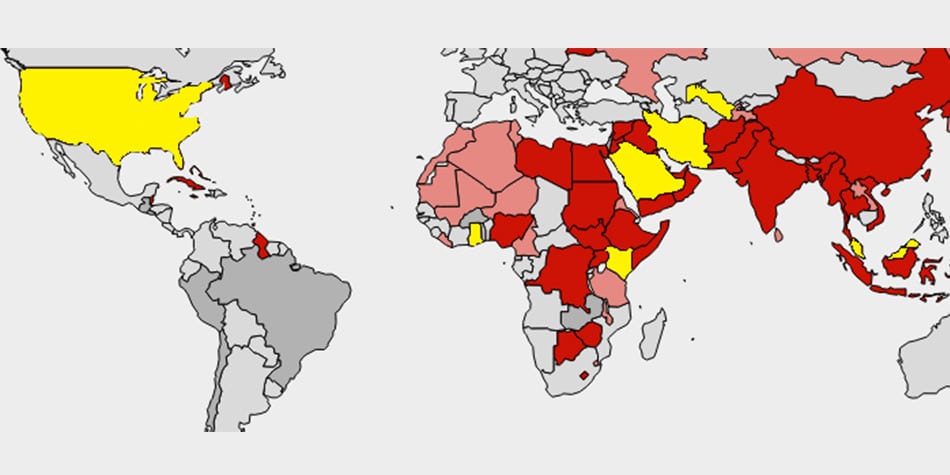
Article(s)
Mid-terms: A first half of 2023 marked by multiple abolitions
By Nellia Halimi, on 9 October 2023
The first seven months of 2023 have been rich for the abolitionist community with a new abolitionist country, a new abolitionist state in the United States, as well as progress for abolition within multiple countries. However, some countries continue to use the death penalty and there have been alarming increases in executions.
2023
Ghana
Iran (Islamic Republic of)
Kenya
Malaysia
Saudi Arabia
Singapore
Trend Towards Abolition
United States
Uzbekistan
Document(s)
Leaflet Women and the Death Penalty
By World coalition against the death penalty, on 2 October 2023
2023
World Coalition
Gender
frMore details Download [ pdf - 1448 Ko ]
- Document type World Coalition
- Themes list Gender
- Available languages Brochure femme et peine de mort
Document(s)
Leaflet LGBTQIA+ people and the Death Penalty
By World coalition against the death penalty, on 2 October 2023
World Coalition
Gender
frMore details Download [ pdf - 861 Ko ]
- Document type World Coalition
- Themes list Gender
- Available languages Brochure personnes LGBTQIA+ et peine de mort
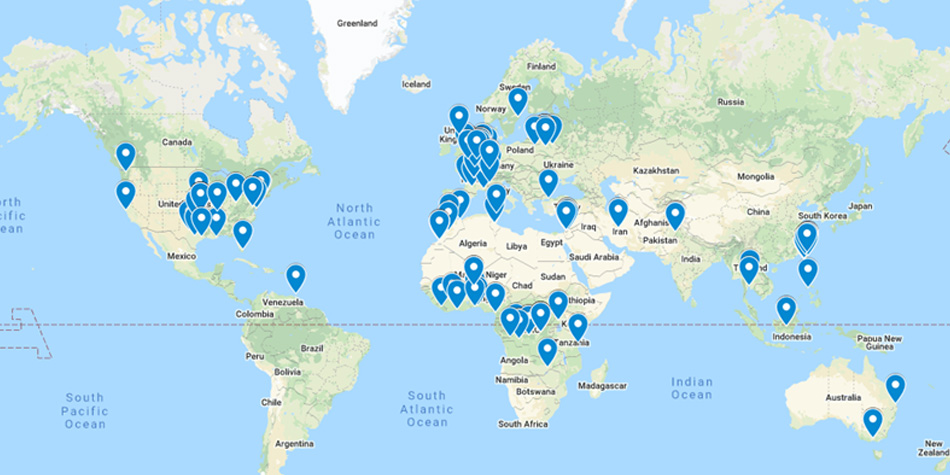
Article(s)
Agissez pour la Journée mondiale 2023 !
By Coalition mondiale contre la peine de mort, on 21 September 2023
Agissez maintenant ! Cette 21ème Journée mondiale est l’occasion idéale de s’opposer publiquement à l’utilisation de cette peine inhumaine, cruelle et dégradante et de soutenir ceux qui se battent pour son abolition dans le monde entier.
2023
Cruel, Inhuman and Degrading Treatment and Punishment

Article(s)
Take Action for World Day 2023!
By World coalition against the death penalty, on 20 September 2023
Take action now! The 21st World Day Against the Death Penalty is an excellent opportunity to publicly oppose the use of this inhumane punishment and to support those who are fighting for its abolition all over the world.
2023
Cruel, Inhuman and Degrading Treatment and Punishment

Article(s)
Abolition of the death penalty at the United Nations Human Rights Council 53rd session
By World coalition against the death penalty, on 18 September 2023
The United Nations Human Rights Council met for its 53rd Regular Session from June 19 to July 14, 2023. If you missed it, here is what happened regarding the abolition of the death penalty!
2023
Trend Towards Abolition
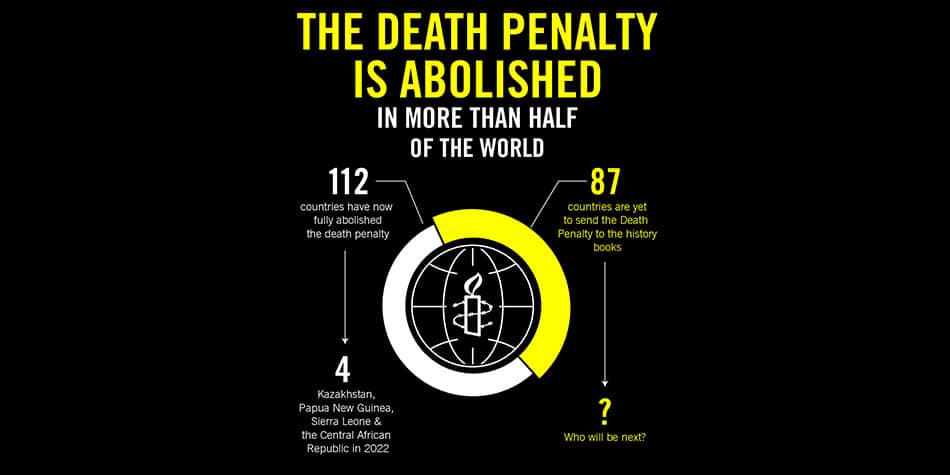
Article(s)
Increase in the number of executions, but clear progress toward abolition in 2022
By World coalition against the death penalty, on 18 September 2023
On 16 May, Amnesty International published their annual report on the global use of the death penalty, which shows the overall number and trends in sentencing and executions in 2022.
Trend Towards Abolition
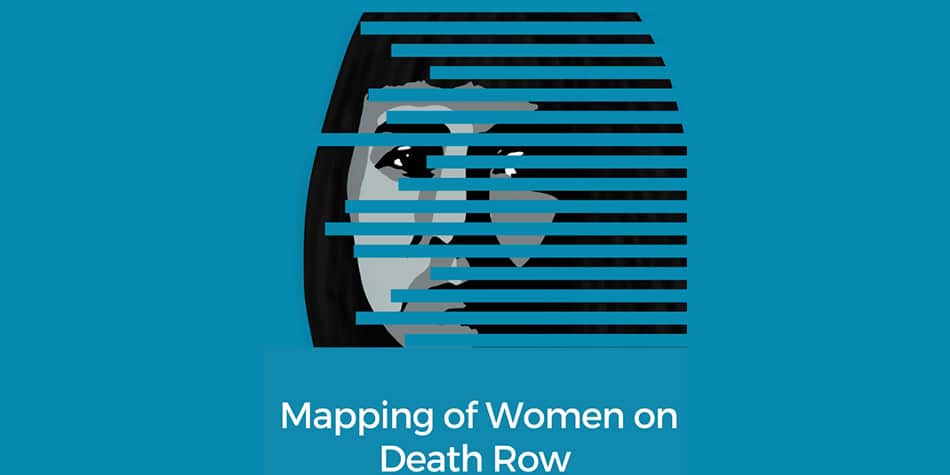
Article(s)
La Coalition mondiale publie un rapport cartographique sur les femmes dans le couloir de la mort
By Coalition mondiale contre la peine de mort, on 8 September 2023
Afin d’obtenir une vision globale des données existantes sur les femmes condamnées à mort, la Coalition mondiale a réalisé un exercice de systématisation de ces données, compilé dans un rapport publié en août 2023.
2023
Women

Article(s)
World Coalition Publishes Country Mapping Report on Women on Death Row
By World coalition against the death penalty, on 8 September 2023
To obtain a global view of existing data on women sentenced to death, the World Coalition carried out a systematization exercise of new data, compiled in a report published in August 2023.
Women
Document(s)
World Coalition Strategic Plan 2023-2027
By World Coalition Against the Death Penalty, on 22 August 2023
2023
World Coalition
Trend Towards Abolition
frMore details Download [ pdf - 455 Ko ]
- Document type World Coalition
- Themes list Trend Towards Abolition
- Available languages Plan Stratégique 2023-2027 de la Coalition Mondiale
Document(s)
Impact of the World Coalition’s Strategic Plan 2018–2022
By World Coalition Agianst the Death Penalty, on 22 August 2023
World Coalition
Trend Towards Abolition
frMore details Download [ pdf - 265 Ko ]
- Document type World Coalition
- Themes list Trend Towards Abolition
- Available languages Impact du Plan stratégique 2018-2022 de la Coalition Mondiale
Document(s)
Bylaws of the World Coalition Against the Death Penalty 2023
By World Coalition Against the Death Penalty, on 22 August 2023
World Coalition
Trend Towards Abolition
frMore details Download [ pdf - 146 Ko ]
- Document type World Coalition
- Themes list Trend Towards Abolition
- Available languages Statuts de la Coalition mondiale contre la peine de mort 2023
Document(s)
World Coalition Activity Report 2022
By World Coalition Against the Death Penalty, on 22 August 2023
World Coalition
Trend Towards Abolition
frMore details Download [ pdf - 323 Ko ]
- Document type World Coalition
- Themes list Trend Towards Abolition
- Available languages Rapport d'Activité de la Coalition Mondiale 2022
Document(s)
World Coalition Statutory Auditor’s Report 2022
By World Coalition Against the Death Penalty, on 22 August 2023
World Coalition
Trend Towards Abolition
frMore details Download [ pdf - 4925 Ko ]
- Document type World Coalition
- Themes list Trend Towards Abolition
- Available languages Coalition Mondiale Rapport de la Commissaire aux Comptes 2022
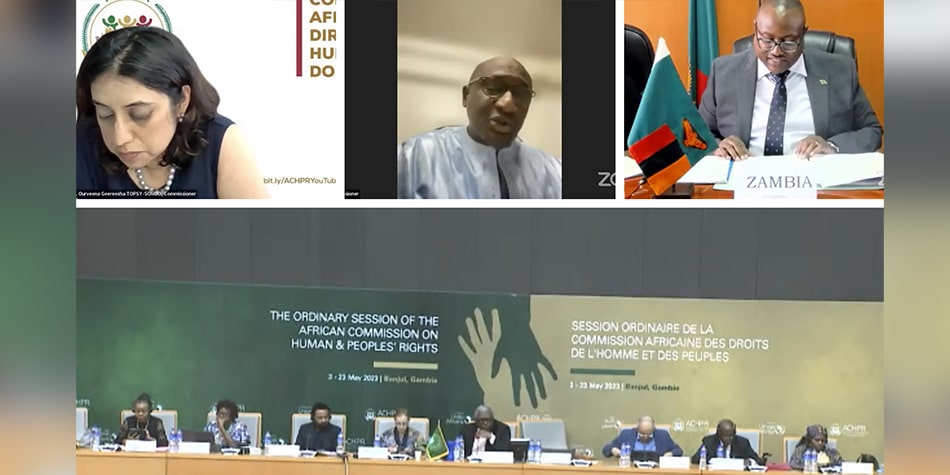
Article(s)
75th Ordinary Session of the African Commission of Human and Peoples’ Rights
By Wendy Adouki, World Coalition Against the Death Penalty, on 15 August 2023
From 3rd to 23rd May 2023, the African Commission on Human and Peoples’ Rights (ACHPR) held its 75th Ordinary Session for the first time in a hybrid format with participants both attending online and in person in Banjul, the Gambia, seat of the ACHPR.
2023
Trend Towards Abolition
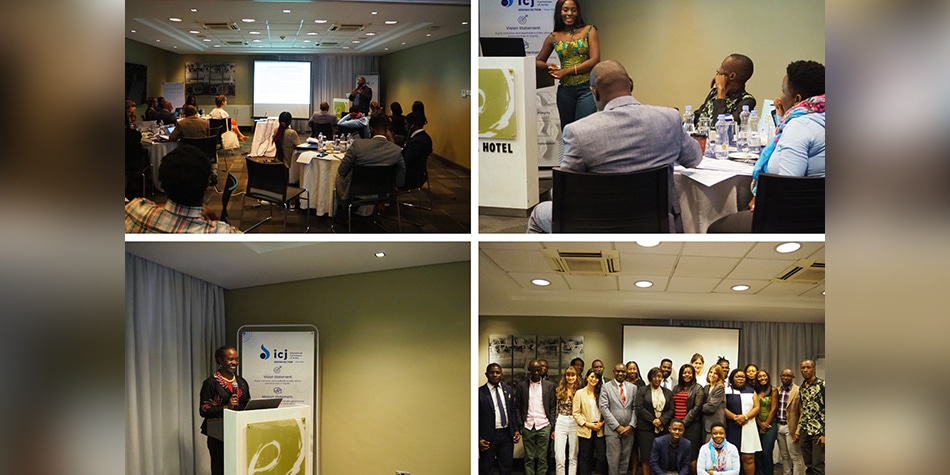
Article(s)
East African Seminar on Best Practices in Kenya: A Key Gathering for the Abolitionist Movement on the Continent
By Wendy Adouki, World Coalition Against the Death Penalty, on 15 August 2023
A privileged moment to exchange on the different abolitionist dynamics in Africa As part of the Africabolition project, the World Coalition Against the Death Penalty (World Coalition) and FIACAT (the International Federation of ACATS) organized a seminar for English-speaking African members from 19-26 June, 2023 in Nairobi, Kenya.
Kenya
Trend Towards Abolition
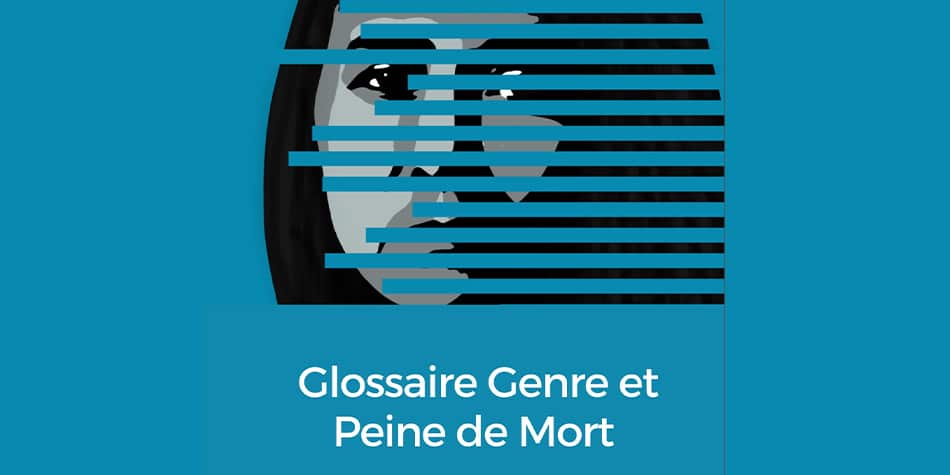
Article(s)
La Coalition mondiale lance un glossaire sur le genre et la peine de mort
By Coalition mondiale contre la peine de mort, on 15 August 2023
Dans le cadre de ses efforts visant à intégrer une perspective de genre dans le mouvement abolitionniste, la Coalition mondiale contre la peine de mort vient de publier un glossaire sur le genre et la peine de mort.
Gender
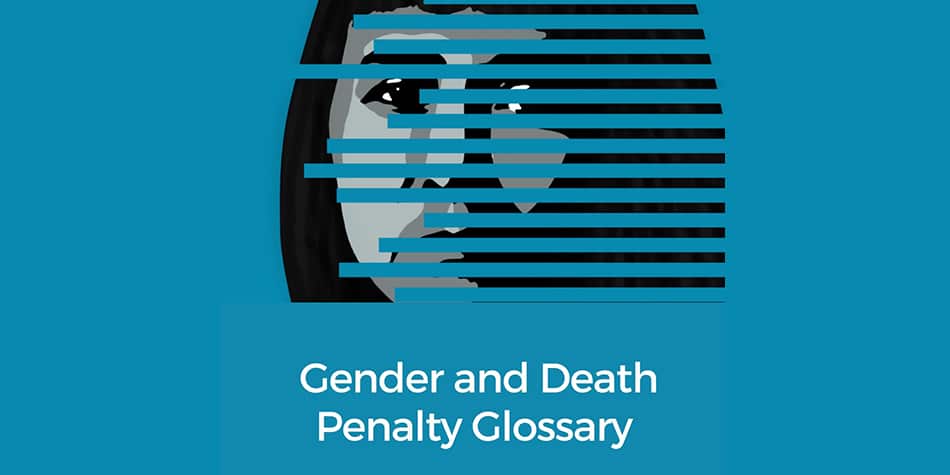
Article(s)
World Coalition launches glossary on gender and the death penalty
By World coalition against the deaht penalty, on 15 August 2023
As part of its efforts to mainstream a gender lens in the abolitionist movement, the World Coalition Against the Death Penalty just released a glossary on gender and the death penalty. The first of its kind, this publication presents and defines terms relevant to gender-sensitive abolitionist work that recognize the various forms of gender-based discrimination […]
Gender
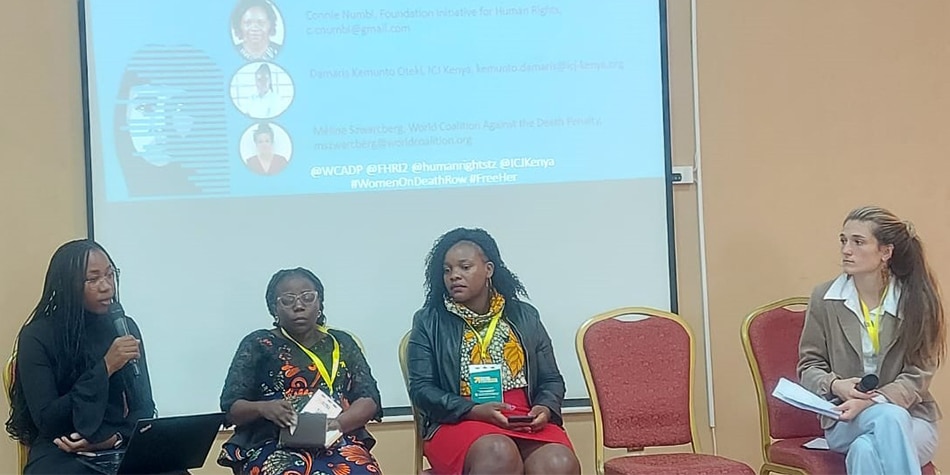
Article(s)
Plaidoyé pour la reconnaissance de la réalité des femmes condamnées à mort dans la lutte pour les droits des femmes
By Coalition mondiale contre la peine de mort, on 15 August 2023
Du 16 au 20 juillet, une délégation de la Coalition mondiale, composée de Connie Numbi de Foundation for Human Rights Initiative, Dr. Anna Henga de Legal Human Right Center, Damaris Kemunto de la Section kenyane de la Commission internationale des juristes (ICJ Kenya), et Méline Szwarcberg, responsable de projet femme et genre à la Coalition […]
Gender
Women

Article(s)
Advocating for the recognition of women sentenced to death in the fight for women’s rights
By World coalition against the death penalty, on 15 August 2023
From July 16 to 20, a World Coalition delegation comprising Connie Numbi of Foundation for Human Rights Initiative Uganda, Dr Anna Henga of Legal Human Right Center Tanzania, Damaris Kemunto of the Kenyan Section of the International Commission of Jurists (ICJ Kenya), and Méline Szwarcberg, Women and Gender Project Manager at the World Coalition, attended […]
Gender
Women
Document(s)
Women and Death Penalty Factsheet – World Day 2023
By World coalition against the death penalty, on 15 August 2023
World Coalition
Gender
frMore details Download [ pdf - 424 Ko ]
- Document type World Coalition
- Themes list Gender
- Available languages Faits et chiffres Les femmes et la peine de mort - 21e journée mondiale contre la peine de mort
Document(s)
FACTS AND FIGURES LGBTQIA+ People and the Death Penalty – 21st World Day Against the Death Penalty
By World coalition against the death penalty, on 15 August 2023
World Coalition
Gender
frMore details Download [ pdf - 502 Ko ]
- Document type World Coalition
- Themes list Gender
- Available languages Faits et chiffres Les personnes LGBTQIA+ et la peine de mort - 21e journée mondiale contre la peine de mort
Document(s)
A/HRC/54/53: Human rights challenges in addressing and countering all aspects of the world drug problem – Report of the Office of the United Nations High Commissioner for Human Rights
By United Nations , on 15 August 2023
Academic report
United Nations report
Drug Offenses
aresfrruzh-hantMore details See the document
The present report outlines human rights challenges in addressing and countering key
aspects of the world drug problem. It also offers an overview of recent positive developments
to shift towards more human rights-centred drug policies, and provides recommendations on
the way forward in view of the upcoming midterm review of the 2019 Ministerial Declaration
and to contribute to the implementation of the 2030 Agenda for Sustainable Development.
- Document type Academic report / United Nations report
- Themes list Drug Offenses
- Available languages التحديات الناشئئئنة لت التصئئئد لمخئئئ لة المخدرات العالمية بجميع جوان ا ومواج ت ا في التمتع بحقوق اإلنسان تقرير مفوضية األمم المتحدة السامية لحقوق اإلنسان*A/HRC/54/53: Desafíos en materia de derechos humanos a la hora de abordar y contrarrestar todos los aspectos del problema mundial de las drogas - Informe de la Oficina del Alto Comisionado de las Naciones Unidas para los Derechos HumanosA/HRC/54/53 : Enjeux en matière de droits de l’homme de la mobilisation et de la lutte contre le problème mondial de la drogue sous tous ses aspects - Rapport du Haut-Commissariat des Nations Unies aux droits de l’hommeПроблемы в области прав человека при решении мировой проблемы наркотиков во всех ее аспектах и борьбе с нею Доклад Управления Верховного комиссара Организации Объединенных Наций по правам человекаA/HRC/54/53:全方位处理和应对世界毒品问题方面的人权挑战 - 联合国人权事务高级专员办事处的报告
Document(s)
Data Mapping: Women on Death Row
By World Coalition against the Death Penalty , on 1 August 2023
2023
NGO report
Gender
frMore details Download [ pdf - 813 Ko ]
In 2021, the 19th edition of the World Day Against the Death Penalty (“World Day” on October 10) was dedicated to the invisible reality of women on death row, paving the way for new data on the issue of women sentenced to death. Many members of the World Coalition Against the Death Penalty (“World Coalition”), in preparation for 10 October, conducted research to document the situations of women facing the death penalty around the world. To systematize the information collected and have a global understanding of women sentenced to death, the World Coalition conducted a data systematization exercise.
This short report presents the main conclusions of this country exercise. These findings are a compilation of existing data available to the World Coalition Against the Death Penalty and its members organization up to December 2022.
- Document type NGO report
- Themes list Gender
- Available languages Cartographie de données : les femmes dans le couloir de la mort
Document(s)
Gender and Death Penalty Glossary
By World Coalition against the Death Penalty, on 1 August 2023
World Coalition
Gender
frMore details Download [ pdf - 829 Ko ]
As part of the integration of a gender and intersectional approach into its strategy, the World Coalition Against the Death Penalty (World Coalition) decided to develop a glossary to identify and define the key terms of which the abolitionist movement should be aware to consider gender and other axes of intersectional discrimination at work in the capital punishment process, and more broadly to mainstream gender into their abolitionist work. This glossary was developed based on existing glossaries of World Coalition members on closely related topics, existing international definitions and standards established by international human rightsmechanisms as well as based on definitions written by international organizations specializing inwomen’s rights and LGBTQIA+ people’s rights.This glossary aims to support the abolitionist movement in recognizing the gender and intersectional biases at work in the judicial process leading to the death penalty and to contribute to the developmentof a common language around these issues, a process initiated a few years ago by members of theWorld Coalition Against such as the Cornell Center on the Death Penalty Worldwide. Moreover, this glossary also aims to promote the integration of a gender approach into the internal workings o fabolitionist organizations.
- Document type World Coalition
- Themes list Gender
- Available languages Glossaire Genre et Peine de mort
Document(s)
How to Insert Gender issues in Abolitionist Advocacy?
By World Coalition against the Death Penalty, on 1 August 2023
Lobbying
Gender
frMore details Download [ pdf - 710 Ko ]
This tool was developed by the World Coalition Against the Death Penalty (World Coalition) in partnership with the Advocates for Human Rights (TAHR), after noting the limited integration of gender issues into the abolitionist advocacy of the World Coalition’s member organizations. This tool has also been edited and enrichened by the World Coalition’s Gender Working Group.
As part of the “Leave No Woman Behind on Death Row” project, this tool aims to assist World Coalition members and partners in implementing gender-sensitive abolitionist advocacy.
In this document, intended to be a practical tool, guidance is provided on how to incorporate gender-specific recommendations into abolitionist advocacy with human rights bodies. This tool focuses recommendations made by civil society organizations (CSOs) to international and regional human rights bodies, intended to encourage national authorities to act in a certain way. Human rights mechanisms and bodies serve as crucial actors in legitimizing and supporting CSOs work on the ground. A recommendation made by a CSO can, in turn, be accepted by a human rights special mechanism and be transformed into an official recommendation to the State. From there, CSOs can continue to use this official recommendation in their national advocacy to strengthen their claim and position, fulfilling a virtuous circle in advocacy work.
In this document, the recommendations made are done pending full abolition of the death penalty. They are seen as transitional steps towards full abolition of the death penalty in law and in practice.
This tool is divided into two sections. The first part focuses on how to increase visibility of the discrimination faced by women in the judicial process leading to the death penalty. The second part focuses on the discrimination faced by LGBTQIA+ people during the same judicial process. In both sections, definitions are provided as well as background information in order to understand the issues at stake in each of the themes.
- Document type Lobbying
- Themes list Gender
- Available languages Comment insérer les questions de genre dans le plaidoyer abolitionniste ?
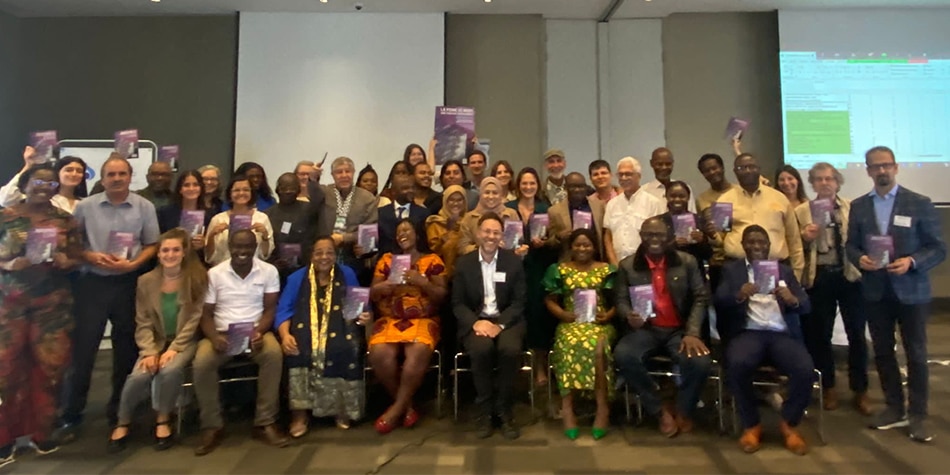
Article(s)
World Coalition held first General Assembly in East Africa
By World Coalition against the death penalty, on 7 July 2023
The World Coalition Against the Death Penalty co-organized with ICJ-Kenya its first General Assembly in Nairobi, Kenya on 23-24 June 2023.
2023
Trend Towards Abolition
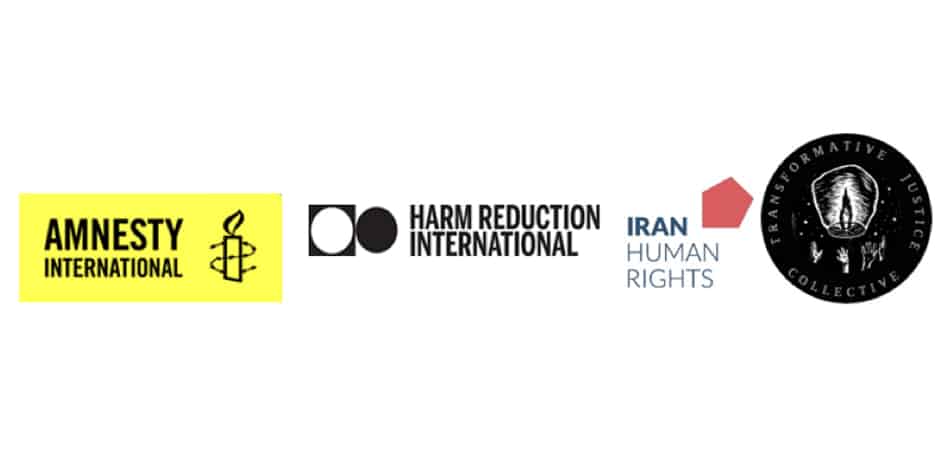
Article(s)
بیانیه مشترک چهار سازمان حقوق بشر در روز جهانی مبارزه با سوءمصرف مواد مخدر: دفتر مقابله با مواد مخدر و جرم سازمان ملل برای توقف اعدام تلاش کند
on 7 July 2023
سازمان حقوق بشر ایران، سازمان عفو بینالملل، سازمان بینالمللی کاهش آسیب و جمعیت عدالت تحول آفرین با صدور بیانیهای مشترک در روز جهانی مبارزه با سوءمصرف مواد مخدر و قاچاق غیرقانونی، از دفتر مقابله با مواد مخدر و جرم سازمان ملل متحد خواستند تا در جهت توقف استفاده از مجازات اعدام برای جرایم مرتبط با مواد مخدر […]
Drug Offenses

Article(s)
Journée mondiale sur les drogues : L’ONUDC doit agir pour mettre fin à l’application de la peine de mort pour les infractions liées à la drogue et exhorter les États à mettre fin aux exécutions.
By Amnesty International, Harm Reduction International, Iran Human Rights, Transformative Justice Collective, on 27 June 2023
Le 26 juin, l’Office des Nations unies contre la drogue et le crime (ONUDC) célèbre la Journée mondiale sur les drogues avec le thème « Les gens avant tout : Mettons fin à la stigmatisation et à la discrimination, renforçons la prévention » et lance une nouvelle édition du Rapport mondial sur les drogues. Malheureusement, comme c’est […]
2023
Drug Offenses

Article(s)
World Drugs Day: UNODC must act to stop the use of death penalty for drug-related offences and urge states to end executions
By Amnesty International, Harm Reduction International, Iran Human Rights, Transformative Justice Collective, on 27 June 2023
On 26 June, the UN Office on Drugs and Crime (UNODC) is marking World Drugs Day with the theme “People first: stop stigma and discrimination, strengthen prevention”, and launched another edition of the World Drug Report. Sadly, as has been the case over the years, UNODC has failed to raise concerns over the continued use […]
Drug Offenses
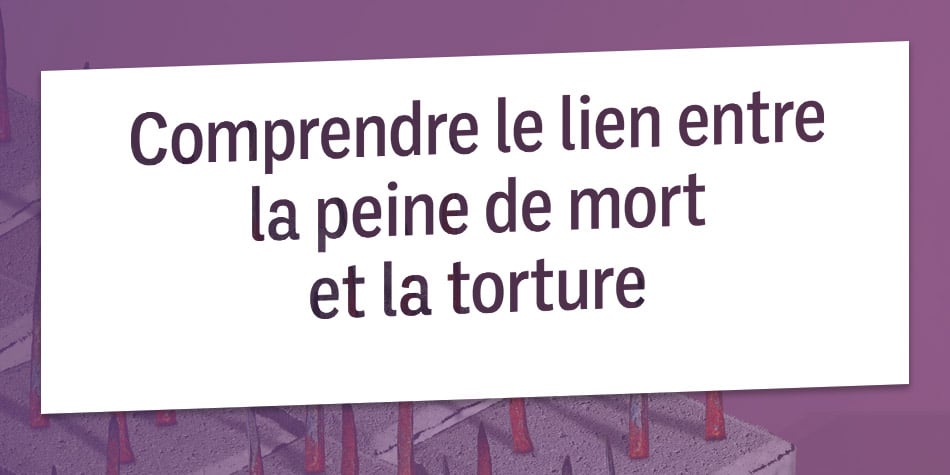
Article(s)
Journée internationale pour le soutien aux victimes de la torture : Comprendre le lien entre la peine de mort et la torture
By Wendy Adouki, on 26 June 2023
Le 26 juin 2023, le monde entier commémore la Journée internationale pour le soutien aux victimes de la torture (Journée internationale). Instaurée en 1987, cette journée internationale a débuté lorsque la Convention des Nations unies contre la torture et autres peines ou traitements cruels, inhumains ou dégradants (Convention des Nations unies contre la torture) est […]
2023
Cruel, Inhuman and Degrading Treatment and Punishment
Death Row Conditions
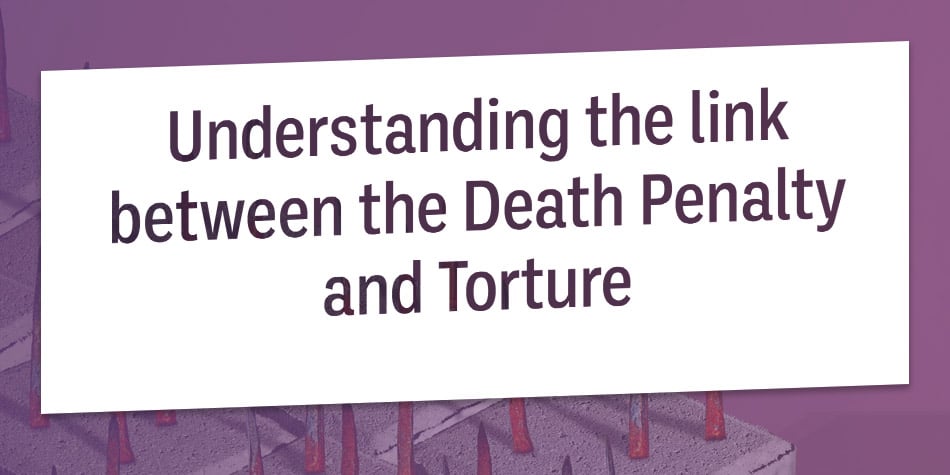
Article(s)
International Day in Support of Victims of Torture: Understanding the link between the Death Penalty and Torture
By Wendy Adouki, on 26 June 2023
Today, 26th June 2023, the world is commemorating the International Day in Support of Victims of Torture (International Day). Started in 1987, this International Day began when the United Nations Convention Against Torture and Other Cruel, Inhuman or Degrading Treatment or Punishment (UN Convention Against Torture) came into force; a crucial legal text to combat […]
Cruel, Inhuman and Degrading Treatment and Punishment
Death Row Conditions
Document(s)
Children, Youth and the Death Penalty
By International Commission against the Death Penalty, on 23 June 2023
2023
NGO report
Juveniles
More details See the document
ICDP announces the launch of its latest report: Children, Youth and the Death Penalty. The issue of how the death penalty affects children and youth is often ignored by policy makers. This report aims to change that by putting the protection of children’s rights at the center of the debate on the death penalty.
The report builds on the panel discussion titled “Youth and the Death Penalty,” which was organized by the International Commission against the Death Penalty (ICDP) and the Government of Australia. The discussion was held on 29 June 2022, at the sidelines of the 50th session of the UN Human Rights Council, in Geneva.
- Document type NGO report
- Themes list Juveniles
Document(s)
Doomed to Repeat: The Legacy of Race in Tennessee’s Contemporary Death Penalty
By Death Penalty Information Center, on 16 June 2023
2023
NGO report
Fair Trial
United States
More details See the document
This report explores the current issues with capital punishment in Tennessee through a historical lens, tracing the origins of the use of the death penalty from lynchings and other forms of racial violence directed at Black Tennesseans. The stories of individuals and communities that have interacted with different facets of Tennessee’s justice system throughout history suggest that, in many ways, even though centuries have passed, the experiences of discrimination toward Tennessee’s communities of color continue. A meaningful understanding of the state’s history and its legacy of violence and racism is essential to avoid repeating the mistakes of the past.
- Document type NGO report
- Countries list United States
- Themes list Fair Trial

Article(s)
Abolition of the death penalty at the United Nations Human Rights Council 52nd session
By World coalition against the death penalty, on 22 May 2023
The United Nations Human Rights Council met for its 52nd Regular Session from February 27 to April 4, 2023. If you missed it, here is what happened regarding the abolition of the death penalty!
2023
Trend Towards Abolition
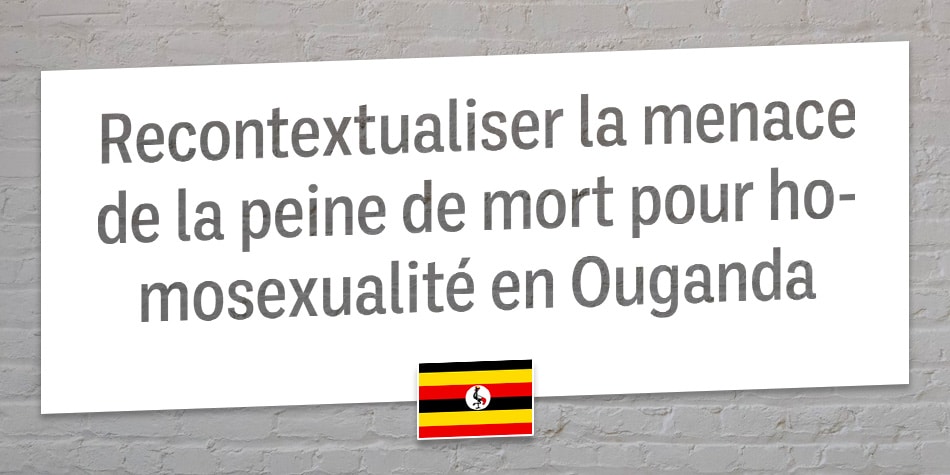
Article(s)
Recontextualiser la menace de la peine de mort pour homosexualité en Ouganda
By Méline Szwarcberg, on 2 May 2023
Le parlement ougandais a voté, mardi 21 mars, une loi qui criminalise durement les personnes ayant des relations sexuelles consensuelles entre personnes de même sexe. A ce jour, la loi n’a pas été validée par le président Museveni. Parmi une série de lourdes peines cette loi prévoit la peine de mort pour délit « d’homosexualité aggravé ». […]
2023
Gender
Uganda
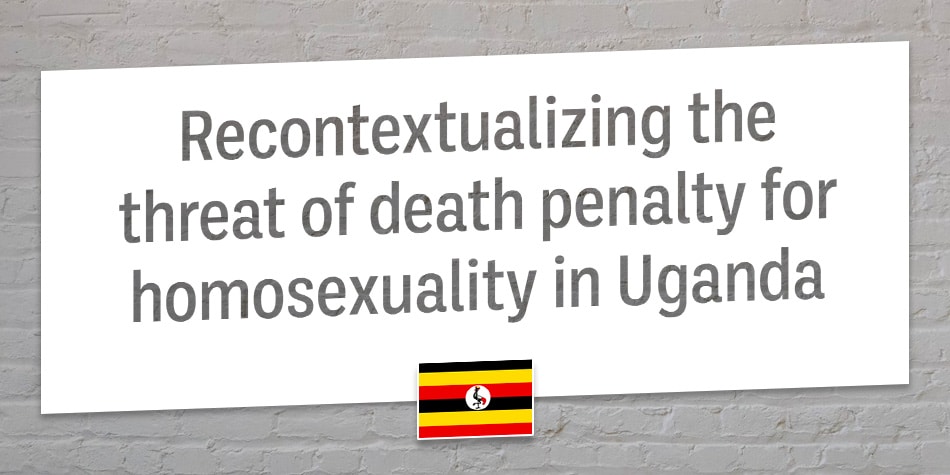
Article(s)
Recontextualizing the threat of death penalty for homosexuality in Uganda
By Méline Szwarcberg, on 2 May 2023
On Tuesday March 21, the Ugandan parliament passed a law that severely criminalizes people who have consensual same-sex relations. At the end of April, the law had still not been validated by the President Museveni. Among a range of harsh penalties, the law would allow the death penalty for the crime of « aggravated homosexuality […]
Gender
Uganda
Document(s)
The Fear of Too Much Justice : Race, Poverty, and the Persistence of Inequality in the Criminal Courts
By Stephen B. Bright, James Kwak , on 21 April 2023
2023
Book
Fair Trial
United States
More details See the document
In The Fear of Too Much Justice, legendary death penalty lawyer Stephen B. Bright and legal scholar James Kwak offer a heart-wrenching overview of how the criminal legal system fails to live up to the values of equality and justice. The book ranges from poor people squeezed for cash by private probation companies because of trivial violations to people executed in violation of the Constitution despite overwhelming evidence of intellectual disability or mental illness. They also show examples from around the country of places that are making progress toward justice.
With a foreword by Bryan Stevenson, who worked for Bright at the Southern Center for Human Rights and credits him for “[breaking] down the issues with the death penalty simply but persuasively,” The Fear of Too Much Justice offers a timely, trenchant, firsthand critique of our criminal courts and points the way toward a more just future.
Available: June 2023
- Document type Book
- Countries list United States
- Themes list Fair Trial
Document(s)
Dealing with Punishment: Risks and Rewards in Indonesia’s Illicit Drug Trade
By Carolyn Hoyle, Death Penalty Project, on 18 April 2023
2023
NGO report
Drug Offenses
Indonesia
More details See the document
In 2020-2021, The Death Penalty Project, in partnership with Community Legal Aid Institute, LBH Masyarakat, commissioned The Death Penalty Research Unit (DPRU) at the University of Oxford, in association with University Centre of Excellence HIV/AIDS Research Centre-HPSI at Atma Jaya Catholic University of Indonesia (AJCU), to conduct the research building empirical knowledge on who is being convicted for drug offences and uncover the factors that have influenced their motivations and decision making. Interviews were conducted on 57 prisoners from a prison in Jakrata, Indonesia, all convicted for drug offences. This is the first stage of a larger mapping project, which will interview those convicted of drug offences and sentenced to death or life in prisons across Indonesia and Southeast Asia. It also compliments our two part opinion study on attitudes on capital punishment in Indonesia.
- Document type NGO report
- Countries list Indonesia
- Themes list Drug Offenses
Document(s)
Silently Silenced: State-Sanctioned Killing of Women
By Eleos Justice, Cornell Center on the Death Penalty Worldwide , on 30 March 2023
2023
Academic report
Women
More details See the document
Silently Silenced: State-Sanctioned Killing of Women examines States’ involvement in ‘feminicide’. Feminicide is understood as the gender-motivated killing of women and girls that States actively engage in, condone, excuse, or fail to prevent. We use the term ‘feminicide’ to refer to the various forms of State-sanctioned killing of women and girls. In this report, we outline States’ direct involvement and complicity in the killings of women and girls and explain these deaths as a product of gendered forms of structural violence upheld and sustained by the State. We examine 3 types of feminicide: gender- related killings of women directly perpetrated by the State, such as the death penalty and extrajudicial killings; gender-related killings of women committed by non-State actors that are excused or condoned by the State; and gender-related killings of women that the State failed to prevent.
- Document type Academic report
- Themes list Women

Article(s)
Moratorium Stays in Place in Sri Lanka and Anti-Death Penalty Petitioners Secure an Official Record in Court Proceedings to Protect Future Rights
By World Coalition Against the Death Penalty, on 28 March 2023
Petitioners challenging the potential resumption of executions in Sri Lanka experienced received reassuring news on 23 February 2023 when the Attorney General of Sri Lanka reported to the Supreme Court that the incumbent President Ranil Wickremesinghe has agreed to not implement executions during his tenure.
2023
Sri Lanka
Trend Towards Abolition
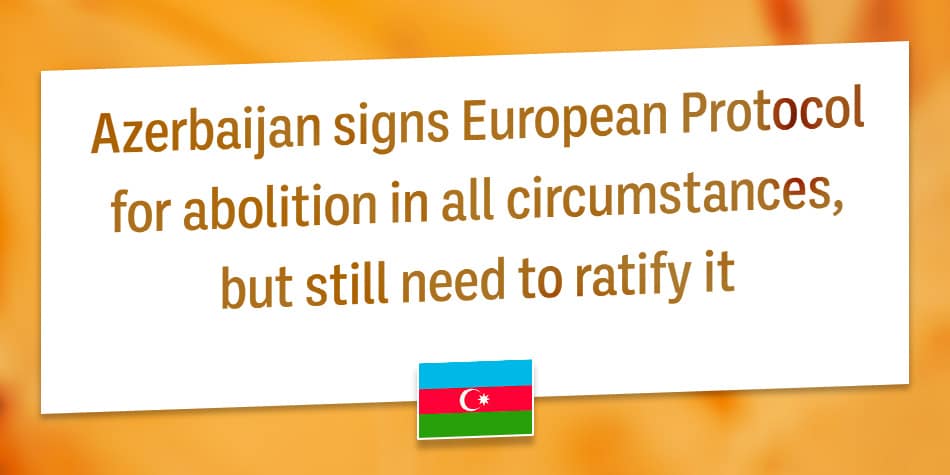
Article(s)
Azerbaijan signs European Protocol for abolition in all circumstances, but still need to ratify it
By Aurélie Plaçais, on 28 March 2023
On 8 March 2023, Azerbaijan signed Protocol No. 13 to the Convention for the Protection of Human Rights and Fundamental Freedoms.
Azerbaijan
Trend Towards Abolition
Document(s)
Seven Winters in Teheran
By Steffi Niederzoll, on 24 March 2023
2023
Multimedia content
Gender
Iran (Islamic Republic of)
Women
frMore details See the document
In the summer of 2007, an older man approaches Reyhaneh Jabbari and asks the architecture student who has a side job as an interior decorator for her help in the design of offices. During the site inspection, he tries to rape her. Reyhaneh stabs him in self-defence. She is arrested for murder and sentenced to death. Reyhaneh was to spend the next seven years in prison while her family hired lawyers and made the public aware of the case. However, in spite of the efforts of national and international politicians and human rights organisations, the Iranian judiciary continued to cite the “right of blood-revenge”. This meant that, as long as Reyhaneh did not withdraw her accusations against the man, his family could demand her death. Reyhaneh stuck to her testimony and was hanged at the age of 26.
In her moving and shockingly topical documentary debut, director Steffi Niederzoll uses among other things original audio and visual material that was smuggled out of Iran. This film, in which Holy Spider actor Zar Amir Ebrahimi lends Reyhaneh her voice, makes visible the injustice in Iranian society and portrays an involuntary heroine who gave her life in the fight for women’s rights.
- Document type Multimedia content
- Countries list Iran (Islamic Republic of)
- Themes list Gender / Women
- Available languages Sept hivers à Téhéran
Document(s)
The Death Penalty for Drug Offences: Global Overview 2022
on 24 March 2023
NGO report
China
Democratic People's Republic of Korea
Drug Offenses
Indonesia
Iran (Islamic Republic of)
Malaysia
Saudi Arabia
Singapore
Viet Nam
More details See the document
Harm Reduction International has monitored the use of the death penalty for drug offences worldwide since our first ground-breaking publication on this issue in 2007. This report, our twelfth on the subject, continues our work of providing regular updates on legislative, policy and practical developments related to the use of capital punishment for drug offences, a practice which is a clear violation of international standards. As of December 2022, Harm Reduction International (HRI) recorded at least 285 executions for drug offences globally during the year, a 118% increase from 2021, and an 850% increase from 2020. Executions for drug offences are confirmed or assumed to have taken place in six countries: Iran, Saudi Arabia, Singapore, plus in China, North Korea and Vietnam – on which exact figures cannot be provided because of extreme opacity. Therefore, this figure is likely to reflect only a percentage of all drug-related executions worldwide. Confirmed death sentences for drug offences were also on the rise; with at least 303 people sentenced to death in 18 countries. This marks a 28% increase from 2021.
- Document type NGO report
- Countries list China / Democratic People's Republic of Korea / Indonesia / Iran (Islamic Republic of) / Malaysia / Saudi Arabia / Singapore / Viet Nam
- Themes list Drug Offenses
Document(s)
Crossing the River Styx, The Memoir of a Death Row Chaplain
By Russ Ford. Charles Peppers. Todd C. Peppers, on 24 March 2023
Book
Death Row Conditions
United States
More details See the document
The Reverend Russ Ford, who served as the head chaplain on Virginia’s death row for eighteen years, raged against the inequities of the death penalty—now outlawed in Virginia—while ministering to the men condemned to die in the 1980s and 1990s. Ford stood watch with twenty-eight men, sitting with them in the squalid death house during the final days and hours of their lives. In July 1990 he accidentally almost became the 245th person killed by Virginia’s electric chair as he comforted Ricky Boggs in his last moments, a vivid episode that opens this haunting book. Many chaplains get to know the condemned men only in these final moments. Ford, however, spent years working with the men of Virginia’s death row, forging close bonds with the condemned and developing a nuanced understanding of their crimes, their early struggles, and their challenges behind bars. His unusual ministry makes this memoir a unique and compelling read, a moving and unflinching portrait of Virginia’s death row inmates. Revealing the cruelties of the state-sanctioned violence that has until recently prevailed in our backyard, Crossing the River Styx serves as a cautionary tale for those who still support capital punishment.
- Document type Book
- Countries list United States
- Themes list Death Row Conditions

Article(s)
Panel de Haut Niveau de l’ONU sur peine de mort et la limitation aux crimes les plus graves
By Coalition mondiale contre la peine de mort, on 14 March 2023
Le 28 février 2023, le Conseil des droits de l’homme a tenu son panel biennal de haut niveau sur la question de la peine de mort.
2023
Public Opinion

Article(s)
UN High Level Panel on the death penalty and limitation to the most serious crimes
By World coalition against the death penalty, on 14 March 2023
On February 28 2023, the United Nations (UN) Human Rights Council held its biennial high-level panel on the issue of the death penalty.
Public Opinion
Document(s)
The Mercy Workers, Death Penalty Mitigation Specialists
By Maurice Chammah, The Marshall Project, on 2 March 2023
2023
Article
Legal Representation
United States
More details See the document
For three decades, a little-known group of “mitigation specialists” has helped save death-penalty defendants in the USA by documenting their childhood traumas. A rare look inside one case.
- Document type Article
- Countries list United States
- Themes list Legal Representation
Document(s)
He Called Me Sister
By Suzanne Craig Robertson, on 24 February 2023
2023
Book
Death Row Conditions
United States
More details See the document
The fascinating, moving story of a friendship with an inmate on death row. It was a clash of race, privilege, and circumstance when Alan Robertson first signed up through a church program to visit Cecil Johnson on Death Row, to offer friendship and compassion. Alan’s wife Suzanne had no intention of being involved, but slowly, through phone calls and letters, she began to empathize and understand him. That Cecil and Suzanne eventually became such close friends—a white middle-class woman and a Black man who grew up devoid of advantage—is a testament to perseverance, forgiveness, and love, but also to the notion that differences don’t have to be barriers. This book recounts a fifteen-year friendship and how trust and compassion were forged despite the difficult circumstances, and how Cecil ended up ministering more to Suzanne’s family than they did to him. The story details how Cecil maintained inexplicable joy and hope despite the tragic events of his life and how Suzanne, Alan, and their two daughters opened their hearts to a man convicted of murder. Cecil Johnson was executed Dec. 2, 2009.
- Document type Book
- Countries list United States
- Themes list Death Row Conditions
Document(s)
Capital Punishment & Social Rights Research Initiative – Texas
By Barbara Laubenthal, on 12 February 2023
2023
Multimedia content
Death Row Conditions
United States
More details See the document
The Capital Punishment and Social Rights Research Initiative assesses and analyzes the access of men and women on U.S. death rows to social rights such as health care, social contacts, visitation, communication, recreation and spiritual support. CPSR’s info series on living conditions on death row, state by state. Part 1: Texas
- Document type Multimedia content
- Countries list United States
- Themes list Death Row Conditions
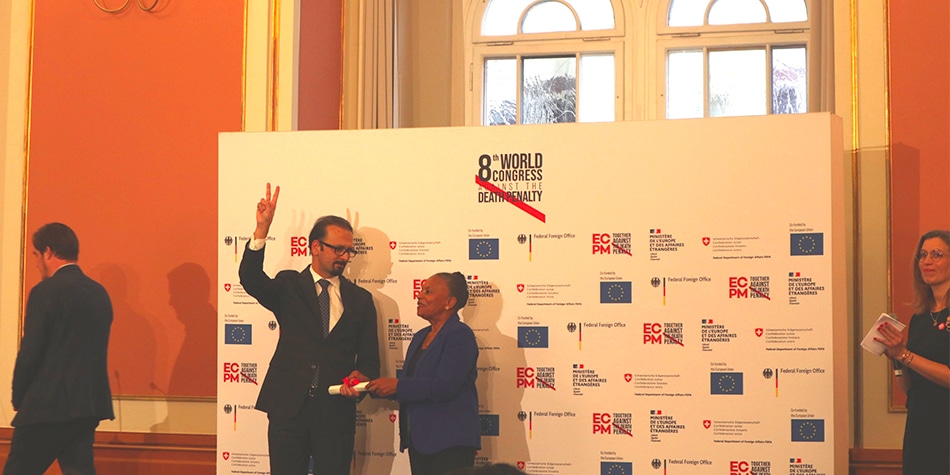
Article(s)
A Very Moving and Inspiring Closing Ceremony
By Dunia Schaffa, on 30 January 2023
The Closing Ceremony of the 8th World Congress celebrated people who play an immense role in the process of the abolition of the death penalty, with an awards ceremony and a tribute.
2023
Trend Towards Abolition
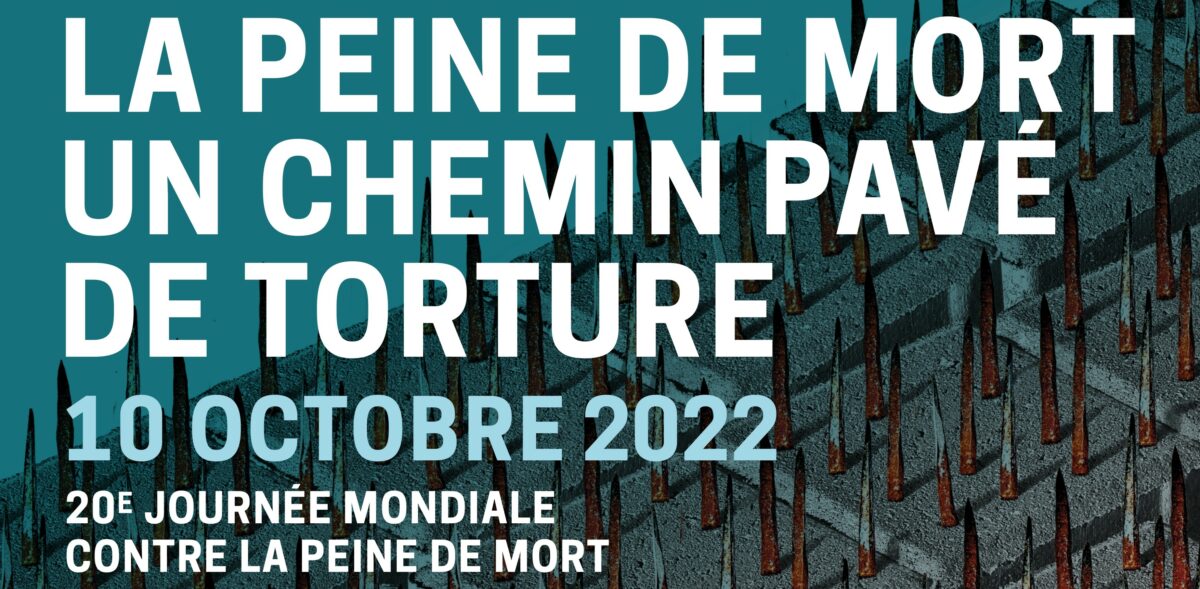
Article(s)
Retour sur le 20ème anniversaire de la Journée Mondiale Contre la Peine de Mort
By Dunia Schaffa, on 27 January 2023
“Psychologiquement, je ne suis plus humain”. Ce tweet de l’Organisation mondiale contre la torture, citant une interview de Richard Yav, un ancien agent de sécurité condamné à tort à la peine de mort pendant 20 ans au Bénin, met en lumière les différents impacts de la torture.
2023
Cruel, Inhuman and Degrading Treatment and Punishment
Death Row Conditions
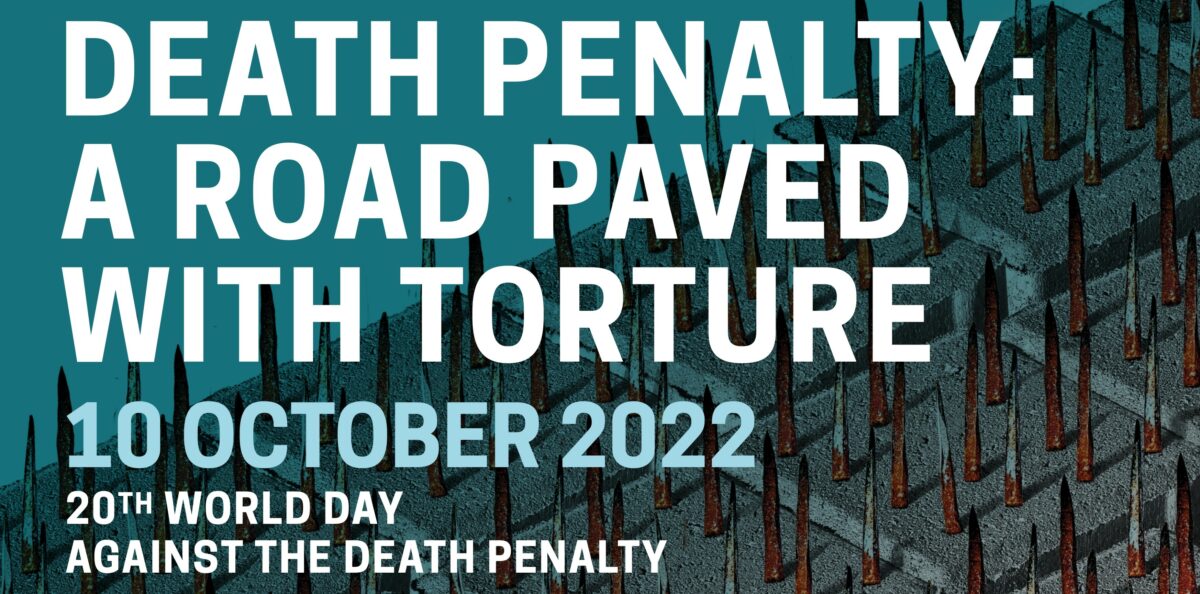
Article(s)
A Look Back at the 20th Anniversary of the World Day Against the Death Penalty
By Dunia Schaffa, on 27 January 2023
“Psychologically I am no longer human.”. This tweet by the World Organization Against Torture, quoting an interview with Richard Yav, a former security guard who was wrongly sentenced to death for 20 years in Benin, sheds light on the various impacts of torture.
Cruel, Inhuman and Degrading Treatment and Punishment
Death Row Conditions
Document(s)
Key legal Instruments and texts adopted on Abolition of the death penalty by the Council of Europe
By Council of Europe, on 24 January 2023
2023
Regional body report
Trend Towards Abolition
frMore details See the document
All the Council of Europe documents related to abolition of the death penalty gathered in one page : decisions of the Committee of Ministers, resolutions of the Parliamentary Assembly, Treaties…
- Document type Regional body report
- Themes list Trend Towards Abolition
- Available languages Instruments juridiques clés et textes adoptés sur l'abolition de la peine de mort par le Conseil de l'Europe
Document(s)
Getting to Death: Race and the Paths of Capital Cases after Furman
By Fagan, Jeffrey and Davies, Garth and Paternoster, Raymond, Columbia Public Law Research Paper, Forthcoming, Cornell Law Review, Vol. 107, No. 1565, 2022, on 13 January 2023
2023
Academic report
Fair Trial
United States
More details See the document
Decades of research on the administration of the death penalty have recognized the persistent arbitrariness in its implementation and the racial inequality in the selection of defendants and cases for capital punishment. This Article provides new insights into the combined effects of these two constitutional challenges. We show how these features of post-Furman capital punishment operate at each stage of adjudication, from charging death-eligible cases to plea negotiations to the selection of eligible cases for execution and ultimately to the execution itself, and how their effects combine to sustain the constitutional violations first identified 50 years ago in Furman. Analyzing a dataset of 2,328 first- degree murder convictions in Georgia from 1995–2004 that produced 1,317 death eligible cases, we show that two features of these cases combine to produce a small group of persons facing execution: victim race and gender, and a set of case-specific features that are often correlated with race. We also show that these features explain which cases progress from the initial stages of charging to a death sentence, and which are removed from death eligibility at each stage through plea negotiations. Consistent with decades of death penalty research, we also show the special focus of prosecution on cases where Black defendants murder white victims. The evidence in the Georgia records suggests a regime marred less by overbreadth in its statute than capriciousness and randomness in the decision to seek death and to seek it in a racially disparate manner. These two dimensions of capital case adjudication combine to sustain the twin failures that produce the fatal lottery that is the death penalty.
- Document type Academic report
- Countries list United States
- Themes list Fair Trial
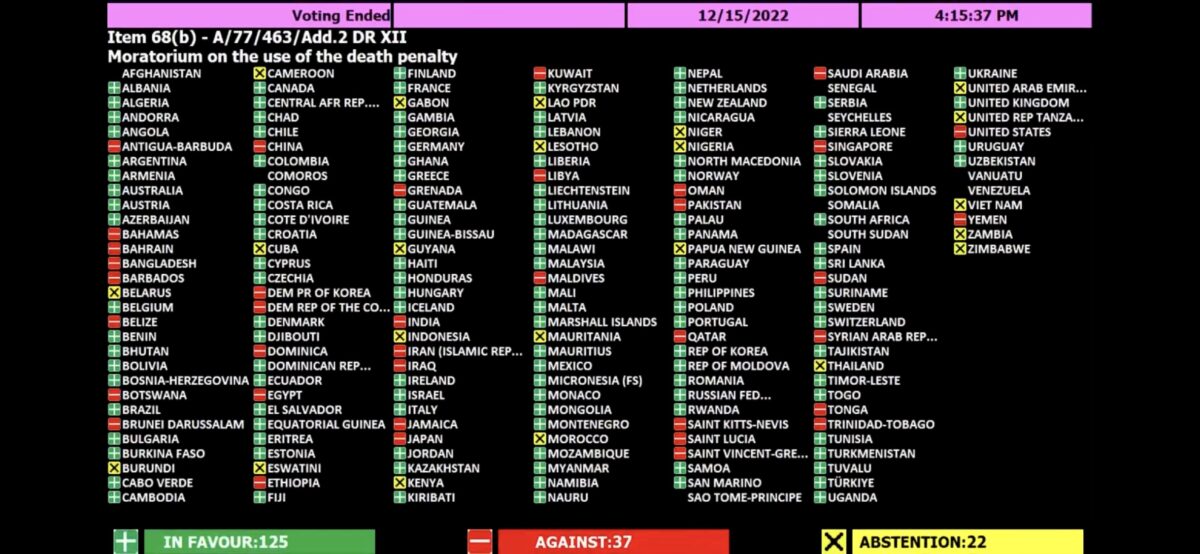
Article(s)
9e résolution pour un moratoire sur la peine de mort : une tendance croissante
By Coalition mondiale contre la peine de mort, on 20 December 2022
Le 15 décembre 2022, l’Assemblée générale des Nations unies a adopté la 9e résolution pour un moratoire sur l’application de la peine de mort avec 125 voix en faveur (2 de plus qu’en 2020), 37 voix contre, 22 abstentions et 9 absents.
2022
Moratorium

Article(s)
9th Resolution for a moratorium on the death penalty: the trend is growing
By World Coalition Against the Death Penalty, on 20 December 2022
On 15 December 2022, the United Nations General Assembly adopted the 9th resolution for a moratorium on the use of the death penalty with 125 votes in favor (2 more than in 2020), 37 votes against, 22 abstentions and 9 absent.
Moratorium
Trend Towards Abolition

Article(s)
Le 8 ème Congrès Mondial réaffirme l’importance d’une réflexion fondée sur le genre
By Coalition mondiale contre la peine de mort, on 16 December 2022
La 19e Journée Mondiale Contre la Peine de Mort a souligné les discriminations intersectionnelles auxquelles sont confrontées les femmes dans le processus judiciaire menant à la peine de mort, visibilisant une facette des liens existants entre la peine de mort et la discrimination fondée sur le genre.
2022
Gender

Article(s)
The 8th World Congress reaffirms the importance of gender-based discussions
By World Coalition Against the Death Penalty, on 16 December 2022
The 19th World Day Against the Death Penalty highlighted the intersectional discrimination that women face in the judicial process leading to the death penalty, making visible one facet of the links between the death penalty and gender discrimination.
Gender

Article(s)
35 منظمة غير حكومية تدعو جهات أممية إلى إدانة إعدامات المخدرات في السعودية والسعي لوقفها
By المنظمة الأوروبية السعودية لحقوق الإنسان, on 1 December 2022
دعت المنظمة الأوروبية السعودية لحقوق الإنسان، والمنظمة الدولية للحد من الأضرار، إلى جانب 33 منظمة غير حكومية أخرى، كل من الهيئة الدولية لمراقبة المخدرات ومكتب الأمم المتحدة المعني بالمخدرات والجريمة، إلى العمل على إجراءات عاجلة ردا على سلسلة عمليات الإعدام المتعلقة بتهم مخدرات والتي نفذتها المملكة العربية السعودية منذ 10 نوفمبر 2022.
2022
Drug Offenses
Saudi Arabia

Article(s)
Calling on international bodies to condemn drug executions in Saudi Arabia and seek to stop them
By European Saudi Organization for Human Rights, on 1 December 2022
The European Saudi Organization for Human Rights and Harm Reduction International, and the World Coalition Against the Death Penalty along with 32 other NGOs have called on the International Narcotics Control Board and the United Nations Office on Drugs and Crime to act on urgent measures in response to the series of drug-related executions carried […]
Drug Offenses
Saudi Arabia

Article(s)
Reflecting on the links between the death penalty and gender-based violence
By World Coalition Against the Death Penalty, on 25 November 2022
On 25 November 2022, International Day for the Elimination of Violence against Women, the World Coalition Against the Death Penalty, through the testimony of representatives of abolitionist member and partner organizations, wishes to raise awareness of the links between the death penalty and violence against women and gender minorities and call out the unjust and […]
2022
Gender
Kenya
Sri Lanka
Uganda
Women

Article(s)
Réflexion sur les liens entre peine de mort et violences fondées sur le genre
By Coalition mondiale contre la peine de mort, on 25 November 2022
En ce 25 novembre 2022, Journée internationale pour l’élimination de la violence à l’égard des femmes, la Coalition mondiale contre la peine de mort, à travers le témoignage de représentant·es d’organisations abolitionnistes membres et partenaires, souhaite visibiliser les liens entre peine de mort et violences faites aux femmes et aux minorités de genre et dénoncer […]
Gender
Kenya
Sri Lanka
Uganda
Women
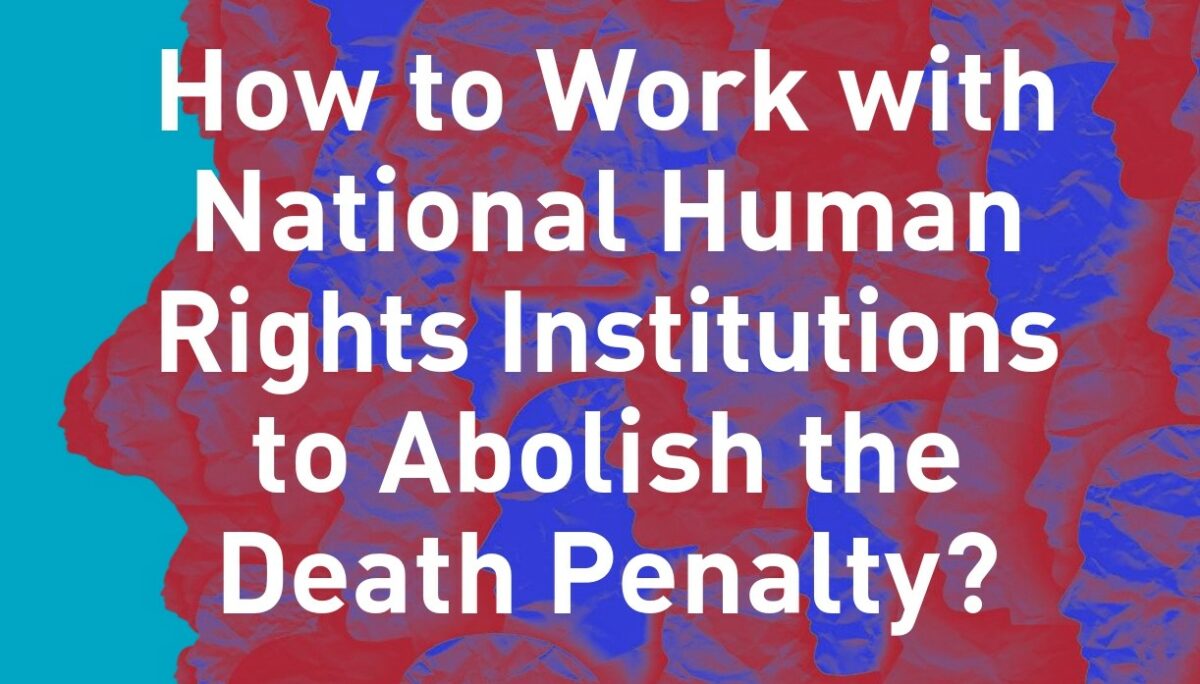
Article(s)
Publication of a New Guide on Working with National Human Rights Institutions to Abolish the Death Penalty
By Bronwyn Dudley, World Coalition Against the Death Penalty, on 17 November 2022
The World Coalition Against the Death Penalty has published a new how-to guide, in collaboration with Mr. Isidore Clément Capo-Chichi, President of the Beninese Commission on Human Rights. It is aimed for civil society organizations and illustrates how to collaborate with National Human Rights Institutions (NHRIs) to achieve the abolition of the death penalty. In […]
2022
Trend Towards Abolition
Document(s)
How to Work with National Human Rights Institutions to Abolish the Death Penalty – A Practical Guide
By World Coalition Against the Death Penalty, on 17 November 2022
Working with...
World Coalition
Trend Towards Abolition
frMore details Download [ pdf - 2375 Ko ]
National Human Rights Institutions (NHRIs) role as influential human rights actors is paramount, and as such their contributions to abolition of the death penalty should not be underestimated when developing an anti-death penalty strategy. Expertly written by the President of the of the Beninese Commission on Human Rights, this guide’s content has been bolstered by examples and advice coming from nongovernmental organizations (NGOs) in the field. Working with NHRIs can seem like a daunting task, especially for civil society organizations that do not have previous experience working with them. As such, this guide has been specifically designed for abolitionist civil society groups around the world, both beginners and advanced activists, with a focus on the African continent.
- Document type Working with... / World Coalition
- Themes list Trend Towards Abolition
- Available languages Comment travailler avec les institutions nationales des droits de l’homme pour abolir la peine de mort ?
Document(s)
Wrongful Convictions and the Death Penalty Guide
By The Death Penalty Project, on 1 November 2022
2022
NGO report
Fair Trial
More details See the document
One of the most compelling forces behind the evolution of international attitudes towards capital punishment in recent decades has been the increasing recognition of the potential for error in its use – that those states that choose to retain the practice may be taking the lives of innocent individuals. The Death Penalty Project produced this resource on wrongful convictions and the death penalty.
- Document type NGO report
- Themes list Fair Trial
Document(s)
Deterrence and the Death Penalty Guide
By The Death Penalty Project, on 1 November 2022
NGO report
Public Opinion
More details See the document
The most common justification for the retention of the death penalty among the minority of states that continue to sentence to death and execute individuals who are found guilty of committing certain serious offences is a belief that this punishment has a unique deterrent effect. The Death Penalty Project produced this resource on deterrence and the death penalty.
- Document type NGO report
- Themes list Public Opinion
Document(s)
Public Opinion and the Death Penalty Guide
By The Death Penalty Project, on 1 November 2022
NGO report
Public Opinion
More details See the document
When faced with calls to join the majority of states worldwide that have now abolished capital punishment, a key justification, typically relied upon by retentionist states, is that their citizens are not yet ready for abolition, and that political leaders must represent ‘the will of the people.’ The Death Penalty Project produced this resource on public opinion and the death penalty.
- Document type NGO report
- Themes list Public Opinion
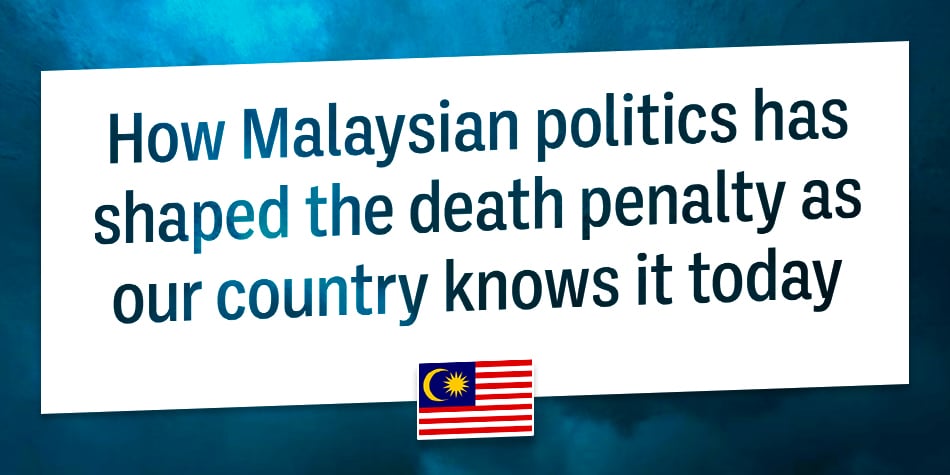
Article(s)
Malaysia and the Politics Behind the Death Penalty: A Tumultuous Relationship.
By Michelle Chew, on 24 October 2022
On 6 October 2022, the Malaysian government tabled bills abolishing the mandatory death penalty.
2022
Malaysia
Trend Towards Abolition

Article(s)
Abolition of the death penalty at the United Nations Human Rights Council 51st session
By World coalition against the death penalty, on 24 October 2022
The United Nations Human Rights Council met for its 51st regular session from September 12 to October 7, 2022. If you missed it, here is what happened regarding the abolition of the death penalty!
Trend Towards Abolition
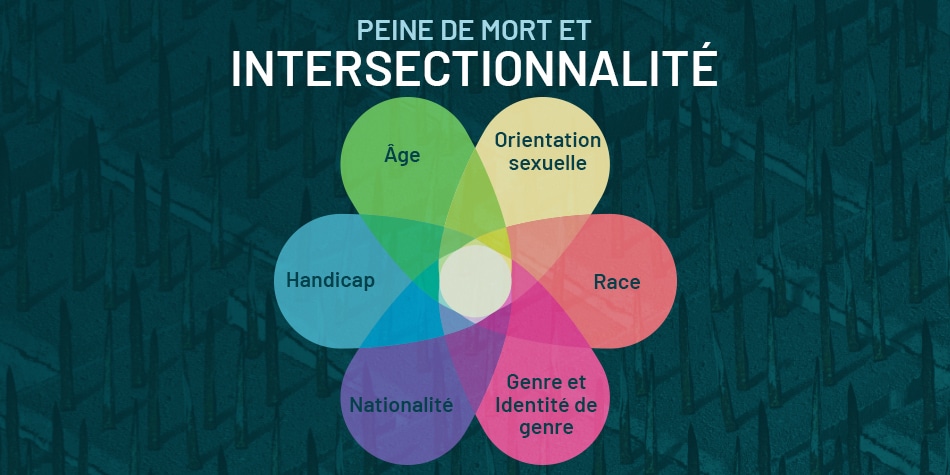
Article(s)
Déclaration commune sur la peine de mort et les droits des femmes et des personnes LGBTQIA+
By Coalition mondiale contre la peine de mort, on 10 October 2022
20 ème Journée Mondiale contre la Peine de Mort Pour ce 20-ème anniversaire de la Journée Mondiale contre la Peine de Mort dédiée à la réflexion sur le lien entre la torture et le recours à la peine de mort et en continuation de la Journée Mondiale contre la peine de mort de 2021 sur […]
2022
Cruel, Inhuman and Degrading Treatment and Punishment
Death Row Conditions
Fair Trial
Women
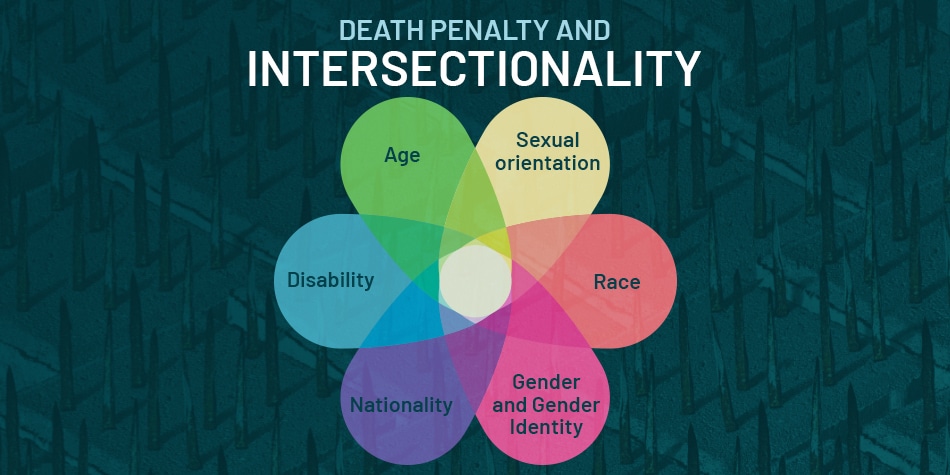
Article(s)
Joint statement on the death penalty and human rights of women and LGBTQIA+ individuals
By World Coalition Against the Death Penalty, on 10 October 2022
20th World Day against the Death Penalty On this 20th anniversary of the World Day Against the Death Penalty dedicated to the link between torture and the use of the death penalty and in continuation of the 2021 World Day Against the Death Penalty dedicated to women facing capital punishment, sentenced to death, executed, pardoned […]
Cruel, Inhuman and Degrading Treatment and Punishment
Death Row Conditions
Fair Trial
Women
Document(s)
Estimating the effect of death penalty moratoriums on homicide rates using the synthetic control method
By Stephen N. Oliphant, on 18 September 2022
2022
Academic report
Moratorium
United States
More details See the document
Research examining death penalty deterrence has been characterized as inconclusive and uninformative. The present analysis heeds a recommendation from prior research to examine single-state changes in death penalty policy using the synthetic control method. Data from the years 1979–2019 were used to construct synthetic controls and estimate the effects of death penalty moratoriums on homicide rates in Illinois, New Jersey, Washington, and Pennsylvania. Moratoriums on capital punishment resulted in nonsignificant homicide reductions in all four states.
- Document type Academic report
- Countries list United States
- Themes list Moratorium

Article(s)
Actúe en el Día mundial 2022 !
By World coalition against the death penalty, on 9 September 2022
EL 10 DE OCTUBRE 2022, ACTÚE CONTRA LA PENA DE MUERTE! El Día Mundial es una oportunidad para oponerse públicamente a la utilización de esta pena y para apoyar a aquellos que luchan por su abolición en el mundo. > Únase a los cientos de eventos en todo el mundo.
2022
Cruel, Inhuman and Degrading Treatment and Punishment
Cruel, Inhuman and Degrading Treatment and Punishment

Article(s)
Организация мероприятий: Всемирный день 2022
By Всемирная Коалиция против смертной казни, on 9 September 2022
10 ОКТЯБРЯ 2022Г. ВЫСТУПИТЕ ПРОТИВ СМЕРТНОЙ КАЗНИ! Принимайте участие в сотнях демонстраций, организованных по всему миру: Каким бы ни был ваш проект, Дебат, концерт, пресс-конференция, демонстрация, петиция, педагогическая и культурная деятельность и т.д. Свяжитесь с Всемирной коалицией, чтобы объявить о мероприятии, которое пройдет 10 октября.
Cruel, Inhuman and Degrading Treatment and Punishment

Article(s)
Agissez pour la Journée mondiale 2022 !
on 9 September 2022
Agissez maintenant ! Cette 20ème Journée mondiale est l’occasion idéale de s’opposer publiquement à l’utilisation de cette peine inhumaine, cruelle et dégradante et de soutenir ceux qui se battent pour son abolition dans le monde entier.
Cruel, Inhuman and Degrading Treatment and Punishment
Mouvement vers l'abolition

Article(s)
筹备活动: 世界反对死刑日2022
on 9 September 2022
2022年10月10日为第十三届世界反对死刑日,旨在提高公民意识,了解死刑从判决到执行整个过程的非人道。 2022年10月10日,一起行动起来反对死刑! 参加全球各地的几百项活动:
Cruel, Inhuman and Degrading Treatment and Punishment
Cruel, Inhuman and Degrading Treatment and Punishment

Article(s)
تنظيم الأحداث: اليوم العالمي لمناهضة عقوبة الإعدام 2022
on 9 September 2022
في 10 أكتوبر/تشرين الأول 2022،اعمل لمناهضة عقوبة الإعدام شارك في مئات الفعاليات المنظمة حول العالم مهما كان مشروعك: مناظرة، حفلة، مؤتمرا صحافيا، مظاهرة، عريضة، فعاليات تربوية وثقافية.اتصل بالتحالف العالمي، للإبلاغ عن الفعاليات التي نظمت في 10 أكتوبر/تشرين الأول
Cruel, Inhuman and Degrading Treatment and Punishment

Article(s)
Take Action for World Day 2022!
By World coalition against the death penalty, on 9 September 2022
Take action now! The 20th World Day Against the Death Penalty is an excellent opportunity to publicly oppose the use of this inhumane punishment and to support those who are fighting for its abolition all over the world. > Spread the word on Facebook, Twitter and Instagram: #nodeathpenalty > Find out more about the World […]
Cruel, Inhuman and Degrading Treatment and Punishment

Article(s)
تماس جهت پیشقدم شدن
on 9 September 2022
در 10 اکتبر2022 ، علیه مجازات اعدام اقدام نمایید! عضویت در صدها طرح های سازمان یافته در سراسر جهان هر برنامه ای که دارید بحث، کنسرت، کنفرانس های مطبوعاتی، تظاهرات ، طومار، فعابیتهای آموزشی و فرهنگی…با ائتلاف جهانی تماس بگیرید و در مورد رو
Cruel, Inhuman and Degrading Treatment and Punishment
Document(s)
AEDPA Repeal
By Brandon L. Garrett & Kaitlin Phillips, on 1 September 2022
2022
Academic report
Terrorism
United States
More details See the document
Given how pressing the problem has become, and the real interest in reforms to promote access to justice, this article takes a different tack than prior habeas reform work: to restore habeas corpus to its pre-AEDPA and pre-Rehnquist court state, in which a federal court can review claims and reach their merits. The approach would preserve flexibility at the district court level and remove the many layers of procedural complexity that the Supreme Court and then Congress have erected. We believe that deep changes are needed, and in that, we agree with judges and scholars that have for some time proposed such changes in the writ. As we describe, AEDPA was enacted as a culmination of more than two decades of complex Supreme Court law that had already limited access to federal habeas corpus. While AEDPA incorporated some of those procedural rulings, the concern would be that should AEDPA be repealed, even in part, those court-made restrictions could be interpreted to supplant AEDPA restrictions. Clear statutory language will be needed to ensure that the Court does not frustrate Congress, as it has in the past, by supplementing statutory text in order to limit constitutional remedies. We do not mean to suggest that the various proposals set out here are exhaustive. Our goal is to promote careful considerations of alternatives to the present-day set of federal habeas corpus statutes and accompanying judicial interpretation.
- Document type Academic report
- Countries list United States
- Themes list Terrorism
Document(s)
The Modern Federal Death Penalty: A Cruel and Unusual Penalty
By Hannah Freedman, on 1 September 2022
Academic report
Cruel, Inhuman and Degrading Treatment and Punishment
United States
More details See the document
The federal death penalty today would be unrecognizable to the founders, who saw the ultimate penalty as a means of protecting sovereign interests and who therefore carefully guarded the practice at English common law of yielding national interests to local ones. Over the course of time, the geographic distribution and substantive basis for the penalty changed, but until the modern era, its underlying purpose did not. As the Trump era executions made painfully clear, however, the federal death penalty today is different. It is disproportionately imposed for crimes that could have readily been prosecuted by other jurisdictions and that have little obvious connection to federal sovereignty, and it is disproportionately imposed against non-white people. By any rational measure, it is vanishingly rare, and it serves no valid penological goal. Simply put, federal death sentences today are, in most cases, “cruel and unusual in the same way that being struck by lightning is cruel and unusual.”
- Document type Academic report
- Countries list United States
- Themes list Cruel, Inhuman and Degrading Treatment and Punishment
Document(s)
Little Furmans Everywhere: State Court Intervention and the Decline of the American Death Penalty
By Carol S. Steiker & Jordan M. Steiker, on 1 September 2022
Academic report
Trend Towards Abolition
United States
More details See the document
This article retraces the evolution and recent decline of death peanlty in the United States, notablt through state court interventions. These dynamics between judicial and political action illuminate the importance of state court intervention in the story of the American death penalty’s precipitous decline, which has tended to foreground other institutional actors and to neglect the complex interactions among branches of government. State judicial rulings, though often highly technical and, therefore, less visible and accessible to the public, have been a pervasive and powerful force in the two-decade-long diminution of the practice of capital punishment across the United States.
- Document type Academic report
- Countries list United States
- Themes list Trend Towards Abolition
Document(s)
Ghosts of Executions Past: A Case Study of Executions in South Carolina in the Pre-Furman Era
By John H. Blume, Samuel F. Leibowitz, on 1 September 2022
Academic report
Cruel, Inhuman and Degrading Treatment and Punishment
United States
More details See the document
The protracted and (somewhat) ongoing debate over whether lethal injection—in some or all of its forms—is cruel and unusual punishment under the Eighth Amendment is the newest variation on the question of whether a particular form of capital punishment is inhumane and cruel. The history of capital punishment in the United States over the last two centuries has been punctuated by attempts to find less painful and gruesome ways to kill persons society has condemned to die. Ironically, at least from a historical perspective, some recent executions have seen condemned inmates or their attorneys elect some of the older methods, i.e., electrocution, or offer, as a potentially less painful alternative, the firing squad or death by lethal gas. And some states, including the main subject of this article, have resurrected electrocution and the firing squad because of a claimed inability or difficulty in obtaining execution drugs. In this article, the authors trace the history of execution methods in the pre-modern era of capital punishment (before 1972), primarily in South Carolina, pointing out the often-intractable problems with their implementation process (including specific “botches”), and then address other aspects of executions that have relevance to the current debate about the wisdom and efficacy of retaining the “modern” American death penalty in the twenty-first century.
- Document type Academic report
- Countries list United States
- Themes list Cruel, Inhuman and Degrading Treatment and Punishment

Article(s)
Déclaration sur la fin du moratoire non-officiel sur les exécutions au Myanmar
on 11 August 2022
La Coalition mondiale contre la peine de mort, et ACAT-Allemagne (et leur organisation partenaire Federal Association of Vietnamese Refugees in the Federal Republic of Germany), ACAT-France, Amnesty International, Anti-Death Penalty Asia Network (ADPAN), Avocats Sans Frontières France, Centre for Civil and Political Rights, Citizens United for Rehabilitation of Errants (CURE International), Coalition Marocaine Contre la […]
2022
Moratorium
Myanmar

Article(s)
Statement on the end of the unofficial moratorium on executions in Myanmar
By the World Coalition Against the Death Penalty, on 11 August 2022
The World Coalition Against the Death Penalty, and ACAT-France, ACAT-Germany (and their partner organization Federal Association of Vietnamese Refugees in the Federal Republic of Germany), Amnesty International, Anti-Death Penalty Asia Network (ADPAN), Avocats Sans Frontières France, Centre for Civil and Political Rights, Citizens United for Rehabilitation of Errants (CURE International), Coalition Marocaine Contre la Peine […]
Moratorium
Myanmar
Document(s)
Philippines – Committee on the Elimination of Discrimination Against Women – Death Penalty – June 2022
on 21 July 2022
2022
NGO report
Philippines
Women
More details Download [ pdf - 443 Ko ]
The Government of the Philippines has taken commendable steps toward protecting and promoting the rights of women overseas Filipino workers (OFWs), but those workers remain vulnerable to exploitation and abuse, and when they come into conflict with the law in their host countries, their vulnerabilities are compounded by linguistic and legal barriers, as well as judicial systems which fail to account for the gendered context in which they allegedly committed criminal acts. The Government of the Philippines should do more to ensure protection of the rights of these women OFWs, particularly when they are at risk of being sentenced to death.
- Document type NGO report
- Countries list Philippines
- Themes list Women
Document(s)
Tunisia – Committee Against Torture (LOIPR) – Death Penalty – June 2022
on 21 July 2022
NGO report
World Coalition
Cruel, Inhuman and Degrading Treatment and Punishment
Tunisia
More details See the document
Tunisia carried out its last execution in 1991, over 30 years ago. Despite this de facto moratorium on executions, Tunisian courts continue to sentence people to death. Courts sentence people to death every year for a variety of crimes, especially terrorism. The current administration is undoing many of the positive changes to the Tunisian judicial system brought about by the 2011 revolution, and public opinion is divided over whether to move forward with abolition, maintain the status quo, or even resume executions, a course of action that some politicians and officials within the government support. Tunisia continues to support the UN resolutions aiming to establish a global moratorium on executions but has refused to ratify the Second Optional Protocol to the International Covenant on Civil and Political Rights.
This report recommends that Tunisia maintain its commitment to the UN moratorium and move to ratify the Second Optional Protocol, while also working to restore the independence of its judiciary and reducing the total number of crimes punishable by death in the short term. In the long-term Tunisia should completely and unconditionally abolish the death penalty.
- Document type NGO report / World Coalition
- Countries list Tunisia
- Themes list Cruel, Inhuman and Degrading Treatment and Punishment
Document(s)
Maldives – Committee Against Torture (LOIPR) – Death Penalty – June 2022
By The Maldivian Democracy Network (MDN) , on 21 July 2022
NGO report
World Coalition
Cruel, Inhuman and Degrading Treatment and Punishment
Maldives
More details Download [ pdf - 1443 Ko ]
This report addresses the Maldives’ compliance with its human rights obligations with respect to the death penalty. Despite its long-standing, de facto moratorium on executions, the Maldives sentenced two people to death in 2019, after sentencing no one to death in 2018.[1] At the end of 2019, there were 19 people on death row in the Maldives – three of whom had exhausted their appeals and five of whom were juveniles when the crime was committed.[2] The Maldives sentenced another individual to death in 2022, which represented the first time the country sentenced a foreign national to death.[3] The continued use of the death penalty in sentencing is particularly concerning given evidence of due process violations, including the use of torture to obtain confessions, the lack of effective and accessible complaint mechanisms for detained individuals, the lack of an independent judiciary, and the use of the death penalty as a sentence for crimes committed by juveniles.
- Document type NGO report / World Coalition
- Countries list Maldives
- Themes list Cruel, Inhuman and Degrading Treatment and Punishment
Document(s)
DPIC Special Report: The Innocence Epidemic
By Death Penalty Information Center, on 20 July 2022
2022
NGO report
Innocence
United States
More details See the document
A Death Penalty Information Center Analysis of 185 Death-Row Exonerations Shows Most Wrongful Convictions Are Not Merely Accidental.
- Document type NGO report
- Countries list United States
- Themes list Innocence
Document(s)
Government Misconduct and Convicting the Innocent, The Role of Prosecutors, Police and Other Law Enforcement
By Samuel R. Gross, Maurice J. Possley, Kaitlin Jackson Roll, Klara Huber Stephens , on 20 July 2022
Academic report
Innocence
More details See the document
This is a report about the role of official misconduct in the conviction of innocent people. We
discuss cases that are listed in the National Registry of Exonerations, an ongoing online archive
that includes all known exonerations in the United States since 1989, 2,663 as of this writing.
This Report describes official misconduct in the first 2,400 exonerations in the Registry, those
posted by February 27, 2019
- Document type Academic report
- Themes list Innocence
Document(s)
European Court for Human Rights cases involving the death penalty
By European Court for Human Rights Press Unit, on 24 June 2022
2022
International law - Regional body
Regional body report
Cruel, Inhuman and Degrading Treatment and Punishment
Death Row Conditions
Fair Trial
More details See the document
“[T]he [European Court of Human Rights] in Öcalan did not exclude that Article 2 [of the European Convention on Human Rights, protecting the right to life,] had already been amended so as to remove the exception permitting the death penalty. Moreover, … the position has evolved since then. All but two of the Member States have now signed Protocol No. 13 [to the Convention, concerning the abolishment of the death penalty in all circumstances,] and all but three of the States which have signed have ratified it. These figures, together with consistent State practice in observing the moratorium on capital punishment, are strongly indicative that Article 2 has been amended so as to prohibit the death penalty in all circumstances. Against this background, the Court does not consider that the wording of the second sentence of Article 2 § 1 continues to act as a bar to its interpreting the words ‘inhuman or degrading treatment or punishment’ in Article 3 [of the Convention, prohibiting torture and inhuman or degrading treatment,] as including the death penalty …” (Al-Saadoon and Mufdhi v. the United Kingdom judgment of 2 March 2010, § 120).
- Document type International law - Regional body / Regional body report
- Themes list Cruel, Inhuman and Degrading Treatment and Punishment / Death Row Conditions / Fair Trial

Article(s)
Les projets d’exécutions arbitraires au Myanmar doivent être arrêtés immédiatement.
By Coalition mondiale contre la peine de mort, on 23 June 2022
Les organisations soussignées sont gravement préoccupées par la récente annonce des autorités militaires du Myanmar selon laquelle les condamnations à mort prononcées à l’encontre de quatre personnes à l’issue de procédures manifestement inéquitables ont été approuvées en vue d’être mises en œuvre.
2022
Cruel, Inhuman and Degrading Treatment and Punishment
Fair Trial
Legal Representation
Myanmar

Article(s)
Plans to carry out arbitrary executions in Myanmar must halt immediately
By World Coalition Against the Death Penalty , on 23 June 2022
The undersigned organizations are gravely concerned at the recent announcement by the military authorities of Myanmar that the death sentences imposed on four people after grossly unfair proceedings have been approved for implementation.
Cruel, Inhuman and Degrading Treatment and Punishment
Fair Trial
Legal Representation
Myanmar
Document(s)
The Death Penalty in Kenya: A Punishment that has Died Out in Practice, Part Two – Overwhelming Support for Abolition Among Opinion Leaders
on 15 June 2022
2022
NGO report
Kenya
Public Opinion
More details See the document
In 2021, The Death Penalty Project and the Kenya National Commission on Human Rights, in partnership with the Australian National University commissioned Prof. Carolyn Hoyle, Director of The Death Penalty Research Unit, at the University of Oxford, to undertake research in order to provide accurate data on attitudes towards the death penalty in Kenya and facilitate a constructive conversation on the future of capital punishment. The research examined the views of both the general public in Kenya and also opinion formers, those considered influential in shaping, and responding to, national views.
Key findings :
– The vast majority of opinion formers that took part in the interviews were in favour of abolishing the death penalty.
– 90% of opinion formers were in favour of abolishing the death penalty
– 82% of opinion formers were strongly in favour of of abolishing the death penalty
– Most of the opinion formers interviewed were very well informed on the administration of the death penalty in Kenya.
– Across both groups there were concerns around the possibility that innocent people could be sentenced to death.
– 88% of opinion formers believe wrongful convictions occur fairly regularly
– 93% of opinion formers thought Kenya should be influenced by high rates of abolition around the world
– Opinion formers believed that 75% of the public would accept abolition of the death penalty, despite initial reservations.
- Document type NGO report
- Countries list Kenya
- Themes list Public Opinion
Document(s)
The Death Penalty in Kenya: A Punishment that has Died Out in Practice, Part One – A Public Ready to Accept Abolition
on 15 June 2022
NGO report
Kenya
Public Opinion
More details See the document
In 2021, The Death Penalty Project and the Kenya National Commission on Human Rights, in partnership with the Australian National University commissioned Prof. Carolyn Hoyle, Director of The Death Penalty Research Unit, at the University of Oxford, to undertake research in order to provide accurate data on attitudes towards the death penalty in Kenya and facilitate a constructive conversation on the future of capital punishment. The research examined the views of both the general public in Kenya and also opinion formers, those considered influential in shaping, and responding to, national views.
Key findings:
– 40% in favour of abolishing the death penalty, 10% did not know either way
– 51% in favour of retaining the death penalty, only 32% strongly in favour
– Those against the death penalty believed that criminals deserved the opportunity for rehabilitation.
– Knowledge of the death penalty appears to be limited, just 66% were aware Kenya retains the death penalty and just 21% knew no executions had take place in the past 10 years
– The public expressed concerns around the possibility that innocent people could be sentenced to death: 61% of the public – including retentionists – thought that ‘many’ or ‘some’ innocent people have been sentenced to death in Kenya; only 8% thought that ‘no innocent people have been sentenced to death’
– Public support fell from 51% to 31% when considering abolition in the region
59% of the public, who were initially in favour of retention, said that they would accept a new policy of abolition
- Document type NGO report
- Countries list Kenya
- Themes list Public Opinion
Document(s)
2021 World Day Report
on 10 June 2022
2022
World Coalition
Women
frMore details Download [ pdf - 4154 Ko ]
On 10 October 2021, the World Coalition and abolitionists around the world celebrated the 19th World Day Against the Death Penalty (‘World Day’). Every year on World Day, the World Coalition highlights one problematic aspect of the Death Penalty. In 2021, the World Day explored the theme “Women sentenced to death, an invisible reality” to raise awareness on how the treatment of gender and gender-based inequalities create particularly precarious conditions for women sentenced to capital punishment. This report presents the activities organised for the 19th World Day and the media coverage it received.
- Document type World Coalition
- Themes list Women
- Available languages Rapport journée mondiale 2021
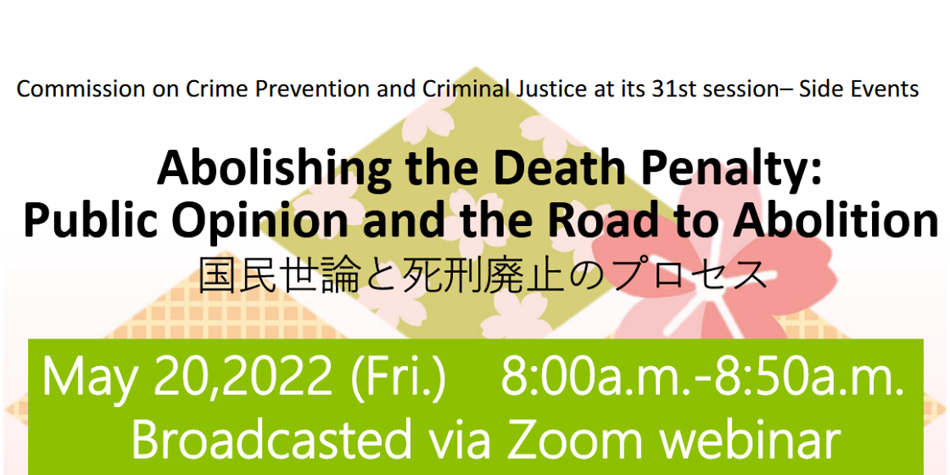
Article(s)
L’opinion publique en soutien à l’abolition
By Sarah Saint-Sorny, on 10 June 2022
La 31ème Session de la Commission sur la Prévention du Crime et la Justice Criminelle de l’ONUDC s’est tenue à Vienne du 16 au 20 mai 2022. A cette occasion, la Japan Federation of Bar Associations a organisé un évènement parallèle : « Abolir la peine de mort : opinion publique et chemin vers l’abolition », qui s’est tenu […]
France
Japan
Public Opinion
United States

Article(s)
Public opinion supportive of the abolition
By Sarah Saint-Sorny, on 10 June 2022
The 31st Session of the Commission on Crime Prevention and Criminal Justice of the ODC took place in Vienna from the 16th to the 20th of May 2022. At this occasion, the Japan Federation of Bar Associations organized a side-event: “Abolishing the Death Penalty: Public Opinion and the Road to Abolition”, which was held online […]
France
Japan
Public Opinion
United States
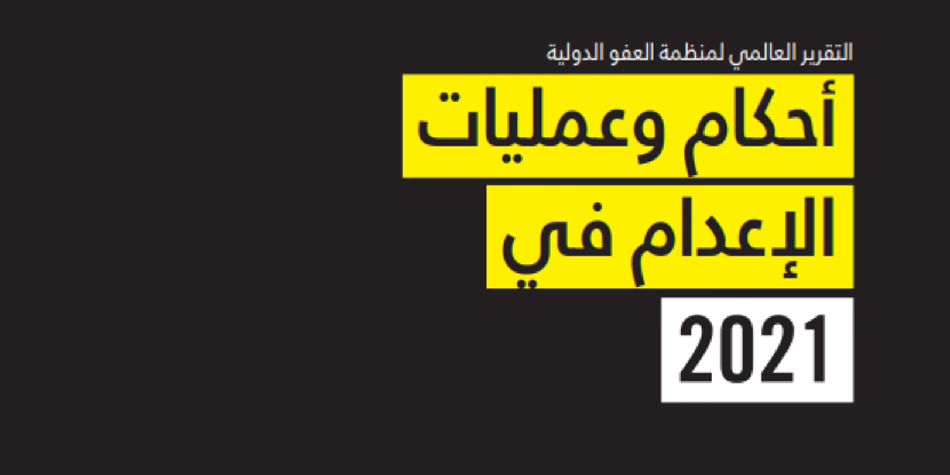
Article(s)
عقوبة الإعدام في 2021
By Amnesty International, on 9 June 2022
عقوبة الإعدام في 2021 سجلت منظمة العفو الدولية 579 إعداماً في 18 بلداً في عام 2021، بزيادة قدرها 20 في المئة عن 483 عملية إعدام مسجلة في عام 2020. على الرغم من هذه الزيادات، فإن رقم عمليات الإعدام العالمية لعام 2021 يشكل ثاني أدنى رقم سجلته منظمة العفو الدولية منذ عام 2010، على الأقل. للعام […]
2022
Death Row Conditions
Death Row Conditions
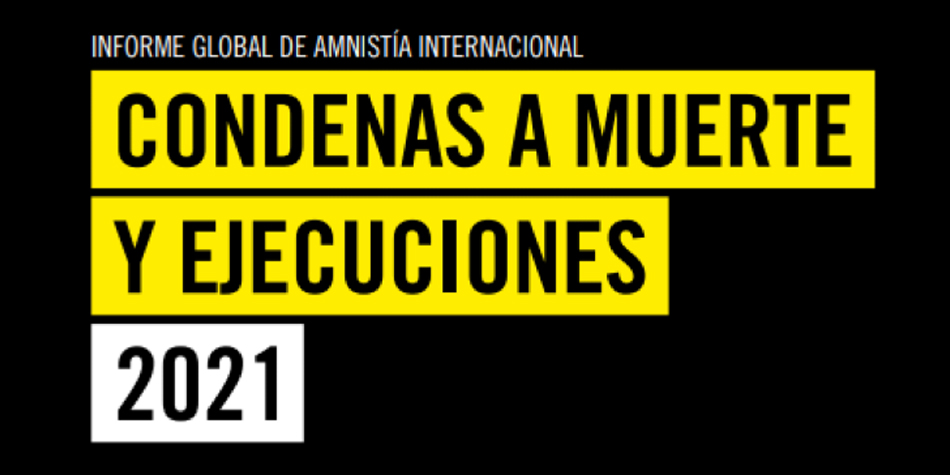
Article(s)
Aumentan las ejecuciones, pero se avanza hacia la abolición en 2021
By Amnesty International, on 9 June 2022
El 24 de mayo, Amnistía Internacional publicó su informe anual sobre el uso de la pena de muerte en el mundo, que muestra el número total de condenas y ejecuciones en 2021. En 2021, Amnistía Internacional registró 579 ejecuciones repartidas en 18 países, lo que supuso un incremento del 20% respecto a las 483 ejecuciones […]
Death Row Conditions
Death Row Conditions
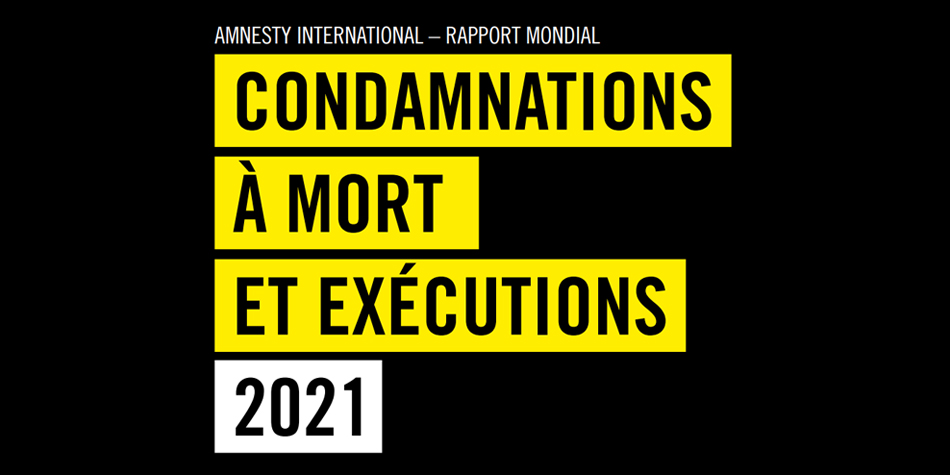
Article(s)
Augmentation des exécutions, mais avancées en faveur de l’abolition en 2021
By Amnesty International, on 9 June 2022
Le 24 mai, Amnesty International a publié son rapport annuel sur le recours à la peine de mort dans le monde, qui indique le nombre total de condamnations et d’exécutions en 2021. Amnesty International a enregistré 579 exécutions dans 18 pays en 2021, ce qui représente une augmentation de 20 % par rapport aux 483 exécutions recensées 2020. Malgré ces augmentations, le nombre total […]
Death Row Conditions
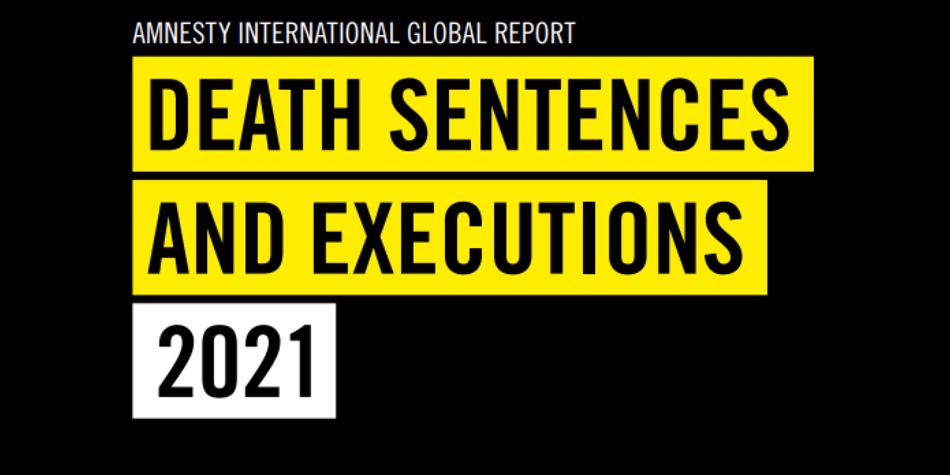
Article(s)
Executions on the rise, but progress toward abolition in 2021
By Amnesty International, on 9 June 2022
On 24 May, Amnesty International published their annual report on the global use of the death penalty, which shows the overall sentences and executions in 2021 Global figures Amnesty International recorded 579 executions in 18 countries in 2021, an increase of 20% from the 483 recorded in 2020. Despite these increases, the 2021 global executions figure constitutes the second-lowest figure recorded […]
Death Row Conditions
Trend Towards Abolition
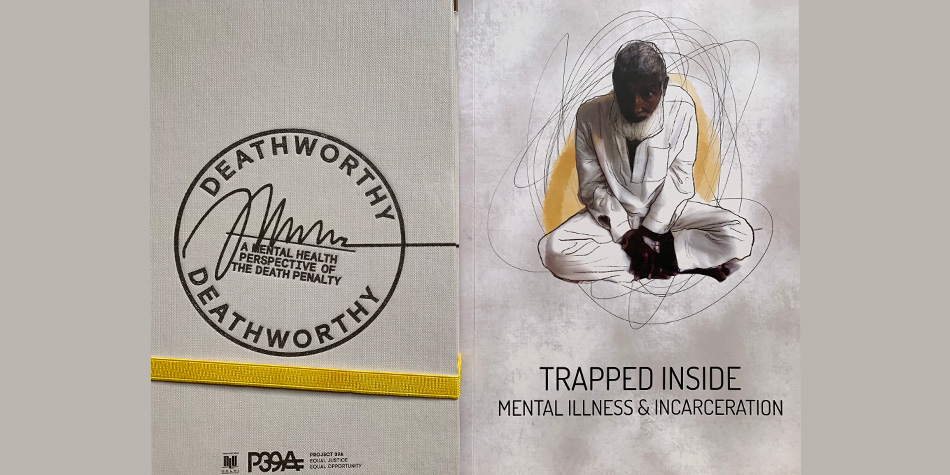
Article(s)
Plus de 8 000 personnes dans les couloirs de la mort en Asie du Sud
By Aurélie Plaçais, directrice, on 3 May 2022
Avec peu d’exécutions mais l’un des plus grands couloirs de la mort au monde, l’Asie du Sud est à la croisée des chemins. Des publications récentes explorent la santé mentale des personnes condamnées à mort et leur contexte social et économique au Bangladesh, en Inde, aux Maldives, au Pakistan et au Sri Lanka.
2022
Bangladesh
Death Row Conditions
Death Row Conditions
India
Mental Illness
Maldives
Mental Illness
Pakistan
Sri Lanka

Article(s)
Over 8,000 people on death row in South Asia
By Aurelie Placais, staff, on 3 May 2022
With few executions but one of the biggest death rows in the world, South Asia is at a crossroad. Recent publications explore mental health on death row and social and economic background of people sentenced to death in Bangladesh, India, the Maldives, Pakistan and Sri Lanka.
Bangladesh
Death Row Conditions
India
Maldives
Mental Illness
Pakistan
Sri Lanka
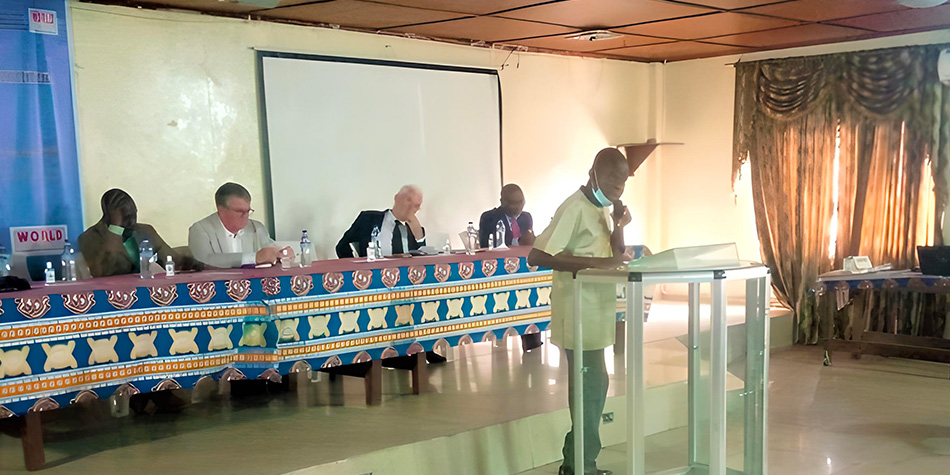
Article(s)
Liberian Civil Society Organize to Push for Abolition
By Rescue Alternatives Liberia and the World Coalition Against the Death Penalty, on 29 April 2022
On 12 April 2022, Rescue Alternatives Liberia (RAL) orchestrated a one-day forum on abolition in Liberia with the support of the World Coalition Against the Death Penalty. The outcomes of this event were very promising, and time will tell if abolition in Liberia is near.
2022
Liberia
Public Opinion
Document(s)
Compendium of case law of the European Court of Human Rights on the death penalty and extrajudicial execution
By Jeremy McBride, Council of Europe, on 24 April 2022
2022
International law - Regional body
Legal Representation
More details See the document
The compendium’s aim is to assist national judges, prosecutors and lawyers from the 46 member states of the Council of Europe to deal with extradition or deportation cases when there is a risk of the death penalty being imposed in third countries or of extrajudicial execution. It also aims at enabling legal professionals from countries where the death penalty still exists to develop arguments based upon the reasoning of the case law of the European Court of Human Rights. It contains relevant extracts from the Court’s case law, structured in a user-friendly way.
- Document type International law - Regional body
- Themes list Legal Representation
Document(s)
Living Under Sentence of Death
on 22 April 2022
2022
Academic report
NGO report
Bangladesh
Death Row Conditions
More details See the document
In 2019-20, The Department of Law at the University of Dhaka, in collaboration with the Bangladesh Legal Aid and Services Trust (BLAST) and The Death Penalty Project, conducted a study to investigate socio-economic characteristics and experiences of death row prisoners in Bangladesh.
Bangladesh continues to retain and implement the death penalty, with several executions taking place each year. Excluding laws relating to the defence forces and international crimes, there are currently 33 crimes punishable by death. 25 of these offences are non-lethal and arguably do not meet the threshold of the ‘most serious crimes’ under international law.
Inspired by similar studies in other countries, a pilot study was commissioned to examine the demographics and experiences of those sentenced to death. Consistent with those studies around the world, our findings evidence that the death penalty in Bangladesh is disproportionately used against the most vulnerable and marginalised sections of society.
72% of prisoners were classified as economically vulnerable
53% of prisoners were in low-paid work or unemployed
87% of prisoners had no qualifications beyond secondary school level
15% of prisoners had no formal education.
The study also raised serious concerns around the treatment of prisoners, the length of time prisoners spent in prison under the sentence of death and the integrity of criminal investigations and trial.
33% of prisoners’ families alleged their relative had been tortured in police custody, 5% suspected this and 15% refused to comment
60% of respondents were not satisfied with the trial process, with some claiming that the courts had failed to properly appreciate the evidence
On average it took over 10 years for death row cases to be disposed by the HCD (where sentences are confirmed). Prolonged time spent in isolation on death row, has been declared inhumane and degrading in many countries.
The sample consisted of 39 individuals on death row, evidence from their case files and face-to-face interviews with their families were conducted under rigorous ethical guidelines to reveal their profiles and experiences. Despite its small size, the sample is indicative of the general prison population allowing us to draw conclusions on possible trends.
- Document type Academic report / NGO report
- Countries list Bangladesh
- Themes list Death Row Conditions

Article(s)
Saudi Arabian Mass execution of 81 men
By Anissa Aguedal, World Coalition Against the Death Penalty, on 4 April 2022
Saudi Arabia: the largest mass execution in this country in years The kingdom of Saudi Arabia executed 81 men on March 12, 2022, all of whom had been convicted of a wide range of offences, including “terrorism”- related crimes, murder, armed robbery, and arms smuggling. Those put to death included seven Yemenis, one Syrian and […]
2022
Moratorium
Public Opinion
Saudi Arabia
Document(s)
Trapped Inside: Mental Illness & Incarceration
on 25 March 2022
2022
NGO report
Mental Illness
Pakistan
More details See the document
Pakistan’s criminal justice system fails to provide meaningful protection to persons suffering from mental illness at all stages of arrest, trial, sentencing and detention. Under Pakistani law, a person of unsound mind is unable to form criminal intent and therefore is not subject to punishment. Despite this, a disproportionate number of mentally ill prisoners are currently in Pakistan’s jails and on death row.
In light of the above, JPP, in collaboration with Monash University Australia, is launching a report titled “Trapped Inside: Mental Illness & Incarceration”, a comprehensive review of Pakistani law and practice with regards to mentally ill prisoners and defendants. This report seeks to help relevant stakeholders to better understand and respond appropriately to the mental health needs of individuals across the criminal justice system. It focuses on the steps stakeholders can take to promote and protect mental health and well-being of individuals at each stage. The report also explores last year’s landmark ‘Safia Bano’ judgement by Pakistan’s Supreme Court, which commuted the death sentences of two mentally ill death row prisoners, banned the execution of prisoners with psycho-social disabilities and set key safeguards for the same.
- Document type NGO report
- Countries list Pakistan
- Themes list Mental Illness
Document(s)
Legislators’ Opinions on the Death Penalty in Taiwan
on 24 March 2022
2022
NGO report
Public Opinion
Taiwan
zh-hantMore details See the document
In 2021, The Death Penalty Project and the Taiwan Alliance to End the Death Penalty (TAEDP) commissioned Professor Carolyn Hoyle at the University of Oxford and Professor Shiow-duan Hawang at Soochow University, Taipei to carry out a study exploring Taiwanese legislators’ attitudes towards capital punishment.
The study reveals that the majority of Taiwan’s legislators would like to see the death penalty abolished. The risk of wrongful convictions, the abuse of human rights and a recognition that the death penalty has no unique deterrent effect, were the primary reasons cited for supporting abolition. Additionally, a majority of legislators interviewed expressed fairly low levels of trust in the Taiwanese criminal justice system, with doubts raised over its ability to offer adequate safeguards to individuals facing capital trials.
Key findings:
– 61% of legislators interviewed are in favour of abolishing the death penalty
– 39% of legislators interviewed are in favour of retaining the death penalty, but only one legislator was strongly in favour
– 71% of retentionists and 65% of abolitionists asserted that wrongful convictions ‘sometimes’ occurred
– Only 11% of legislators interviewed thought that wrongful convictions ‘rarely’ occur
– All legislators interviewed expressed a preference for social justice measures, such as poverty reduction, over increased executions when asked to rank a range of policies aimed at reducing violent crime
- Document type NGO report
- Countries list Taiwan
- Themes list Public Opinion
- Available languages 台灣立法委員對死刑 之意見調查
Document(s)
The Clemency Process in East and Southeast Asia
on 22 March 2022
2022
NGO report
China
Clemency
Indonesia
Japan
Malaysia
Singapore
Taiwan
Thailand
Viet Nam
More details Download [ - 0 Ko ]
In this report, we summarise the current international position on clemency and the death penalty and compare it to snapshots of the clemency processes in the following Southeast and East Asian countries: Thailand, Malaysia, Singapore, Indonesia, Vietnam, Japan, Taiwan, and China. All references to clemency in this paper are in the context of reprieve from the death penalty.
- Document type NGO report
- Countries list China / Indonesia / Japan / Malaysia / Singapore / Taiwan / Thailand / Viet Nam
- Themes list Clemency
Document(s)
Death Penalty For Drug Offences: Global Overview 2021
on 21 March 2022
2022
NGO report
Drug Offenses
More details See the document
Harm Reduction International has monitored the use of the death penalty for drug offences worldwide since our first ground-breaking publication on this issue in 2007. This report, our eleventh on the subject, continues our work of providing regular updates on legislative, policy and practical developments related to the use of capital punishment for drug offences, a practice which is a clear violation of international law.
The Death Penalty for Drug Offences: Global Overview 2021 found that: 1) 35 countries still retain the death penalty for drug offences 2) At least 131 people were executed for drug offences in 2021 – a 336% increase from 2020. However, due to a severe lack of transparency, if not outright censorship, this is only a partial picture. This figure likely represents only a fraction of all drug-related executions carried out globally.
- Document type NGO report
- Themes list Drug Offenses
Document(s)
Cuba – Committee Against Torture – Death Penalty – March 2022
on 21 March 2022
NGO report
World Coalition
Cruel, Inhuman and Degrading Treatment and Punishment
Cuba
More details Download [ pdf - 250 Ko ]
Cuba has maintained a de facto moratorium on the imposition of the death penalty since its last reported execution in 2003. In 2010, Cuba’s Supreme Court commuted the death sentence of Cuba’s last remaining death row inmate. As of the date of this report, there is no record of an individual currently sentenced to death. Although a de facto moratorium is in place, Cuba has not committed to a de jure abolition of the death penalty, citing national security concerns.
- Document type NGO report / World Coalition
- Countries list Cuba
- Themes list Cruel, Inhuman and Degrading Treatment and Punishment
Document(s)
Kenya – Committee Against Torture – Death Penalty – March 2022
on 18 March 2022
2022
NGO report
World Coalition
Cruel, Inhuman and Degrading Treatment and Punishment
More details Download [ pdf - 393 Ko ]
Kenya has not carried out any executions since the late 1980s. Nonetheless, Kenya continues to hand down the death penalty as a sentence in criminal cases. Accordingly, this report recommends that the Committee Against Torture recommend that Kenya formally abolish the death penalty, commute the sentences of all persons on death row, and revise laws to remove capital punishment from the list of principal sentences. Kenya should further take steps to prohibit introduction of evidence obtained through torture and ill-treatment in criminal proceedings and to ensure that all persons at risk of being sentenced to death have access to well-qualified legal counsel with adequate funding for a thorough pre-trial investigation. Kenya should ensure that no person is removed to a country where they may be at risk of being sentenced to death, and should take concrete steps to ensure that conditions of detention for persons under sentence of death comply with the Nelson Mandela Rules.
- Document type NGO report / World Coalition
- Themes list Cruel, Inhuman and Degrading Treatment and Punishment

Article(s)
Middle East and North Africa: Abolitionist civil societies in full swing despite a difficult context
By Aurelie Placais, World Coalition Against the Death Penalty, on 15 February 2022
On the occasion of the publication of the Human Rights Watch World Report 2022, the World Coalition looks back at recent developments and civil society mobilization against the death penalty in the Arab world.
2022
Bahrain
Egypt
Fair Trial
Iraq
Moratorium
Morocco
Saudi Arabia
State of Palestine
Terrorism
Tunisia

Article(s)
The Status Quo of China’s Death Penalty and the Civil Society Abolitionist Movement
By China Against the Death Penalty, on 15 February 2022
Translation of an article on the death penalty in China for the Beijing Olympics 2022, initially published by Taiwan Alliance to End the Death Penalty in October 2021 for World Day.
China
Legal Representation
Document(s)
Malawi – Committee on the Elimination of Discrimination Against Women – Death Penalty – January 2022
on 31 January 2022
2022
NGO report
World Coalition
Malawi
Women
More details Download [ pdf - 311 Ko ]
Detention conditions for women in Malawi are crowded, and women in prisons are not given adequate food and nutrition. Specifically, many prisons only serve people with one meal a day, often consisting of a maize meal (nsima) and peas or beans. Overcrowded conditions are a particular concern during the COVID-19 pandemic, when risk of transmission of the disease is high. Prison conditions in Malawi amount to inhuman and degrading treatment.
Women in death penalty proceedings in Malawi lack access to qualified legal representation. Defense advocates in Malawi who are assigned to capital cases often lack relevant experience. In at least one case, a lawyer failed to raise the complete defense of self-defense in representing a woman who killed her husband as a result of a long history of domestic abuse. Had the defense been raised, it is possible that the woman would not have been sentenced to death. Moreover, women from poor and marginalized communities are disproportionately affected by the death penalty because when they are accused of crimes, they are often unable to understand the charges against them because they are illiterate and cannot read the complaint against them. They are also unable to retain private counsel.
Women who face extensive gender-based violence are disproportionately affected by the death penalty in Malawi, including those who seek to protect themselves against their abusers. Long histories of gender-based violence can result in complex trauma and can exacerbate psycho-social or intellectual disabilities, yet sentencing courts fail to take these nefarious effects into account as factors in mitigation of a death sentence.
- Document type NGO report / World Coalition
- Countries list Malawi
- Themes list Women

Article(s)
Papua New Guinea: one step away from full abolition of the death penalty
By Aurélie Plaçais, World Coalition Against the Death Penalty, on 21 January 2022
Papua New Guinea’s National Parliament voted to repeal the death penalty on 20 January2022. The bill has now to be signed into law and to be published in the official gazette.
2022
Moratorium
Papua New Guinea
Document(s)
2021 OHCHR Report on Deterrence: High-level panel discussion on the question of the death penalty
By Office of the High Commissioner for Human Rights (OHCHR), on 14 January 2022
2022
United Nations report
Public Opinion
aresfrruzh-hantMore details See the document
The present report is submitted pursuant to Human Rights Council resolutions 26/2 and 42/24. It provides a summary of the high-level panel discussion on the question of the death penalty held on 23 February 2021 at the forty-sixth session of the Council. The panel discussion addressed the human rights violations related to the use of the death penalty, in particular with respect to whether the use of the death penalty has a deterrent effect on crime rates.
- Document type United Nations report
- Themes list Public Opinion
- Available languages حلقة نقاش رف عة المستوى بشأن مسألة عقوبة الإعدامInforme de la OACDH 2021 sobre el efecto disuasorio : Mesa redonda de alto nivel sobre la cuestión de la pena de muerteRapport HCDH 2021 sur l'effet dissuasif : Réunion-débat de haut niveau sur la question de la peine de mortОбсуждение в рамках дискуссионной группы высокого уровня вопроса о смертной казни,способствует ли ее применение сдерживанию преступности2021年联合国威慑效应报告 - 关于死刑问题的高级别专题小组讨论会
Document(s)
In the Extreme: Women Serving Life Without Parole and Death Sentences in the United States
By The Sentencing Project, National Black Women’s Justice Institute and the Cornell Center on the Death Penalty Worldwide, on 14 January 2022
NGO report
Women
More details See the document
One of every 15 women in prison — amounting to more than 6,600 women — is serving a life sentence and nearly 2,000 of these have no chance for parole. Another 52 women in the U.S. are awaiting execution. Many women serving extreme sentences were victims of physical, sexual, and emotional abuse long before they committed a crime.
- Document type NGO report
- Themes list Women
Document(s)
Defending Women and Transgender Persons Facing Extreme Sentences: A Practical Guide
on 14 January 2022
Legal Representation
Legal Representation
Women
frMore details See the document
Written by a team including experts in the fields of capital defense, gender rights, gender-sensitive mitigation and the rights of transgender persons, the guide includes sections on gender-based violence, women’s mental health, prison conditions, discrimination in the legal system, working with the media, and how to build a gender-sensitive team. It also includes a step-by-step gender-sensitive interview protocol that builds on resources developed by the anti-violence community and is tailored to the needs of defense teams.
- Document type Legal Representation
- Themes list Legal Representation / Women
- Available languages Défendre les femmes et les personnes transgenres confrontées à des peines extrêmes

Article(s)
Bahrain: Joint appeal for commutation and moratorium
By Salam for Democracy and Human Rights, on 13 January 2022
Joint Appeal was published on World Day Against the Death Penlaty on 10 October 2021 and sent to the Bahraini Embassy in France, UK and Switzerland.
2022
Bahrain
Clemency
Moratorium
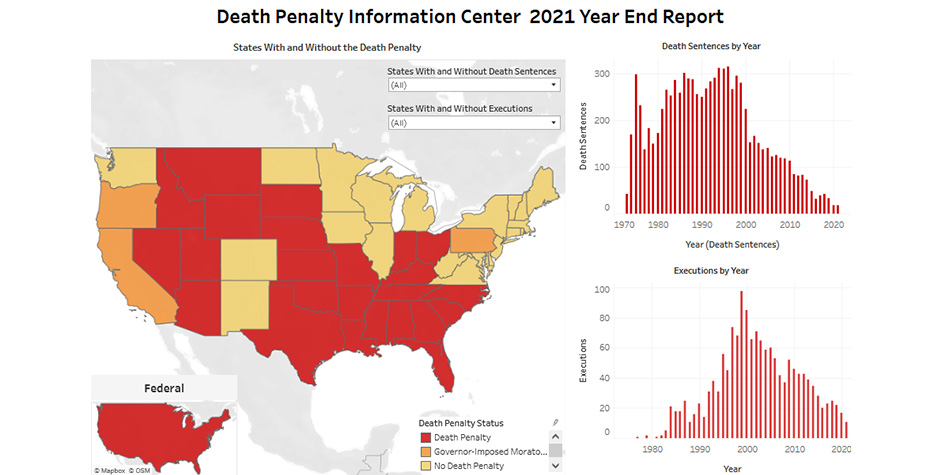
Article(s)
Executions and Death Sentences Near Record Lows in 2021 in the USA
By Death Penalty Information Center, on 13 January 2022
Virginia’s historic abolition of the death penalty highlighted a year in which public opinion polls, executions, and new death sentences all signaled continued erosion of support for capital punishment across the United States.
Public Opinion
United States
Document(s)
Uganda – Committee on the Elimination of Discrimination Against Women – Death Penalty – January 2022
on 12 January 2022
2022
NGO report
World Coalition
Uganda
Women
More details Download [ pdf - 243 Ko ]
This report addresses Uganda’s compliance with its obligations under the Convention on the Elimination of All Forms of Discrimination Against Women with respect to the death penalty. The report examines and discusses Ugandan death penalty laws and cases where women are sentenced to death row in Uganda, primarily for murder.
This report recommends that Uganda adopt a number of key recommendations to better align its death penalty practices with Uganda’s obligations to women under the Convention. These steps, among other things, include: (1) abolishing the death penalty and in the interim, limiting the death penalty to only the most serious crimes of intentional killing of another human; (2) ensuring proper gender-sensitive training in the judicial system and protecting women in conflict with the law when gender-based violence is involved; (3) developing and implementing programs to prevent gender-based violence and discrimination; and (4) ensuring fair access to counsel to women sentenced to death or at risk of being sentenced to death.
- Document type NGO report / World Coalition
- Countries list Uganda
- Themes list Women
Document(s)
Lebanon – Committee on the Elimination of Discrimination Against Women – Death Penalty
on 12 January 2022
NGO report
World Coalition
Lebanon
Women
More details Download [ pdf - 1599 Ko ]
This report addresses Lebanon’s compliance with human rights obligations under the Convention on the Elimination of All Forms of Discrimination Against Women regarding its use of the death penalty.
Lebanon has not abolished the death penalty or established a de jure moratorium on the death penalty. The legal system does not protect women in conflict with the law from discrimination on the basis of sex or gender. Nor does it limit capital offenses to the “most serious” crimes.
Women migrant domestic workers appear to be at an elevated risk of being sentenced to death. Indeed, all three women known to be on death row in Lebanon are Sri Lankan migrant domestic workers. Such women face heightened obstacles to realizing their right to a fair trial. Moreover, there is no evidence that sentencing authorities take into account a woman’s history of abuse when determining an appropriate sentence. Finally, women under sentence of death face degrading conditions of detention.
- Document type NGO report / World Coalition
- Countries list Lebanon
- Themes list Women
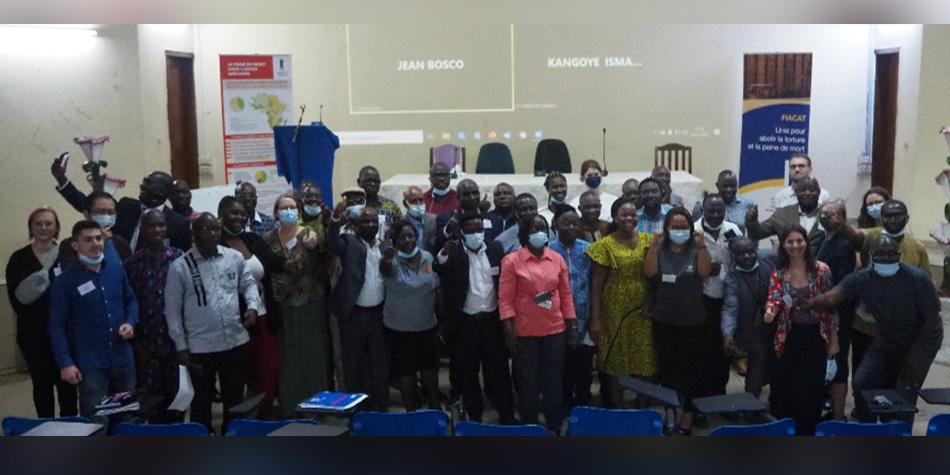
Article(s)
Capitalization workshop of the project for the abolition of the death penalty in sub-Saharan Africa
By Elise Garel, on 4 January 2022
Member organizations of the World Coalition Against the Death Penalty and African ACATs (Action des Chrétiens pour l’Abolition de la Torture) met in Abidjan (Côte d’Ivoire) for the capitalization workshop of Phase 2 of the project for the abolition of the death penalty in sub-Saharan Africa, organized on 29 and 30 November by the World […]
2022
Côte d'Ivoire
Moratorium
Public Opinion
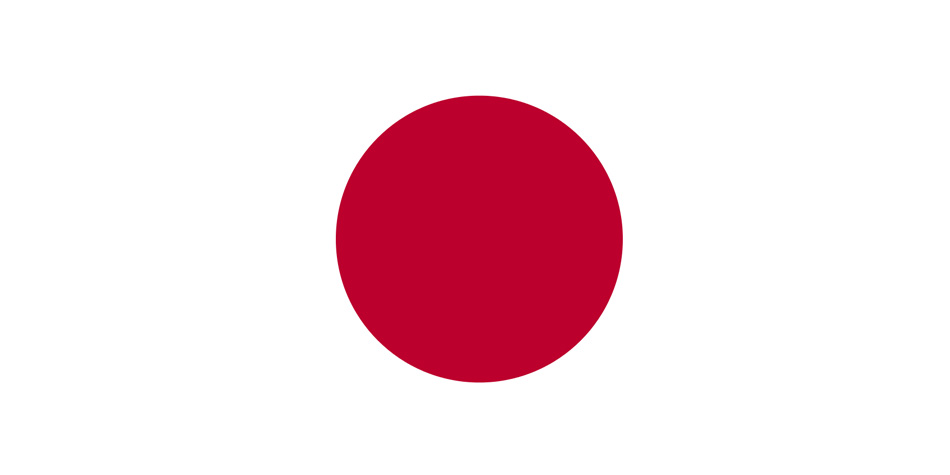
Article(s)
Protest Against Executions Ordered by Minister of Justice Yoshihisa Furukawa
By Center for Prisoner Rights and Japan Innocence and Death Penalty Information Center, on 23 December 2021
On 21 December 2021, Japan’s new governement executed three men after two years with no execution during which Japan hosted the Olympics and the United Nations Congress on Criminal Justice.
2021
Japan
Legal Representation
Moratorium
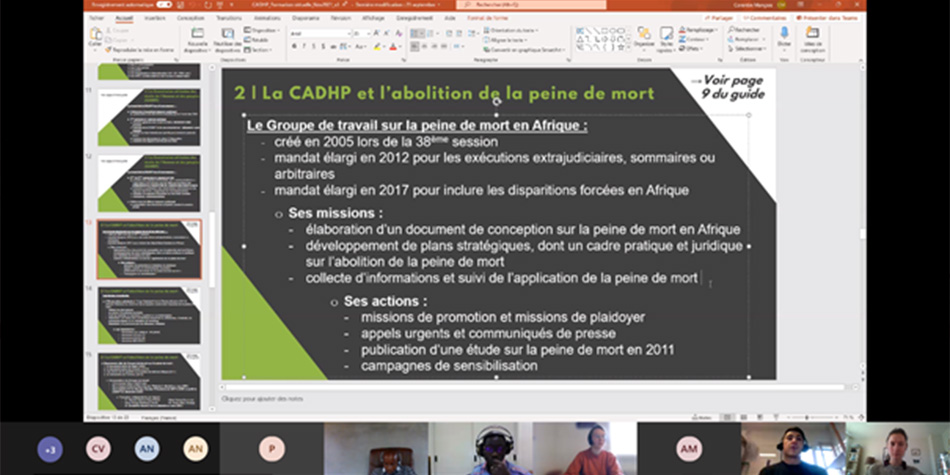
Article(s)
NGO Forum and 69th Ordinary Session of the African Commission of Human and Peoples’ Rights
By Bronwyn Dudley and Corentin Mançois, on 17 December 2021
The ACHPR (the African Commission on Human and Peoples’ Rights) met again virtually for its 69th Ordinary Session from 15 November – 5 December 2021.
2021
Terrorism
Women
Document(s)
Children who are Impacted by a Family Member’s Death Sentence or Execution: Information for Mental Health Professionals
By National Child Traumatic Stress Network (NCTSN), Texas after violence project, Clinical and Support Options, on 11 December 2021
2021
Working with...
Juveniles
More details See the document
This tip sheet provides some guidelines for mental health professionals who may encounter or work with children and families related to individuals who have been sentenced to death or executed.
- Document type Working with...
- Themes list Juveniles
Document(s)
Advisory on the Increased Vulnerabilty of Women Migrant Workers on Death Row
By Commission on Human Rights of the Philippines, on 3 December 2021
2021
Government body report
Drug Offenses
Legal Representation
Philippines
Women
frMore details Download [ pdf - 1457 Ko ]
The Commission on Human Rights of the Philippines issues this advisory to bring the Philippines’ attention to the heightened vulnerabilities of women Overseas Filipino Workers (OFWs).
- Document type Government body report
- Countries list Philippines
- Themes list Drug Offenses / Legal Representation / Women
- Available languages Avis sur la vulnérabilité accrue des travailleuses migrantes dans le couloir de la mort
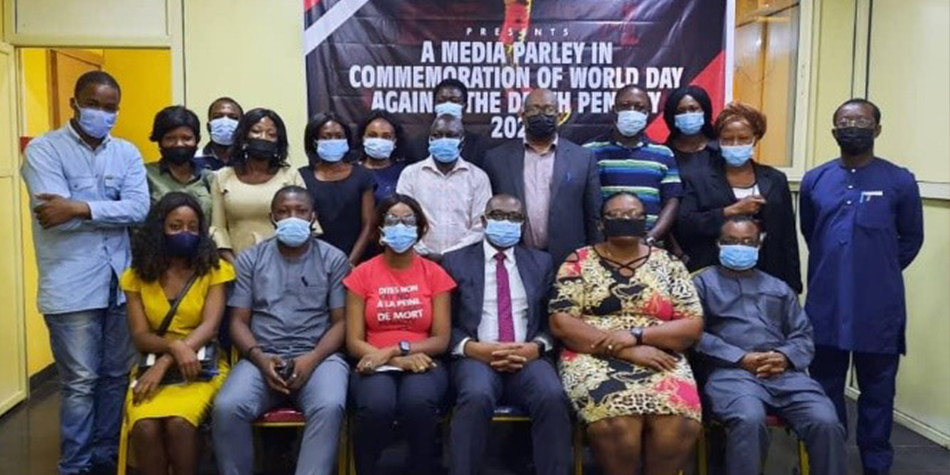
Article(s)
Women Sentenced to Death Showcased on the 19th World Day Against the Death Penalty
By Elise Garel, on 3 December 2021
With the theme “Women sentenced death: an invisible reality”, the 19th World Day Against the Death Penalty aimed to highlight the issues faced by women who are sentenced to death, executed, pardoned or exonerated around the world.
Cameroon
Indonesia
Iran (Islamic Republic of)
Morocco
Nigeria
Pakistan
Sierra Leone
United States
Women
Document(s)
Worked to Death: A study on migrant workers and capital punishment
By Migrant Care and Reprieve, on 24 November 2021
2021
NGO report
Fair Trial
Indonesia
Legal Representation
Malaysia
Nigeria
Pakistan
Saudi Arabia
Women
More details See the document
Foreign nationals, and within this group migrant workers, are a population that disproportionately faces the death penalty around the world. The data and statistics gathered by Reprieve and Migrant CARE for this report show that migrant workers as a sub-set of the foreign national population are at grave risk of human rights violations related to the death penalty, including arbitrary deprivation of the right to life in the context of unlawful death sentences and executions.
This report focuses on: states that receive migrant workers (‘receiving states’), in particular the states that make up the Association of South East Asian Nations or ASEAN (‘South East Asian states’) and the Gulf Cooperation Council (‘Gulf states’), and on states from which migrant workers travel to work (‘sending states’).
- Document type NGO report
- Countries list Indonesia / Malaysia / Nigeria / Pakistan / Saudi Arabia
- Themes list Fair Trial / Legal Representation / Women
Document(s)
Chinese Netizens’ Opinions on Death Sentences
By Bin Liang and Jianhong Liu, The University of Michigan Press, on 4 November 2021
2021
Academic report
China
Public Opinion
More details See the document
The People’s Republic of China no doubt leads the world in both numbers of death sentences and executions. Despite being the largest user of the death penalty, China has never conducted a national poll on citizens’ opinions toward capital punishment, while claiming “overwhelming public support” as a major justification for its retention and use. Based on a content analysis of 38,512 comments collected from 63 cases in 2015, this study examines the diversity and rationales of netizens’ opinions of and interactions with China’s criminal justice system. In addition, the book discusses China’s social, systemic, and structural problems and critically examines the rationality of netizens’ opinions based on Habermas’s communicative rationality framework. Readers will be able to contextualize Chinese netizens’ discussions and draw conclusions about commonalities and uniqueness of China’s death penalty practice.
- Document type Academic report
- Countries list China
- Themes list Public Opinion
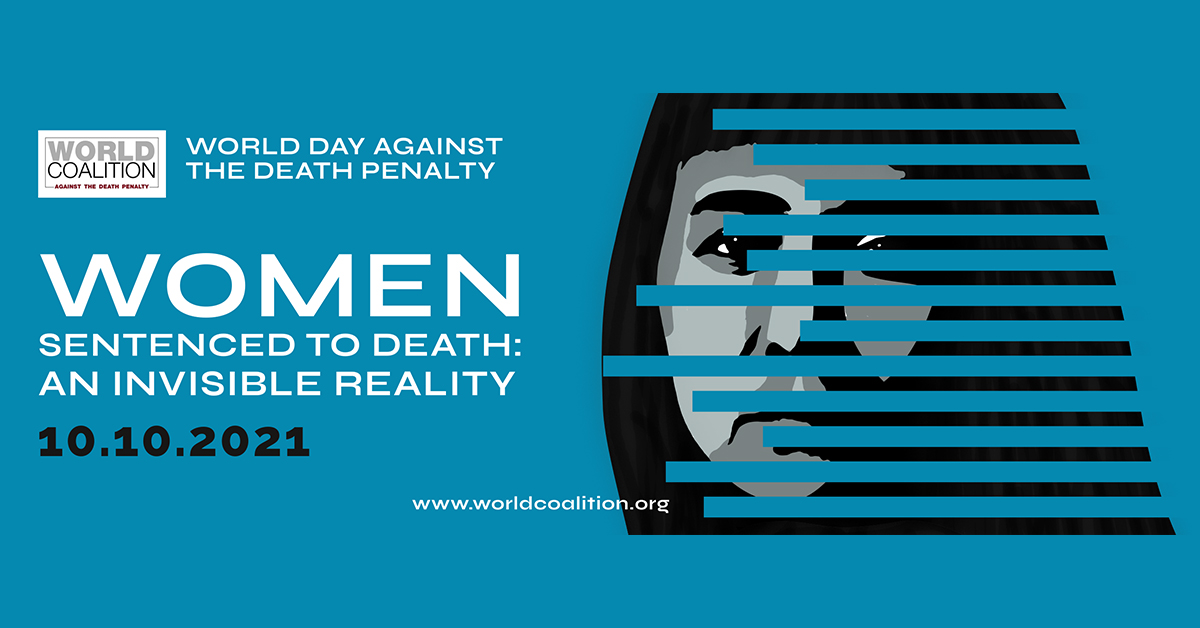
Article(s)
Joint Declaration on the Death Penalty and Women’s Rights
By World Coalition Against the Death Penalty, on 10 October 2021
As we mark the 19th World Day Against the Death Penalty dedicated to women facing capital punishment, who have been sentenced to death, who have been executed or who have been pardoned or found not guilty, the members of the World Coalition Against the Death Penalty and allies of women sentenced to death take this […]
2021
Women
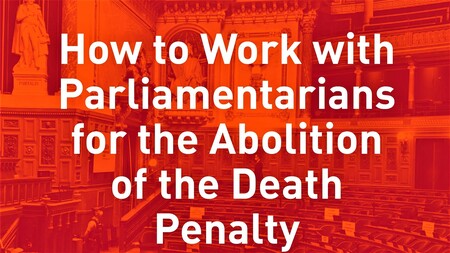
Article(s)
Publication of a New Guide on Working with Parliamentarians to Abolish the Death Penalty
By World Coalition Against the Death Penalty, on 10 October 2021
The World Coalition Against the Death Penalty, in partnership with Parliamentarians for Global Action (PGA), has published a new how-to guide for civil society organizations (CSOs) on how to collaborate with parliamentarians to abolish the death penalty.
Women
Document(s)
Women and the Death Penalty in Iran
By Iran Human Rights, on 8 October 2021
2021
NGO report
Iran (Islamic Republic of)
Women
More details See the document
In observation of the 2021 World Day Against the Death Penalty dedicated to women, Iran Human Rights is providing a report on the women executed in Iran over the last 12 years (2010-2021). The executions in this period are by no means representative of the Islamic Republic of Iran’s complete history of executing women; the number of female political prisoners executed in the 1980s must be acknowledged due to their sheer volume and abhorrent nature. But even today, there is ample evidence of their cruel and inhuman treatment of female prisoners, which will be highlighted in this report.
- Document type NGO report
- Countries list Iran (Islamic Republic of)
- Themes list Women
Document(s)
How to Work with Parliamentarians for the Abolition of the Death Penalty
By World Coalition Against the Death Penalty, on 7 October 2021
2021
Working with...
World Coalition
Moratorium
Public Opinion
frMore details Download [ pdf - 18114 Ko ]
This how-to guide, elaborated with Parliamentarians for Global Action with highlights coming from the African continent, is specifically designed for the use of abolitionist civil society groups who want to work with parliamentarians for the abolition of the death penalty.
- Document type Working with... / World Coalition
- Themes list Moratorium / Public Opinion
- Available languages Comment travailler avec les parlementaires pour l'abolition de la peine de mort ?
Document(s)
Deathworthy: a mental health perspective of the death penalty
By Project 39A, on 7 October 2021
Academic report
India
Mental Illness
More details See the document
A first of its kind report, Deathworthy, presents empirical data on mental illness and intellectual disability among death row prisoners in India and the psychological consequences of living on death row. The report finds that an overwhelming majority of death row prisoners interviewed (62.2%) had a mental illness and 11% had intellectual disability. The proportion of persons with mental illness and intellectual disability on death row is overwhelmingly higher than the proportion in the community population. The report also establishes correlations between conditions of death row incarceration and mental illness and ill-health. Led and conceptualised by Maitreyi Misra (Head, Mental Health and Criminal Justice, Project 39A, National Law University Delhi), the study was conducted under the guidance of Dr. Pratima Murthy (Director, NIMHANS), Dr Sanjeev Jain (Senior Professor, Deptt of Psychiatry, NIMHANS) and Dr Gitanjali Narayanan (Associate Professor, Deptt of Psychology, NIMHANS).
- Document type Academic report
- Countries list India
- Themes list Mental Illness
Document(s)
“No One Believed Me”: A Global Overview of Women Facing the Death Penalty for Drug Offenses
on 5 October 2021
2021
NGO report
Drug Offenses
Women
frMore details See the document
“No one believed me” is a quote from Merri Utami, who was sentenced to death for drug trafficking in Indonesia in 2002. Her quote reflects the injustices faced by women accused of capital drug offenses around the world: many decision-makers disbelieve women’s plausible innocence claims or discount the effects of relationships and economic instability on women’s decisions to traffic drugs.
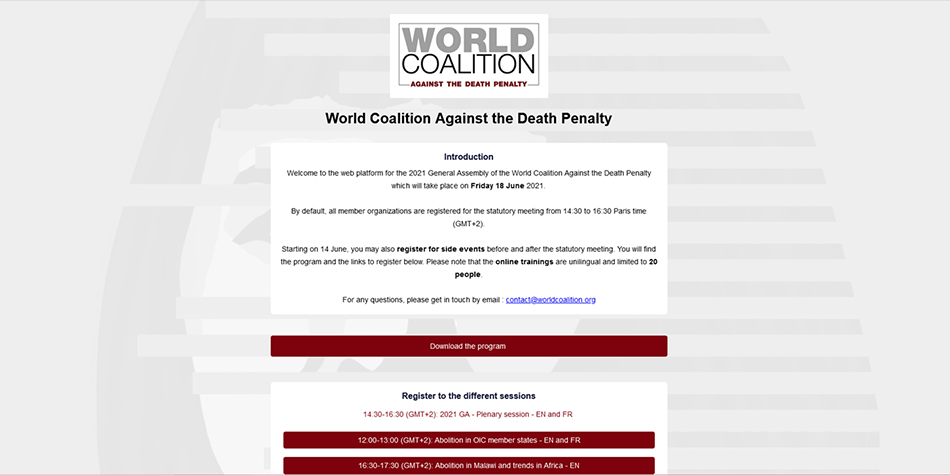
Article(s)
Recapping and video recordings of the side events of the 2021 General Assembly
By Elise Garel, World Coalition Against the Death Penalty, on 27 September 2021
On June 18, 2021, on the sidelines of the General Assembly of the World Coalition Against the Death Penalty, several events were organized. These events were an opportunity for the members of the World Coalition to address many issues related to the fight for the abolition of the death penalty.
2021
Juveniles
Legal Representation
Women
Document(s)
Yemen – Committee on the Elimination of Discrimination Against Women – Death Penalty – September 2021
on 20 September 2021
2021
NGO report
World Coalition
Women
Yemen
More details Download [ pdf - 272 Ko ]
Women in conflict with the law in Yemen are at risk of experiencing gender-based discrimination within the legal system and while detained. Such discrimination is particularly acute when women are at risk of being sentenced to death. For example, in Houthi-controlled parts of Yemen, women are in danger of being sentenced to death for “spying,” often based primarily on the conduct of their male family members. In parts of the country controlled by the internationally recognized Government of Yemen, women accused of capital offenses are denied legal aid to mount a successful defense. And because of the mandatory nature of the death penalty for crimes such as murder, courts do not take into account an accused woman’s experiences of gender-based violence that may have motivated her actions. Women are also often financially unable to gather sufficient resources to pay “blood money” to victims’ families. Detention conditions for women, particularly in Houthi-controlled parts of Yemen, amount to cruel, inhuman, and degrading treatment and in some cases prison authorities torture women detainees.
Because of continued internal conflict in Yemen, there is limited official data regarding the number of women currently sentenced to death. For the same reason, there is only limited information regarding detention conditions of women sentenced to death.
- Document type NGO report / World Coalition
- Countries list Yemen
- Themes list Women
Document(s)
Report of the Secretary General: Question of the death penalty 2021 (A/HRC/48/29)
By Office of the High Commissioner for Human Rights (OHCHR), on 15 September 2021
2021
United Nations report
Public Opinion
More details See the document
The present report is submitted pursuant to decision 18/117 and resolution 42/24 of the Human Rights Council. The report focuses on consequences arising from the lack of transparency in the application and imposition of the death penalty on the enjoyment of human rights.
- Document type United Nations report
- Themes list Public Opinion
Document(s)
Addressing the Gender Dimension of the Death Penalty: Coaction Between Parliamentarians and Civil Society
By World Coalition Against the Death Penalty, on 10 September 2021
2021
Working with...
Women
frMore details Download [ pdf - 311 Ko ]
Created on the occasion of the 19th World Day Against the Death Penalty (10/10/21), this tool’s aim is to provide practical advice and concrete suggestions to civil society organizations who wish/ are already collaborating with parliamentarians to end the death penalty and bring attention to women sentenced to death.
- Document type Working with...
- Themes list Women
- Available languages Traiter la dimension de genre de la peine de mort : Collaboration entre les parlementaires et la société civile

Article(s)
World Coalition elects new Steering Committee and Executive Board for two years
By World Coalition Against the Death Penalty, on 10 September 2021
The World Coalition Against the Death Penalty held its first 100% virtual General Assembly on 18 June 2021 to elect its new Steering Committee.
Juveniles

Article(s)
Take Action for World Day 2021!
By World Coalition Against the Death Penalty, on 10 September 2021
Take action now! The 19th World Day Against the Death Penalty is an excellent opportunity to publicly oppose the use of this inhumane punishment and to support those who are fighting for its abolition all over the world.
Drug Offenses
Fair Trial
Women
Document(s)
The death penalty and the prohibition of torture and other cruel, inhuman or degrading treatment or punishment
on 21 August 2021
2021
NGO report
World Coalition
Cruel, Inhuman and Degrading Treatment and Punishment
frMore details See the document
The signatory organizations are convinced that the death penalty is incompatible with the prohibition of torture and cruel, inhuman or degrading treatment or punishment, which is a peremptory norm of international law (jus cogens) and should thus be abolished. The death penalty is only tolerated by international law and standards to the extent that it may only be imposed for the most serious crimes and applied in a way that causes the least possible suffering. However, the signatory organizations believe that from the sentencing to the execution, the death penalty inevitably causes physical harm and psychological suffering amounting to torture or ill-treatments.
The present position paper documents the extent to which international and regional organisation have already recognised a violation of the absolution prohibitionof torture in the application and imposition of the death penalty.
- Document type NGO report / World Coalition
- Themes list Cruel, Inhuman and Degrading Treatment and Punishment
- Available languages La peine de mort et l'interdiction de la torture et des peines ou traitements cruels, inhumains ou dégradants
Document(s)
Poster Hausa 2021 – Ranan Yancin Hukum Cin Kissan Dounia
By World Coalition Against the Death Penalty, on 10 August 2021
2021
Campaigning
Women
More details Download [ pdf - 559 Ko ]
Matan da Akama Hukun Cin Raï da Raï : Gaskiyan da Ba’a Gani
- Document type Campaigning
- Themes list Women
Document(s)
Poster Zarma 2021 – Jaaro Kan Ika Unndunyara Imatamgan Nda Wiiyen Ciito
By World Coalition Against the Death Penalty, on 10 August 2021
Campaigning
Women
More details Download [ pdf - 559 Ko ]
Woyboro Kan Wii Yen Ciiti Ndira a Bon Cimi No Kan Borey Si Nga Ndi
- Document type Campaigning
- Themes list Women
Document(s)
Poster TL 2021- Pandaigdigang Araw Laban sa Parusang Kamatayan
on 10 August 2021
Campaigning
Women
More details Download [ pdf - 8359 Ko ]
Kababaihang nahatulan ng parusang kamatayan: isang di nakikitang realidad
- Document type Campaigning
- Themes list Women
Document(s)
Poster Lunganda 2021 – OLUNAKU LWENSI YONNA LWETUJJUKIRA KAWEFUBBE WO KULWANYISA EKIBONEREZO KYO KUWANIKA ABANTU KU KALABBA
By World Coalition Against the Death Penalty, on 10 August 2021
Campaigning
Women
More details Download [ pdf - 8360 Ko ]
OKUWANIKA ABAKAZI KU KALABBA: AMAZIMA AMEKUSIFU
- Document type Campaigning
- Themes list Women
Document(s)
Poster Lingala 2021 – Mokolo ya kobundela etumbu ya liwa na mokili mobimba
By World Coalition Against the Death Penalty, on 10 August 2021
Campaigning
Women
More details Download [ pdf - 8360 Ko ]
Basi pe bazali kozuwa etumbu ya liwa: Ezali kosalema kasi komonana na miso ya bato te
- Document type Campaigning
- Themes list Women
Document(s)
19th World Day Against the Death Penalty – Engaging the Special Procedures of the UN Human Rights Council: Women and the Death Penalty
By World Coalition Against the Death Penalty, Reprieve, FIACAT, The Advocates for Human Rights, on 10 August 2021
Working with...
Women
frMore details Download [ pdf - 454 Ko ]
While the methods in this tool are applicable beyond the scope of capital punishment, for the 19th World Day Against the Death Penalty, Reprieve and the World Coalition Against the Death Penalty have drafted this How-To on engaging the United Nations (UN) Special Procedures for elevating cases pertaining to women who have been sentenced to the death penalty.
- Document type Working with...
- Themes list Women
- Available languages Saisir les procédures spéciales du Conseil des droits de l'Homme des Nations unies : les femmes et la peine de mort
Document(s)
The war on drugs, forensic science and the death penalty in the Philippines
By Maria Corazon A.De Ungria and Jose M.Jose, on 10 August 2021
Academic report
Drug Offenses
Philippines
More details See the document
The effectiveness of the death penalty to deter heinous crimes remains a contentious issue even though it has been abolished in many countries. Three years into President Rodrigo Duterte’s administration, the push to re-impose the death penalty is being taken seriously.
There is urgency in providing options to the drug problem other than killing drug suspects in the streets or sentencing them to death. The drug problem is a complex issue and exposes the human vulnerability of its users for criminal exploitation.
We propose here that addressing these vulnerabilities in a balanced and comprehensive manner through health-focused, rights-based criminal justice responses, conducting forensic science-based drug investigations and determining the social causes of drug abuse is an alternative solution that demands cooperation across different sectors of society as well as underscores the fundamental value of human life.
- Document type Academic report
- Countries list Philippines
- Themes list Drug Offenses
Document(s)
Death in the time of Covid-19: Efforts to restore the death penalty in the Philippines
By Jose M.Jose and Maria Corazon A.De Ungria, on 10 August 2021
Academic report
Drug Offenses
Philippines
More details See the document
The Philippine Congress recently passed a bill amending the Dangerous Drugs Act of 2002 and reimposing the penalty of life imprisonment to death for specific-drug related offenses. House Bill No. 7814 also allows the presumption of guilt in certain drug-related crimes unless otherwise proven, thereby overturning the long-standing constitutional presumption of innocence.
The bill has been sent to the Senate for its concurrence and could only be several steps away before being signed into law by President Rodrigo R. Duterte. This paper discusses the ramifications of the new bill and the questioned timeliness of its passage when the country continues to have a large and overcrowded prison population and a significant number of deaths due to SARS-CoV-2 in Southeast Asia.
The government’s lapses in following the 2021 national vaccination plan became apparent in the 31 March 2021 assessment made by the congressional health panel on the government’s response to the pandemic.
From the authors’ perspective, the urgency of using the country’s limited resources to help medical frontliners and local government units prevent further infections and save lives should have outweighed the efforts exerted to pass a law that legalized the death penalty for the third time in the Philippines.
- Document type Academic report
- Countries list Philippines
- Themes list Drug Offenses
Document(s)
Preventing the Reinstatement of Capital Punishment in the Maldives
By World Coalition Against the Death Penalty, Nasheen Kalkat - Reprieve, on 10 August 2021
Campaigning
Maldives
Public Opinion
frMore details Download [ pdf - 261 Ko ]
Findings from a preliminary study concerning the local abolitionist movement, risksto related civilsociety organizations and the identification of capacity building opportunities.
- Document type Campaigning
- Countries list Maldives
- Themes list Public Opinion
- Available languages Empêcher le retour de la peine capitale aux Maldives
Document(s)
Preventing the Reintroduction of the Death Penalty in the Philippines
By World Coalition Against the Death Penalty, Mai Sato and Sara Kowal, on 10 August 2021
Campaigning
Philippines
Public Opinion
frMore details Download [ pdf - 218 Ko ]
Findings of a study on the threats facing local civil society efforts to combat reinstroduction of the death penalty and the risks involved with reintroducing the death penalty in the Philippines.
- Document type Campaigning
- Countries list Philippines
- Themes list Public Opinion
- Available languages Prévenir la réintroduction de la peine de mort aux Philippines
Document(s)
Turkey: The Risk of Reinstatment of the Death Penalty
By World Caolition againt the Death Penalty, Anne Souléliac, Rusen Aytac - Barreau de Paris, on 10 August 2021
Campaigning
Public Opinion
Turkey
frMore details Download [ pdf - 312 Ko ]
Findings from a preliminary study on the situation of human rights defenders in Turkey and the potential of a return to capital punishment.
- Document type Campaigning
- Countries list Turkey
- Themes list Public Opinion
- Available languages Turquie : Quels sont les risques de rétablissement de la peine de mort ?
Document(s)
The death penalty in Egypt: Ten year after the uprising
By Jeed Basyouni - Reprieve, on 10 August 2021
NGO report
Cruel, Inhuman and Degrading Treatment and Punishment
Death Row Conditions
Egypt
Fair Trial
More details See the document
Reprieve wrote this report about the use of the death penalty in Egypt.
- Document type NGO report
- Countries list Egypt
- Themes list Cruel, Inhuman and Degrading Treatment and Punishment / Death Row Conditions / Fair Trial
Document(s)
Helpful Hints and Advice on Online Harassment
By World Coalition against the Death Penalty , on 10 August 2021
Campaigning
Public Opinion
frMore details Download [ pdf - 165 Ko ]
Online advocacy efforts by human rights organizations face increasingly dangerous threats. In this short guide, we elaborate a few helpful hints and
advice, as well as list a compilation of resources that organizations can refer to handle online harassment.
- Document type Campaigning
- Themes list Public Opinion
- Available languages Astuces et conseils utiles face au harcèlement en ligne
Document(s)
Fair Trial Standards in the Maldives in Dhivehi
By World Coalition Against the Death Penalty, Maldivian Democracy Network , on 10 August 2021
Campaigning
Fair Trial
Legal Representation
Maldives
More details Download [ pdf - 449 Ko ]
އް ތަ ޑު ނގަ ން މި ގެ ތު ޢަ ރީ ޝަ ރި ވެ ފު ސާ ން އި ގެ ޭޖއް ރާ ހި ވެ ދި
2020ސް ވަ ދު ރާ ކު ގަ ހަ ފާ އި ގަ ރު ވަ ން ފެ ގެ ޔޭ ނި ދު ށް ޅަ ކޮ ދެ ބާ ދަ އަ ގެ ރު މ
- Document type Campaigning
- Countries list Maldives
- Themes list Fair Trial / Legal Representation
Document(s)
Fair Trial Standards in the Maldives (World Day Against the Death Penalty 2020)
By World Coalition Against the Death Penalty, Maldivian Democracy Network , on 10 August 2021
Campaigning
Fair Trial
Legal Representation
Maldives
More details Download [ pdf - 435 Ko ]
For the 18th World Day Against the Death Penalty this year is dedicated to the right to effective legal representation for individuals who face death sentences around the world. The theme of access to counsel reinforces the importance of fair trial standards in every legal system and judicial context.
- Document type Campaigning
- Countries list Maldives
- Themes list Fair Trial / Legal Representation
Document(s)
Investigating Attitudes to the Death Penalty in Indonesia in bahasa Indonesia
By Universitas Indonesia LBH Masyarakat Universitas Oxford The Death Penalty Project, on 10 August 2021
NGO report
Drug Offenses
Indonesia
Public Opinion
More details See the document
Pandangan Para Pembentuk Opini tentang Hukuman Mati di Indonesia
- Document type NGO report
- Countries list Indonesia
- Themes list Drug Offenses / Public Opinion
Document(s)
Capital Punishment, 2019 – Statistical Tables
By U.S. Department of Justice Tracy L. Snell, on 10 August 2021
Government body report
Death Row Conditions
Drug Offenses
United States
More details See the document
This report presents statistics on persons who were under sentence of death or were executed in 2019
- Document type Government body report
- Countries list United States
- Themes list Death Row Conditions / Drug Offenses
Document(s)
State-Sanctioned Killing of Sexual Minorities: Looking Beyond the Death Penalty
By Mai Sato, Christopher Alexander - Eleos Justice and Capital Punishment Justice Project, Monash University, on 10 August 2021
Academic report
Australia
Cruel, Inhuman and Degrading Treatment and Punishment
More details See the document
This report examines the extent to which states sanction the killing of sexual minorities. It looks beyond those countries that impose the death penalty for same-sex intimacy to the far greater number of countries in which state actors commission, condone, endorse and enable such killings.
He argues that the state-sanctioned killing of sexual minorities is often perpetrated well beyond the boundaries of the law, and even in countries that do not criminalise such conduct.
- Document type Academic report
- Countries list Australia
- Themes list Cruel, Inhuman and Degrading Treatment and Punishment
Document(s)
Right Here, Right Now Life Stories from America’s Death Row
By Lynden Harris, on 10 August 2021
Book
Death Row Conditions
United States
More details See the document
Upon receiving his execution date, one of the thousands of men living on death row in the United States had an epiphany: “All there ever is, is this moment. You, me, all of us, right here, right now, this minute, that’s love.”
Right Here, Right Now collects the powerful, first-person stories of dozens of men on death rows across the country. From childhood experiences living with poverty, hunger, and violence to mental illness and police misconduct to coming to terms with their executions, these men outline their struggle to maintain their connection to society and sustain the humanity that incarceration and its daily insults attempt to extinguish.
By offering their hopes, dreams, aspirations, fears, failures, and wounds, the men challenge us to reconsider whether our current justice system offers actual justice or simply perpetuates the social injustices that obscure our shared humanity.
- Document type Book
- Countries list United States
- Themes list Death Row Conditions
Document(s)
The Phantom
By Patrick Forbes, on 10 August 2021
Multimedia content
Innocence
Public Opinion
United States
More details See the document
THE PHANTOM tells the story of one of the darkest episodes in the long history of American justice. A story of how the State of Texas knowingly sent an innocent man to his death and left a serial killer at large. A case in which – for the first time – it can be conclusively proven that the US courts executed a blameless man.
This film uncovers the shocking truth behind a tale of murder, corruption and lies that unfolded in the dusty, desperate streets of a Texas oil town nearly thirty years ago.
- Document type Multimedia content
- Countries list United States
- Themes list Innocence / Public Opinion

Article(s)
Violations of the Right to Life in the Context of Drug Policies
By International Harm Reduction Association (IHRA), Corporación ATS Acción Técnica Social, IDPC Consortium, Washington Office on Latin America, non-governmental organizations in special consultative status, Anti-Death Penalty Asia Network (ADPAN); Capital Punishment Justice Project (CPJP); Centre on Drug Policy Evaluation (CDPE); Cornell Centre on the Death Penalty Worldwide; Eleos Justice - Monash University; Instituto RIA, AC; Iran Human Rights (IHR); World Coalition Against the Death Penalty., NGO(s) without consultative status, also share the views expressed in this statement, on 10 August 2021
Harm Reduction International and co-signatories congratulate Mr Tidball-Binz on his appointment as Special Rapporteur on summary executions. With this statement, we highlight key violations of the right to life enabled by repressive drug policies or reported in the context of drug law enforcement; and encourage this Rapporteur to pay specific attention to the impact of […]
Death Row Conditions
Drug Offenses
Fair Trial

Article(s)
PRESS RELEASE – Indignation after 30 death sentences in Kinshasa
By Michel Kalemba, Suzanne Mangomba, Xavière Prugnard and Bertin Leblanc, on 4 August 2021
Kinshasa, Paris, May 27, 2021 Our organizations denounce the recent death sentences handed down by the High Court of Gombe, in the center of Kinshasa in the Democratic Republic of Congo, following violence against the forces of order.
2021
Democratic Republic of the Congo
Fair Trial
Legal Representation
Moratorium

Article(s)
Women sentenced to death: An invisible reality
By Advocates for Human Rights, International Federation of ACAT (Action by Christians for the Abolition of Torture), International Harm Reduction Association (IHRA), non-governmental organizations in special consultative status, on 4 August 2021
The World Coalition Against the Death Penalty and supporting member organizations welcome the annual full-day meeting to discuss the human rights of women under resolution 6/30.
Drug Offenses
Fair Trial
Women

Article(s)
Abolition of the death penalty in the Central African Republic
By ECPM, World Coalition Against the Death Penalty, the International Federation of ACAT (FIACAT) and Action by Christians for the Abolition of Torture in the Central African Republic (ACAT CAR), on 2 August 2021
Together Against the Death Penalty, the World Coalition Against the Death Penalty, the International Federation of ACAT (FIACAT) and Action by Christians for the Abolition of Torture in the Central African Republic (ACAT CAR) welcome this interactive dialogue and wish to draw the attention of the Independent Expert on the application of the death penalty […]
2021
Central African Republic
Moratorium

Article(s)
Statement on the occasion of the adoption of the upr report of Lebanon
By Ensemble contre la peine de mort (ECPM), on 2 August 2021
We welcome Lebanon’s position in accepting some of the recommendations on strengthening the justice sector and improving strengthening the justice sector and those aimed at improving the conditions of detention, including the fight against acts of torture and ill-treatment.
Lebanon
Moratorium

Article(s)
Statement on the occasion of the adoption of the upr report of Mauritania
By Together against the death penalty, the Mauritanian Association for Human Rights, The Advocates for Human Rights and the World Coalition Against the Death Penalty, on 2 August 2021
Together against the death penalty, the Mauritanian Association for Human Rights, The Advocates for Human Rights and the World Coalition Against the Death Penalty welcome the adoption of the report of the Working Group on the Universal Periodic Review of Mauritania by the Human Rights Council.
Mauritania
Moratorium

Article(s)
Sierra Leone abolishes the Death Penalty
By World Coalition Against the Death Penalty , on 2 August 2021
On Friday 23rd July 2021, Sierra Leone’s Parliament unanimously abolished the death penalty by passing the Abolition of the Death Penalty Act.
Public Opinion
Sierra Leone
Document(s)
Detailed Factsheet: Women and the Death Penalty
By World Coalition Against the Death Penalty, The Advocates for Human Rights, on 1 July 2021
2021
Campaigning
Women
frMore details Download [ pdf - 534 Ko ]
On 10 October 2021, the World Coalition Against the Death Penalty and other abolitionist organizations worldwide will celebrate the 19th World Day Against the Death Penalty.
This year, the World Day is dedicated to women who risk being sentenced to death, who have received a death sentence, who have been executed, and to those who have had their death sentences commuted, exonerated, or pardoned.
This detailed factsheet will use the phrase “women sentenced to death” as an inclusive phrase for all of these categories. As women represent a small percentage of those on death row globally, very little has been reported about these women. Yet we can learn much by analyzing their crimes, their lives prior to the crimes, and the conditions under which they are detained on death row.
- Document type Campaigning
- Themes list Women
- Available languages Fiche d'information détaillée: Femmes et la peine de mort
Document(s)
TESTIMONIALS FROM WOMEN SENTENCED TO DEATH
By World Coalition Against the Death Penalty, on 1 July 2021
Campaigning
Women
frMore details Download [ pdf - 942 Ko ]
Collection of testimonials of women’s experiences around the world regarding their death sentences- World Day 2021
- Document type Campaigning
- Themes list Women
- Available languages TÉMOIGNAGES DE FEMMES CONDAMNÉES À MORT
Document(s)
PRIMER ON TRANSGENDER INDIVIDUALS FACING THE DEATH PENALTY
By World Coalition Against the Death Penalty; FIACAT; The Advocates for Human Rights; Cornell Center on the DP Worldwide, on 30 June 2021
2021
Campaigning
Women
frMore details Download [ pdf - 450 Ko ]
On 10 October 2021, the World Coalition Against the Death Penalty and other abolitionist organizations worldwide will celebrate the 19th World Day Against the Death Penalty.
This year the World Day is dedicated to women who risk being sentenced to death, who have received a death sentence, who have been executed, and to those who have had their death sentences commuted, have been exonerated or pardoned. Included in this theme, are trans women and other gender diverse individuals, who are a minority on death row but who are discriminated against on the basis of gender.
Capital punishment disproportionately targets socially marginalized individuals; it is no different for transgender people, who may face discrimination in every aspect of their lives.
- Document type Campaigning
- Themes list Women
- Available languages FICHE D’INTRODUCTION SUR LES PERSONNES TRANS PASSIBLES DE LA PEINE DE MORT
Document(s)
FACTS AND FIGURES 2020/2021
By World Coalition Against the Death Penalty, on 30 June 2021
Campaigning
Terrorism
Women
frMore details Download [ pdf - 196 Ko ]
2020/2021 Facts & Figures Sheet for the World Day Against the Death Penalty
- Document type Campaigning
- Themes list Terrorism / Women
- Available languages FAITS ET CHIFFRES 2020/2021
Document(s)
Investigating Attitudes to the Death Penalty in Indonesia, Part Two – Public Opinion: No Barrier to Abolition
By Carolyn Hoyle - The Death Penalty Project, in partnership with LBH Masyarakat and the University of Indonesia, on 28 June 2021
2021
NGO report
Drug Offenses
Indonesia
Public Opinion
More details See the document
In 2019-20, The Death Penalty Project, in partnership with LBH Masyarakat and the University of Indonesia, commissioned Professor Carolyn Hoyle, of The Death Penalty Research Unit at the University of Oxford to conduct research investigating attitudes towards the death penalty in Indonesia. The findings have been presented in a two-part report; the first details the findings of a nuanced public survey and the second details the findings of interviews conducted with opinion formers. The public opinion research was undertaken by surveying a stratified random sample of 1,515 respondents – a sample large enough to make inferences from the data about the views of the overall population.
- Document type NGO report
- Countries list Indonesia
- Themes list Drug Offenses / Public Opinion
Document(s)
Investigating Attitudes to the Death Penalty in Indonesia Part One – Opinion Formers: An Appetite for Change
By Carolyn Hoyle - The Death Penalty Project, in partnership with LBH Masyarakat and the University of Indonesia, on 28 June 2021
NGO report
Drug Offenses
Indonesia
Public Opinion
More details See the document
In 2019-20, The Death Penalty Project, in partnership with LBH Masyarakat and the University of Indonesia, commissioned Professor Carolyn Hoyle, of The Death Penalty Research Unit at the University of Oxford to conduct research investigating attitudes towards the death penalty in Indonesia.
The findings have been presented in a two-part report; the first details the findings of a nuanced public survey and the second details the findings of interviews conducted with opinion formers.
- Document type NGO report
- Countries list Indonesia
- Themes list Drug Offenses / Public Opinion

Article(s)
Program of the 18 June 2021 General Assembly
By World Coalition Against the Death Penalty, on 15 June 2021
If you are a member organization, join the fantastic program we will have on Friday 18 June!
2021
Juveniles
Women
Document(s)
2021 General Assembly of the World coalition against the death penalty – Program
By World Coalition Against the Death Penalty, on 15 June 2021
World Coalition
Juveniles
Women
frMore details Download [ pdf - 280 Ko ]
If you are a member organization, join the fantastic program we will have on Friday 18 June!
- Document type World Coalition
- Themes list Juveniles / Women
- Available languages Assemblée générale du 18 juin 2021 - Programme
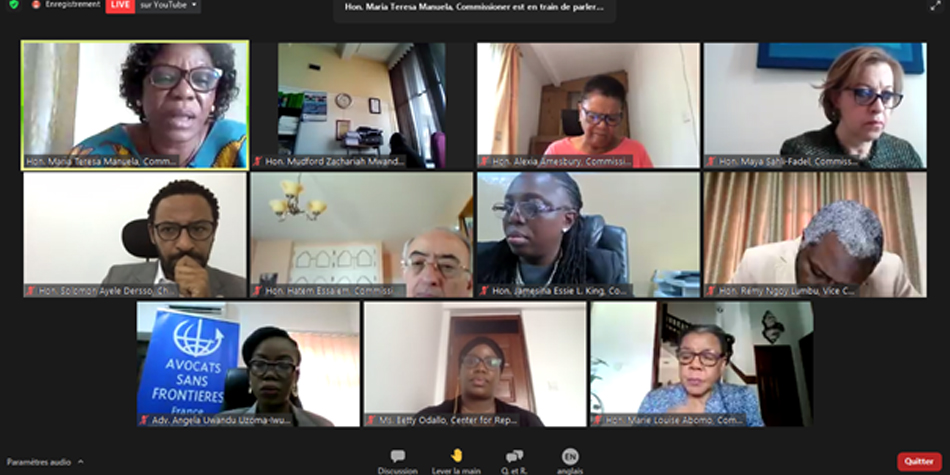
Article(s)
68e session ordinaire de la Commission africaine des droits de l’homme et des peuples – Le plaidoyer contre la peine de mort se poursuit
By Bronwyn Dudley, on 11 June 2021
La CADHP (Commission Africaine des Droits de l’Homme et des Peuples) s’est réunie virtuellement pour sa 68ème session ordinaire du 14 avril au 4 mai 2021.
2021
Women
Terrorism
Terrorism
Women

Article(s)
68th Ordinary Session African Commission on Human & Peoples’ Rights- Anti-Death Penalty Advocacy Continues
By Bronwyn Dudley, on 11 June 2021
The ACHPR (the African Commission on Human and Peoples’ Rights) met virtually for its 68th Ordinary Session from 14 April – 4 May 2021.
Terrorism
Women
Document(s)
Poster SWA – 2021 World Day Against the Death Penalty
By World Coalition Against the Death Penalty, on 10 June 2021
2021
Campaigning
Women
More details Download [ pdf - 8373 Ko ]
Wanawake waliohukumiwa kunyongwa: Ukweli uliofichika
- Document type Campaigning
- Themes list Women
Document(s)
Poster JPN – 2021 World Day Against the Death Penalty
By World Coalition Against the Death Penalty, on 10 June 2021
Campaigning
Women
More details Download [ pdf - 8372 Ko ]
死刑を科された女性:その知られざる現実
- Document type Campaigning
- Themes list Women
Document(s)
Poster DE – 2021 World Day Against the Death Penalty
By World Coalition Against the Death Penalty, on 10 June 2021
Campaigning
Women
More details Download [ pdf - 8373 Ko ]
Frauen in der Todeszelle: Ungesehene Realität
- Document type Campaigning
- Themes list Women
Document(s)
Poster IT – 2021 World Day Against the Death Penalty
By World Coalition Against the Death Penalty, on 10 June 2021
Campaigning
Women
More details Download [ pdf - 8373 Ko ]
Donne condannate a morte: una realta’ invisibile
- Document type Campaigning
- Themes list Women
Document(s)
Leaflet World Day Against the Death Penalty 2021 – EN
By World Coalition Against the Death Penalty, on 10 June 2021
Campaigning
Women
arfrMore details Download [ pdf - 652 Ko ]
On 10 October 2021, the World Coalition Against the Death Penalty and abolitionist organizations around the world will celebrate the 19th World Day Against the Death Penalty.
This year the World Day is dedicated to women who risk being sentenced to death, who have received a death sentence, who have been executed, and to those who have had their death sentences commuted, have been exonerated or pardoned.
Their stories are an invisible reality.
- Document type Campaigning
- Themes list Women
- Available languages كتيب باللغة العربية - الدورة التاسعة عشرة للیوم العالمي لمناھضة عقوبة الإعدامBrochure FR - 2021 Journée mondiale contre la peine de mort
Document(s)
2020 World Day report
By World Coalition Against the Death Penalty, on 10 June 2021
Campaigning
Legal Representation
frMore details Download [ pdf - 1081 Ko ]
The 18th World Day Against the Death Penalty explored the theme “Access to Counsel: A Matter of Life or Death” in light of the continued execution of individuals who struggle to have adequate support from the State (in having access to a trained, experienced attorney, to have adequate time to mount a defense, etc), who consequently also face their challenges in the judicial system.
Having access to qualified and effective representation at all stages of a trial is important to ensure due process and can spell the difference between life and death for people facing capital punishment.
- Document type Campaigning
- Themes list Legal Representation
- Available languages Rapport de la Journée mondiale 2020
Document(s)
Poster EN – 2021 World Day Against the Death Penalty
By World Coalition Against the Death Penalty, on 10 June 2021
Campaigning
Women
aresfafrruzh-hantMore details Download [ pdf - 8373 Ko ]
Women sentenced to death: an invisible reality.
- Document type Campaigning
- Themes list Women
- Available languages 2021اليوم العالمي ضدّ عقوبة الاعدامPoster ES - 2021 Día Mundial contra la Pena de Muerte2021روز جهانی علیه مجازات مرگAffiche FR - 2021 Journée mondiale contre la peine de mortPoster RU- 2021 Всемирный день против смертной казниPoster ZH 2021- 世界反死刑日
Document(s)
Mobilization Kit World Day 2021
By World Coalition Against the Death Penalty, on 10 June 2021
Campaigning
Women
arfrzh-hantMore details Download [ pdf - 847 Ko ]
The World Day Against the Death Penalty is aimed at political leaders and public opinion in both retentionist and abolitionist countries.
For the 19th year in a row, the World Coalition Against the Death Penalty is calling for local initiatives and world-wide actions that shine a spotlight on the abolition of the death penalty.
The goal of this Mobilization Kit is to inform of this year’s objectives as well provide ideas of activities that boost the global abolitionist goal. This year the World Day is dedicated to women who risk being sentenced to death, who have received a death sentence, who have been executed, and to those who have had their death sentences commuted, have been exonerated or pardoned.
- Document type Campaigning
- Themes list Women
- Available languages رزمة التعبئةKit de mobilisation Journée mondiale 2021動員資料包
Document(s)
La seconda lettera. Corrispondenza con un condannato a morte.
By Laura Bellotti, on 2 June 2021
2021
Book
Fair Trial
Innocence
More details See the document
James Aren Duckett è detenuto nell’FSP (Florida State Prison) dal 30 giugno 1988, a seguito della condanna per lo stupro e l’uccisione di una bambina di 11 anni. In questi 33 anni, Jim, così lo chiamano gli amici e i suoi cari, lotta con i suoi legali per affermare la propria innocenza e per evidenziare le incongruenze e i malfunzionamenti del sistema giudiziario (e carcerario) degli Stati Uniti d’America. Oltre alla sua storia, la corrispondenza con l’autrice, iniziata nel 2012 e tuttora attiva, svela pensieri, paure e riflessioni di Jim, eternamente sospeso tra l’attesa di un responso e la vita in un carcere di massima sicurezza. Una preziosa testimonianza, la sua, che impone il rifiuto dell’idea che la Giustizia passi attraverso la pena di morte.
- Document type Book
- Themes list Fair Trial / Innocence
Document(s)
ISOLATION AND DESOLATION CONDITIONS OF DETENTION OF PEOPLE SENTENCED TO DEATH MALAYSIA – Bahasa Melayu
By Carole Berrih, Ngeow Chow Ying, ECPM, ADPAN, on 27 May 2021
2021
NGO report
Death Row Conditions
Malaysia
More details See the document
Isolation and Desolation – Conditions of Detention of People Sentenced to Death in Malaysia is the first ever fact-finding mission report on the conditions of detention of death row prisoners in Malaysia.
It examines the use of death penalty in Malaysia as well as the actual situation of people on death row.
This report is not meant to point fingers but rather to put the facts on the table in a transparent manner and work from there. It is mainly an advocacy tool for all abolitionist stakeholders, from civil society actors to the parliamentarians who will keep fighting for the abolition of the death penalty.
—————————————
Isolation and Desolation – Conditions of Detention of People Sentenced to Death di Malaysia adalah satu-satunya laporan berasaskan misi mengkaji fakta (fact-finding mission) mengenai keadaan-keadaan penahanan bagi banduan-banduan hukuman mati di Malaysia.
Laporan ini mengkaji pelaksanaan hukuman mati di Malaysia dan juga keadaan sebenar orang-orang yang dijatuhkan hukuman mati.
Laporan ini bukan bertujuan untuk menunding jari terhadap mana-mana pihak, tetapi bertujuan untuk memberi pencerahan kepada fakta-fakta yang ditemui dan berusaha ke atasnya. Laporan ini bertujuan utama sebagai alat advokasi kepada semua pihak yang mempunyai kepentingan dalam pemansuhan, bermula dari ahli persatuan kemasyarakatan sehingga ahli parlimen yang akan berusaha berterusan untuk memansuhkan hukuman mati.
- Document type NGO report
- Countries list Malaysia
- Themes list Death Row Conditions
Document(s)
Isolation and desolation conditions of detention of people sentenced to death Malaysia
By Carole Berrih, Ngeow Chow Ying, ECPM, ADPAN, on 27 May 2021
NGO report
Death Row Conditions
Malaysia
frMore details See the document
Isolation and Desolation – Conditions of Detention of People Sentenced to Death in Malaysia is the first ever fact-finding mission report on the conditions of detention of death row prisoners in Malaysia.
It examines the use of death penalty in Malaysia as well as the actual situation of people on death row.
This report is not meant to point fingers but rather to put the facts on the table in a transparent manner and work from there. It is mainly an advocacy tool for all abolitionist stakeholders, from civil society actors to the parliamentarians who will keep fighting for the abolition of the death penalty.
- Document type NGO report
- Countries list Malaysia
- Themes list Death Row Conditions
- Available languages Isolement et désespoir conditions de détention des condamnés à mort Malaisie
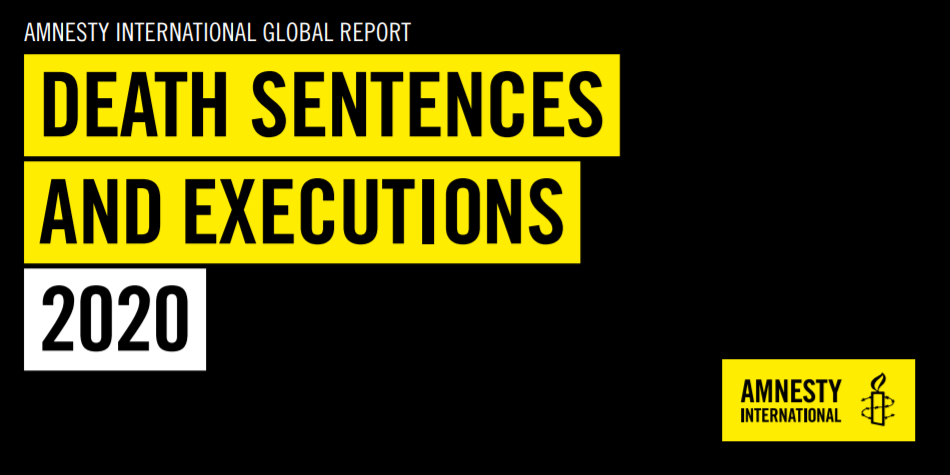
Article(s)
Editorial: Amnesty International releases annual report
By Amnesty International, on 27 May 2021
On 21 April, we published our annual report on the global use of the death penalty, which shows that in 2020 the world got one step closer to freeing itself from this cruel punishment.
Cruel, Inhuman and Degrading Treatment and Punishment
Death Row Conditions
Public Opinion

Article(s)
Statement delivered to ACHPR on its 68th Ordinary Session
By FIACAT, FIDH, WCADP, Avocats Sans Frontières, COJESKI-RDC, ECPM, RAL and Reprieve, on 12 May 2021
Oral statement on behalf of FIACAT, FIDH, World Coalition against the Death Penalty, ECPM, Avocats sans frontières, COJESKI-RDC, ECPM, RAL and Reprieve on the activities of the Members of the Commission and the Special Mechanisms.
2021
Cruel, Inhuman and Degrading Treatment and Punishment
Document(s)
Death Penalty For Drug Offences: Global Overview 2020
By Harm Reduction International (HRI), on 4 May 2021
2021
NGO report
Drug Offenses
More details See the document
Harm Reduction International has monitored the use of the death penalty for drug offences worldwide since our first ground-breaking publication on this issue in 2007.
This report, our tenth on the subject, continues our work of providing regular updates on legislative, policy and practical developments related to the use of capital punishment for drug offences, a practice which is a clear violation of international law.
- Document type NGO report
- Themes list Drug Offenses

Article(s)
Adoption of Bill Allowing the Imposition of the Death Penalty for a New Crime.
By Grace Keane O'Connor , on 30 April 2021
Philippine House Bill No. 7814 provides the death penalty for a new crime under the 2002 Comprehensive Dangerous Drugs Act.
2021
Drug Offenses
Philippines
Document(s)
Co-Sponsorship, Note Verbale, and Association Behaviour at the Unga: An Analysis of the Death Penalty Moratorium Resolutions
By Daniel Pascoe & Sangmin Bae, on 22 April 2021
2021
Academic report
Moratorium
More details See the document
Since December 2007, seven resolutions in favour of a universal moratorium on death penalty executions have been adopted by the UN General Assembly. In an earlier paper (Pascoe and Bae 2020) we examined UN member states’ voting patterns over these seven resolutions, asking why some countries vote in a manner seemingly contradictory to their domestic death penalty practices. With a slightly different focus, we now further explore idiosyncratic state behaviour, this time through an analysis of co-sponsorship and the note verbale of dissociation. Our assumption is that states which plan to vote ‘yes’ in the plenary will also co-sponsor the resolution beforehand. We also presume that states which vote ‘no’ in the plenary will sign the note verbale invariably circulated several months later, as a further means of condemnation.
However, when it comes to the moratorium resolutions, not all member states fit into either of these binary categories. Many countries situate themselves in between the two groups of ‘genuine’ supporters and opponents. These countries in the middle evince inconsistency between their plenary votes and what we term their ‘association behaviour’ before or after the plenary, consisting of co-sponsorship and adherence to the note verbale. This paper analyses these groups of countries to determine the underlying causes for their ambivalent, or even contradictory, positions concerning the moratorium resolutions. The findings of this research stand to enrich not only the academic literature on international organizations, but also to inform the campaigning efforts of abolitionist UN member states and non-governmental organizations.
- Document type Academic report
- Themes list Moratorium
Document(s)
Keep the Death Penalty Abolished in the Philippines (Waray)
By World Coalition Against Death Penalty, on 23 March 2021
2021
Campaigning
Drug Offenses
Philippines
More details Download [ pdf - 1057 Ko ]
This brochure was developed by the World Coalition Against the Death Penalty with the Commission on the Human Rights in the Philippines. It explains why the death penalty risks returning in the Philippines and the reasons against its resurgence. It is available in 11 languages of the Philippines, plus French and English.
- Document type Campaigning
- Countries list Philippines
- Themes list Drug Offenses
Document(s)
Keep the Death Penalty Abolished in the Philippines (Tausug)
By World Coalition Against Death Penalty, on 23 March 2021
Campaigning
Drug Offenses
Philippines
More details Download [ pdf - 2595 Ko ]
This brochure was developed by the World Coalition Against the Death Penalty with the Commission on the Human Rights in the Philippines. It explains why the death penalty risks returning in the Philippines and the reasons against its resurgence. It is available in 11 languages of the Philippines, plus French and English.
- Document type Campaigning
- Countries list Philippines
- Themes list Drug Offenses
Document(s)
Keep the Death Penalty Abolished in the Philippines (Tagalog)
By World Coalition Against Death Penalty, on 23 March 2021
Campaigning
Drug Offenses
Philippines
More details Download [ pdf - 2519 Ko ]
This brochure was developed by the World Coalition Against the Death Penalty with the Commission on the Human Rights in the Philippines. It explains why the death penalty risks returning in the Philippines and the reasons against its resurgence. It is available in 11 languages of the Philippines, plus French and English.
- Document type Campaigning
- Countries list Philippines
- Themes list Drug Offenses
Document(s)
Keep the Death Penalty Abolished in the Philippines (Pangasinense)
By World Coalition Against Death Penalty, on 23 March 2021
Campaigning
Drug Offenses
Philippines
More details Download [ pdf - 1042 Ko ]
This brochure was developed by the World Coalition Against the Death Penalty with the Commission on the Human Rights in the Philippines. It explains why the death penalty risks returning in the Philippines and the reasons against its resurgence. It is available in 11 languages of the Philippines, plus French and English.
- Document type Campaigning
- Countries list Philippines
- Themes list Drug Offenses
Document(s)
Keep the Death Penalty Abolished in the Philippines (Marano)
By World Coalition Against Death Penalty, on 23 March 2021
Campaigning
Drug Offenses
Philippines
More details Download [ pdf - 1410 Ko ]
This brochure was developed by the World Coalition Against the Death Penalty with the Commission on the Human Rights in the Philippines. It explains why the death penalty risks returning in the Philippines and the reasons against its resurgence. It is available in 11 languages of the Philippines, plus French and English.
- Document type Campaigning
- Countries list Philippines
- Themes list Drug Offenses
Document(s)
Keep the Death Penalty Abolished in the Philippines (Kapampangan)
By World Coalition Against Death Penalty, on 23 March 2021
Campaigning
Drug Offenses
Philippines
More details Download [ pdf - 731 Ko ]
This brochure was developed by the World Coalition Against the Death Penalty with the Commission on the Human Rights in the Philippines. It explains why the death penalty risks returning in the Philippines and the reasons against its resurgence. It is available in 11 languages of the Philippines, plus French and English.
- Document type Campaigning
- Countries list Philippines
- Themes list Drug Offenses
Document(s)
Keep the Death Penalty Abolished in the Philippines (Ilokano)
By World Coalition Against Death Penalty, on 23 March 2021
Campaigning
Drug Offenses
Philippines
More details Download [ pdf - 2550 Ko ]
This brochure was developed by the World Coalition Against the Death Penalty with the Commission on the Human Rights in the Philippines. It explains why the death penalty risks returning in the Philippines and the reasons against its resurgence. It is available in 11 languages of the Philippines, plus French and English.
- Document type Campaigning
- Countries list Philippines
- Themes list Drug Offenses
Document(s)
Keep the Death Penalty Abolished in the Philippines (Hiligaynon)
By World Coalition Against Death Penalty, on 23 March 2021
Campaigning
Drug Offenses
Philippines
More details Download [ pdf - 2538 Ko ]
This brochure was developed by the World Coalition Against the Death Penalty with the Commission on the Human Rights in the Philippines. It explains why the death penalty risks returning in the Philippines and the reasons against its resurgence. It is available in 11 languages of the Philippines, plus French and English.
- Document type Campaigning
- Countries list Philippines
- Themes list Drug Offenses
Document(s)
Keep the Death Penalty Abolished in the Philippines (English)
By World Coalition Against Death Penalty, on 23 March 2021
Campaigning
Drug Offenses
Philippines
frMore details Download [ pdf - 7827 Ko ]
This brochure was developed by the World Coalition Against the Death Penalty with the Commission on the Human Rights in the Philippines. It explains why the death penalty risks returning in the Philippines and the reasons against its resurgence. It is available in 11 languages of the Philippines, plus French and English.
- Document type Campaigning
- Countries list Philippines
- Themes list Drug Offenses
- Available languages Maintenir l'abolition de la peine de mort aux Philippines (Français)
Document(s)
Keep the Death Penalty Abolished in the Philippines (Cebuano)
By World Coalition Against Death Penalty, on 23 March 2021
Campaigning
Drug Offenses
Philippines
More details Download [ pdf - 2567 Ko ]
This brochure was developed by the World Coalition Against the Death Penalty with the Commission on the Human Rights in the Philippines. It explains why the death penalty risks returning in the Philippines and the reasons against its resurgence. It is available in 11 languages of the Philippines, plus French and English.
- Document type Campaigning
- Countries list Philippines
- Themes list Drug Offenses
Document(s)
Keep the Death Penalty Abolished in the Philippines (Bicolano)
By World Coalition Against Death Penalty, on 23 March 2021
Campaigning
Drug Offenses
Philippines
More details Download [ pdf - 2584 Ko ]
This brochure was developed by the World Coalition Against the Death Penalty with the Commission on the Human Rights in the Philippines. It explains why the death penalty risks returning in the Philippines and the reasons against its resurgence. It is available in 11 languages of the Philippines, plus French and English.
- Document type Campaigning
- Countries list Philippines
- Themes list Drug Offenses
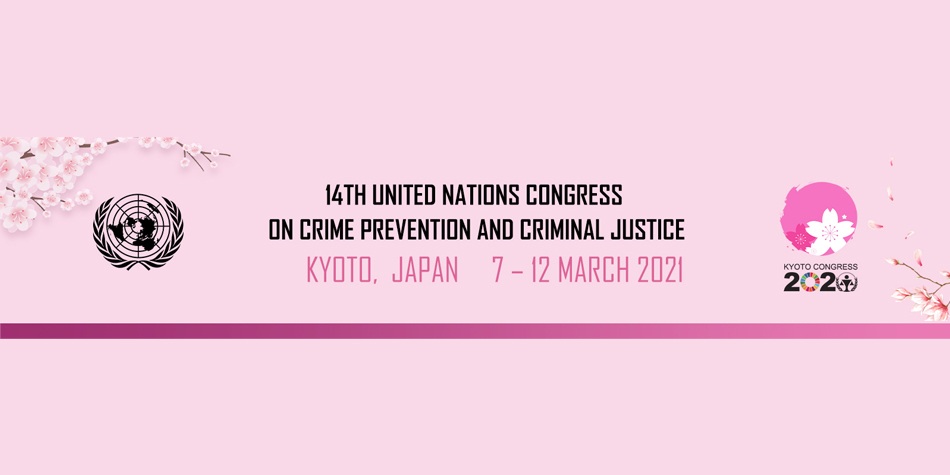
Article(s)
Recapping the UN Crime Congress in Kyoto
By Teppei Ono, CPR, on 15 March 2021
The United Nations Congress on Crime Prevention and Criminal Justice was held in Kyoto, Japan from 7 to 12 March 2021.
2021
Public Opinion

Article(s)
Abolition of the death penalty must be an integral part of crime prevention programmes and criminal justice reforms
By Amnesty International, on 5 March 2021
As the Fourteenth United Nations Congress on Crime Prevention and Criminal Justice is about to begin in Kyoto, Japan, the undersigned organizations urge the Economic and Social Council (ECOSOC) and its subsidiary bodies, including the UN Office on Drugs and Crime (UNODC); and all UN member states, including the Congress host country Japan, to make […]
2021
Public Opinion

Article(s)
UN High Level Panel on the Death Penalty and Deterrence
By Grace O'Connor, on 25 February 2021
The UN Biennial High Level Panel on the Death penalty focused on the deterrent effect capital punishment has on crime. Representatives from member states, NGOs and NHRIs made statements to the high level panel discussing the deterrent theory.
2021
Public Opinion

Article(s)
The Flaws of Deterrence Theory for Capital Punishment
By Fiacat, on 23 February 2021
Joint Oral Statement delivered during the United Nations 46th Human Rights Council Biennial high-level panel discussion on the question of the death penalty.
2021
Public Opinion

Article(s)
Pakistan’s Supreme Court Repeals Death Penalty for people with intellectual disability
By Louis Linel, on 10 February 2021
By commuting two death sentences, the Supreme Court of Pakistan ruled that capital punishment cannot be carried out to people with serious mental health issues.
2021
Intellectual Disability
Pakistan

Article(s)
Calling Upon the Council of Paris to Overhaul Bahrain-Owned Paris FC’s Subsidy
By Americans for Democracy and Human Rights in Bahrain, on 5 February 2021
This Tuesday, on February 2, 2021, the Council of Paris will announce its position on the renewal of the yearly €500,000 subvention allocated to the Paris FC.
2021
Bahrain
Cruel, Inhuman and Degrading Treatment and Punishment
Moratorium

Article(s)
246 People Removed from Death Rows in Zambia
on 29 January 2021
President Edgar Lungo announced, on 27 January 2021, that 246 death sentences had been commuted into life, a more than welcome decision that has brought the overall number of commutations to over 500 since 2015.
2021
Clemency
Zambia

Article(s)
How Business May Contribute to Universal Abolition
By Louis Linel, on 29 January 2021
Non-governmental organizations (NGOs) have long been at the forefront of the movement for human dignity, as the main, highly-specialized – and sometimes isolated– champions for social justice. However, a new generation of advocates from the private sector, whose primary center of interest or area of expertise seems disconnected from international human rights standards, has been […]
Public Opinion
Document(s)
Let the Lord Sort Them. The Rise and Fall of the Death Penalty
By Maurice Chammah, on 27 January 2021
2021
Book
Public Opinion
United States
More details See the document
Maurice Chammah (The Marshall Project) explores the rise and fall of capital punishment in Texas where it appears to durably decline in spite of the state’s long use of the death penalty.
- Document type Book
- Countries list United States
- Themes list Public Opinion
Document(s)
Resolution 75/183 – Moratorium on the use of the death penalty
By United Nations General Assembly, on 12 January 2021
2021
International law - United Nations
Moratorium
aresfrruzh-hantMore details See the document
United Nations General Assembly Resolution adopted by the General Assembly on 16 December 2020 [on the report of the Third Committee (A/75/478/Add.2, para. 89) 75/183. Moratorium on the use of the death penalty.
- Document type International law - United Nations
- Themes list Moratorium
- Available languages قرار اتخذته الجمعية العامة في 16 كانون الأول/ديسمبر 2020Resolución 75/183 - Moratoria del uso de la pena de muerteRésolution 75/183 - Moratoire sur l'application de la peine de mortРезолюция 75/183 - Мораторий на применение смертной казни大会决议75/183 - 暂停使用死刑
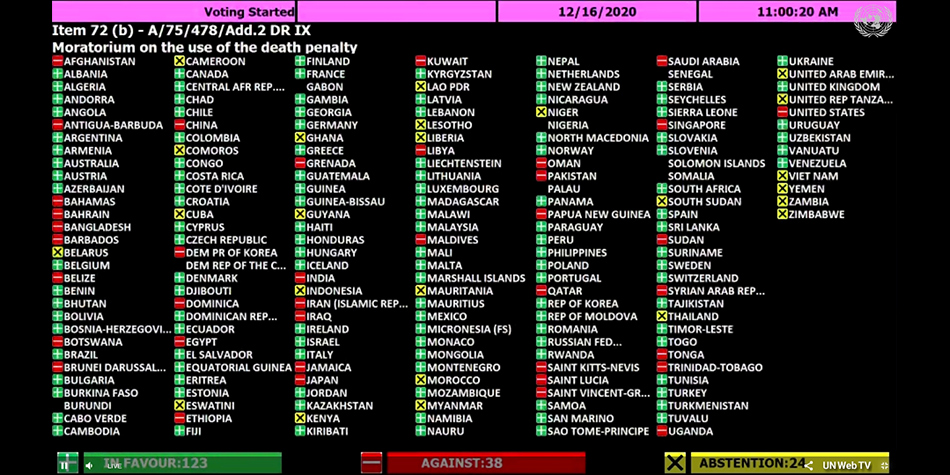
Article(s)
Statement on the Adoption of the 8th UN General Assembly Resolution for a Moratorium on the Use of the Death Penalty
By World Coalition Against the Death Penalty, on 17 December 2020
The World Coalition Against the Death Penalty warmly congratulates the United Nations General Assembly (UNGA) on the adoption of Resolution A/RES/75/183 for a moratorium on the use of the death penalty, which was adopted by a great majority of 123 UN Member States on 16 December 2020.
2020
Moratorium
Document(s)
Sentenced to Death Without Execution
on 15 December 2020
2020
NGO report
Antigua and Barbuda
Barbados
Dominica
Grenada
Saint Kitts and Nevis
Saint Lucia
Saint Vincent and the Grenadines
Trend Towards Abolition
More details Download [ pdf - 1597 Ko ]
This research is a contribution towards understanding why six small, independent island nations in the
Eastern Caribbean – Antigua and Barbuda, Dominica, Grenada, St Kitts and Nevis, St Lucia, and St
Vincent and the Grenadines, all members of the OECS – and the neighbouring island of Barbados retain
the death penalty in their criminal statutes, and yet have not executed anyone sentenced to death for a
very long time. With the exception of St Kitts and Nevis, where an execution took place in 2008, no-one
has been judicially executed in any of the other countries for more than 20 years – and in Dominica,
Grenada, St Lucia and Barbados for more than 30 years. Furthermore, death sentences have been imposed
within the past 10 years only in St Lucia and Barbados, and in four of these seven nations no-one is under
sentence of death on ‘death row’ at the time of writing.
The questions posed by this publication are: why do these countries hang on to capital punishment
and what are the barriers and hindrances to the complete abolition of capital punishment by these
nations
- Document type NGO report
- Countries list Antigua and Barbuda / Barbados / Dominica / Grenada / Saint Kitts and Nevis / Saint Lucia / Saint Vincent and the Grenadines
- Themes list Trend Towards Abolition
Document(s)
Abolition of the Death Penalty in the Eastern Caribbean and Barbados
on 15 December 2020
Lobbying
Barbados
Trend Towards Abolition
More details Download [ pdf - 2611 Ko ]
Greater Caribbean for Life has launched its educational toolkit to assist activists and organisations as they work toward abolishing the death penalty in the Greater Caribbean. The production of this toolkit forms part of GCL’s activities under its EU partnered project to educate on death penalty abolition in the Eastern Caribbean and Barbados.
The launch of the toolkit is timely as a few of these target countries recently voted against adopting the UN Moratorium on the use of the death penalty and countries that had previously chosen to abstain have now firmly voted against the resolution.
GCL members condemn the rise of violent crime in our region and express solidarity and compassion with the victims of crime, however, we reject the notion that capital punishment will act as a deterrent or foster respect for life in our communities.
It is our hope that this toolkit will assist in promoting respect for the right to life for all human beings in the Caribbean region.
- Document type Lobbying
- Countries list Barbados
- Themes list Trend Towards Abolition
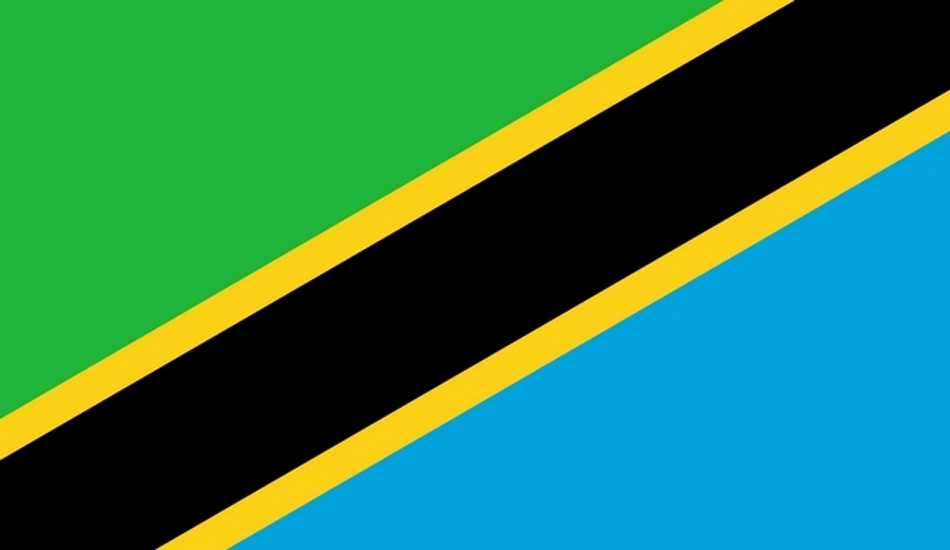
Article(s)
256 Death Sentences Commuted Into Life in Tanzania
By Louis Linel, on 11 December 2020
On the occasion of Tanzania’s Independence Day on 9 December, President John Magufuli announced he would commute the death sentences of 256 convicts into life imprisonment. The law say I must hang all 256 of them. [But] [w]ho will be more sinful – those convicted of killing one, two, or three people, or me, who […]
2020
Clemency
United Republic of Tanzania
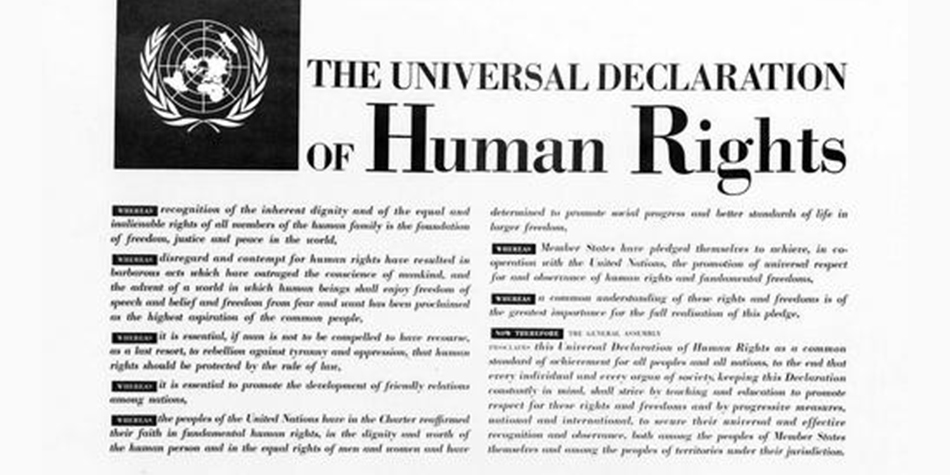
Article(s)
Statement on the occasion of the International Human Rights Day
By World Coalition Against the Death Penalty, on 10 December 2020
Humanity and the global human rights movement, including the World Coalition Against the Death Penalty, are celebrating the 72nd anniversary of the adoption of the Universal Declaration of Human Rights on 10 December 1948. This day has been commemorated by the United Nations as International Human Rights Day.
2020
Moratorium

Article(s)
Community of Sant’Egidio Calls for Universal Abolition with Cities for Life, Cities Against the Death Penalty
By Louis Linel, on 8 December 2020
The discussion was chaired by Mario Marazitti, who stood in front of broadcasted live images of the light-draped Colosseum in Rome, Italy, displaying the slogan of this international key event, “No Justice Without Life”.
2020
Italy
Malaysia
Public Opinion
United States
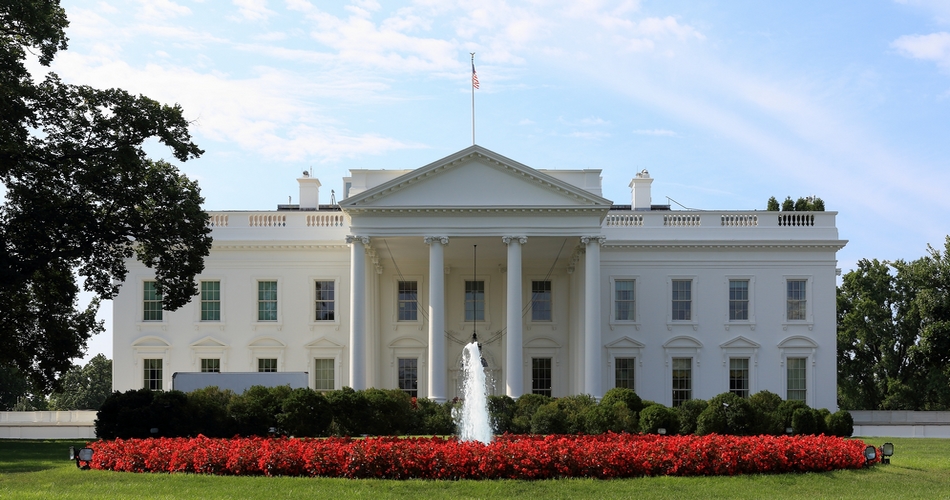
Article(s)
Appel à suspendre les exécutions fédérales ordonnées par l’administration sortante aux États-Unis d’Amérique
on 8 December 2020
Quelques jours après été battu lors des élections face à Joe Biden, le gouvernement de Donald Trump a continué à programmer de nouvelles exécutions fédérales, poursuivant la mise en œuvre d’un programme cruel, inhumain et dégradant en matière de peine de mort. Le président Trump avait permis la reprise des exécutions fédérales en juillet 2020, […]
United States
Moratorium
Public Opinion
Public Opinion

Article(s)
Calling for an End to the Federal Executions of the Outgoing Trump Administration
By World Coalition Against the Death Penalty, on 8 December 2020
A few days after losing the national election to President-Elect Joe Biden, the Donald Trump administration in the United States of America has continued scheduling a spree of federal executions in an attempt to push its cruel, inhuman and degrading death penalty agenda forward. President Trump resumed federal executions in July 2020, breaking a 17-year […]
Moratorium
Public Opinion
United States
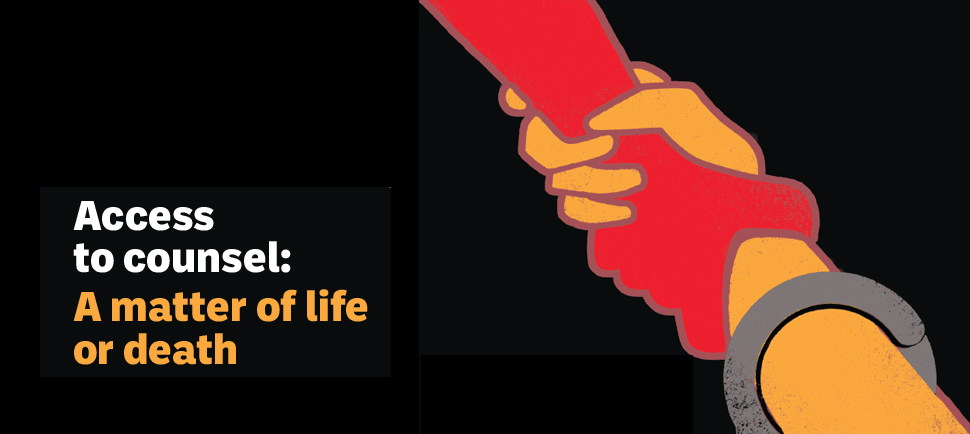
Article(s)
The 18th World Day Against the Death Penalty Highlights the Life-Saving Importance of Effective Legal Representation in Capital Cases
By Gia Tongson, on 18 November 2020
The 18th World Day Against the Death Penalty explored the theme “Access to Counsel: A Matter of Life or Death” in light of the continued execution of individuals who struggle to have adequate support from their lawyers, who consequently also face their own challenges in the judicial system. Having access to qualified and effective representation […]
2020
Australia
Belgium
Canada
Congo
Egypt
Fair Trial
France
Kazakhstan
Philippines
Portugal
Uganda
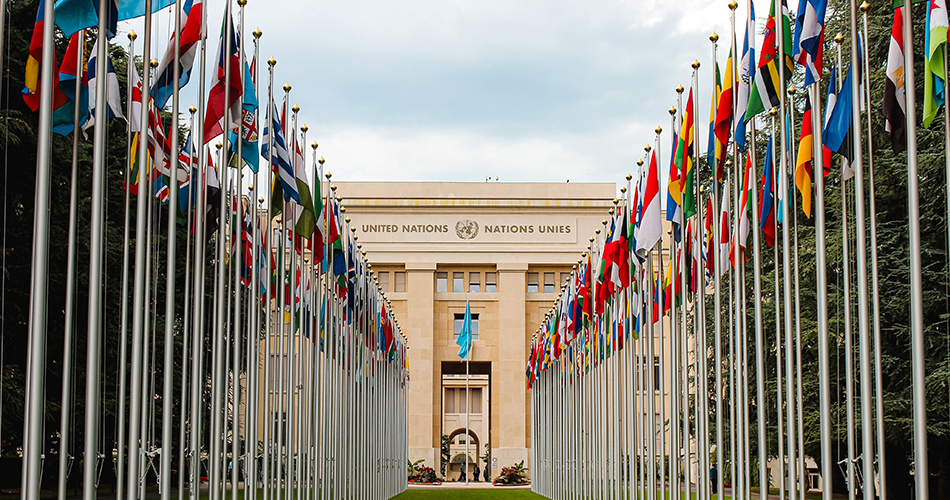
Article(s)
120 UN Member States Support the Moratorium at Committee Vote
By Louis Linel, on 18 November 2020
On 17 November, the Third Committee of the United Nations General Assembly has adopted a draft resolution calling upon UN Member States to observe a moratorium on executions.
Congo
Democratic Republic of the Congo
Djibouti
Eswatini
Guinea
Lebanon
Mexico
Moratorium
Nauru
Philippines
Republic of Korea
Sierra Leone
Switzerland
Article(s)
High-Level Remote Panel on the Moratorium Resolution
By Louis Linel, on 6 November 2020
On 5 November, a webinar gathering high-level panelists was held by Ensemble contre la peine de mort / Together Against the Death Penalty (ECPM) as one of their initiatives for the moratorium campaign. Usually organized in New York, USA on the margins of the United Nations General Assembly (UNGA), the event had to be facilitated […]
2020
Algeria
Belgium
Democratic Republic of the Congo
France
Italy
Moratorium
Morocco
Switzerland
Document(s)
No one is spared – The widespread use of the death penalty in Iran
By League for the Defence of Human Rights in Iran, on 5 November 2020
2020
Drug Offenses
Fair Trial
Iran (Islamic Republic of)
Juveniles
Women
More details See the document
- Document type Array
- Countries list Iran (Islamic Republic of)
- Themes list Drug Offenses / Fair Trial / Juveniles / Women

Article(s)
Groundbreaking Survey Reveals Iranians’ Attitudes Towards the Death Penalty
By GAMAAN Institute / World Coalition Against the Death Penalty, on 23 October 2020
This survey, conducted by the GAMAAN Institute between the 3rd and the 11th of September 2020, includes responses from about twenty thousand people living inside Iran.
2020
Iran (Islamic Republic of)
Public Opinion
Document(s)
Note verbale dated 13 September 2019 from the Permanent Representative of Egypt to the United Nations addressed to the Secretary-General
By United Nations, on 15 October 2020
2020
United Nations report
Bahrain
Bangladesh
Botswana
Brunei Darussalam
Chad
China
Democratic People's Republic of Korea
Egypt
Ethiopia
Grenada
Iran (Islamic Republic of)
Iraq
Jamaica
Kuwait
Libya
Moratorium
Nigeria
Oman
Pakistan
Papua New Guinea
Qatar
Saint Kitts and Nevis
Saint Lucia
Saint Vincent and the Grenadines
Saudi Arabia
Singapore
Sudan
Syrian Arab Republic
United Arab Emirates
Yemen
Zimbabwe
aresfrruzh-hantMore details See the document
The Permanent Missions to the United Nations inNew York listed below have the honour to refer to General Assembly resolution 73/175, entitled “Moratorium on the use of the death penalty”, which was adopted by the Assembly on 17 December 2018 by a recorded vote. The Permanent Missions wish to place on record that they are in persistent objection to any attempt to impose a moratorium on the use of the death penalty or its abolition in contravention of existing stipulations under international law, for the following reasons:
- Document type United Nations report
- Countries list Bahrain / Bangladesh / Botswana / Brunei Darussalam / Chad / China / Democratic People's Republic of Korea / Egypt / Ethiopia / Grenada / Iran (Islamic Republic of) / Iraq / Jamaica / Kuwait / Libya / Nigeria / Oman / Pakistan / Papua New Guinea / Qatar / Saint Kitts and Nevis / Saint Lucia / Saint Vincent and the Grenadines / Saudi Arabia / Singapore / Sudan / Syrian Arab Republic / United Arab Emirates / Yemen / Zimbabwe
- Themes list Moratorium
- Available languages مذكرة شفوية مؤرخة 13 أيلول/سبتمبر 2019 موجهة إلى الأمين العام من الممثل الدائم لمصر لدى الأمم المتحدةNota verbal de fecha 13 de septiembre de 2019 dirigida al Secretario Generalpor el Representante Permanente de Egipto ante las Naciones UnidasNote verbale datée du 13 septembre 2019, adressée au Secrétaire général par le Représentant permanent de l’Égypte auprès de l’Organisation des Nations UniesВербальная нота Постоянного представителя Египта при Организации Объединенных Наций от 13 сентября 2019 года на имя Генерального секретаря2019年9月13日埃及常驻联合国代表给秘书长的普通照会

Article(s)
75th UN General Assembly High-Level Event Focuses on the Gender Dimension of the Death Penalty
By Gia Tongson, on 6 October 2020
On September 24th, the UN Permanent Mission of Italy, the European Union, and Amnesty International, in cooperation with the UN Office of the High Commissioner on Human Rights (OHCHR) and UN Women, held a high-level virtual event that shed light on the gender dimension of the death penalty. The webinar was conducted as part of […]
2020
Death Row Conditions
Fair Trial
Women
Article(s)
Take Action for World Day 2020!
By World Coalition Against the Death Penalty, on 10 September 2020
Take action now! The 18th World Day Against the Death Penalty is an excellent opportunity to publicly oppose the use of this inhumane punishment and to support those who are fighting for its abolition all over the world. Organising an event for October 10? Tell us all about it and we will promote it on […]
2020
Fair Trial
Legal Representation
Document(s)
Note verbale dated 28 July 2015 from the Permanent Mission of Egypt to the United Nations addressed to the Secretary-General
By United Nations, on 8 September 2020
2020
United Nations report
Antigua and Barbuda
Bangladesh
Botswana
Brunei Darussalam
China
Democratic People's Republic of Korea
Egypt
Ethiopia
Guyana
Iran (Islamic Republic of)
Iraq
Jamaica
Kuwait
Libya
Malaysia
Moratorium
Nigeria
Oman
Pakistan
Qatar
Saudi Arabia
Singapore
Sudan
Syrian Arab Republic
Trinidad and Tobago
United Arab Emirates
Yemen
Zimbabwe
aresfrruzh-hantMore details See the document
The permanent missions to the United Nations in New York listed below have the honour to refer to General Assembly resolution 69/186, entitled “Moratorium on the use of the death penalty”, which was adopted by the Third Committee on 21 November 2014 and subsequently by the General Assembly on 18 December 2014 by a recorded vote. The permanent missions wish to place on record that they are in persistent objection to any attempt to impose a moratorium on the use of the death penalty or its abolition in contravention of existing stipulations under international law, for the following reasons:
- Document type United Nations report
- Countries list Antigua and Barbuda / Bangladesh / Botswana / Brunei Darussalam / China / Democratic People's Republic of Korea / Egypt / Ethiopia / Guyana / Iran (Islamic Republic of) / Iraq / Jamaica / Kuwait / Libya / Malaysia / Nigeria / Oman / Pakistan / Qatar / Saudi Arabia / Singapore / Sudan / Syrian Arab Republic / Trinidad and Tobago / United Arab Emirates / Yemen / Zimbabwe
- Themes list Moratorium
- Available languages مذكرة شفوية مؤرخة 28 تموز/يوليه ٢٠١٥ موجهة إلى الأمين العام من البعثة الدائمة لمصر لدى الأمم المتحدةNota verbal de fecha 28 de julio de 2015 dirigida al Secretario General por la Misión Permanente de Egipto ante las Naciones UnidasNote verbale datée du 28 juillet 2015, adressée au Secrétaire général par la Mission permanente de l’Égypte auprès de l’Organisation des Nations UniesВербальная нота Постоянного представительства Египта при Организации Объединенных Наций от 28 июля 2015 года на имя Генерального секретаря2015年7月28日埃及常驻联合国代表团给秘书长的普通照会
Document(s)
Note verbale dated 16 April 2013 from the Permanent Mission of Egypt to the United Nations addressed to the Secretary-General
By United Nations, on 8 September 2020
United Nations report
Afghanistan
Antigua and Barbuda
Bahrain
Bangladesh
Barbados
Botswana
Brunei Darussalam
Chad
China
Democratic People's Republic of Korea
Egypt
Equatorial Guinea
Eritrea
Eswatini
Ethiopia
Grenada
Guyana
India
Iran (Islamic Republic of)
Iraq
Jamaica
Kuwait
Lao People's Democratic Republic
Libya
Malaysia
Mauritania
Moratorium
Myanmar
Nigeria
Oman
Pakistan
Papua New Guinea
Qatar
Saint Kitts and Nevis
Saint Lucia
Saint Vincent and the Grenadines
Saudi Arabia
Singapore
Solomon Islands
Somalia
Sudan
Syrian Arab Republic
Tonga
Trinidad and Tobago
Uganda
United Arab Emirates
Yemen
Zimbabwe
aresfrruzh-hantMore details See the document
The permanent missions to the United Nations in New York listed below have the honour to refer to General Assembly resolution 67/176, entitled “Moratorium on the use of the death penalty”, which was adopted by the Third Committee on 19 November 2012, and subsequently by the General Assembly on 20 December 2012 by a recorded vote. The permanent missions wish to place on record that they are in persistent objection to any attempt to impose a moratorium on the use of the death penalty or its abolition in contravention of existing stipulations under international law, for the following reasons:
- Document type United Nations report
- Countries list Afghanistan / Antigua and Barbuda / Bahrain / Bangladesh / Barbados / Botswana / Brunei Darussalam / Chad / China / Democratic People's Republic of Korea / Egypt / Equatorial Guinea / Eritrea / Eswatini / Ethiopia / Grenada / Guyana / India / Iran (Islamic Republic of) / Iraq / Jamaica / Kuwait / Lao People's Democratic Republic / Libya / Malaysia / Mauritania / Myanmar / Nigeria / Oman / Pakistan / Papua New Guinea / Qatar / Saint Kitts and Nevis / Saint Lucia / Saint Vincent and the Grenadines / Saudi Arabia / Singapore / Solomon Islands / Somalia / Sudan / Syrian Arab Republic / Tonga / Trinidad and Tobago / Uganda / United Arab Emirates / Yemen / Zimbabwe
- Themes list Moratorium
- Available languages مذكرة شفوية مؤرخة 16 نيسان/أبريل 2013 موجهة إلى الأمين العام من البعثة الدائمة لمصر لدى الأمم المتحدةNota verbal de fecha 16 de abril de 2013 dirigida al Secretario General por la Misión Permanente de Egipto ante las Naciones UnidasNote verbale datée du 16 avril 2013, adressée au Secrétaire général par la Mission permanente de l’Égypte auprès de l’Organisation des Nations UniesВербальная нота Постоянного представительства Египта при Организации Объединенных Наций от 16 апреля 2013 года на имя Генерального секретаря2013年4月16日埃及常驻联合国代表团给秘书长的普通照会
Document(s)
Note verbale dated 11 March 2011 from the Permanent Mission of Egypt to the United Nations addressed to the Secretary-General
By United Nations, on 8 September 2020
United Nations report
Afghanistan
Antigua and Barbuda
Bahamas
Bahrain
Bangladesh
Barbados
Botswana
Brunei Darussalam
Central African Republic
Chad
China
Democratic People's Republic of Korea
Democratic Republic of the Congo
Dominica
Egypt
Equatorial Guinea
Eritrea
Eswatini
Ethiopia
Grenada
Guinea
Guyana
Indonesia
Iran (Islamic Republic of)
Iraq
Jamaica
Kuwait
Lao People's Democratic Republic
Libya
Malaysia
Moratorium
Myanmar
Niger
Nigeria
Oman
Pakistan
Papua New Guinea
Qatar
Saint Kitts and Nevis
Saint Lucia
Saint Vincent and the Grenadines
Saudi Arabia
Sierra Leone
Singapore
Solomon Islands
Somalia
Sudan
Syrian Arab Republic
Tonga
Trinidad and Tobago
Uganda
United Arab Emirates
Yemen
Zimbabwe
aresfrruzh-hantMore details See the document
The permanent missions to the United Nations in New York listed below have the honour to refer to General Assembly resolution 65/206, entitled “Moratorium on the use of the death penalty”, which was adopted by the Third Committee on 11 November 2010, and subsequently by the General Assembly on 21 December 2010 by a recorded vote. The permanent missions wish to place on record that they are in persistent objection to any attempt to impose a moratorium on the use of the death penalty or its abolition in contravention of existing stipulations under international law, for the following reasons:
- Document type United Nations report
- Countries list Afghanistan / Antigua and Barbuda / Bahamas / Bahrain / Bangladesh / Barbados / Botswana / Brunei Darussalam / Central African Republic / Chad / China / Democratic People's Republic of Korea / Democratic Republic of the Congo / Dominica / Egypt / Equatorial Guinea / Eritrea / Eswatini / Ethiopia / Grenada / Guinea / Guyana / Indonesia / Iran (Islamic Republic of) / Iraq / Jamaica / Kuwait / Lao People's Democratic Republic / Libya / Malaysia / Myanmar / Niger / Nigeria / Oman / Pakistan / Papua New Guinea / Qatar / Saint Kitts and Nevis / Saint Lucia / Saint Vincent and the Grenadines / Saudi Arabia / Sierra Leone / Singapore / Solomon Islands / Somalia / Sudan / Syrian Arab Republic / Tonga / Trinidad and Tobago / Uganda / United Arab Emirates / Yemen / Zimbabwe
- Themes list Moratorium
- Available languages مذكرة شفوية مؤرخة 11 آذار/مارس 2011 موجَّهة إلى الأمين العام من البعثة الدائمة لمصر لدى الأمم المتحدةNota verbal de fecha 11 de marzo de 2011 dirigida al Secretario General por la Misión Permanente de Egipto ante las Naciones UnidasNote verbale datée du 11 mars 2011, adressée au Secrétaire général par la Mission permanente de l’Égypte auprès de l’Organisation des Nations UniesВербальная нота Постоянного представительства Египта при Организации Объединенных Наций от 11 марта 2011 года на имя Генерального секретаря2011年3月11日埃及常驻联合国代表团给秘书长的普通照会
Document(s)
Note verbale dated 10 February 2009 from the Permanent Missions to the United Nations of Afghanistan, the Bahamas, […] and Zimbabwe addressed to the Secretary-General
By United Nations, on 8 September 2020
United Nations report
Afghanistan
Bahamas
Bahrain
Bangladesh
Barbados
Botswana
Brunei Darussalam
Central African Republic
Chad
China
Comoros
Democratic People's Republic of Korea
Dominica
Egypt
Equatorial Guinea
Eritrea
Eswatini
Ethiopia
Fiji
Gambia
Grenada
Guinea
Guyana
Indonesia
Iran (Islamic Republic of)
Iraq
Jamaica
Japan
Jordan
Kuwait
Lao People's Democratic Republic
Libya
Malaysia
Maldives
Mauritania
Mongolia
Moratorium
Myanmar
Niger
Nigeria
Papua New Guinea
Qatar
Saint Kitts and Nevis
Saint Lucia
Saint Vincent and the Grenadines
Saudi Arabia
Singapore
Solomon Islands
Somalia
Sudan
Suriname
Syrian Arab Republic
Thailand
Tonga
Trinidad and Tobago
Uganda
United Arab Emirates
Yemen
Zimbabwe
aresfrruzh-hantMore details See the document
The Permanent Missions to the United Nations in New York listed below present their compliments to the Secretary-General of the United Nations and have the honour to refer to resolution 62/149, entitled “Moratorium on the use of the death penalty”, which was adopted by the Third Committee on 15 November 2007, and subsequently by the General Assembly on 18 December 2007 by a recorded vote. The Permanent Missions wish to place on record that they are in persistent objection to any attempt to impose a moratorium on the use of the death penalty or its abolition in contravention to existing stipulations under international law, for the following reasons:
- Document type United Nations report
- Countries list Afghanistan / Bahamas / Bahrain / Bangladesh / Barbados / Botswana / Brunei Darussalam / Central African Republic / Chad / China / Comoros / Democratic People's Republic of Korea / Dominica / Egypt / Equatorial Guinea / Eritrea / Eswatini / Ethiopia / Fiji / Gambia / Grenada / Guinea / Guyana / Indonesia / Iran (Islamic Republic of) / Iraq / Jamaica / Japan / Jordan / Kuwait / Lao People's Democratic Republic / Libya / Malaysia / Maldives / Mauritania / Mongolia / Myanmar / Niger / Nigeria / Papua New Guinea / Qatar / Saint Kitts and Nevis / Saint Lucia / Saint Vincent and the Grenadines / Saudi Arabia / Singapore / Solomon Islands / Somalia / Sudan / Suriname / Syrian Arab Republic / Thailand / Tonga / Trinidad and Tobago / Uganda / United Arab Emirates / Yemen / Zimbabwe
- Themes list Moratorium
- Available languages مذكرةشفويةمؤرخة١٠شـباط/فبرايـر٢٠٠٩Nota verbal de fecha 10 de febrero de 2009 dirigida al Secretario General por las misiones permanentes ante las Naciones Unidas del Afganistán, la Arabia Saudita, [...] y ZimbabweNote verbale datée du 10 février 2009, adressée au Secrétaire général par les Missions permanentes auprès de l’Organisation des Nations Unies de l’Afghanistan, de l’Arabie saoudite, [...] et du ZimbabweВербальная нота постоянных представительств Афганистана, БагамскихОстровов, […] и Чада при Организации Объединенных Наций от 10 февраля 2009 года на имя Генерального секретаря9年2月10日阿富汗、巴哈马、巴林、[...] 也门和津巴布韦常驻联合国代表团给秘书长的普通照会
Document(s)
Note verbale dated 11 January 2008 from the Permanent Missions to the United Nations of Afghanistan, Antigua and Barbuda, […] and Zimbabwe addressed to the Secretary-General
By United Nations, on 8 September 2020
United Nations report
Afghanistan
Antigua and Barbuda
Bahamas
Bahrain
Bangladesh
Barbados
Botswana
Brunei Darussalam
Central African Republic
China
Comoros
Democratic People's Republic of Korea
Dominica
Egypt
Equatorial Guinea
Eritrea
Eswatini
Ethiopia
Fiji
Grenada
Guinea
Guyana
Indonesia
Iran (Islamic Republic of)
Iraq
Jamaica
Japan
Jordan
Kuwait
Lao People's Democratic Republic
Libya
Malaysia
Maldives
Mauritania
Mongolia
Moratorium
Myanmar
Nigeria
Oman
Pakistan
Papua New Guinea
Qatar
Saint Kitts and Nevis
Saint Lucia
Saint Vincent and the Grenadines
Saudi Arabia
Singapore
Solomon Islands
Somalia
Sudan
Suriname
Syrian Arab Republic
Thailand
Tonga
Trinidad and Tobago
Uganda
United Arab Emirates
Yemen
Zimbabwe
aresfrruzh-hantMore details See the document
The Permanent Missions to the United Nations in New York listed below present their compliments to the Secretary-General of the United Nations and have the honour to refer to resolution 62/149, entitled “Moratorium on the use of the death penalty”, which was adopted by the Third Committee on 15 November 2007, and subsequently by the General Assembly on 18 December 2007 by a recorded vote. The Permanent Missions wish to place on record that they are in persistent objection to any attempt to impose a moratorium on the use of the death penalty or its abolition in contravention to existing stipulations under international law, for the following reasons:
- Document type United Nations report
- Countries list Afghanistan / Antigua and Barbuda / Bahamas / Bahrain / Bangladesh / Barbados / Botswana / Brunei Darussalam / Central African Republic / China / Comoros / Democratic People's Republic of Korea / Dominica / Egypt / Equatorial Guinea / Eritrea / Eswatini / Ethiopia / Fiji / Grenada / Guinea / Guyana / Indonesia / Iran (Islamic Republic of) / Iraq / Jamaica / Japan / Jordan / Kuwait / Lao People's Democratic Republic / Libya / Malaysia / Maldives / Mauritania / Mongolia / Myanmar / Nigeria / Oman / Pakistan / Papua New Guinea / Qatar / Saint Kitts and Nevis / Saint Lucia / Saint Vincent and the Grenadines / Saudi Arabia / Singapore / Solomon Islands / Somalia / Sudan / Suriname / Syrian Arab Republic / Thailand / Tonga / Trinidad and Tobago / Uganda / United Arab Emirates / Yemen / Zimbabwe
- Themes list Moratorium
- Available languages مؤرخــةشــفويةمــذكرة11الثــانيكــانون/ينــاير2008Nota verbal de fecha 11 de enero de 2008 dirigida al Secretario General por las Misiones Permanentes ante las Naciones Unidas del Afganistán, Antigua y Barbuda, [...] y Zimbabwe ante las Naciones UnidasNote verbale datée du 11 janvier 2008, adressée au Secrétaire général par les missions permanentes auprès de l’Organisation des Nations Unies de l’Afghanistan, d’Antigua-et-Barbuda, [...] et du ZimbabweВербальная нота Постоянных представительств Антигуа и Барбуды, Афганистана, […] и Японии при Организации Объединенных Наций от 11 января 2008 года на имя Генерального секретаря普通照会2007

Article(s)
Recent US Federal Executions Raise Ethical and Political Issues
By Louis Linel, on 2 September 2020
Two more federal executions were carried out at the end of August in the United States of America. The abolitionist movement in the United States denounces human rights violations, challenges the cost of the death penalty in this time of crisis and even opposes its disrespect for tribal sovereignity.
2020
Fair Trial
Intellectual Disability
Public Opinion
United States

Article(s)
Expanded Ban on Death Penalty for Intellectually Disabled People in California
By Louis Linel, on 1 September 2020
The California State Legislature extended the ban on capital punishment for intellectually disabled people
2020
Intellectual Disability
United States

Article(s)
Saudi Arabia Reviews Death Sentences Issues Against Children
By Louis Linel, on 1 September 2020
According to the Saudi Human Rights Commission, the death sentence issued against Ali al-Nimr, Dawoud al-Marhoun and Abdullah al-Zaher will be reviewed in accordance with reforms decreed in the Kingdom in April on juvenile criminal justice.
Juveniles
Saudi Arabia

Article(s)
Reorienting Drug Policy in Indonesia towards the Achievement of the Sustainable Development Goals
By LHB Masyarakat, Swiss Federal Department of Foreign Affairs, on 6 August 2020
Indonesian not-for-profit organization LBH Masyarakat, Reprieve, and the Swiss Federal Department of Foreign Affairs recently published a report that reframes the drug problem and corresponding policy action in light of the country’s commitment to the achievement of the Sustainable Development Goals (SDGs). The report argues that the drug policies currently in place in Indonesia must be re-evaluated in such a way that tackles poverty and inequality and prioritizes support for those who are “left behind”, and put an end to its current punitive strategies.
2020
Drug Offenses
Indonesia
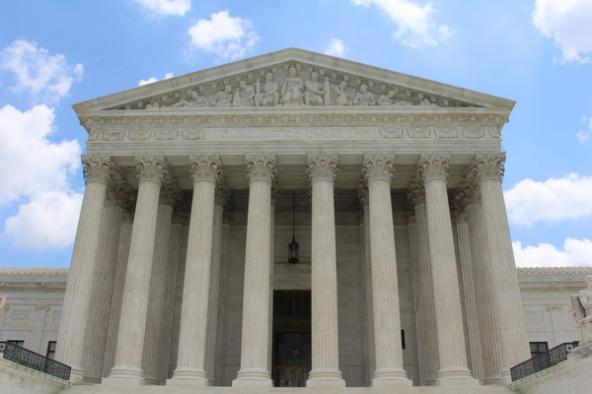
Article(s)
US Federal Executions Resume
By Louis Linel, on 28 July 2020
It has been 17 years since the United States decided on a de facto moratorium on federal executions, which can be carried out only for certain federal criminal offences. This moratorium, however, ended in July.
2020
Moratorium
United States
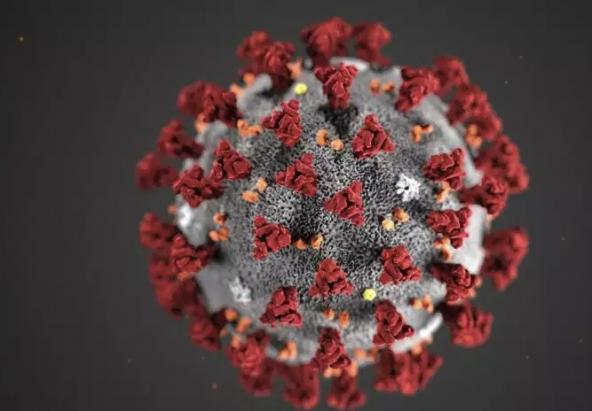
Article(s)
COVID-19: Calling for a Worldwide Moratorium on the Death Penalty During the Pandemic
By World Coalition Against the Death Penalty, on 18 June 2020
“When the whole world is trying hard to save lives from COVID-19, an execution by the state is contradictory and perverse” said Kevin Miguel Rivera Medina, President of the World Coalition Against the Death Penalty.
2020
Moratorium

Article(s)
The Abolition of the Death Penalty in Tunisia, a Fight Against Torture
By Organization Against Torture in Tunisia, on 18 June 2020
In its 2019 annual report, the Organization Against Torture in Tunisia (Organisation contre la torture en Tunisie, OCTT) denounced the death penalty and identified it as the most cruel form of torture.
Moratorium
Tunisia

Article(s)
Loopholes in Saudi promise to end death sentences against children
on 6 May 2020
Saudi Arabia’s Human Rights Commission has announced that children are no longer eligible for the death penalty in the Kingdom. Citing a royal decree, the commission stated that anyone convicted of crimes that took place while they were under the age of 18 will face a maximum punishment of ten years in juvenile detention.
2020
Juveniles
Saudi Arabia
Document(s)
The State of Texas vs. Melissa
By Sabrina Van Tassel, on 25 March 2020
2020
Multimedia content
Fair Trial
United States
More details See the document
Melissa Lucio was the first Hispanic woman sentenced to death in Texas. For ten years she has been awaiting her fate, and she now faces her last appeal.
- Document type Multimedia content
- Countries list United States
- Themes list Fair Trial
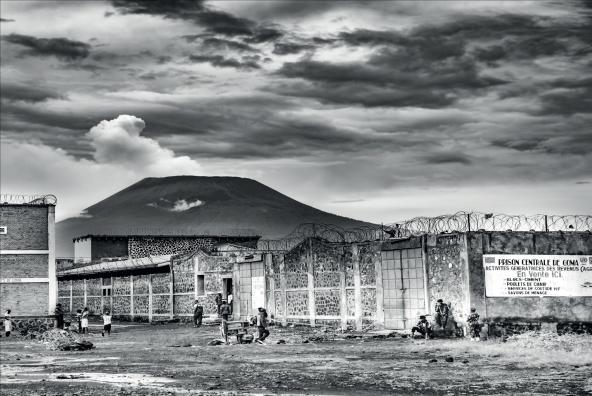
Article(s)
Death Sentences in the Democratic Republic of the Congo More Numerous than Previously Thought
By Bronwyn Dudley, on 12 March 2020
ECPM and CPJ published a report in December 2019 following a fact-finding mission in the Democratic Republic of the Congo (DRC) that took place earlier in the year. The results of the mission were astonishing – while the number of individuals sentenced to death was previously estimated to be 300 at most, the mission uncovered that there are at least 510 waiting execution. Liévin Ngondji, co-author of the report and President of CPJ, was in Paris in February 2020 to comment. Photo on the cover of the Report : 22 Oct 2015. Prison Centrale Goma, Democratic Republic of Congo copyright Ben Houdjik/ Shutterstock
2020
Cruel, Inhuman and Degrading Treatment and Punishment
Democratic Republic of the Congo
Fair Trial

Article(s)
Unfair trials and the death penalty for terrorism in Iraq
By Majdoulin Sendadi, on 13 January 2020
From January until August 2019, Iraq executed more than 100 individuals accused of being affiliated with Daesh, according to Kurdish media network Rudaw.
2020
Iraq
Terrorism
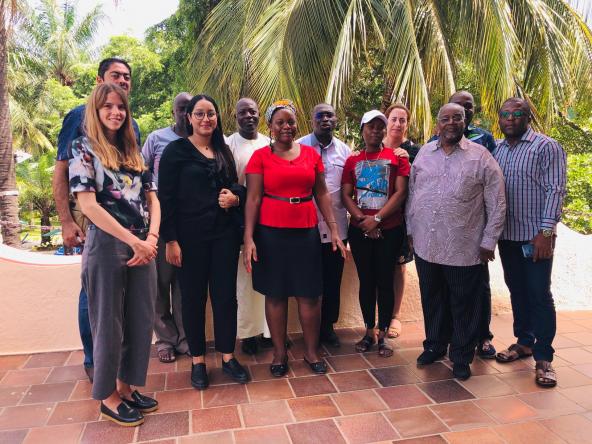
Article(s)
Children and the death penalty in Sub-Saharan Africa: NGO Forum and the 65th ACHPR Session
By Connie Numbi and Bronwyn Dudley, on 9 December 2019
The NGO Forum and the subsequent 65th ACHPR Session (African Commission on Human and People’s Rights) was held in Banjul, the Gambia from 17th October to the 10 November 2019.
2019
Juveniles

Article(s)
Child rights highlighted on the 17th World Day Against the Death Penalty
By Dinda Royhan, Majdoulin Sendadi, on 25 November 2019
On 10 October 2019, we celebrated the 17th World Day against the Death Penalty with various activities aimed to raise awareness on the death penalty and children as its unseen victims. Abolitionist forces in the two continents that gather most retentionist countries, Africa and Asia, were particularly active in raising awareness on the necessity to abolish the death penalty and its impacts on children this year.Through conferences, meetings, exhibitions, art installations, prison visits, radio broadcasts, flash mobs, dances and many other kinds of events, abolitionist forces in every continent took action to raise awareness about the use of death penalty in their national jurisdiction. The death penalty not only violates the fundamental right to life, but it also impacts the rights of children when the State sentences or executes a parent and has been found to have a long-term impact on the child’s best interest.
2019
Juveniles
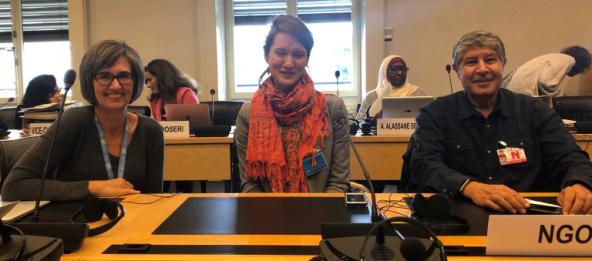
Article(s)
The Rights of Children Whose Parents Are Sentenced to Death – The Case of Tunisia
By Lisa Borden, volunteer with The Advocates for Human Rights, on 30 October 2019
I joined Bronwyn Dudley of the World Coalition Against the Death Penalty, and Choukri Latif of the Coalition tunissiene contre la peine de mort (a Tunisian anti-death penalty NGO), to address the committee regarding Tunisia’s failure to implement the rights of children whose parents have been sentenced to death or were executed.
2019
Juveniles
Tunisia
Document(s)
Malaysian – Poster Word Day 2019
By World Coalition agains the death penalty , on 10 October 2019
2019
Campaigning
Trend Towards Abolition
More details Download [ pdf - 36 Ko ]
- Document type Campaigning
- Themes list Trend Towards Abolition
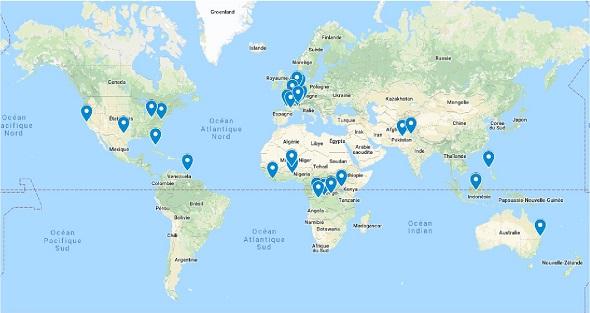
Article(s)
Take Action for World Day 2019!
By World Coalition Against the Death Penalty, on 1 October 2019
Check what you can do for the 10th October. Browse the calendar of events and the interactive map to prepare and promote the events planned around the world on the big day.
2019
Juveniles
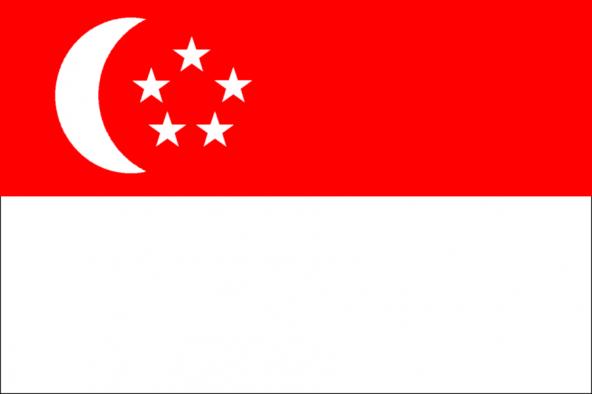
Article(s)
Singapore Executes People Sentenced to Death for Non-violent Crimes and Threatens their Lawyers
By Dinda Royhan, on 19 September 2019
On 13 July 2019, Think Centre reported that 32 executions have occurred in Singapore since it ended its moratorium on the death penalty in 2014. At the same time, lawyers defending capital cases have reported receiving threats from the government. As of the date of writing, Singapore is among 24 world states that have not ratified the ICCPR and its protocols.
2019
Drug Offenses
Legal Representation
Singapore

Article(s)
Drug policy reform, harm reduction movement and the death penalty abolition movement have much in common
By Aurélie Plaçais, on 26 June 2019
As 26 June is “Support. Don’t Punish” Global Day of Action, the World Coalition shares some insight on the 2019 Harm Reduction International Conference which took place in Porto end of April.
2019
Drug Offenses

Article(s)
Mass executions in Saudi Arabia with more than 100 people executed since January 2019
By Abdoul Razak Ahmadou Youssoufou, on 7 June 2019
The Kingdom of Saudi Arabia once again made its mark on the international scene by executing 37 people sentenced to death for terrorism in six regions of the country on Tuesday, 23 April 2019, 36 of whom were beheaded, while the last was crucified.
2019
Saudi Arabia
Terrorism
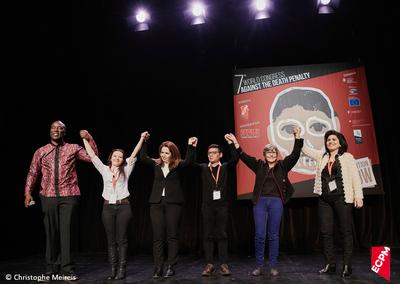
Article(s)
7th World Congress – The rights of children of parents sentenced to death
By Louis Linel, on 8 April 2019
This 10th October, the World Coalition will celebrate the 17th World Day Against the Death Penalty, which is focused on the rights of children whose parents are sentenced to death or executed. In time for the 30th anniversary of the International Convention on the Rights of the Child on 20 November, this year’s theme serves as a reminder that the death penalty constitutes a widespread violation of human rights, impacting even those unseen victims. Let’s look back at how this theme was discussed and addressed during the 7th World Congress.
2019
Juveniles
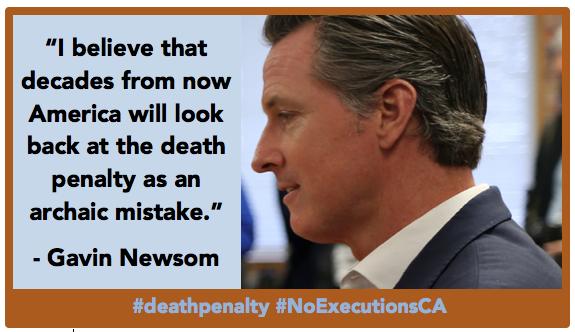
Article(s)
The World Coalition welcomes the moratorium on executions in California
By World Coalition Against the Death Penalty, on 14 March 2019
The World Coalition Against the Death Penalty welcomes the moratorium on executions announced by the Governor of the US State of California, Gavin Newsom. California has 737 prisoners on death row, about 25% of all US death row prisoners, and the largest death row in the Western Hemisphere. Fewer than 30% of nations still use […]
2019
Moratorium
United States
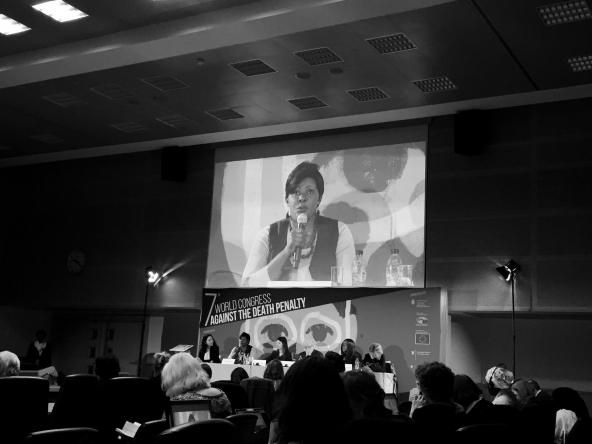
Article(s)
7th Congress – The new challenges of the abolitionist movement
By Louis Linel, on 5 March 2019
The actors involved in the universal abolition of the death penalty outlined the new challenges ahead in the fight for the right to life.
2019
Public Opinion

Article(s)
7th World Congress – Closing ceremony
By World coaltion against death penalty, on 1 March 2019
The 7th World Congress is coming to an end, after four days of intense exchanges and debates to advance the cause of abolition. A look back at this last morning and the closing ceremony.
2019
Public Opinion
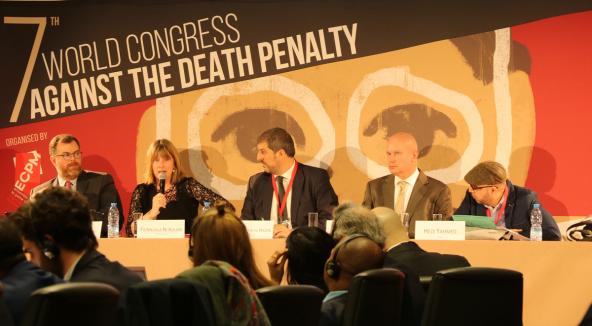
Article(s)
7th World Congress – 28th february
By World coaltion against death penalty, on 28 February 2019
The programme of the 7th World Congress continued today with more than fifteen events held at the Egmont Palace. Plenary meetings, round tables, workshops, screenings and signings… This is a non-exhaustive summary of this new day.
2019
Public Opinion
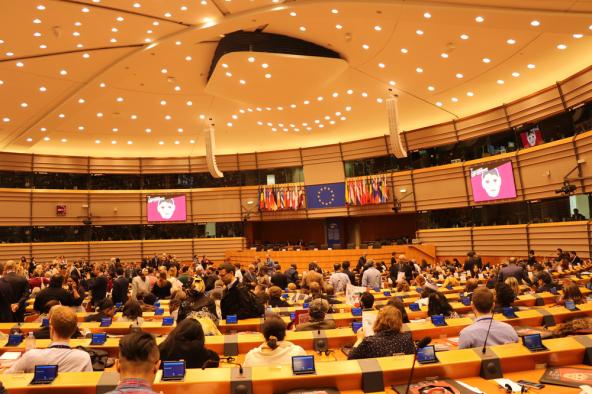
Article(s)
7th World Congress – Opening ceremony and first day
By World coaltion against death penalty, on 27 February 2019
Launched yesterday, abolitionists from around the world have gathered in Brussels for the 7th World Congress Against the Death Penalty organized by ECPM in partnership with the World Coalition that will continue until Friday. Looking back on the last two days of a Congress that has been thus far rich in emotion
2019
Public Opinion

Article(s)
7th World Congress LIVE on Twitter!
By World Coalition Against the Death Penalty, on 26 February 2019
Follow the 7th World Congress Against the Death Penalty taking place in Brussels from 26 February to 1st March 2019 on Twitter: #7congressECPM
2019
Public Opinion
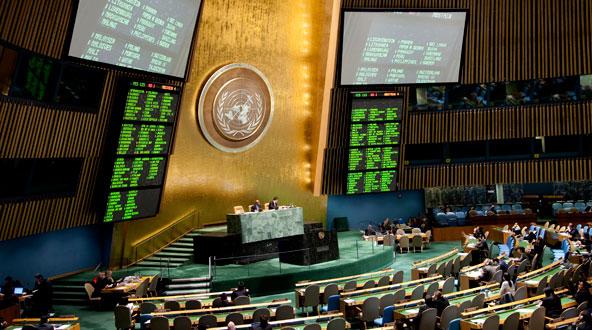
Article(s)
Death penalty: Global abolition closer than ever as record number of countries vote to end executions
By Amnesty International, on 17 December 2018
A record number of States – 121 out of 193 member states – voted in favour of a moratorium on the death penalty at the United Nations General Assembly on December the 17th. A world without the death penalty may become a reality according to Chiara Sangiorgio, Amnesty International’s Death Penalty Expert.
2018
Moratorium
Document(s)
Fourteen Days in May
By Paul Hamann, on 30 November 2018
2018
Arguments against the death penalty
Multimedia content
Death Row Conditions
More details See the document
Fourteen Days in May is a documentary directed by Paul Hamann. The program recounts the final days before the execution of Edward Earl Johnson, an American prisoner convicted of rape and murder.
The documentary crew, given access to the prison warden, guards and chaplain and to Johnson and his family, filmed the last days of Johnson’s life in detail. The documentary argues against the death penalty and maintains that capital punishment is disproportionately applied to African-Americans convicted of crimes against whites. The programme features attorney Clive Stafford Smith, an advocate against capital punishment.
- Document type Arguments against the death penalty / Multimedia content
- Themes list Death Row Conditions
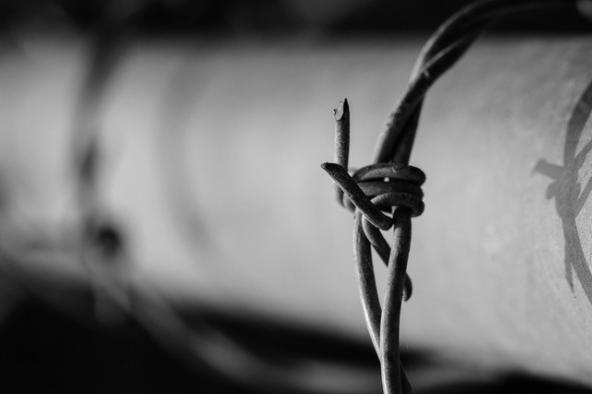
Article(s)
No mention of death row prisoners in Mandela rules
By Nordine Drici (Planète Réfugiés) & Sandrine Ageorges-Skinner (ECPM), on 30 November 2018
Commemorating the 70th anniversary of the Universal Declaration of Human Rights on 10 December 2018 is an opportunity to question the effectiveness of civil and political rights, but also economic, social and cultural rights, in the context of an increasingly globalized world that ostracizes, excludes, sentences to death and continues to execute.
Death Row Conditions
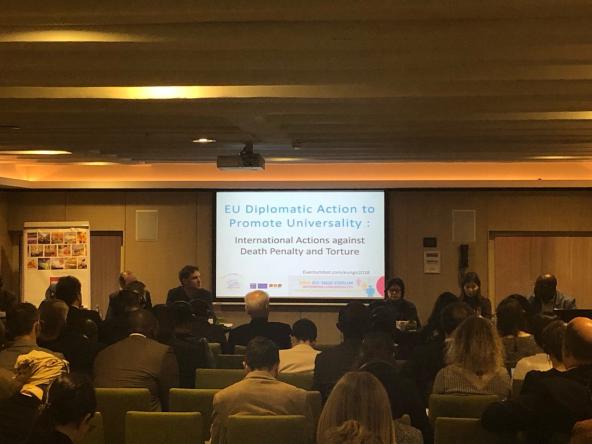
Article(s)
Death penalty is torture, says expert
By Nicolas Chua & FIACAT, on 29 November 2018
In celebration of the Universal Declaration of Human Rights’ 70th anniversary, the 20th EU-NGO Forum was held in Brussels on 21-22 November 2018, during which a session on “International Actions against Death Penalty and Torture” took place. World Coalition Director Aurélie Plaçais was invited to participate in the panel discussion, alongside representatives from Coalition member organizations ECPM and FIACAT.
2018
Death Row Conditions
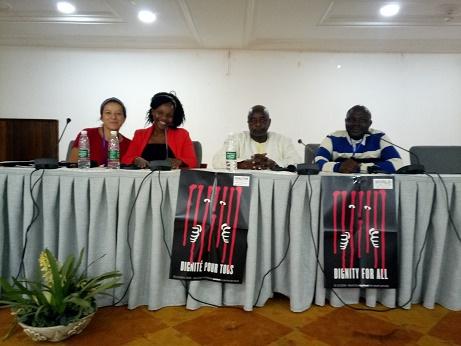
Article(s)
NGO Forum & The ACHPR: A broad overview of African prisons amidst tensions
By Jessica Corredor, on 16 November 2018
The NGO Forum, preceding the ACHPR session, was held from 20 to 23 October 2018, with “The Fight against Corruption” as its main topic.
2018
Death Row Conditions
Legal Representation
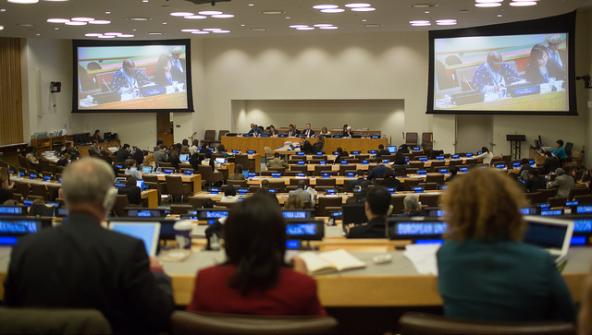
Article(s)
Call for Moratorium on Executions Gains Record-High Support at Committee Vote
By Amnesty International & Comunità di Sant'Egidio, on 16 November 2018
Today the international community offered unprecedented support to a UN call to halt executions when the Third Committee of the UN General Assembly considered a draft resolution on a moratorium on the use of the death penalty.
Moratorium
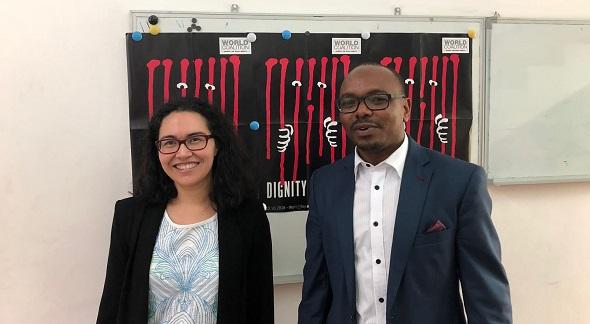
Article(s)
Hope resonates globally on World Day against the Death Penalty
By Nicolas Chua, on 25 October 2018
On 10 October 2018, abolitionist forces around the world celebrated the 16th World Day against the Death Penalty in a flurry of diverse activities and events meant to raise awareness on living conditions on death row. Activists in every continent mobilized civil society, challenged governments and reached out to the general public in a collective effort to promote and advance the common goal of universal, worldwide abolition of the death penalty.
2018
Death Row Conditions
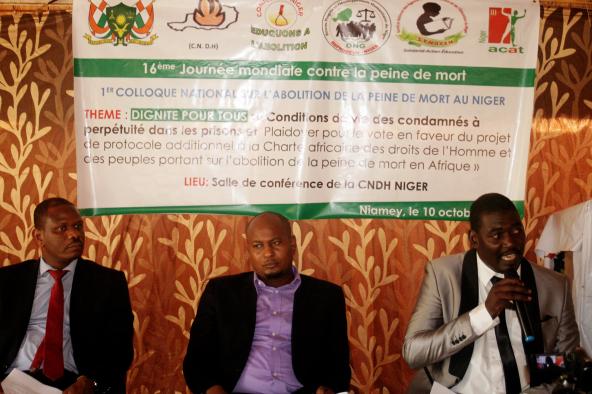
Article(s)
First symposium on the abolition of the death penalty in Niger
By Nigerien Coalition against the Death Penalty, on 17 October 2018
October 10 2018, Niamey, National Human Rights Commission CNDH NIGER. The Nigerien Coalition against the Death Penalty and the Nigerien abolitionist movement in Niger (SYNAFEN, NGO REPRODEVH NIGER, ACAT NIGER) organized the First National Symposium on the Contribution to the Abolition of the Death Penalty in Niger, following the theme “DIGNITY FOR ALL” and entitled: “Living Conditions of those under Life Imprisonment in Niger’s prisons and pleading in favour of Niger’s vote on the draft Additional Protocol to the African Charter on Human and Peoples’ Rights on the Abolition of the Death Penalty in Africa…”, under the sponsorship of the President of the CNDH NIGER Professor KALID IKIRI.
2018
Death Row Conditions
Document(s)
Italian Poster 2018
By World Coalition against the death penalty , on 10 October 2018
2018
Campaigning
Trend Towards Abolition
More details Download [ pdf - 2085 Ko ]
Italien Poster 2018
- Document type Campaigning
- Themes list Trend Towards Abolition
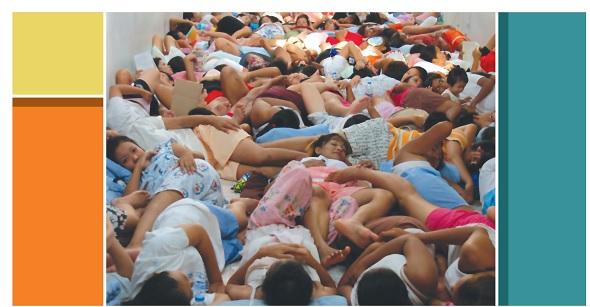
Article(s)
Global overview of women facing the death penalty
By Cornell Center on the Death Penalty Worldwide and World Coalition, on 10 October 2018
Launch of a groundbreaking report entitled “Judged for more than her crime: A Global Study on Women Facing the Death Penalty”
Women
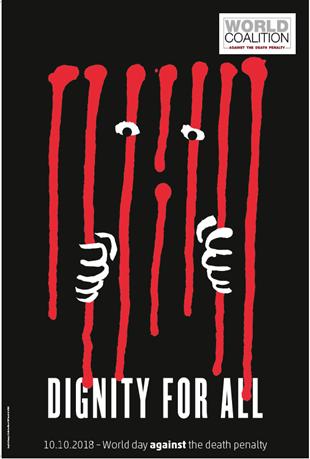
Article(s)
Overcoming the isolation of the people sentenced to death and their relatives
By World Coalition Against the Death Penalty, on 10 September 2018
One of the observations made by the World Coalition while doing the preliminary work for this year’s World Day, is the isolation in which the people sentenced to death might live.
2018
Death Row Conditions
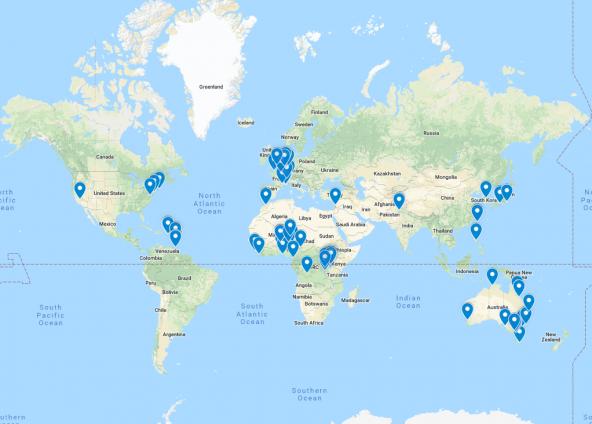
Article(s)
Take Action for World Day 2018!
By World Coalition Against the Death Penalty, on 10 September 2018
Check what you can do for 10 October. Browse the calendar of events and the map to prepare and promote the events planned around the world on the big day.
Death Row Conditions
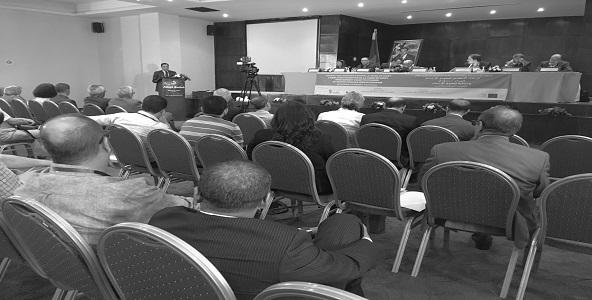
Article(s)
Abolitionist activities, criminal policy at the heart of abolition
By Clémentine Etienne, on 1 August 2018
On 30 June 2018, as a side event to the 2nd National Congress of Réseau des avocats contre la peine mort (RACPM), a conference was organised under the title “Death Penalty and Criminal Policy”. Morocco seemed eager to match its Tunisian neighbour, which had recently proposed, with the Commission on Individual Freedoms and Equality, abolishing the death penalty.
2018
Fair Trial
Morocco

Article(s)
Lindy Lou Juror #2
By Clémentine Etienne, on 31 July 2018
On the occasion of the screening of the movie Lindy Lou Juror number 2 on Monday 25 June 2018, abolitionist associations such as Amnesty International, ACAT France, Together Against The Death Penalty French Collectif Free Mumia! and the World Coalition against the Death Penalty met at the Centre Wallonie Bruxelles in Paris.
2018
Public Opinion
United States

Article(s)
The Sunny Center
By Jessica Corredor, on 30 July 2018
“Extraordinary things can happen to ordinary people and still be OK »The Sunny Center is a place like no other place in the world. Perched on the top of a hill, it is surrounded by lakes and hills that multiply as far as the eye can see. The landscape is breath-taking. But the landscape is nothing compared to the founders of the Sunny Center. Sunny Jacobs, 72, and Peter Pringle, soon 80, began welcoming innocent people into their homes in 2011.
2018
Death Row Conditions
Innocence
Ireland
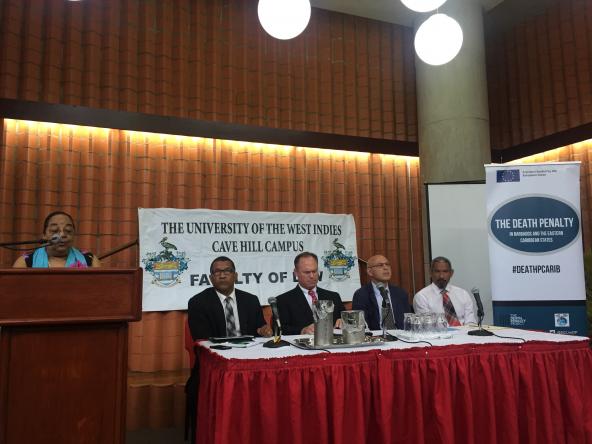
Article(s)
Launching of death penalty abolition project in Barbados and the Eastern Caribbean
By Jessica Corredor, on 25 July 2018
The 22 and 23 June 2018, the Greater Caribbean for Life, the Death Penalty Project, Saint Vincent and the Grenadines Human Rights Association, the University of the West Indies and the World Coalition Against the Death Penalty met in Barbados to launch their joint three year project in Barbados and the Eastern Caribbean.
2018
Barbados
Public Opinion

Article(s)
Mass convictions and executions fuel terrorism in Iraq
By Clémentine Etienne, on 27 June 2018
Mass executions in Iraq since 2017 seem to hide behind the scourge of terrorism, the major argument given by the current government. Will May 2018 elections defeat this government policy and the misuse of the country’s anti-terrorism law to sentence to death?
2018
Iran (Islamic Republic of)
Public Opinion

Article(s)
Death Penalty and Terrorism
By Hand Off Cain, on 15 June 2018
Hands off Cain held a series of meetings, one year after the launch of the project “Containing the death penalty in time of war on terrorism in Somalia, Tunisia and Egypt”, in Nairobi, Kenya, to assess the work done in Somalia.
2018
Somalia
Terrorism
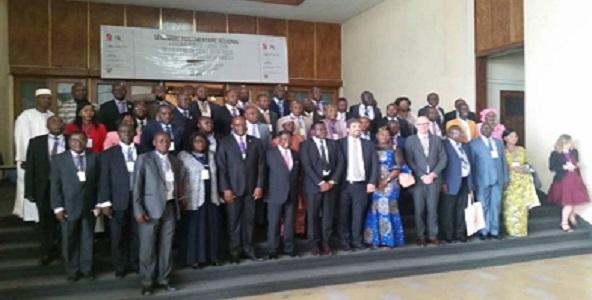
Article(s)
Parliamentarians from Francophone Africa meet in Kinshasa to discuss the abolition of the death penalty
By Parliamentarians for Global Action, on 12 June 2018
The 1st and 2nd June 2018, Parliamentarians for Global Action (PGA), Ensemble contre la peine de mort (Together against the death penalty, ECPM) and Culture pour la paix et la justice (Culture for peace and justice, CPJ) organised in Kinshasa (Democratic Republic of the Congo, DRC) a regional parliamentary seminar entitled “Abolition of the death penalty in Africa: the role of parliamentarians”, with the support of the European Union and of the Honourable Aubin Minaku, Speaker of the National Assembly of the DRC and Member of PGA.
2018
Democratic Republic of the Congo
Public Opinion
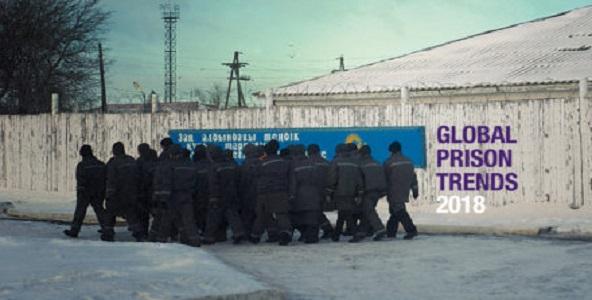
Article(s)
Global Prison Trends 2018 4th Edition
By Penal Reform International, on 6 June 2018
Global Prison Trends 2018 is the fourth edition in PRI’s annual flagship Global Prison Trends series, which identifies topical developments and challenges in criminal justice and prison policy and practice. It is published in collaboration with the Thailand Institute of Justice, and features a foreword by the Rt Hon Helen Clark, Member of the Global Commission on Drug Policy, Former Prime Minister of New Zealand and Former Administrator of the United Nations Development Programme.
2018
Death Row Conditions
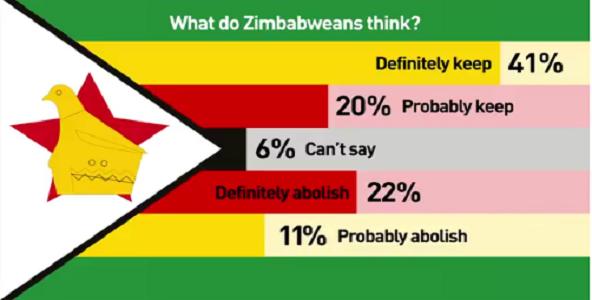
Article(s)
12 Years Without an Execution: Is Zimbabwe Ready for Abolition?
By Death Penalty Project, on 24 May 2018
The Death Penalty Project, in partnership with Veritas, launches “12 Years Without an Execution: Is Zimbabwe Ready for Abolition?” a national public opinion study, providing for the first time comprehensive and contextualised data on public attitudes towards the death penalty in Zimbabwe – a country that has not carried out any executions in over 12 years.
2018
Public Opinion
Zimbabwe
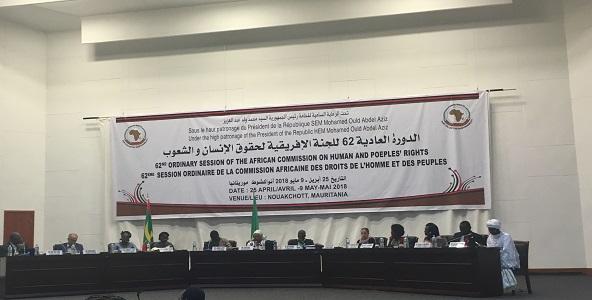
Article(s)
The death penalty at the heart of the debates of the 62nd Ordinary Session of the African Commission on Human and Peoples’ Rights
By Guillaume Colin - Jessica Corredor, on 15 May 2018
The 62nd Ordinary Session of the African Commission on Human and Peoples’ Rights (ACHPR), the African Union body responsible for the promotion and protection of human rights in Africa, was held from April 25th to May 9th, 2018 in Nouakchott, Mauritania.The death penalty was at the heart of the debates throughout this Session, during panel discussions, side-events or during the review of the State’s periodic reports.
2018
Mauritania
Public Opinion
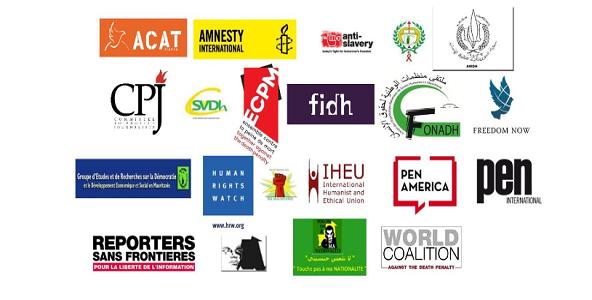
Article(s)
Mandatory Death Penalty for Blasphemy in Mauritania
By World Coalition Against the death penalty, on 11 May 2018
Through this joint statement twenty one national and international NGOs, calls upon Mauritanian authorities to reverse the recent adoption of a law on apostasy related crimes making the death penalty mandatory for blasphemy.
2018
Mauritania
Public Opinion
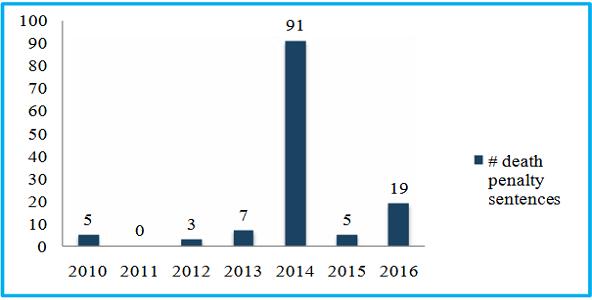
Article(s)
“Unknown Assailants: A Threat to Human Rights”
By Legal Human Rights Centre, on 4 May 2018
So is named The Tanzania Human Rights Report of 2017 released by the Legal and Human Rights Centre (LHRC).This report was published on April 25th, 2018 and it enlights for the fifteenth time the major human rights violations in Tanzania. This report, while it deals with human rights violation in Tanzania concerning civil and politial rights, freedom of violence, freedom of expression, also presents the death penalty as an issue in the coutnry and called the President for its abolition.
2018
Cruel, Inhuman and Degrading Treatment and Punishment
United Republic of Tanzania

Article(s)
Justice Denied: A Global Study of Wrongful Death Row Convictions
By Death Penalty Worldwide, on 26 March 2018
The report is a first-of-its-kind comparative study of wrongful convictions. The report illuminates the similarities in wrongful conviction in six countries: Cameroon, Indonesia, Jordan, Malawi, Nigeria, and Pakistan.
2018
Cameroon
Indonesia
Innocence
Jordan
Malawi
Nigeria
Pakistan
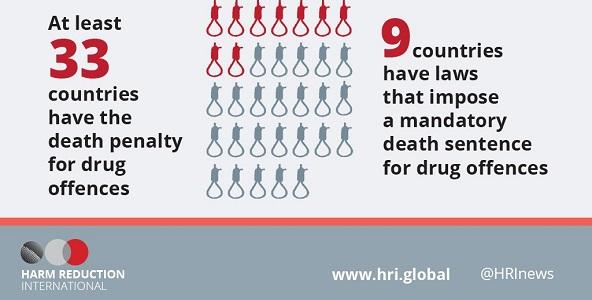
Article(s)
The Death Penalty for Drug Offences, A Global Overview 2017
By Harm Reduction International, on 26 March 2018
This report identifies 33 countries and territories that retain the death penalty for drug offences, including nine in which the sentence is mandatory. Hundreds of people continue to be executed for non-violent drug offences every year by a small minority of States committed to aggressively pursuing extremely harsh penalties for drug crimes, in clear violation of international law.
Drug Offenses
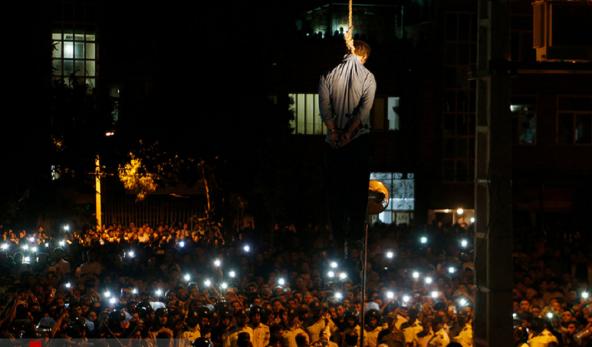
Article(s)
Annual report on the death penalty in Iran 2017
By Iran Human Rights (IHR) - Together Against the Death Penalty (ECPM), on 22 March 2018
The report shows that in 2017 at least 517 people were executed in the Islamic Republic of Iran. This number is comparable with the execution figures in 2016 and confirms the relative reduction in the use of the death penalty compared to the period between 2010 and 2015.
2018
Drug Offenses
Fair Trial
Iran (Islamic Republic of)
Public Opinion
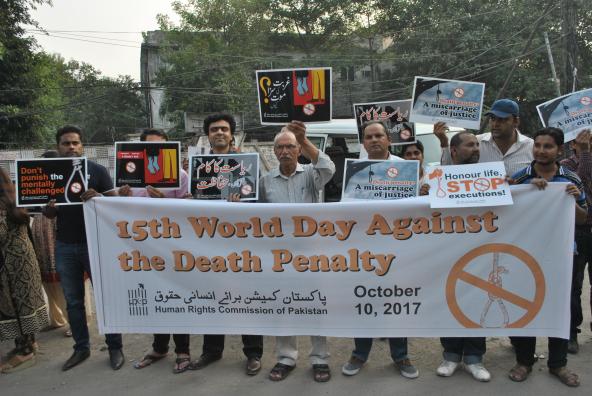
Article(s)
Abolitionists fight against the abusive use of the death penalty
By Thalia Gerzso, on 28 November 2017
In October 2017, Pakistan has agreed to initiate efforts to narrow down the scope of the death penalty. This first step is the result of a strong mobilization from Pakistani and international organizations, in particular during World Day.
2017
Pakistan
Public Opinion
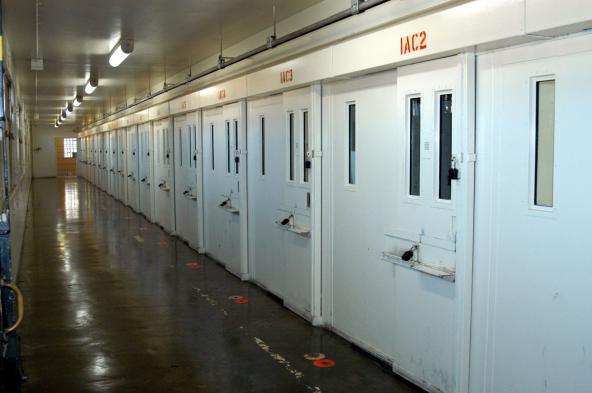
Article(s)
Abolitionists support death row survivors
By Thalia Gerzso, on 14 November 2017
On October 26, abolitionists all around the world celebrated the release of Cheng Hsing-Tse, originally sentenced to death in 2006. This successful outcome highlights the work of numerous organizationss which assist death row survivors.
2017
Innocence
Murder Victims' Families
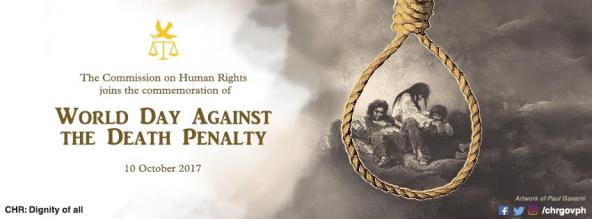
Article(s)
The Commission on Human Rights of the Philippines launches a campaign against the reinstatement of the death penalty in the country
By Thalia Gerzso, on 26 October 2017
Despite its national and international commitment not to carry out any executions, Philippines is taking worrying measures toward the reinstatement of the death penalty for drug offenses. Determined to thwart the government’s plan, the Commission on Human Rights of the Philippines has taken various actions, including an awareness campaign for the 15th World Day Against the Death Penalty.
2017
Philippines
Public Opinion
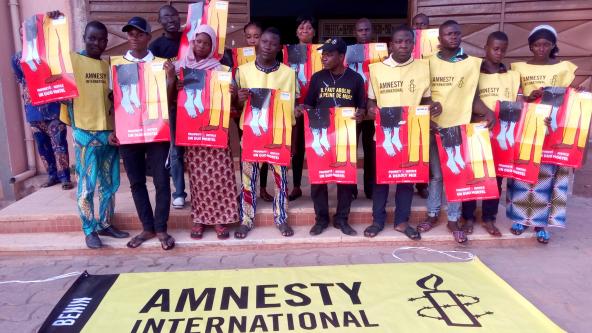
Article(s)
Strong mobilization in Sub-Saharan Africa on World Day
By Thalia Gerzso, on 19 October 2017
On October 10, 2017, all the abolitionists all around the world joined their forces to celebrate the 15th World Day Against the Death Penalty. The mobilization was particularly strong in Sub-Saharan Africa where many events were organized. Thus, the pugnacity of African abolitionists put the abolition of the death penalty at the heart of every discussion.
2017
Public Opinion
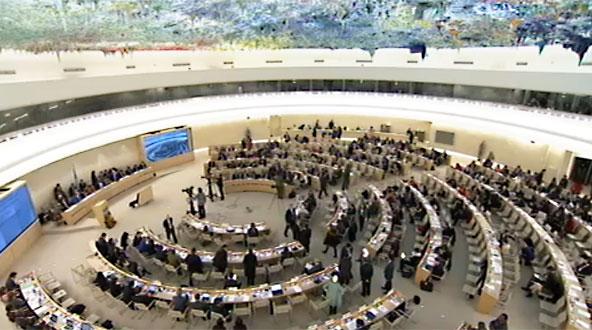
Article(s)
The United Nations Human Rights Council votes in favor of a new resolution on the death penalty
By Jessica Corredor, on 4 October 2017
After putting the death penalty at the heart of discussion, the 36th session of the United Nations Human Rights Council ended with the adoption of a resolution on the death penalty.
2017
Cruel, Inhuman and Degrading Treatment and Punishment
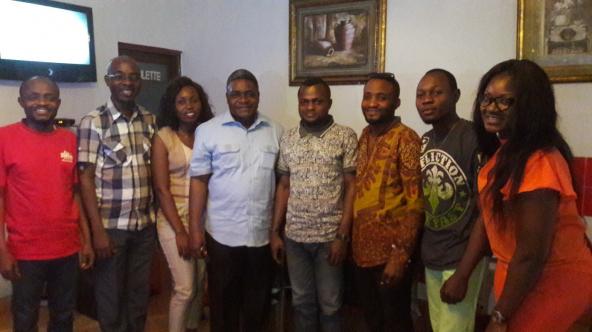
Article(s)
Democratic Republic of the Congo: the abolitionists organize workshops for journalists
By Thalia Gerzso, on 25 September 2017
Concerned by the population’s view on the death penalty, the Human Rights Defenders and Abolitionist Advocates in Democratic Republic of the Congo Network [Réseau des associations de défense des droits de l’homme et militants abolitionnistes de la peine de mort en République Démocratique du Congo (RADHOMA)] organized several training courses for journalists in the past few months.
2017
Democratic Republic of the Congo
Public Opinion
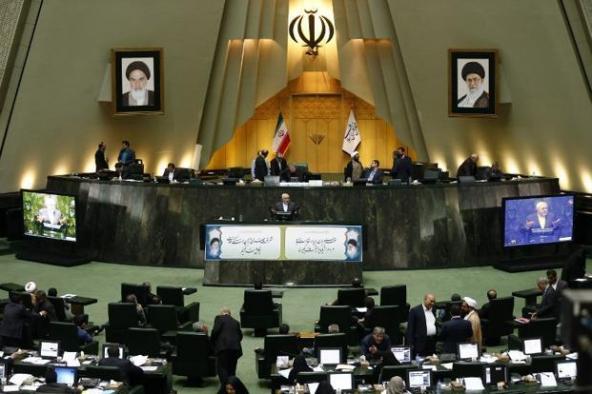
Article(s)
Between hope and disillusion: the Iranian death penalty reform
By Thalia Gerzso, on 13 September 2017
On August 13, 2017, the Iranian parliament finally approved an amendment aiming at raising the bar for a mandatory death sentence in cases involving drug related offenses. Despite this first step, abolitionists deplore the limited effect of this new legislation.
2017
Cruel, Inhuman and Degrading Treatment and Punishment
Iran (Islamic Republic of)
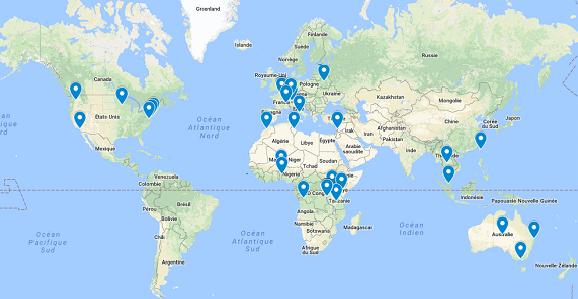
Article(s)
Take Action for World Day 2017!
By World Coalition Against the Death Penalty, on 12 September 2017
Check what you can do for 10 October. Browse the calendar of events and the map to prepare and promote the events planned around the world on the big day.
2017
Public Opinion
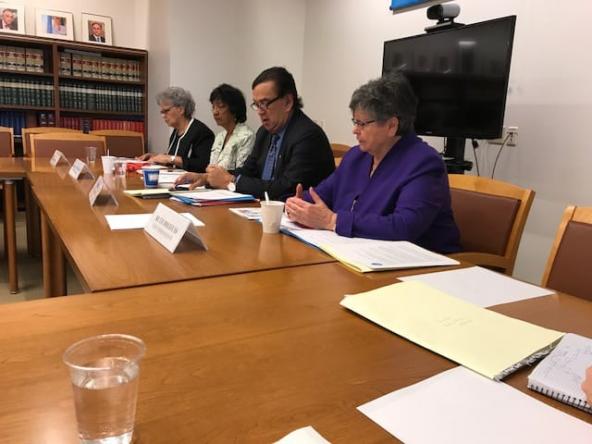
Article(s)
A mission of the International Commission against the Death Penalty to the United States
By International Commission against the Death Penalty and Emmanuel Trépied, on 21 July 2017
A delegation of the International Commission against the Death Penalty met US Governors and Attorney Generals to discuss the situation of the death penalty in their respective states and issues related to possible steps towards ending the practice of capital punishment in the United States.
2017
Cruel, Inhuman and Degrading Treatment and Punishment
Moratorium
United States
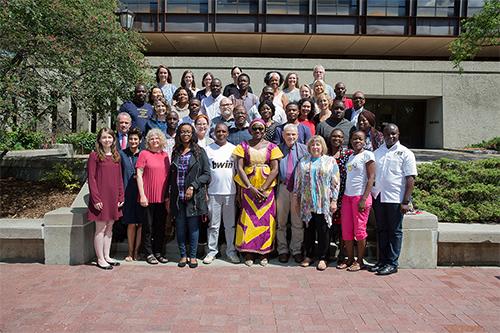
Article(s)
Makwanyane Institute Is Launched at Cornell Law School
By Sherrie Negrea, Cornell Law School, on 17 July 2017
Fifteen capital defense lawyers from eight African countries arrived at Cornell Law School on June 12 to begin eight days of training on how best to represent death penalty clients in the first session of the Makwanyane Institute.
2017
Legal Representation
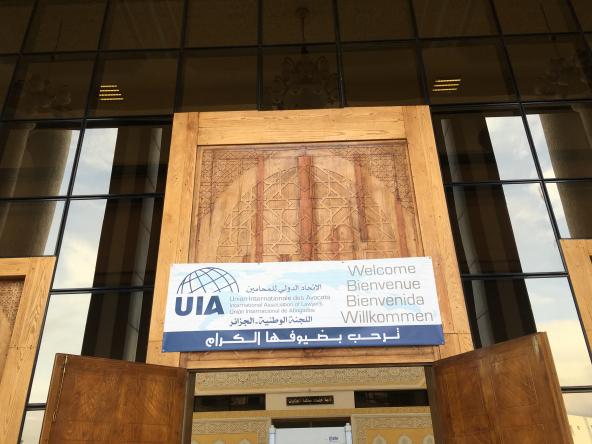
Article(s)
Algeria: it’s time to move from the moratorium to the abolition
By Florence Bellivier et Lorène du Crest, on 24 May 2017
Organized by the National Algerian Committee in partnership with the Boumerdes bar association, a seminar on the death penalty took place the 28th and 29th of April in Algeria. Gathering mainly academics, lawyers and representatives of the civil society, this seminar had the ambition to contribute to the “long process for the final abolition of the death penalty in Algeria”. The World Coalition Against the Death Penalty was represented by Florence Bellivier, Deputy Secretary General of the International Federation of the Leagues of Human Rights (FIDH).
2017
Algeria
Moratorium
Public Opinion
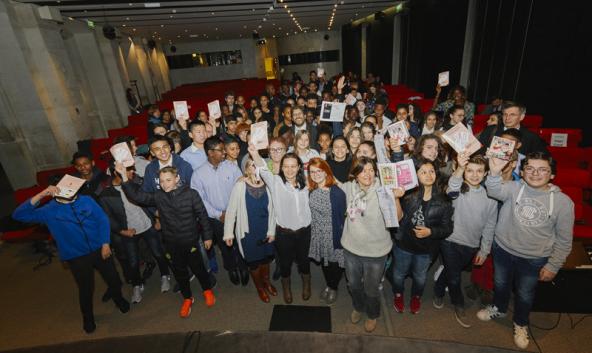
Article(s)
Commitment of youth to universal abolition
By Lorène du Crest, on 20 April 2017
On Tuesday, April 18th 2017, Together Against the Death Penalty (ECPM) held an award ceremony at the City Hall of Paris for their “Educational Project on Human Rights and the Abolition of the Death Penalty”.
2017
Public Opinion
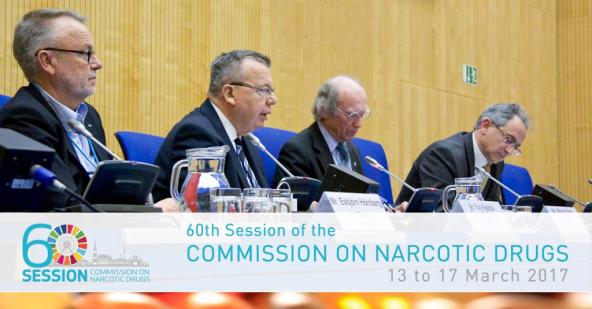
Article(s)
Death penalty and the “war on drugs” discussed during the 60th U.N. Commission on Narcotic Drugs annual meeting.
By Lorène du Crest, on 31 March 2017
In March 2017, the 60th Commission on Narcotic Drugs annual meeting in Vienna took place. During this meeting, governments have been encouraged to “promote proportionate national sentencing policies for drug-related offences”. The death penalty was addressed during several side events.
2017
Drug Offenses
Public Opinion
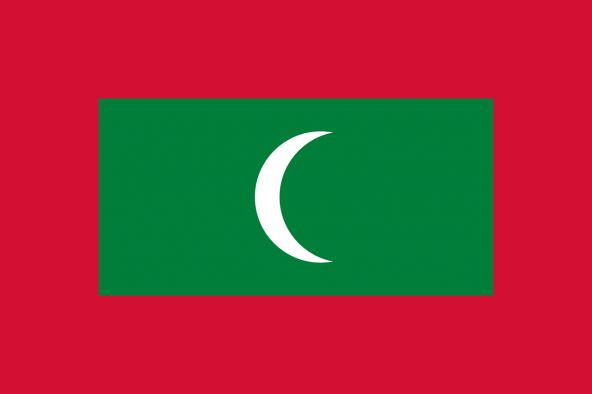
Article(s)
Civil society steps up against the end of a 60-year moratorium in the Maldives.
By Lorène du Crest, on 21 March 2017
Since the November 2013 elections, the Maldives have been moving towards the adoption of severe legal measures. On April, 27th 2014, the government decided to put an end to a 60-year moratorium.The civil society of Maldives is mobilizing against this worrying situation.
2017
Fair Trial
Juveniles
Maldives
Moratorium
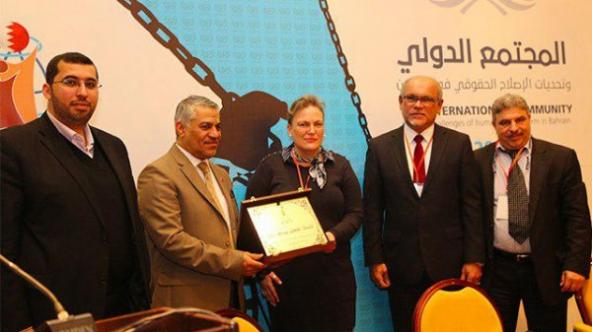
Article(s)
The 6th International Conference on Human Rights issues a warning on the alarming situation in Bahrain
By Emmanuel Trépied and Coalition marocaine contre la peine de mort, on 10 March 2017
The World Coalition was invited to take part in the 6th international Conference on Human Rights, on February 22nd, 2017 in Beirut. addressing the very worrying situation in Bahrain, the event resulted in a series of calls and recommendations.
2017
Bahrain
Cruel, Inhuman and Degrading Treatment and Punishment
Fair Trial
Moratorium
Terrorism
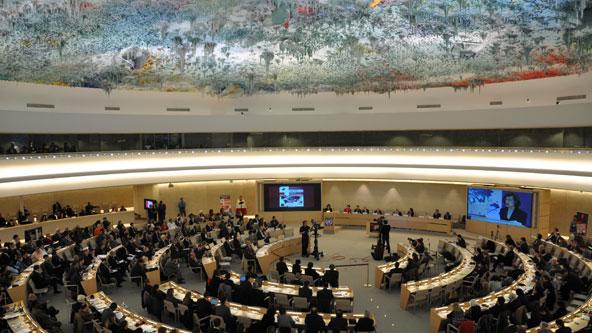
Article(s)
Discussion at the Human Rights Council of human rights violations related to the use of the death penalty
By Jessica Corredor, on 7 March 2017
From Zeid Ra’ad Al Hussein, United Nations High Commissioner for Human Rights, to abolitionist and retentionist government representatives and World Coalition members, participants to the Biennial high-level discussion on death penalty exchanged views in order to address human rights violations related to the use of the death penalty, in particular with respect to the prohibition of torture.
2017
Cruel, Inhuman and Degrading Treatment and Punishment

Article(s)
Philippines: one step forward in the reintroduction of the death penalty
By Lorène du Crest, on 3 March 2017
The Philippines are a step closer to the reintroduction of the death penalty, violating their international obligations.
2017
Drug Offenses
Philippines

Article(s)
Philippines: House of Representatives must uphold international law obligations ahead of first death penalty vote
By Amnesty International & other organisations, on 19 February 2017
Nine international organisations are calling upon the Philippines to uphold its international obligations and not to restore death penalty in the country.
2017
Cruel, Inhuman and Degrading Treatment and Punishment
Philippines
Public Opinion
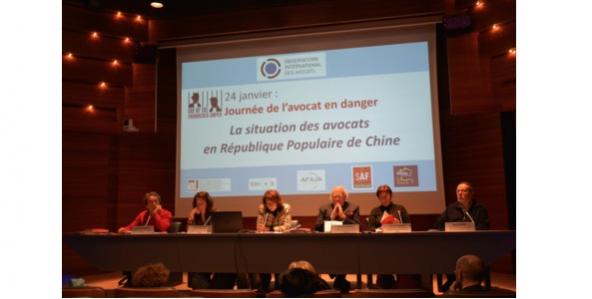
Article(s)
Day of the Endangered Lawyer: spotlight on China
By Emmanuel Trépied, on 14 February 2017
24 January 2017 was the Day of the Endangered Lawyer. This international initiative was dedicated to the harassment undergone by Chinese lawyers.
2017
China
Cruel, Inhuman and Degrading Treatment and Punishment
Legal Representation
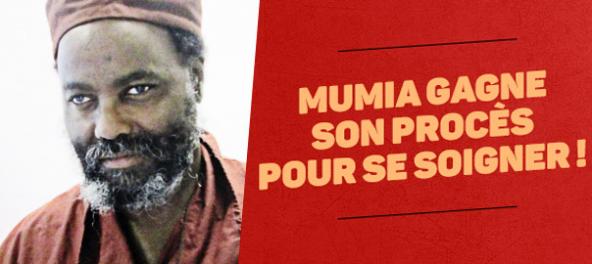
Article(s)
Federal Justice orders the prison administration to immediately provide African-American journalist Mumia Abu-Jamal with treatment
By French Collective "Free Mumia", on 18 January 2017
On the 3rd January of this year, a Federal judge ordered Pennsylvania’s prison administration to immediately provide Mumia Abu-Jamal with medication to treat his hepatitis C infection, justifying his decision in these terms: “budgetary constraints cannot outweigh the Eighth Amendment’s constitutional guarantee of adequate medical care.”
2017
Cruel, Inhuman and Degrading Treatment and Punishment
United States
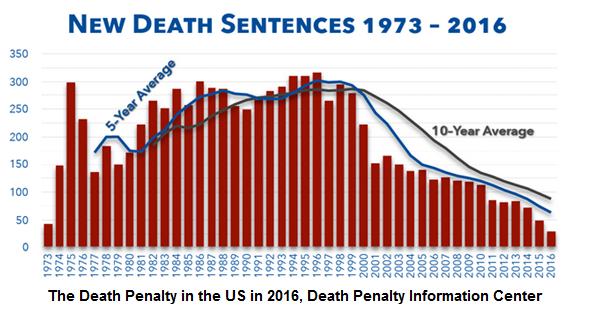
Article(s)
A new decline in the use of the death penalty in the US in 2016
By Elise Guillot, on 17 January 2017
With 30 death sentences pronounced and 20 executions carried out, the use of the death penalty in the USA saw a new record decline in 2016, as reported in the Death Penalty Information Center’s year-end report. Nevertheless, the abolitionists are worried that 2017 may not be so successful.
2017
Cruel, Inhuman and Degrading Treatment and Punishment
Public Opinion
United States

Article(s)
Philippines: Do not revive the Death Penalty
By Ngeow Chow Ying, for the Anti-Death Penalty Asia Network (ADPAN), on 15 January 2017
ADPAN strongly urges all members of the Philippine House of Representative and Senate to reject the reinstatement of the death penalty and uphold the rights to life as enshrined in the Constitution.
2017
Cruel, Inhuman and Degrading Treatment and Punishment
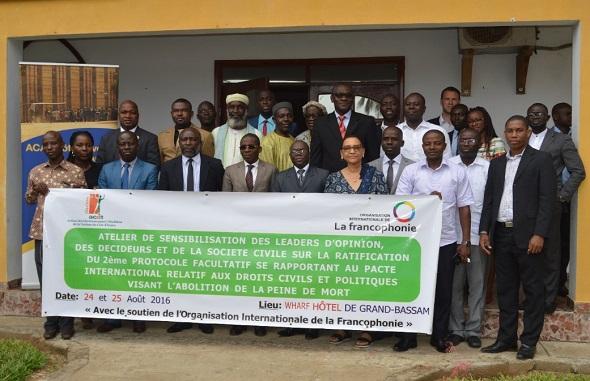
Article(s)
ACAT-CI commits to the ratification of OP2 in Côte d’Ivoire
By N'guettia Yves Arsene Kouadio - ACAT Côte d'Ivoire, on 4 January 2017
Action by Christians for the Abolition of Torture in Côte d’Ivoire (ACAT CI) has conducted advocacy activities between May and November 2016 in order to raise awareness on the Second Optional Protocol to the International Covenant on Civil and Political Rights (OP2), aiming at the abolition of the death penalty. This project has been supported by the International Organisation of la Francophonie (OIF) and the International Federation of ACAT (FIACAT).
2017
Côte d'Ivoire
Public Opinion
Document(s)
Note verbale dated 7 September 2017 from the Permanent Mission of Egypt to the United Nations addressed to the Secretary-General
By United Nations, on 1 January 2017
2017
United Nations report
Antigua and Barbuda
Bangladesh
Barbados
Botswana
Brunei Darussalam
Chad
China
Democratic People's Republic of Korea
Egypt
Ethiopia
Grenada
Iran (Islamic Republic of)
Iraq
Jamaica
Kuwait
Libya
Malaysia
Maldives
Moratorium
Nigeria
Oman
Pakistan
Papua New Guinea
Saint Kitts and Nevis
Saint Lucia
Saint Vincent and the Grenadines
Saudi Arabia
Singapore
Sudan
Syrian Arab Republic
United Arab Emirates
Yemen
Zimbabwe
aresfrruzh-hantMore details See the document
The Permanent Missions to the United Nations in New York listed below have the honour to refer to General Assembly resolution 71/187, entitled “Moratorium on the use of the death penalty”, which was adopted by the Third Committee on 17November 2016 and subsequently by the Assembly on 19 December 2016 by a recorded vote. The Permanent Missions wish to place on record that they are in persistent objection to any attemptto impose a moratorium on the use of the death penalty or its abolition in contravention of existing stipulations under international law, for the following reasons:
- Document type United Nations report
- Countries list Antigua and Barbuda / Bangladesh / Barbados / Botswana / Brunei Darussalam / Chad / China / Democratic People's Republic of Korea / Egypt / Ethiopia / Grenada / Iran (Islamic Republic of) / Iraq / Jamaica / Kuwait / Libya / Malaysia / Maldives / Nigeria / Oman / Pakistan / Papua New Guinea / Saint Kitts and Nevis / Saint Lucia / Saint Vincent and the Grenadines / Saudi Arabia / Singapore / Sudan / Syrian Arab Republic / United Arab Emirates / Yemen / Zimbabwe
- Themes list Moratorium
- Available languages مذكرة شفوية مؤرخة 7 أيلول/سبتمبر 2017 موجهة إلى الأمين العام من البعثة الدائمة لمصر لدى الأمم المتحدةNota verbal de fecha 7 de septiembre de 2017 dirigida al Secretario General por la Misión Permanente de Egipto ante las Naciones Unidas.Note verbale datée du 7 septembre 2017, adressée au Secrétaire général par la Mission permanente de l’Égypte auprès de l’Organisation des Nations UniesВербальная нота Постоянного представительства Египта при Организации Объединенных Наций от 7 сентября 2017 года на имя Генерального секретаря2017 年 9 月 7 日埃及常驻联合国代表团给秘书长的普通照会

Article(s)
LEDAP condemns the killing of three death row prisoners in Nigeria
By Chino Obiagwu - LEDAP National Coordinator, on 28 December 2016
Legal Defence and Assistance Project (LEDAP) condemns the killing on December 23 2016 of three death row prisoners in Benin City prison on death warrants signed by the Edo State Governor, Mr. Godwin Obaseki. Those executed were Ogbomoro Omoregie, Apostle Igene and Mark Omosowhota. They were all convicted and sentenced to death nearly 20 years ago by military tribunals under the Robbery and Firearms (Special Provisions) Decree as amended.
2016
Cruel, Inhuman and Degrading Treatment and Punishment
Nigeria
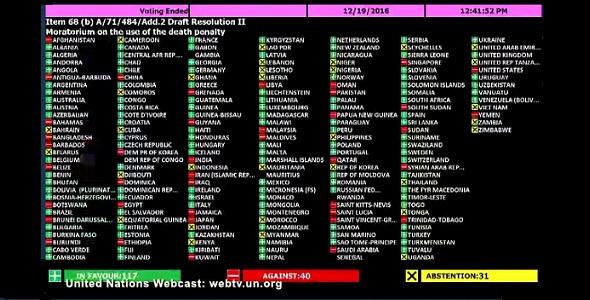
Article(s)
The UN General Assembly voted overwhelmingly for a 6th resolution calling for a universal moratorium on executions
By Elise Guillot et Aurélie Plaçais, on 20 December 2016
On 19 December 2016, with 117 States voting in favour of the resolution, the UN member states reasserted their support for a universal moratorium on the use of the death penalty.
2016
Clemency
Moratorium
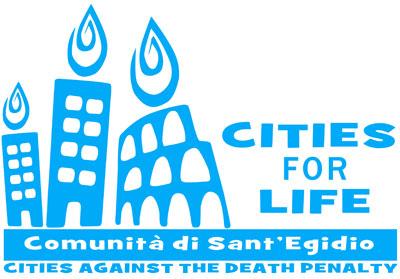
Article(s)
Cities for Life 2016: Let’s stay vigilant
By Emmanuel Trépied, on 19 December 2016
On 30 November, the International Day of “Cities for Life” was celebrated around the world. An opportunity to raise awareness among the civil society on the universal abolition.
2016
Public Opinion
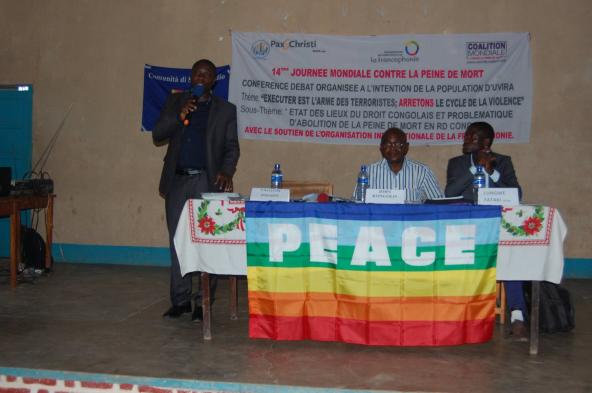
Article(s)
Towards the abolition of the death penalty in DRC: advances to be confirmed
By Olivier LUNGWE FATAKI - Pax Christi Uvira, on 13 December 2016
To date, the Democratic Republic of the Congo maintains the death penalty in its legislation. The proponents of the capital punishment argue that it remains an efficient tool for deterrence in general as well as a solution to the recurring criminal phenomenon hitting the country’s Eastern part.
2016
Democratic Republic of the Congo
Moratorium
Public Opinion
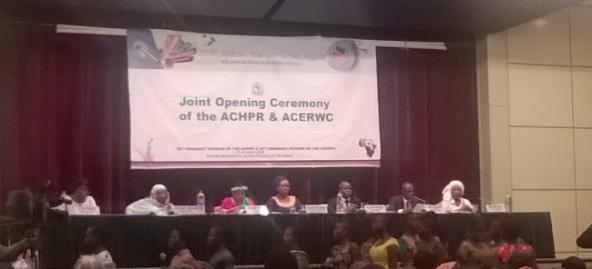
Article(s)
Renewed calls for the abolition of the death penalty at the NGO forum and the 59th Session of the ACHPR
By Jessica Corredor, on 25 November 2016
At the end of October, the civil society gathered for the NGO Forum preceding the 59th African Commission for Human and People’s Rights (ACHPR): an occasion to put the death penalty on the agenda of the African Commission and to make the calls for the abolition heard. Nonetheless, difficulties on the path towards the abolition in the African continent remain.
2016
Gambia
Moratorium
Public Opinion

Article(s)
Death penalty: UN General Assembly human rights committee renews call for a moratorium on executions
By Amnesty International, on 23 November 2016
Today the overwhelming majority of UN member states once again threw their weight behind a UN General Assembly draft resolution to establish a moratorium on executions with a view to abolishing the death penalty. 115 of the UN’s 193 member states voted in favour of the proposal, with only 38 voting against it. The draft will now go before the UN General Assembly plenary for final adoption.
2016
Moratorium
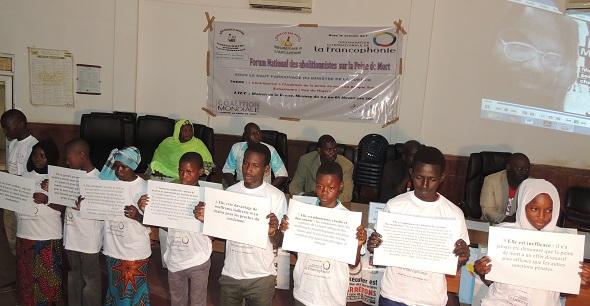
Article(s)
The abolitionists’ forum in Niger: a great success
By Garba Illou Almoctar and Elise Guillot, on 22 November 2016
The first Nigerien abolitionists’ forum on the death penalty was held in Niamey on November 4 and 5, 2016. The NGO Réseau progrès et développement humanitaire du Niger (REPRODEVH-NIGER) and the Nigerien Coalition Against the Death Penalty organised the event, which was sponsored by the Ministry of Justice, the National Commission on Human Rights and the World Coalition Against the Death Penalty. The initiative met with great success.
2016
Niger
Public Opinion
Terrorism
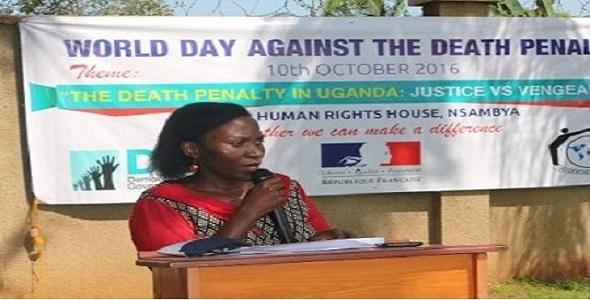
Article(s)
Pardon Prisoners On Death Row
By Lucy Peace Nantume, on 8 November 2016
At the end of October, the death sentences of more than 2,500 prisoners were commuted by the Kenyan President. The presidential power of mercy was also recently exercised by the Zimbabwean President, where 10 death row prisoners were pardoned.
2016
Clemency
Kenya
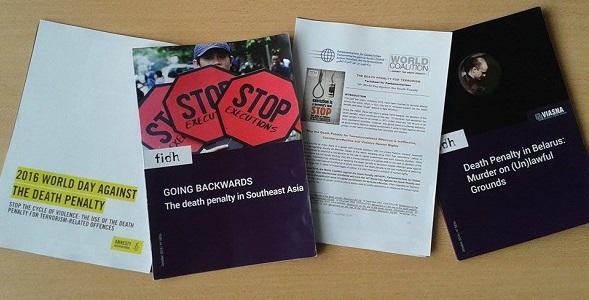
Article(s)
Eager to learn more about the death penalty? Abolitionist civil society around the world answered your call!
By Elise Guillot, on 8 November 2016
10 October saw the release of several publications and tools to raise awareness on the death penalty in all regions of the world. Take a look!
Terrorism
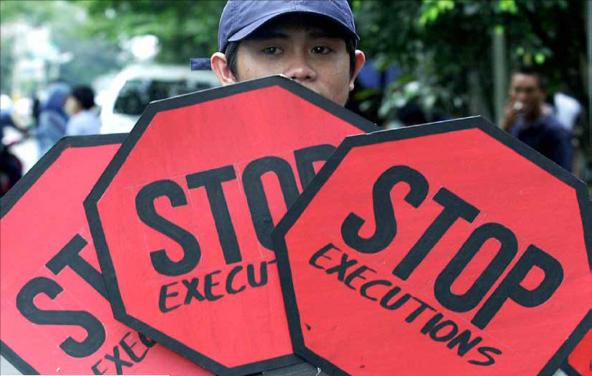
Article(s)
ASEAN countries step back on the path towards abolition
By Tiziana Trotta, on 27 October 2016
Asia has the highest number of retentionist countries in the world. Eight members of the Association of Southeast Asian Nations (ASEAN) retain the death penalty and four of them carried out executions in 2015.
2016
Drug Offenses
Terrorism
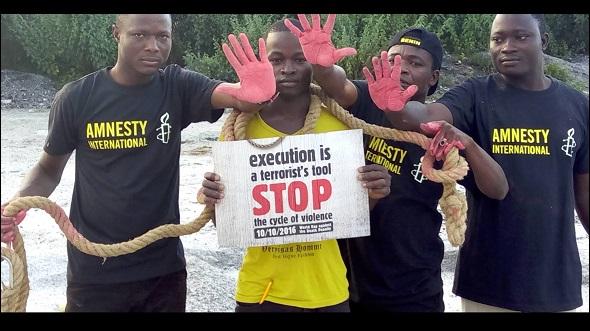
Article(s)
Africa raises its voice against the death penalty
By Tiziana Trotta, on 21 October 2016
Many African organizations and institutions raised their voices on the occasion of the 14th World Day against the Death Penalty, whose last edition, celebrated on October 10, was dedicated to the use of death penalty for terrorism-related crimes.
2016
Terrorism
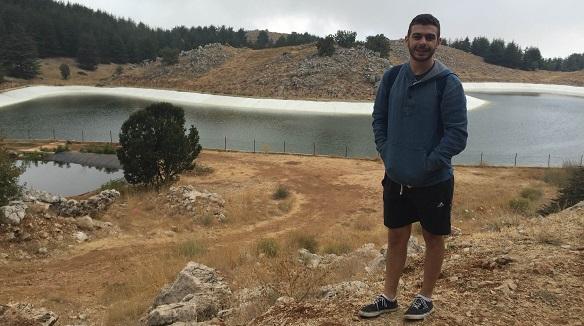
Article(s)
If I do not accept that a terrorist kills me, I do not accept either to kill a terrorist
By Tiziana Trotta, on 18 October 2016
Khachig Ghosn is a 22-year-old student of social work at the Lebanese University. Three years ago, he witnessed an explosion in Beirut. Despite this dramatic experience, he is against the use of the death penalty and he is convinced that capital executions have no deterrent effect on terrorism.Ghosn is aware that changes in his country take a very long time, but he has a positive long-term vision and hopes that the death penalty will be abolished.
2016
Lebanon
Murder Victims' Families
Terrorism
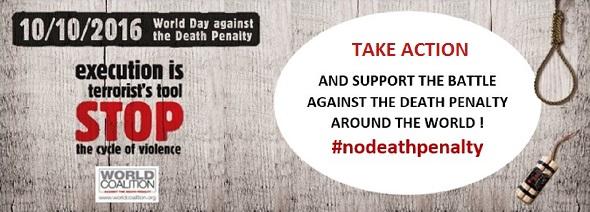
Article(s)
Take Action for World Day 2016!
By World Coalition Against the Death Penalty, on 3 October 2016
Check what you can do for 10 October. Browse the calendar of events and the map to prepare and promote the events planned around the world on the big day.
2016
Terrorism

Article(s)
Abolition of the death penalty in Guinea
By Marion Gauer, on 5 July 2016
Guinean Parliament put an end to Guinea’s de facto moratorium by abolishing the death penalty in law in this country.
2016
Guinea
Public Opinion

Article(s)
“Living with the death penalty” at the World Congress
By Marion Gauer, on 1 July 2016
In addition to the academic debates and workshops, the organizers of the Congress had also prepared a nice surprise, on June 22nd, with the main event of their cultural program, soberly entitled “Living with the death penalty”. This event was hosted by Will Francome, a director involved in anti-death penalty work, and represented the opportunity to let these direct “witnesses” of the capital punishment speak about what brought them to be sentenced to death, their experiences on death row, and mostly the journey of their reintegration upon their release from death row. It also allowed relatives of current or former death row inmates to testify of their own fight, in favor of their family member as well as all the other individuals who had to go through this.
2016
Fair Trial
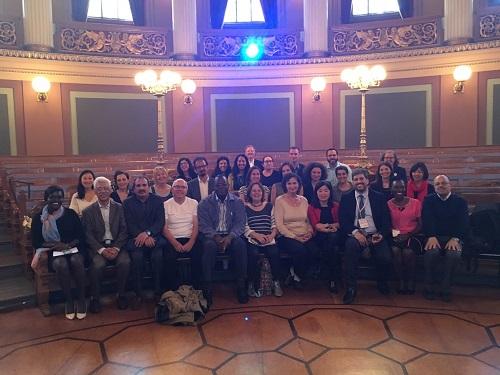
Article(s)
The World Coalition gathers in Oslo
By Federica Merenda, on 30 June 2016
On the occasion of the 6th World Congress Against the Death Penalty held on 21-23 June this year, the World Coalition gathered in Oslo, with about 150 delegates attending the Congress representing more than 50 member organizations.
2016
Fair Trial
Legal Representation
Norway
Public Opinion
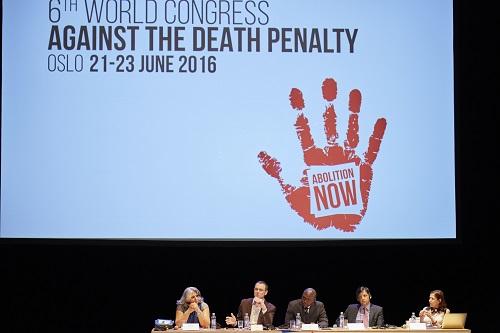
Article(s)
Roundtable on terrorism at the 6th World Congress against the death penalty
By Marion Gauer, on 28 June 2016
From 21th to 23rd of June, the 6th World Congress against the death penalty took place in Oslo. These three days constituted an opportunity to gather the civil society, the political actors and lawyers worldwide, in order to discuss strategies aiming at abolishing the death penalty around the world. Among the noteworthy debates which were organized during this congress, the roundtable that was dedicated to terrorism (being also the theme of the next World Day against the death penalty, organized by the World Coalition) raised significant issues related to the use of the death penalty while countering terrorism.
2016
Norway
Terrorism
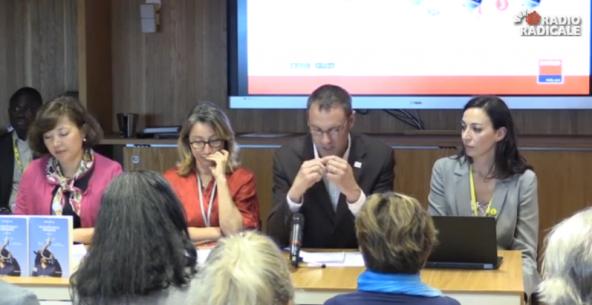
Article(s)
Event on the UNGA resolution for a moratorium on the use of the death penalty at the World Congress
By Federica Merenda, on 27 June 2016
In the context of the 6th World Congress Against the Death Penalty, the World Coalition together with Hands Off Cain and Amnesty International co-hosted a side event focusing on the 6th UNGA resolution for a moratorium on the use of the death penalty, whose adoption will be decided in New York in December this year.
2016
Moratorium

Article(s)
Closing ceremony of the project « My pencil for abolition » at the French Ministry of foreign affairs
By Marion Gauer, on 27 May 2016
On May 23rd, 2016, the closing ceremony of the project “My pencil for abolition” took place at the French Ministry of Foreign Affairs. This project was organized by the team of “Educating and Raising Awareness on Abolition” in the association Together Against the Death Penalty (ECPM): it consisted in involving a few middle and high school’s classes, from Lorraine, Belfort and the Parisian region, in the elaboration of articles and cartoons in order to create a magazine committed to the abolition of the death penalty, known as the Abolition Mag.
2016
Public Opinion

Article(s)
Terrorism is no excuse for unfair trials in Iraq
By Elisa Belotti, on 25 November 2015
Earlier in November, the UN Human Rights Committee released its concluding observations on Iraq’s implementation of the International Covenant on Civil and Political Rights. The Committee and civil society’s representatives specifically dwelled on Iraq’s application of the death penalty.
2015
Fair Trial
Iraq
Iraq
Terrorism
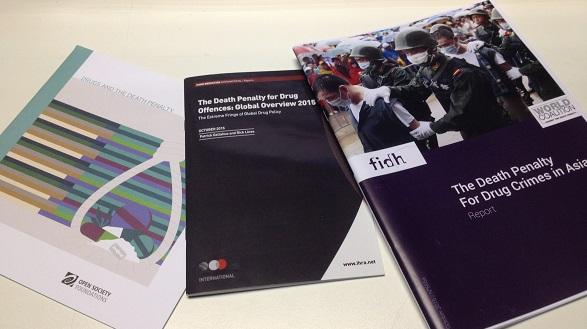
Article(s)
Explaining the Death Penalty for Drug Offences: the Best Reports
By Elisa Bellotti, on 2 November 2015
For October 10, many NGOs have published Reports analyzing, from different perspectives, the issue of the death penalty for drug offences. Read this brief presentation of the reports to facilitate the selection of the research that will best satisfy your thirst for knowledge.
2015
Drug Offenses
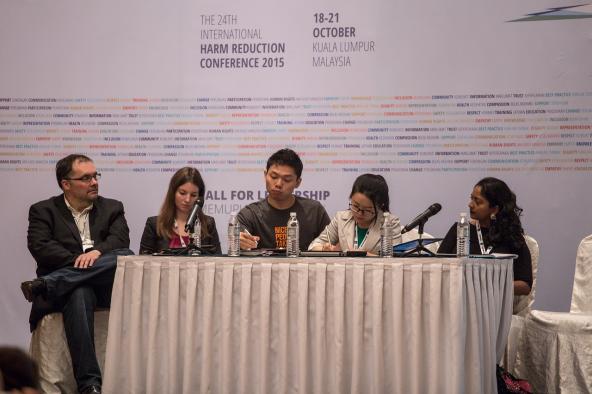
Article(s)
The death penalty for drugs must go, it has no place in a civilised society
By Aurélie Plaçais, on 21 October 2015
Those were the words of Anand Grover, former UN Special Rapporteur on the right to health during the opening ceremony of Harm Reduction International’s 24th conference in Kuala Lumpur, Malaysia.
2015
China
Drug Offenses
India
Indonesia
Malaysia

Article(s)
Executions for drug crimes: a violation of international law -international organizations
By Tiziana Trotta, on 15 October 2015
International organizations joined the 13th World Day Against the Death Penalty to stand against this cruel practice. United Nations, the European Union and the Inter-American Commission on Human Rights merged to claim that capital punishment is not the solution to deter drug crimes.
2015
Drug Offenses

Article(s)
USA: showing the human face of the death penalty
By Tiziana Trotta, on 14 October 2015
A conference organized by Journey of Hope is just one among the many activities carried out around World Day against the Death Penalty in the U.S.
2015
Murder Victims' Families
United States
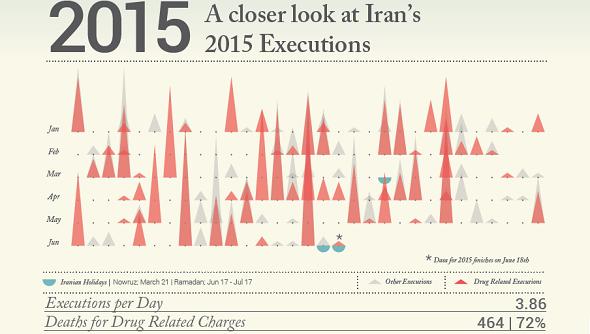
Article(s)
Iran: more than 800 people executed in 2015, 500 for drugs
By Iran Human Rights, on 13 October 2015
Ahead of the 13th World Day Against the Death Penalty, Iran Human Rights is raising awareness about the implementation of the death penalty in Iran for drug-related offenses. Reports from the IHR website indicate that Iranian authorities have carried out more executions in 2015 than any other year in the past 25 years.
2015
Drug Offenses
Iran (Islamic Republic of)
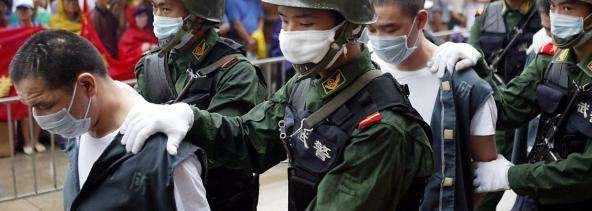
Article(s)
Imposing the death penalty has not reduced drug crimes in Asia -New Report
By FIDH & World Coalition, on 10 October 2015
Death penalty for drug crimes in Asia: an illegal practice reveals report published on World Day by FIDH and the World Coalition
2015
Afghanistan
Bangladesh
China
Democratic People's Republic of Korea
Drug Offenses
India
Indonesia
Iran (Islamic Republic of)
Japan
Lao People's Democratic Republic
Malaysia
Maldives
Myanmar
Pakistan
Republic of Korea
Singapore
Sri Lanka
Taiwan
Thailand
Viet Nam
Article(s)
China reduces the number of crimes punishable by death to 46, but keeps drug trafficking in the list
By Aurélie Plaçais, on 7 October 2015
China removes nine non-violent and rarely used criminal offenses from capital punishment.
2015
China
Drug Offenses

Article(s)
Discussing the Death Penalty for Drug Crimes at the Human Rights Council
By Elisa Bellotti, on 30 September 2015
The Advocates for Human Rights and Together against the Death Penalty (ECPM), in partnership with other members of the World Coalition, organized a Round Table on the issue of the death penalty for drug-related crimes. The event took place during the 30th Session of the UN Human Rights Council, on September 28, 2015.
2015
Drug Offenses
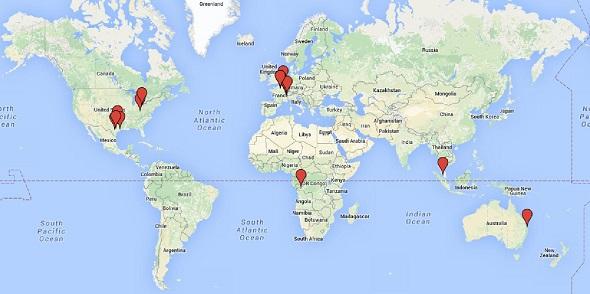
Article(s)
Calendar of events for World Day 2015
By World Coalition Against the Death Penalty, on 15 September 2015
Browse the schedule and the map to prepare and promote the events planned around the world on the big day.
2015
Drug Offenses

Article(s)
The United States Supreme Court’s End of Term Death Penalty Opinion is Against the US Trend Away from the Capital Punishment
By World Coalition Against the Death Penalty, on 14 July 2015
The World Coalition Against the Death Penalty takes the opportunity to support the call of the United Nations Special Rapporteurs on Summary Executions and on Torture, for the establishment of a federal moratorium on the death penalty.
2015
Moratorium
United States
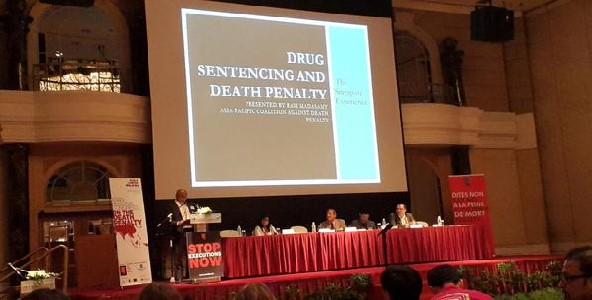
Article(s)
The death penalty for drugs: a central point during the regional congress
By Lauranne Mailhabiau, on 23 June 2015
In Asia, death penalty for drug offences is one of the major issues. During the regional congress, two sessions addressed this issue. It is also the theme of this years’ World Day against the Death Penalty on 10 October 2015.
2015
Drug Offenses
Malaysia
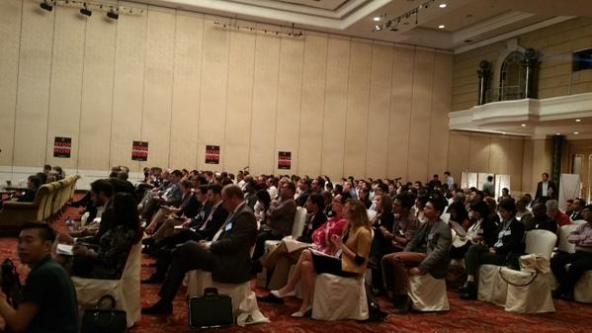
Article(s)
“We need to feel the reality of the death penalty”
By Lauranne Mailhabiau, on 22 June 2015
So said Raphael Chenuil Hazan, director of ECPM, at the opening ceremony of the Asian Regional Congress in Kuala Lumpur.
2015
Indonesia
Malaysia
Public Opinion
Taiwan
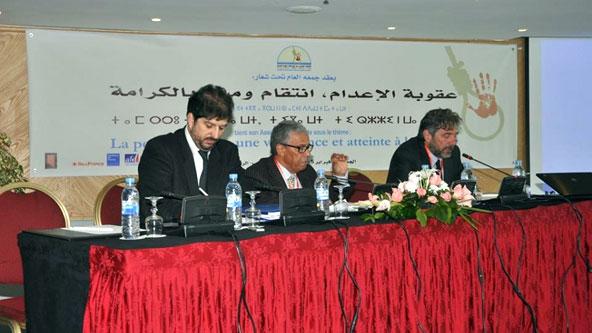
Article(s)
Moroccan Coalition tackles death penalty for terrorism
By World Coalition Against the Death Penalty, on 13 March 2015
The Moroccan Coalition against the Death Penalty held its AGM in Rabat on 27 and 28 February. An unprecedented debate around the death penalty related to terrorism took place during the event.
2015
Morocco
Terrorism

Article(s)
Applause for Pennsylvania’s death penalty moratorium
By Death Penalty Focus, "Free Mumia!" French Support Group, on 23 February 2015
Newly elected Governor Tom Wolf placed a moratorium on executions in Pennsylvania on 13 February until concerns about the fairness of the state’s death penalty system are addressed.
2015
Moratorium
United States
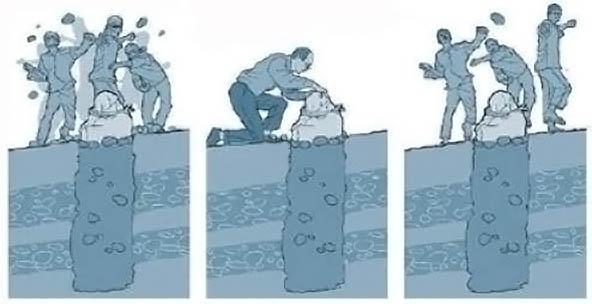
Article(s)
World Coalition members share knowledge on UN advocacy
By Asil Abuassba (The Advocates for Human Rights), on 19 February 2015
Asil Abuassba, a Palestinian intern with World Coalition member organisation The Advocates for Human Rights, attended a training session to help global activists submit reports on the death penalty situation in their countries to UN bodies.
2015
Cruel, Inhuman and Degrading Treatment and Punishment
Death Row Conditions
Fair Trial
Innocence
Intellectual Disability
Juveniles
Mental Illness
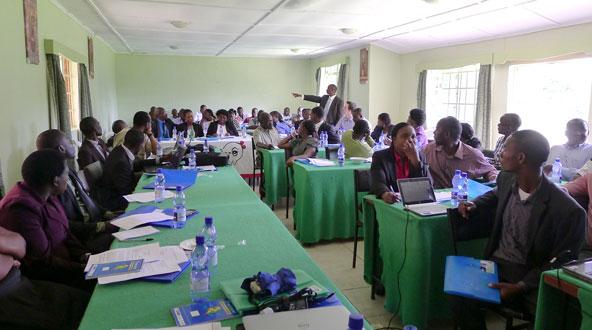
Article(s)
Mental health seminar takes Malawi a step closer to resentencings
By Emile Carreau, on 28 January 2015
The Malawi Human Rights Commission (MHRC) held a two-day seminar on mental health evaluations in preparation for the resentencing of nearly 200 individuals after their mandatory death sentences were deemed unconstitutional.
2015
Malawi
Malawi
Mental Illness
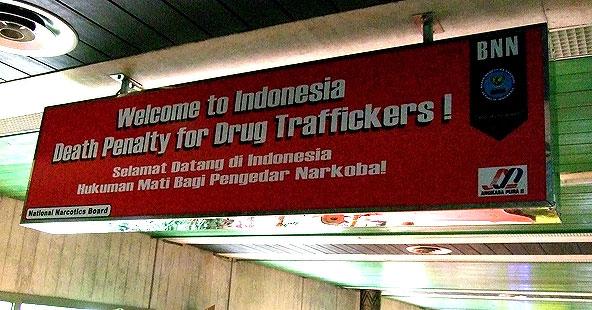
Article(s)
Indonesia: execution for drug crimes is no solution
By World Coalition Against the Death Penalty, on 26 January 2015
In an open letter, the World Coalition and its members, including KONTRAS and Amnesty International, condemn the Indonesian government’s politicizing of the death penalty to show its commitment to eradicating drug-related crimes. Recent resumptions of executions show one thing, they are carried out for political reasons only: in Pakistan to show that it is tough on terrorism, Jordan that it tough on crime and Indonesia that it is tough on drugs. Instead, those states should abolish the death penalty to show their commitment to upholding human rights. The next World Day against the Death Penalty will be dedicated to the issue of capital drug crimes.
2015
Drug Offenses
Indonesia

Article(s)
Executions in Jordan and Pakistan show need to go beyond moratorium
By Thomas Hubert, on 16 January 2015
The World Coalition and its members have criticised decisions by the governments of Jordan and Pakistan to reverse their policy of suspending executions despite a historic vote in favour of a moratorium on the use of the death penalty at the UN General Assembly.
2015
Jordan
Moratorium
Pakistan
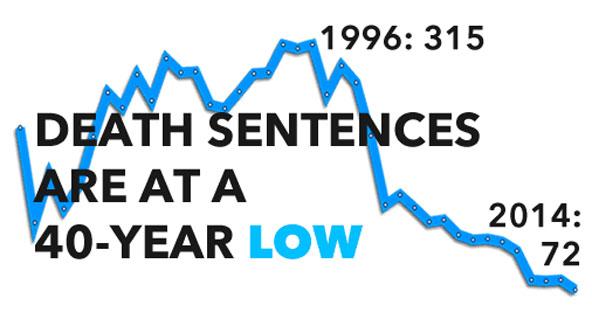
Article(s)
Fewest death sentences in 40 years in the US
By Death Penalty Information Center, on 12 January 2015
The number of executions in the United States was at its lowest in 20 years and seven death row prisoners were exonerated in 2014.
2015
Intellectual Disability
Mental Illness
United States
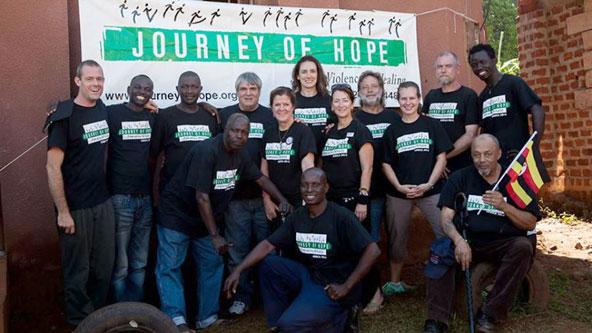
Article(s)
Ugandan tour exemplifies abolitionist collaboration
By Emile Carreau, on 21 December 2014
US-based World Coalition member Journey of Hope answers the call to tour Uganda and strengthen the fight against the death penalty in the country.
2014
Murder Victims' Families
Uganda

Article(s)
117 countries vote for a global moratorium on executions
By Maria Donatelli, on 19 December 2014
The latest vote at the UN General Assembly shows wider support than ever for a resolution on a moratorium on the use of the death penalty.
2014
Moratorium
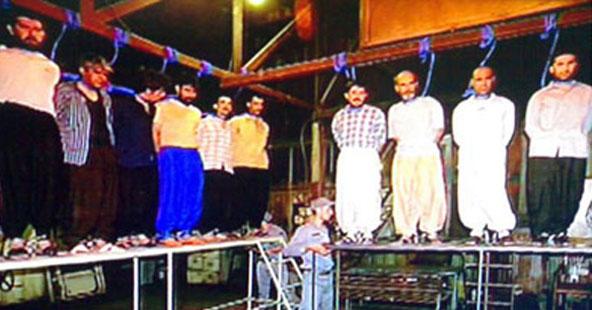
Article(s)
UN: freeze funding of Iran counter-narcotics efforts
By World Coalition Against the Death Penalty, on 17 December 2014
The World Coalition and its members call on UNODC to stop support to Iran as executions for drug trafficking surge.
2014
Drug Offenses
Iran (Islamic Republic of)
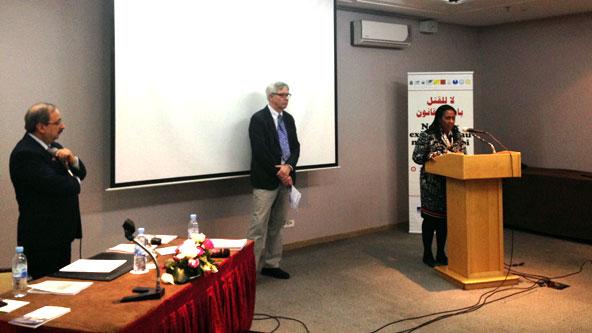
Article(s)
World Coalition publishes abolition guide for parliamentarians
By Maria Donatelli (in Rabat, Morocco), on 9 December 2014
A new handbook gives members of parliaments arguments and advice to work towards abolition in their countries and to support their colleagues abroad.
2014
Morocco
Public Opinion
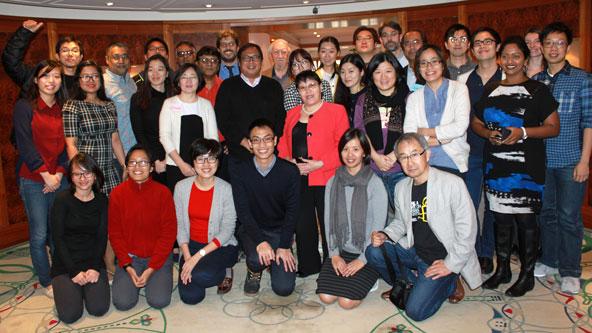
Article(s)
ADPAN network strengthens abolitionists across Asia
By Aurélie Plaçais (in Taipei, Taiwan), on 9 December 2014
The Anti-Death Penalty Asia Network, a coalition hosted by Amnesty International in London since 2006, has become an independent organisation registered in Malaysia and held its first AGM in Taipei, Taiwan on 4-5 December.
China
Japan
Malaysia
Mongolia
Public Opinion
Republic of Korea
Taiwan
Taiwan

Article(s)
UN singles out Iraq’s ever-increasing practice of capital punishment
By Bronwyn Dudley, on 10 November 2014
A report on the death penalty by the UN mission to Iraq has unearthed startling new information about the use of capital punishment in the country. The study was released on the heels of the UN’s human rights review of Iraq, where the death penalty emerged as a primary concern.
2014
Cruel, Inhuman and Degrading Treatment and Punishment
Fair Trial
Iraq
Iraq
Terrorism
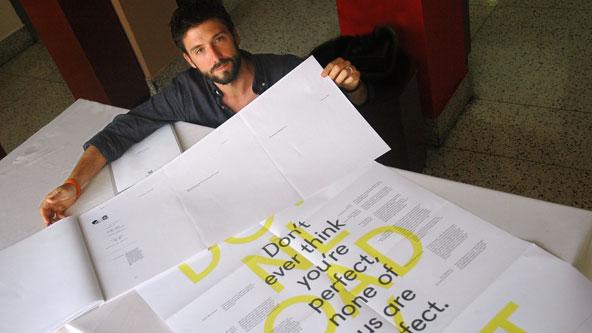
Article(s)
Publishing the final words of the executed to restore their humanity
By Thomas Hubert, on 16 October 2014
Publisher Joshua Herman and photographer Marc Asnin want to issue thousands of American schools with a book presenting the final statements of executed prisoners in an attempt to remind supporters and opponents of the death penalty alike that it targets human beings.
2014
Public Opinion
United States
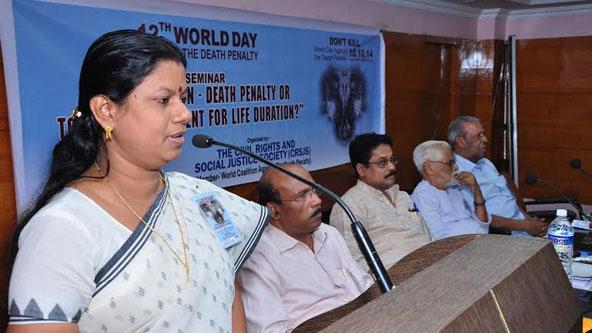
Article(s)
Links between death penalty and mental health exposed from Japan to Nigeria
By Thomas Hubert, on 15 October 2014
The 12th World Day Against the Death Penalty was marked by hundreds of actions on all continents, in the media and online.
2014
Japan
Mental Illness
Document(s)
Italian Poster 2014
By World Coalition against the death penalty , on 10 October 2014
2014
Campaigning
Trend Towards Abolition
More details Download [ pdf - 4239 Ko ]
Italian Poster 2014
- Document type Campaigning
- Themes list Trend Towards Abolition
Document(s)
Japanese Poster 2014
By World Coalition against the death penalty , on 10 October 2014
Campaigning
Trend Towards Abolition
More details Download [ pdf - 4273 Ko ]
Japanese Poster 2014
- Document type Campaigning
- Themes list Trend Towards Abolition
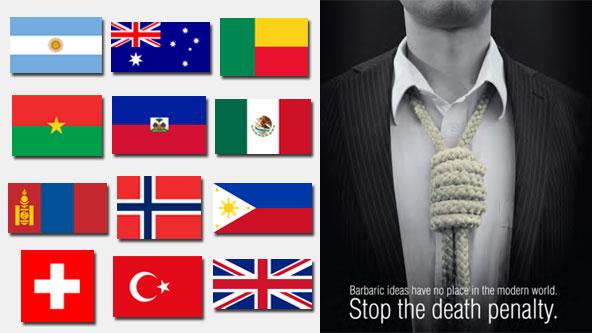
Article(s)
Dialogue should make death penalty “a sentence of the past” – foreign ministers
By World Coalition Against the Death Penalty, on 9 October 2014
Twelve governments from countries with and without capital punishment release a joint declaration calling for a world that “respects human dignity” on World Day Against the Death Penalty.
2014
Argentina
Australia
Benin
Burkina Faso
Haiti
Intellectual Disability
Mental Illness
Mexico
Mongolia
Norway
Philippines
Switzerland
Turkey
United Kingdom
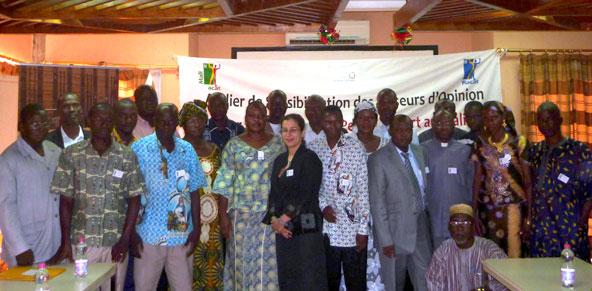
Article(s)
Malian opinion leaders meet to discuss death penalty abolition
on 6 October 2014
World Coalition member organisation FIACAT and its affiliate in Mali, ACAT Mali organised a seminar to raise awareness on the abolition of the death penalty in Mali in Bamako on 29 and 30 September 2014.
2014
Mali
Mali
Public Opinion

Article(s)
Death penalty systems disregard mental health – experts
By Thomas Hubert, on 25 September 2014
Despite international and national standards banning the use of capital punishment against mental ill or intellectually disabled people, health professionals familiar with death row say it is full of prisoners who should instead be receiving treatment.
2014
Intellectual Disability
Mental Illness
United States
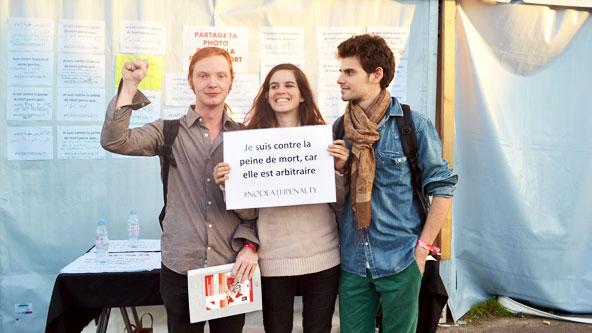
Article(s)
ECPM takes social media campaign to the fair ground
By Bronwyn Dudley, on 16 September 2014
World Coalition member organisation Ensemble contre la peine de mort (ECPM) was at September’s Fête de l’Humanité in Paris to spread awareness of the 12th World Day Against the Death Penalty on October 10.
2014
France
Intellectual Disability
Mental Illness

Article(s)
Calendar of events for World Day 2014
By World Coalition Against the Death Penalty, on 19 August 2014
On 10 October 2014, the 12th World Day Against the Death Penalty is drawing attention to people with mental health problems who are at risk of a death sentence or execution. Browse the schedule and the map to prepare and promote the events planned around the world on the big day.
2014
Intellectual Disability
Mental Illness
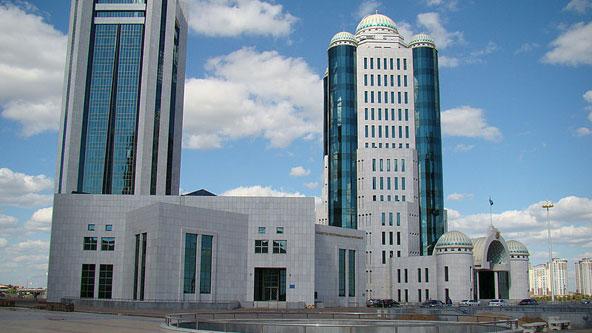
Article(s)
Kazakhstan Penal Code reform runs counter to abolitionist trend
By Anne Souléliac (Paris Bar), on 22 July 2014
The new Kazakh Penal Code provides for an increase in the number of capital crimes, even though Kazakhstan has been moving away from the death penalty for years and has a stated policy of meeting international standards.
2014
Kazakhstan
Kazakhstan
Terrorism
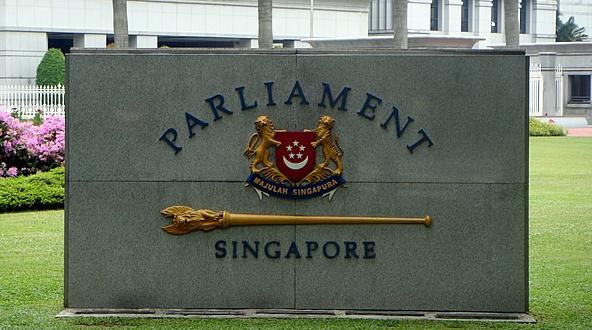
Article(s)
Singapore breaks three-year moratorium on executions
on 21 July 2014
On 18 July 2014, Singapore executed two death row prisoners, Tang Hai Liang, 36, and Foong Chee Peng, 48, bringing to an end a three-year official moratorium established by the government in 2011 as part of the review process of the mandatory death penalty.
2014
Moratorium
Singapore

Article(s)
California ruling paves way for abolition of one of the world’s largest death rows
By Elizabeth Zitrin, on 18 July 2014
United States Federal District Court Judge Cormac J. Carney, who was appointed by former President George W. Bush, a strong supporter of the death penalty, ruled on 16 July that California’s death penalty system violates the US Constitution.
2014
Cruel, Inhuman and Degrading Treatment and Punishment
United States

Article(s)
Improved access to unique global death penalty library
By Thomas Hubert, on 10 July 2014
The World Coalition has redesigned its online library to help visitors find the documents they need in its multilingual database of resources and campaigning tools on capital punishment.
2014
Clemency
Cruel, Inhuman and Degrading Treatment and Punishment
Death Row Conditions
Drug Offenses
Fair Trial
Innocence
Intellectual Disability
Juveniles
Legal Representation
Mental Illness
Moratorium
Murder Victims' Families
Public Opinion
Terrorism
Women
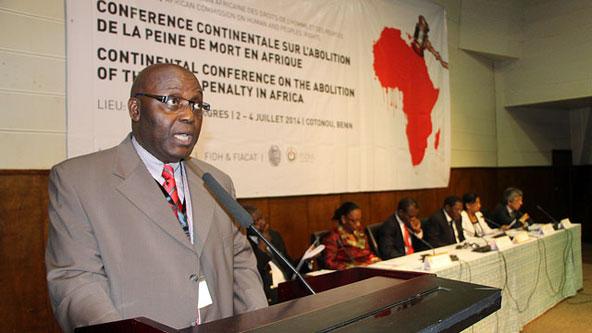
Article(s)
African leaders and abolitionists hold anti-death penalty summit in Cotonou
By World Coalition Against the Death Penalty, on 7 July 2014
The signature of an African treaty on the abolition of the death penalty is a priority to firm up the trend moving away from capital punishment across the continent.
2014
Benin
Benin
Public Opinion

Article(s)
West African court finds against Nigeria in abusive capital cases
on 3 July 2014
The ECOWAS Court has upheld the rights of death row detainees following litigation by World Coalition member organisation ASF France and Nigerian human rights defedenders.
2014
Juveniles
Nigeria
Nigeria
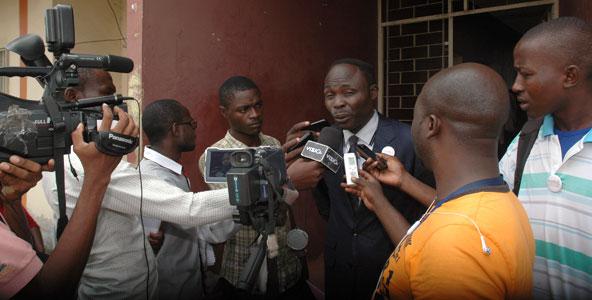
Article(s)
Working with journalists to expose the death penalty’s flaws
By World Coalition Against the Death Penalty, on 30 June 2014
Journalists and activists held a joint practical workshop during the World Coalition’s recent AGM in Puerto Rico to discuss ways of getting the abolitionist message across in the media.
2014
Public Opinion
Puerto Rico

Article(s)
World Coalition supports international calls for American moratorium
By World Coalition Against the Death Penalty, on 6 May 2014
Following the botched execution of Clayton Lockett in Oklahoma on 29 April, the United Nations called on the United States to suspend executions in the face of potential international law violations. The World Coalition supports this appeal.
2014
Moratorium
United States
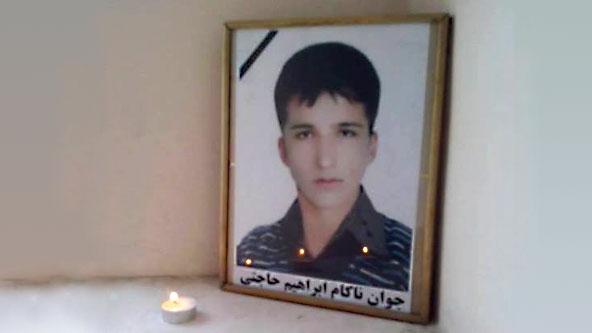
Article(s)
Iran executes four juvenile offenders in one week
By World Coalition Against the Death Penalty, on 28 April 2014
The increased number of prisoners executed for offences committed before they turned 18 is in clear violation of Iran’s international commitments, the World Coalition says in the statement below.
2014
Iran (Islamic Republic of)
Juveniles

Article(s)
Belarus ends more than one year without execution
By Daria Gribanova, on 14 April 2014
Despite an execution this month, Amnesty International’s latest annual report on the death penalty shows Belarus did not kill any prisoner last year, meaning Europe and Central Asia was execution-free for the first time since 2009. This achievement bolsters local abolitionists – despite the risks they face in their activism.
2014
Belarus
Belarus
Moratorium

Article(s)
Iraq’s frantic executions pace linked to serious human rights violations
By Thomas Hubert, on 27 March 2014
Iraq emerges as the country with the fastest-growing number of executions in Amnesty International’s new annual report on the death penalty. The World Coalition’s submission for Iraq’s upcoming UN human rights review calls for a moratorium on abusive executions.
2014
Fair Trial
Iraq
Iraq
Terrorism

Article(s)
Top UN representatives take stance on death penalty at Human Rights Council
By World Coalition Against the Death Penalty, on 14 March 2014
From UN Secretary General Ban Ki-moon to abolitionist and retentionist government ministers and World Coalition members, participants to a recent discussion on the death penalty placed the issue high on the international agenda.
2014
Afghanistan
Benin
Brazil
Cruel, Inhuman and Degrading Treatment and Punishment
Iran (Islamic Republic of)
Mongolia
Morocco
Myanmar
Namibia
Pakistan
Saudi Arabia
Sierra Leone
Singapore
Sudan
United States
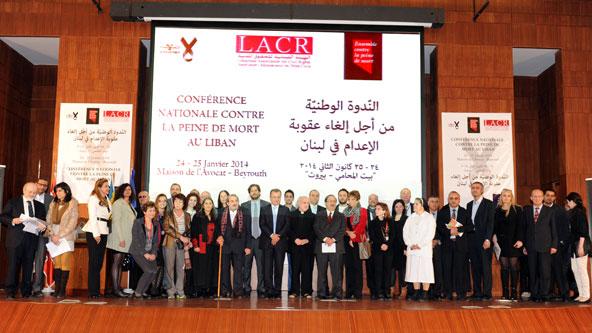
Article(s)
National conference gives Lebanese abolitionist movement a boost
By Thomas Hubert, on 14 February 2014
Several hundred activists, experts and political leaders met in Beirut at the end of January to push the abolitionist cause with the Lebanese authorities and organise their movement at the national level.
2014
Lebanon
Moratorium
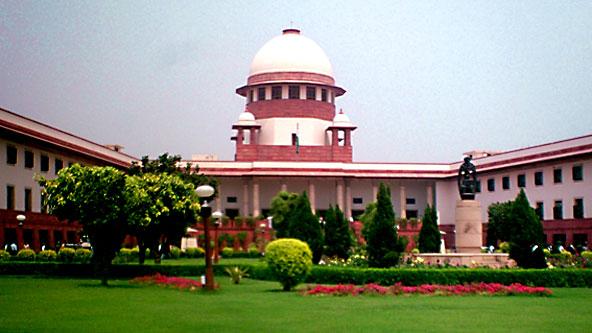
Article(s)
Indian ruling highlights importance of next World Day
By Emile Carreau, on 3 February 2014
On 21 January, India’s Supreme Court formally banned the execution of mentally ill prisoners and in doing so highlighted why this year’s World Day against the Death Penalty, which is dedicated to issues of mental health, is so important.
2014
India
Intellectual Disability
Mental Illness
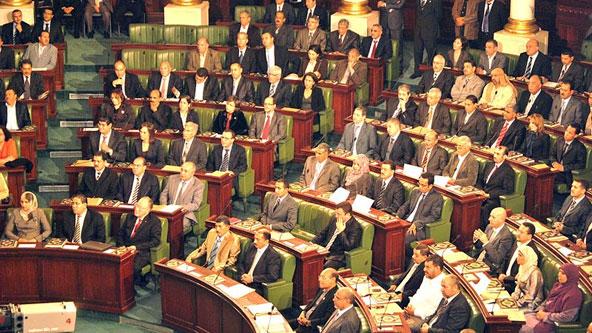
Article(s)
Tunisian Constitution enshrines right to life but upholds death penalty
By Delphine Judith, on 28 January 2014
After weeks of debates, Tunisia has adopted a new Constitution. As expected by local abolitionists, the National Constituent Assembly (NCA) passed a text allowing capital punishment on 26 January 2014.
2014
Moratorium
Tunisia
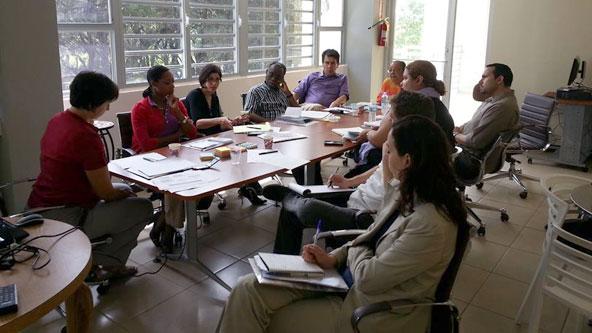
Article(s)
Caribbean network fleshes out plans for abolition
By Emile Carreau, on 16 January 2014
The Executive Committee of the Greater Caribbean for Life (GCL) network, constituted in October 2013, met in San Juan, Puerto Rico on January 11 and 12 to devise strategies to combat the death penalty in the region.
2014
Moratorium
Trinidad and Tobago
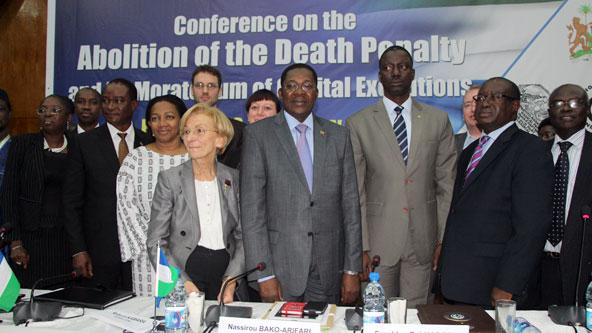
Article(s)
West African governments and civil society discuss death penalty in Freetown
on 16 January 2014
Hands Off Cain organised a conference on the abolition and moratorium of the death penalty in West Africa on January 13 and 14, in partnership with the government of Sierra Leone and with support from the World Coalition, the European Union and FIACAT.
Benin
Guinea
Guyana
Italy
Mali
Moratorium
Niger
Rwanda
Sierra Leone
Sierra Leone
Togo
United Kingdom
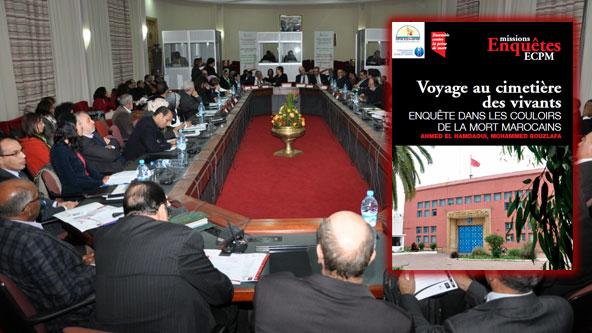
Article(s)
Abolitionist movement shifts up a gear in Morocco
By Thomas Hubert, on 20 December 2013
Through engagement with members of Parliament, the publication of an unprecedented report on death row conditions and the launch of a new website, the Moroccan abolitionist movement is entering a new dimension.
2013
Mental Illness
Morocco
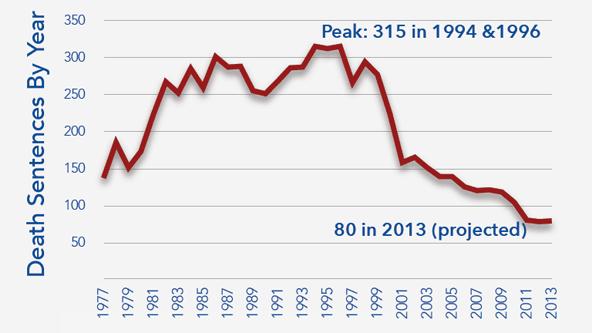
Article(s)
US executions drop below 40 in 2013
By Death Penalty Information Center, on 20 December 2013
According to the Death Penalty Information Center’s annual report, the number of death sentences in the United States has remained near record lows, a new State repealed capital punishment and public support for the death penalty fell to a 40-year low.
Public Opinion
United States
Document(s)
Grief, Loss, and Treatment for Death Row Families
By Sandra Joy, on 5 December 2013
2013
Book
Murder Victims' Families
More details See the document
The families of death row inmates are rarely considered in public discourse regarding the death penalty. They have largely been forgotten, and their pain has not been acknowledged by the rest of society. These families experience a unique grief process as they are confronted with the loss of their loved one to death row and brace themselves for the possibility of an execution. Death row families are disenfranchised from their grief by the surrounding community, and their; mental health needs exacerbated as they struggle in isolation with the ambiguous loss that comes with the fear that the state will kill their loved one.
Grief, Loss, and Treatment for Death Row Families describes the grief that families experience from the time of their loved one’s arrest through his or her execution. In each chapter, Sandra Joy guides the reader through the grief process experienced by the families, offering clinical interventions that can be used by mental health professionals who are given the opportunity to work with these families at various stages of their grief. The author conducted over seventy qualitative interviews with family members from Delaware who either currently have a loved one on death row or have survived the execution of their loved one. Delaware was chosen because though it has a relatively small death row, it is ranked third in the nation with its rate of per capita executions. This book provides an in-depth awareness of the grieving process of death row families, as well as ways that professionals can intervene to assist them in healing. With increased awareness and effective clinical treatment, we can ensure that the families of death row inmates are forgotten no more.
- Document type Book
- Themes list Murder Victims' Families
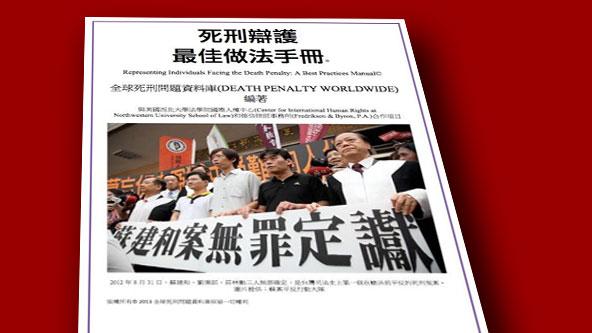
Article(s)
Lawyers’ manual published in traditional Chinese
By Taiwan Alliance to End the Death Penalty, on 30 November 2013
On the occasion of Cities for Life Day on November 30, the Taiwan Alliance to End the Death Penalty (TAEDP) and the World Coalition Against the Death Penalty are proud to announce the online publication of the Chinese version of Representing Individuals Facing the Death Penalty: A Best Practices Manual. This publication is intended for lawyers who defend people facing the death penalty around the world.
2013
China
Legal Representation
Taiwan
Taiwan
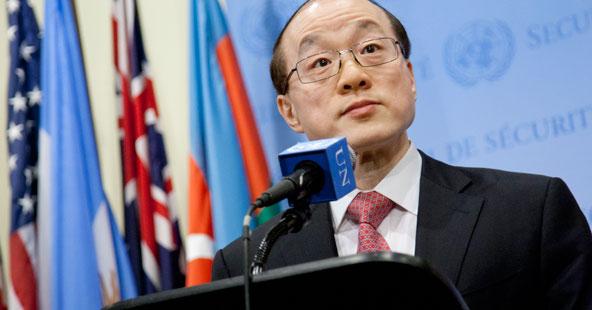
Article(s)
How far is China ready to reduce its use of the death penalty?
By Aurélie Plaçais, on 25 November 2013
The number one executioner in the world recently made national and international commitments to continuing to reform its death penalty, but how far is China really ready to go?
2013
China
Clemency
Drug Offenses
Terrorism
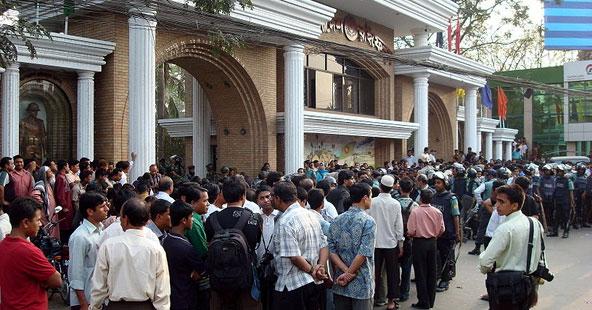
Article(s)
Abolitionist community appalled at Bangladeshi court ruling
By Emile Carreau, on 8 November 2013
A Bangladeshi court has sentenced 152 people to death and 161 others to life in prison on 5 November for a mutiny in Dhaka in 2009 (photo). High profile abolitionists have berated the decision.
2013
Bangladesh
Death Row Conditions

Article(s)
Iran: indiscriminate executions continue
By World Coalition Against the Death Penalty, on 4 November 2013
The United Nations, the European Union and the international community must put the situation of the death penalty at the top of the agenda in their dialogue with Iran.
2013
Cruel, Inhuman and Degrading Treatment and Punishment
Fair Trial
Iran (Islamic Republic of)
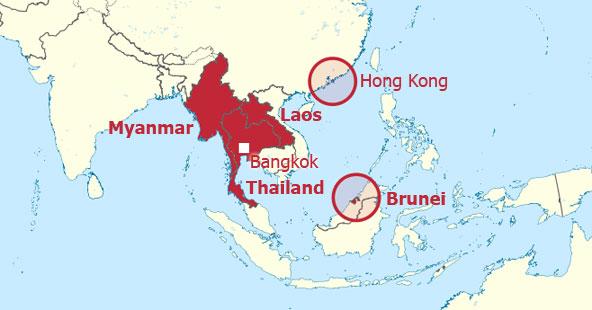
Article(s)
Moving away from the death penalty in Asia
By Sandra Babcock (DeathPenaltyWorldwide.org) in Bangkok, on 25 October 2013
Following up on the World Day Against the Death Penalty, successive meetings in Thailand and in China highlight decreasing support for capital punishment among Asian governments and public opinion.
2013
Brunei Darussalam
China
Japan
Lao People's Democratic Republic
Moratorium
Myanmar
Public Opinion
Thailand
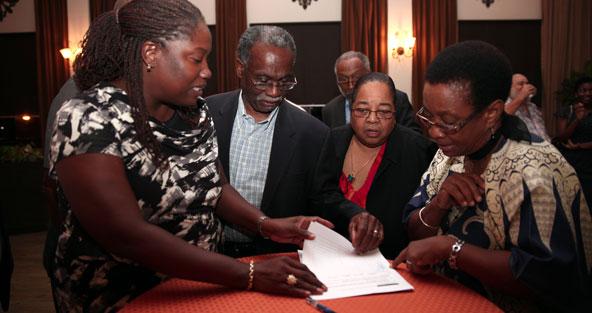
Article(s)
Events, strong words and hard facts to fight death penalty in the Caribbean
By Thomas Hubert, on 11 October 2013
As World Day Against the Death Penalty events unfolded on an unprecedented scale across the region, local activists and international organisations took a firm stance against capital punishment across the Caribbean.
2013
Bahamas
Barbados
Belize
Guatemala
Jamaica
Public Opinion
Puerto Rico
Saint Kitts and Nevis
Trinidad and Tobago
Document(s)
Facts and Figures 2013
on 10 October 2013
2013
Campaigning
Trend Towards Abolition
aresMore details Download [ pdf - 115 Ko ]
Facts and Figures world day against the death penalty 2013
- Document type Campaigning
- Themes list Trend Towards Abolition
- Available languages Faits et chiffres 2013PENA DE MUERTE HECHOS Y DATOS

Article(s)
Pakistan moratorium renewal welcomed
By Human Rights Commission of Pakistan, on 8 October 2013
The Human Rights Commission of Pakistan (HRCP), a World Coalition member organisation, has welcomed the federal government’s announcement on continuing the moratorium on capital punishment and has called for a thorough review of the death penalty regime in the country.
2013
Moratorium
Pakistan
Pakistan

Article(s)
Divided opinions on death penalty in Belarus
on 8 October 2013
On the occasion of the World Day Against the Death Penalty, World Coalition member organizations Penal Reform International and Belarus Helsinki Committee are releasing a rare opinion poll on what people know and think about capital punishment in the last European country with the death penalty.
Belarus
Belarus
Public Opinion
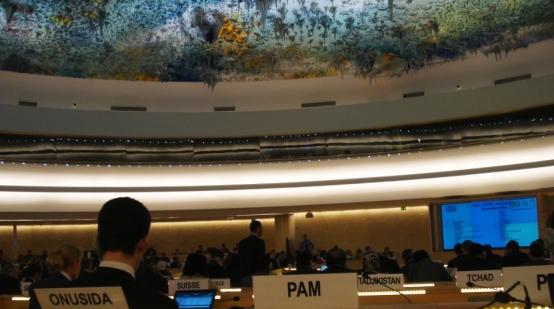
Article(s)
Children of people sentenced to death attract the UN’s attention
By Léa Macarez, on 19 September 2013
The UN Human Rights Council brought together representatives from civil society, States and the UN itself to discuss the rights of children whose parents are sentenced to death or executed.
2013
Juveniles

Article(s)
World Coalition opens dialogue with Iraq
By Florence Bellivier, on 16 September 2013
Iraq’s ambassador to Paris met representatives from the World Coalition Against the Death Penalty as the country has been accelerating the rhythm of executions.
2013
Iraq
Moratorium
Terrorism
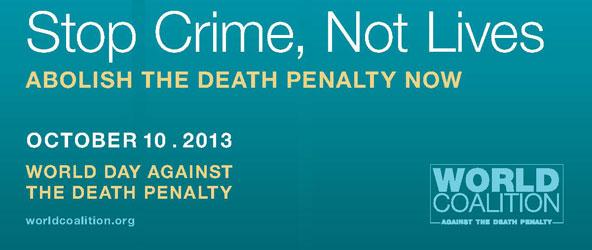
Article(s)
Calendar of events for World Day
By WCADP, on 10 September 2013
On 10 October 2013, the World Day Against the Death Penalty is focusing on the death penalty in the Greater Caribbean. Browse the schedule and the map to prepare and promote the events planned around the world on the big day.
2013
Cruel, Inhuman and Degrading Treatment and Punishment
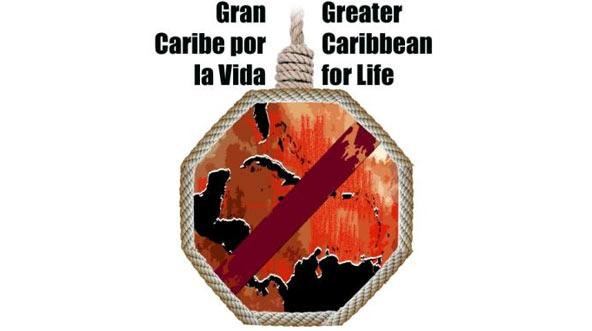
Article(s)
Caribbean Conference – The Death Penalty in the Context of Public Security: Neither Right, Nor Effective
By Greater Caribbean For Life, on 9 September 2013
To celebrate the 11th World Day Against the Death Penalty dedicated to the Greater Caribbean, a regional conference is organised by local civil society in Trinidad and Tobago on October, 1st.
2013
Public Opinion

Article(s)
Suspension of Pakistan executions not enough – ADPAN
By Thomas Hubert, on 22 August 2013
The Anti Death Penalty Asia Network calls for the restoration of a formal moratorium after the government postponed a wave of executions under pressure from international abolitionists.
2013
Moratorium
Pakistan
Pakistan
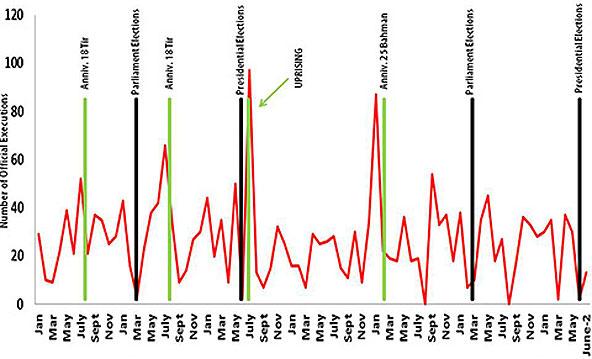
Article(s)
Stats show Iran executions are linked to political events
on 17 July 2013
Figures examined by World Coalition member organisation Iran Human rights show peaks in the use of the death penalty before and after each election.
2013
Drug Offenses
Iran (Islamic Republic of)
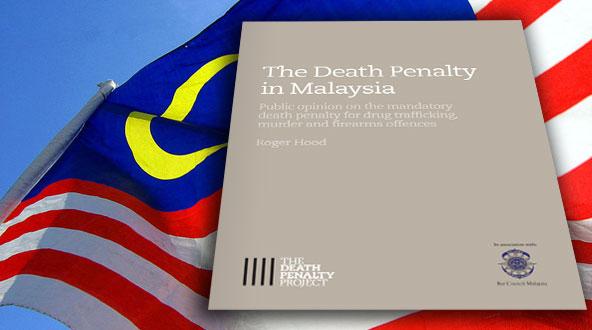
Article(s)
Malaysian popular support for mandatory death penalty overstated
By Thomas Hubert, on 10 July 2013
A detailed opinion survey commissioned by the Death Penalty Project in Malaysia found that while most people initially respond supportively when asked about mandatory death sentences, their opinion changes when confronted with practical cases and additional information.
2013
Malaysia
Public Opinion
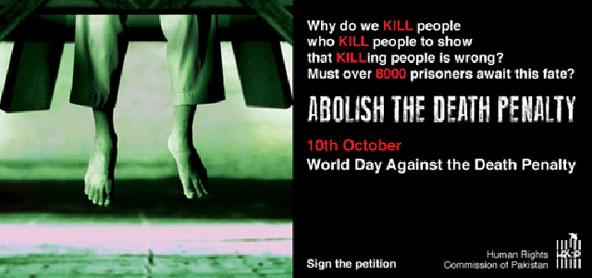
Article(s)
Pakistani authorities urged to renew moratorium
By Human Rights Commission of Pakistan, on 8 July 2013
The Human Rights Commission of Pakistan, a World Coalition member, has called on the government formed following recent elections to suspend executions. A previous moratorium order has expired and many prisoners are at risk of being hanged.While the 2008 moratorium was introduced under the rule of the Pakistan People Party, whose former leader Benazir Bhutto was a well-known abolitionist, it expired shortly after Nawaz Sharif of the Pakistan Muslim League became Prime minister.
Pakistan had already broken the moratorium when it executed a soldier in November 2012.
2013
Moratorium
Pakistan
Pakistan
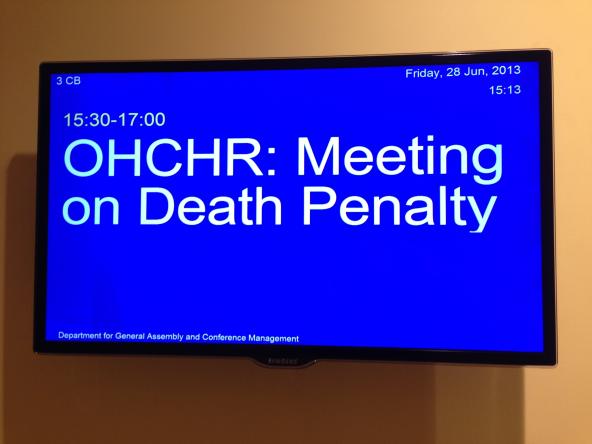
Article(s)
United Nations panel hears from innocent sentenced to death
By Maria Donatelli, on 4 July 2013
World Coalition members and a man who spent 18 years on death row for murders he did not commit joined UN Secretary General Ban Ki-Moon for a debate on capital punishment.
2013
Innocence
United States

Article(s)
Texas maintains distance from abolitionist trend after 500th execution
By Léa Macarez, on 4 July 2013
52 year-old black woman Kimberly McCarthy was executed on 26 June and became the 500th prisoner put to death since Texas restored the death penalty in 1982.
United States
Women
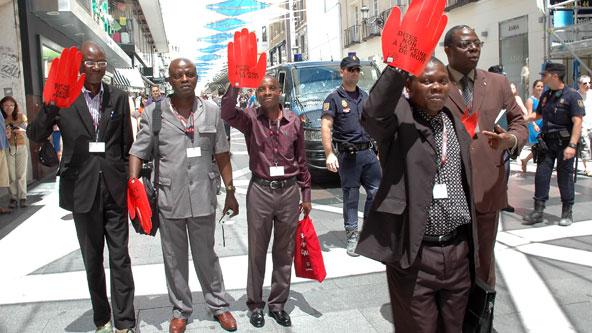
Article(s)
Tackling resistance to abolition in Africa
By Thomas Hubert, on 22 June 2013
While Africa has been the fastest region in abolishing capital punishment in recent years, lawyers from Uganda and Nigeria say they are facing increasing from the authorities to use the death penalty.
2013
Innocence
Nigeria
Terrorism
Uganda
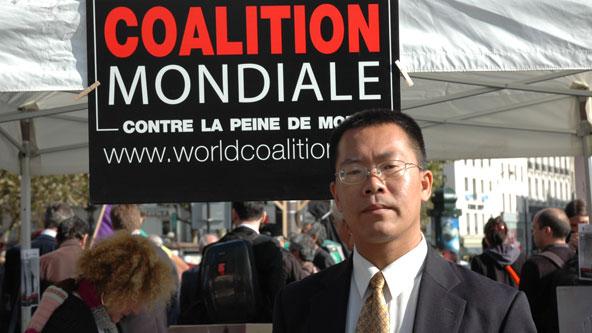
Article(s)
Chinese lawyers hailed as “heroes for justice”
By Aurélie Plaçais, on 22 June 2013
The role of lawyers in the fight against the death penalty has been discussed from different angles throughout the 5th World Congress, but the testimony of Chinese lawyers caught most people’s attention.
China
Fair Trial
Legal Representation
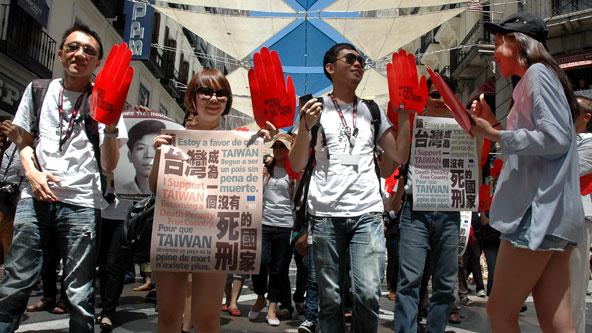
Article(s)
Asian progress paves the way for new strategies
By Thomas Hubert, on 20 June 2013
Although most executions continue to take place in Asia, their number is going down – and abolitionists are coming up with new ideas to bring about abolition.
2013
India
Japan
Malaysia
Mongolia
Moratorium
Singapore
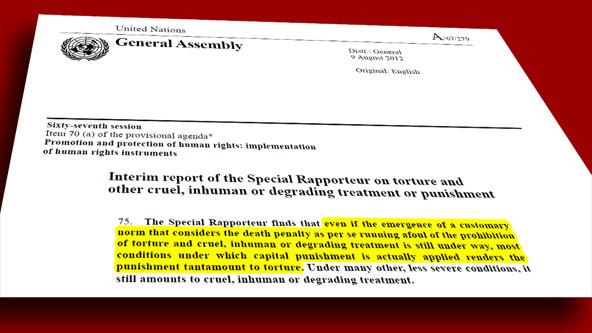
Article(s)
Linking the death penalty and torture to achieve abolition
By Thomas Hubert, on 20 June 2013
Recognising the process from sentencing to execution as a form of torture would ensure progress towards abolition in international law as well as in the US.
Cruel, Inhuman and Degrading Treatment and Punishment
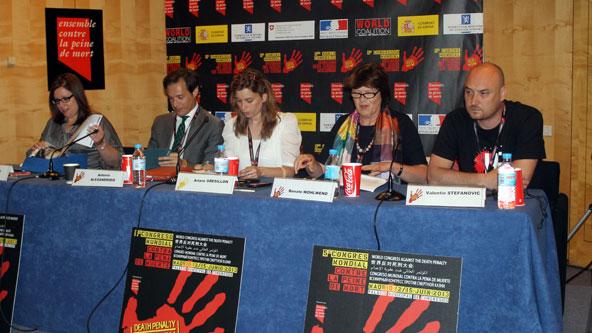
Article(s)
EU regrets difficulties in dialogue with Belarus
By Tiziana Trotta, on 16 June 2013
European Union officials and Belarusian activists denounce Minsk’s lack of political will to tackle the death penalty.
2013
Belarus
Belarus
Public Opinion
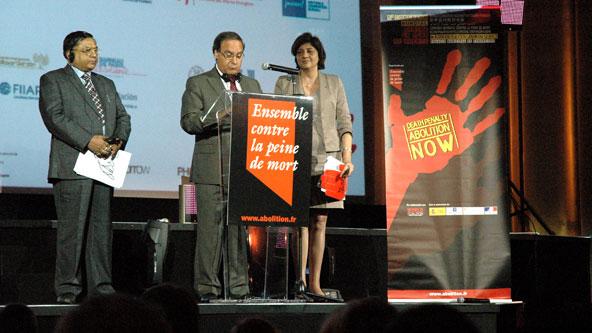
Article(s)
Call for world lawyers to unite against the death penalty
By Thomas Hubert, on 15 June 2013
The Paris Bar Association (a World Coalition member) and its Beirut counterpart have called on lawyers worldwide to increase efforts to defend those facing the death penalty and to push for its abolition.
2013
Legal Representation
Moratorium
Spain
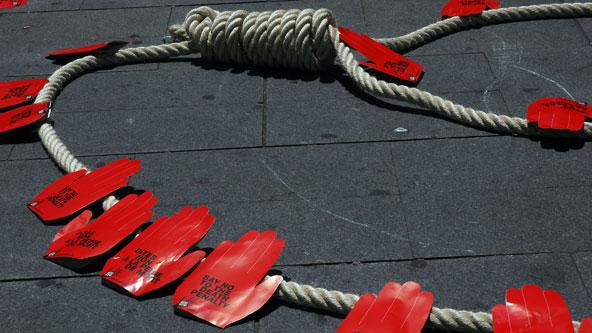
Article(s)
After abolition: what alternative to the death penalty?
By Thomas Hubert, on 15 June 2013
Ending the death penalty means finding replacement sanctions to punish former capital crimes – while taking into accounts human rights standards.
Public Opinion
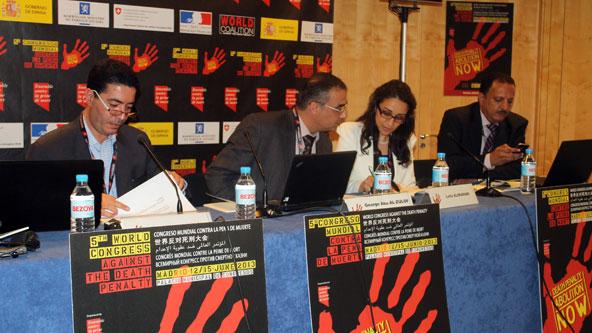
Article(s)
Small progress against the execution of minors
By Tiziana Trotta, on 14 June 2013
These are merely the very first steps down the road, but Iran, Sudan and Yemen, the only countries to apply the death penalty on juvelines along with Saudi Arabia, have just made some small progress on the issue.
2013
Iran (Islamic Republic of)
Juveniles
Sudan
Yemen
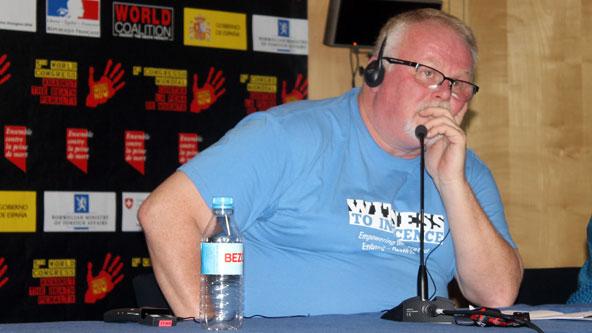
Article(s)
Shedding light on judicial blunders can help achieve abolition
By Tiziana Trotta, on 14 June 2013
Several organizations are condemning executions of innocent people because of wrongful convictions.
Innocence
Spain
Taiwan
Tunisia
United States
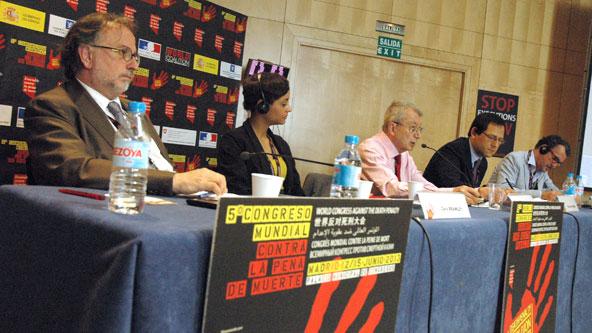
Article(s)
Two perspectives on assistance to foreign nationals facing the death penalty
By Thomas Hubert, on 13 June 2013
World Coalition member Reprieve and the Mexican government share their experience of helping those facing a capital case overseas.
2013
Legal Representation
Mexico
United States
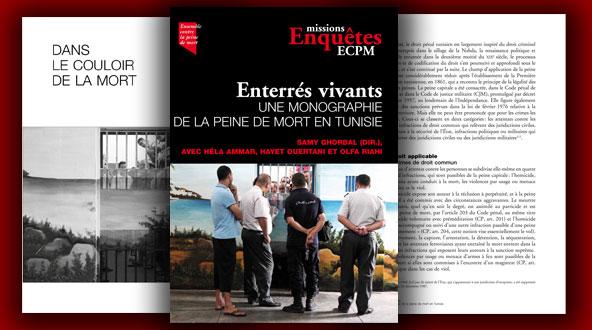
Article(s)
Inside Tunisia’s death row
By Delphine Judith, on 4 June 2013
Following the launch of the investigative report Buried alive: a study of the death penalty in Tunisia is launched, ECPM’s Middle East and North Africa officer Nicolas Bray presents the research carried out in December 2012.
2013
Death Row Conditions
Tunisia
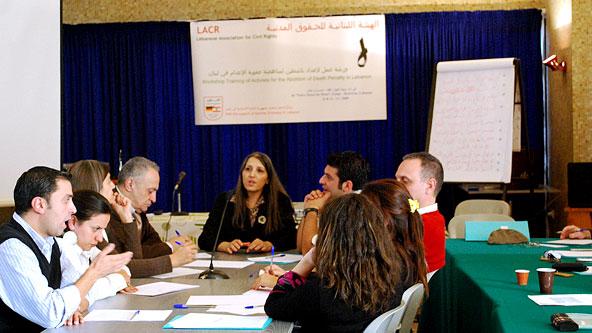
Article(s)
“Catastrophic” conditions on Lebanon’s death row
By Delphine Judith, on 31 May 2013
Ogarit Younan is a co-founder of the Lebanese Association for Civil Rights, which has just joined the World Coalition. She takes stock on the death penalty and abolitionist progress in Lebanon.
2013
Death Row Conditions
Lebanon
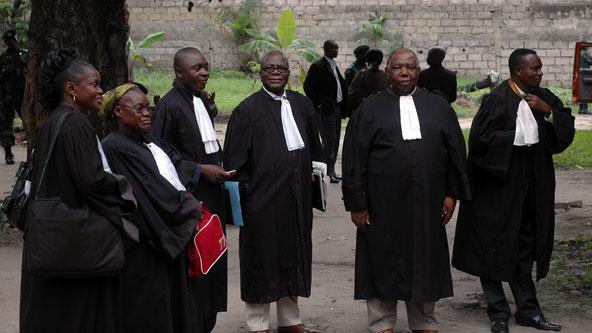
Article(s)
New defense manual to help lawyers in capital cases worldwide
By Thomas Hubert, on 29 May 2013
The World Coalition, together with Death Penalty Worldwide and the law firm of Fredrikson & Byron P.A., has launched the English and French editions of a manual compiling guidelines for defense lawyers whose clients face the death penalty at the 5th World Congress Against the Death Penalty.
2013
Legal Representation
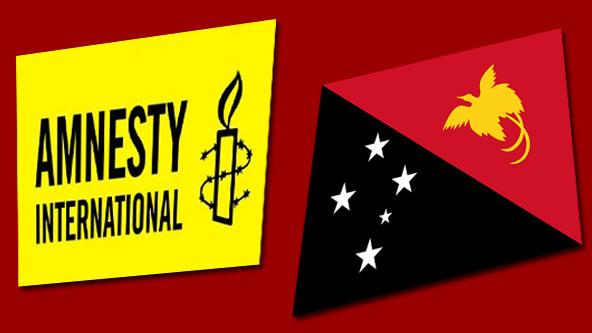
Article(s)
Death penalty proposals put lives at risk
on 23 May 2013
At least ten people under sentence of death will be at risk of execution if legal amendments to facilitate the resumption of executions are passed in Papua New Guinea.
2013
Papua New Guinea
Women
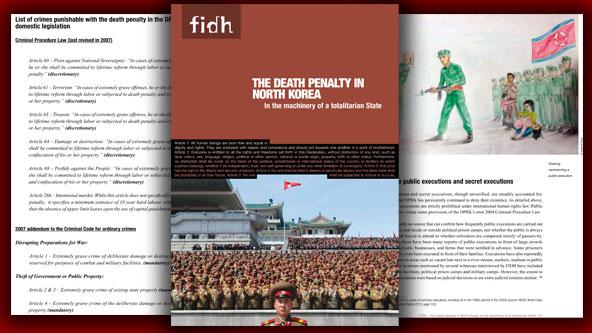
Article(s)
Death penalty still used to make examples in North Korea
By Thomas Hubert, on 19 May 2013
An investigation of testimonies from North Korean refugees by FIDH describes the political use of widespread executions – although their number remains secret.
2013
Cruel, Inhuman and Degrading Treatment and Punishment
Democratic People's Republic of Korea
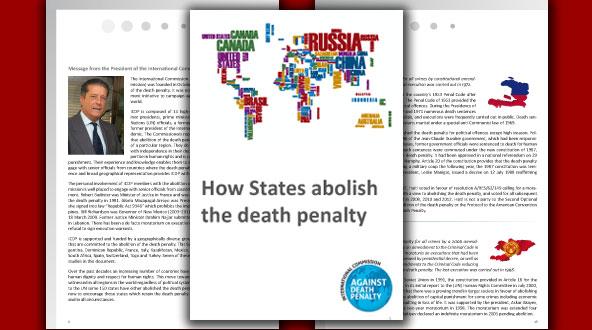
Article(s)
Study explores variety of national paths to abolition
By Thomas Hubert, on 3 May 2013
From courageous political leaders to traditional African values, the International Commission against the Death Penalty’s analysis of the factors leading to the abolition of capital punishment in 13 countries offers advice to retentionist countries.
2013
Cambodia
Haiti
Mongolia
Norway
Public Opinion
Rwanda
Senegal
South Africa
United States
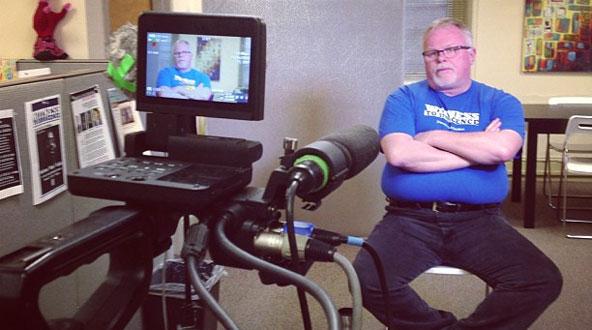
Article(s)
Ten films to expose innocence on death row
By Laura Shacham - One for Ten, on 29 April 2013
One For Ten is a series of short documentary films telling the stories of innocent people who were on death row in the United States, with support from the World Coalition and several of its members.
2013
Innocence
United States
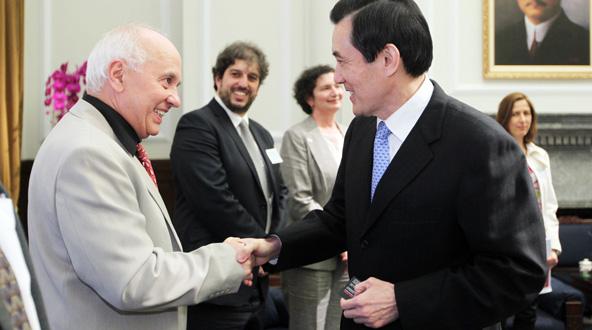
Article(s)
Taiwan visit tarnished by six executions
By Patrick Kamenka, on 25 April 2013
The meeting of the World Coalition Steering Committee on 12 and 13 April 2013 in Taipei, attended by twenty people, was tarnished the same week by the execution of six prisoners sentenced to death, even though high-level assurances had been given by the State with regard to reducing such barbarous acts.
2013
Death Row Conditions
Public Opinion
Taiwan
Taiwan
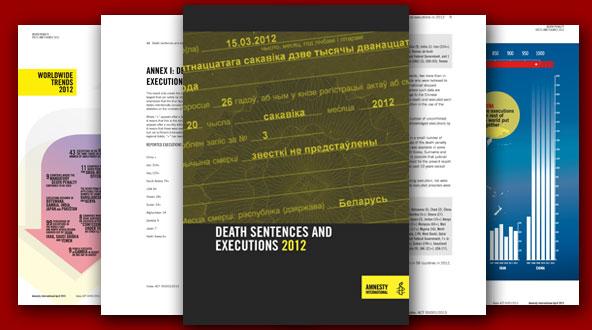
Article(s)
Only one in 10 countries carried out executions in 2012
By Tiziana Trotta, on 10 April 2013
At least 682 people were executed last year aside from China, according to Amnesty International.
2013
Afghanistan
Bahrain
Barbados
Belarus
Burkina Faso
China
Death Row Conditions
Democratic People's Republic of Korea
Egypt
Gambia
Ghana
Guyana
India
Iran (Islamic Republic of)
Iraq
Malawi
Moratorium
Pakistan
Saudi Arabia
Sierra Leone
Singapore
Syrian Arab Republic
Taiwan
Trinidad and Tobago
Viet Nam
Yemen
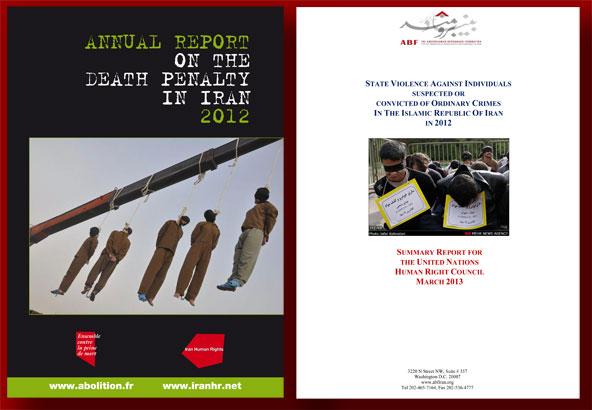
Article(s)
“Iran kills for possession of less than 50g of drugs”
By Thomas Hubert, on 9 April 2013
Annual reports published by two World Coalition member organizations of Iranian exiles expose the disproportionate use of the death penalty in Iran, mostly against drug users and traffickers.
2013
Drug Offenses
Iran (Islamic Republic of)
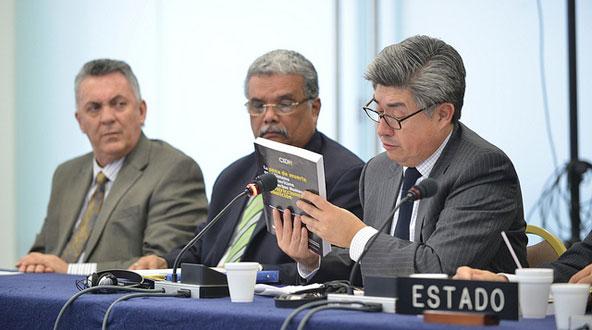
Article(s)
Organisation of American States considers moratorium
By Tiziana Trotta, on 15 March 2013
The Inter-American Commission on Human Rights warns that litigation is insufficient to combat the death penalty.
2013
Argentina
Brazil
Costa Rica
Cuba
Dominican Republic
Ecuador
Guatemala
Mexico
Moratorium
Panama
Suriname
Trinidad and Tobago
United States
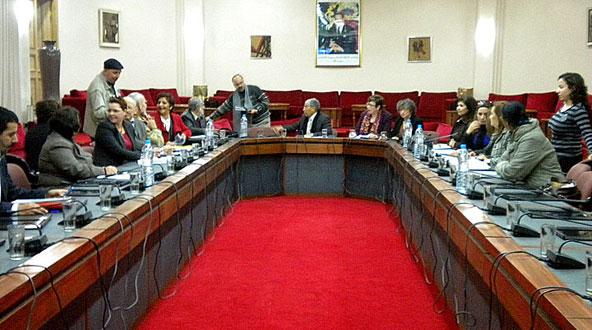
Article(s)
Moroccan parliamentary network a new step towards abolition
By Delphine Judith, on 15 March 2013
Around 180 MPs from all political hues signed the founding charter of their network against the death penalty, which promises sustained legislative action in favour of abolition.
Cruel, Inhuman and Degrading Treatment and Punishment
Moratorium
Morocco
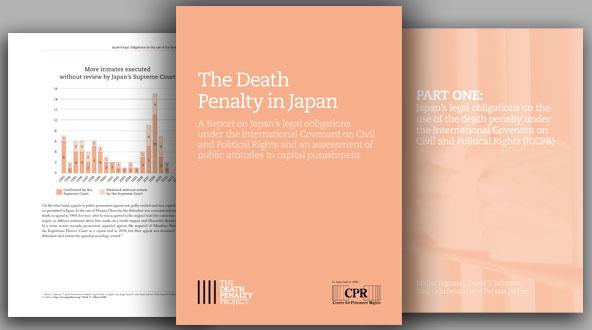
Article(s)
Japan in breach of international standards, opinion wavering – study
By Thomas Hubert, on 14 March 2013
A report published by the Death Penalty Project and the Center for Prisoners’ Rights shows that Japanese law and practice on capital punishment violate international treaties, and questions the high level of public support for the death penalty reported by the authorities.
2013
Japan
Public Opinion
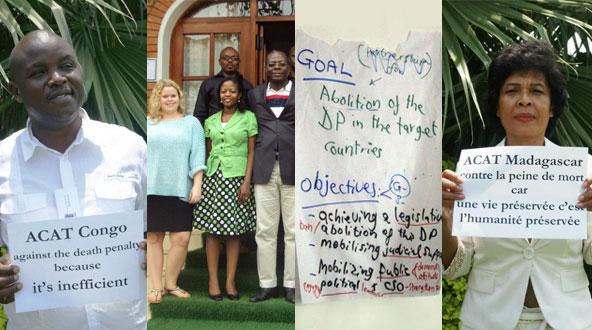
Article(s)
Central and Eastern African activists brainstorm for abolition
By Thomas Hubert, on 6 March 2013
February was a month of intense strategising for members of the regional coalition against the death penalty as well as region’s ACATs, as two meetings convened to discuss the best options to spur on Africa’s march towards abolition.
2013
Moratorium
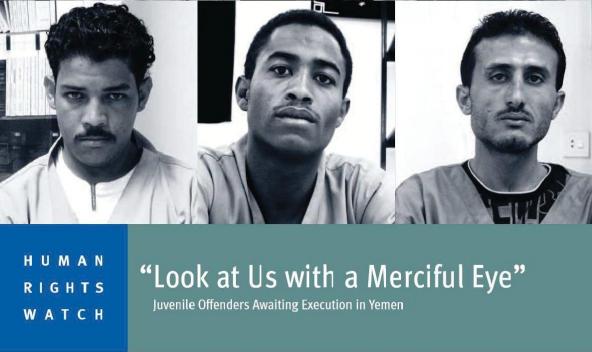
Article(s)
“Look at us with a merciful eye”
By Human Rights Watch, on 5 March 2013
Human Rights Watch is launching a 30-page report on juvenile offenders awaiting execution on Yemen’s death row.
2013
Juveniles
Yemen
Yemen
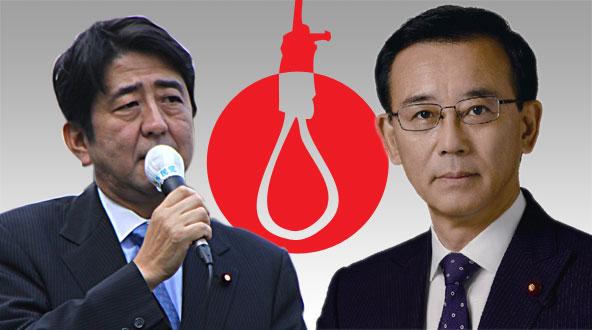
Article(s)
First executions under Abe government raise fears of more
By Thomas Hubert, on 21 February 2013
Abolitionists worldwide protest the execution of three prisoners in Japan on 21st February and call on the new justice minister to heed international calls for restraint.
2013
Japan
Moratorium
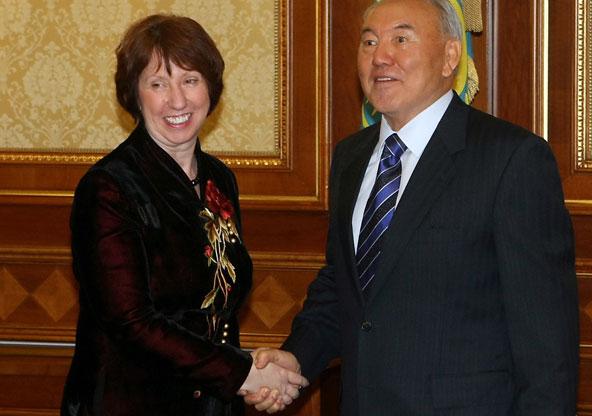
Article(s)
Kazakh criminal law reform could add capital crimes
By Thomas Hubert, on 15 February 2013
As Kazakhstan’s authorities prepare to introduce a new penal code, World Coalition members are warning against attempts to broaden the offences punishable by death.
2013
Kazakhstan
Moratorium
Public Opinion
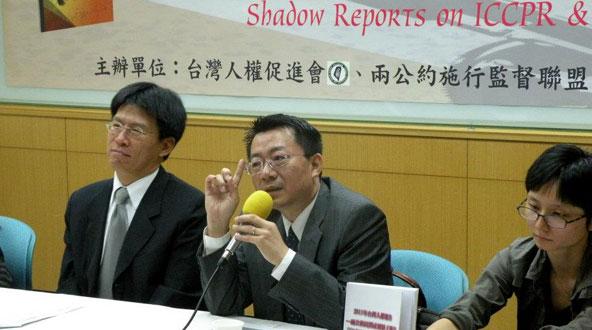
Article(s)
Death penalty at the heart of human rights review
By Thomas Hubert, on 5 February 2013
The Taiwanese authorities have been conducting a voluntary assessment of the human rights situation in the country, culminating in the visit of a panel of experts in late February. The World Coalition is taking part in the process.
2013
Cruel, Inhuman and Degrading Treatment and Punishment
Moratorium
Taiwan
Taiwan
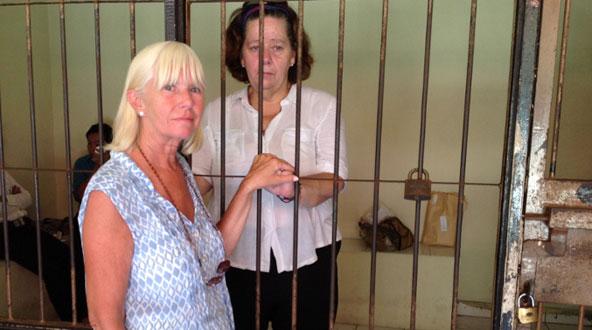
Article(s)
Briton’s death sentence puts Indonesians at risk
By KontraS, on 31 January 2013
The World Coalition’s Indonesian member organization KontraS has raised the international consequences of Lindsay Sandiford’s high-profile capital case in an opinion article published by the Jakarta Globe newspaper, calling on the country to abolish the death penalty.
2013
Drug Offenses
Indonesia
Moratorium

Article(s)
World’s nations call for execution freeze
By Maria Donatelli, on 20 December 2012
The World Coalition Against the Death Penalty welcomes the adoption by a growing number of United Nations member States of a fourth resolution calling for a universal moratorium on the use of the death penalty.
2012
Bahrain
Central African Republic
Chad
Dominica
Juveniles
Maldives
Moratorium
Oman
Papua New Guinea
Seychelles
Sierra Leone
South Sudan
Sri Lanka
Tunisia
Women
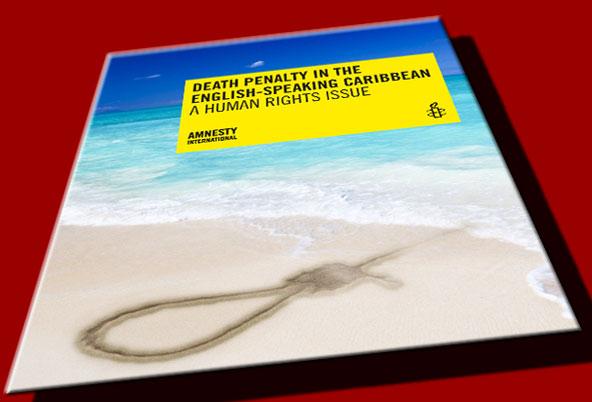
Article(s)
Call to end flawed Caribbean death penalty
By Thomas Hubert, on 10 December 2012
An appeal signed by local organizations and a new report by Amnesty International denounce multiple human rights violations in the use of capital punishment in the region and ask governments to “remove the death penalty once and for all from the law books”.
2012
Antigua and Barbuda
Bahamas
Barbados
Belize
Dominica
Fair Trial
Grenada
Guyana
Intellectual Disability
Jamaica
Mental Illness
Saint Kitts and Nevis
Saint Lucia
Saint Vincent and the Grenadines
Trinidad and Tobago

Article(s)
Justice ministers meet as Colosseum lights up to say yes to life
By Community of Sant'Egidio, on 10 December 2012
The Community of Sant’Egidio conducted a crucial political networking exercise in favour of abolition in Rome at the end of November before 1,600 cities lit up their monuments against the death penalty.
Benin
Burundi
Central African Republic
France
Gabon
Italy
Kazakhstan
Kyrgyzstan
Mongolia
Public Opinion
Switzerland
Togo
United States
Uzbekistan
Zimbabwe
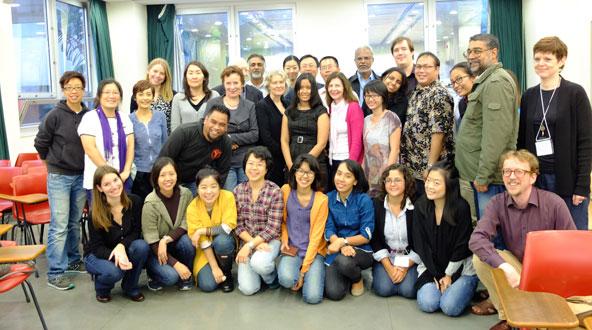
Article(s)
Building a death penalty-free future in Asia
By Aurélie Plaçais, on 6 December 2012
Ways to strengthen transregional action led by Asian activists and ideas to combat obstruction from national authorities were among the issues discussed at the third ADPAN consultative meeting.
2012
Australia
Bangladesh
China
India
Indonesia
Japan
Malaysia
Mongolia
Moratorium
Pakistan
Philippines
Republic of Korea
Singapore
Taiwan
Thailand
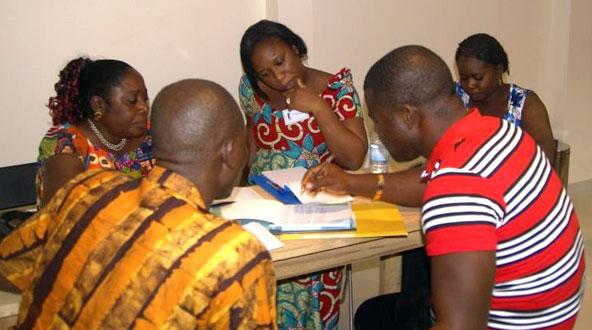
Article(s)
West African ACATs focus on public opinion and lobbying
By Guillaume Colin (FIACAT), on 28 November 2012
Participants to the meeting held by FIACAT in Senegal mid-November received training on regional abolitionist activism and set priorities for their actions.
2012
Benin
Burkina Faso
Côte d'Ivoire
Ghana
Liberia
Mali
Moratorium
Niger
Public Opinion
Senegal
Togo
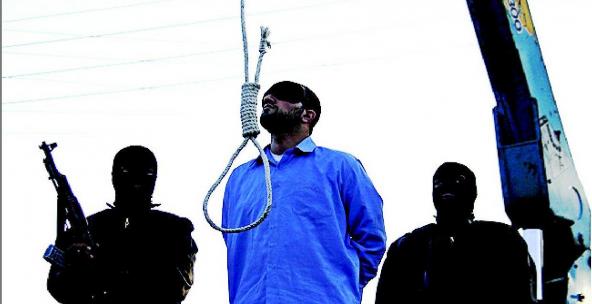
Article(s)
Drug-busting aid to Iran must be frozen
By Thomas Hubert, on 27 November 2012
The World Coalition is calling on international donors to stop helping Iran enforce abusive capital drug laws.
2012
Cruel, Inhuman and Degrading Treatment and Punishment
Drug Offenses
Iran (Islamic Republic of)
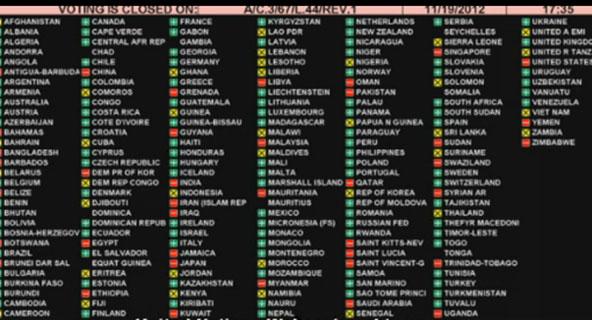
Article(s)
UN General Assembly Committee adopts draft moratorium resolution
By Maria Donatelli, on 20 November 2012
A majority of the world’s nations have approved a text calling for a global moratorium on executions, with stronger support than in a previous vote two years ago.
2012
Afghanistan
Bangladesh
Botswana
Central African Republic
Croatia
Cuba
Egypt
India
Indonesia
Japan
Malaysia
Maldives
Mauritania
Moratorium
Morocco
Niger
Oman
Singapore
South Sudan
Sri Lanka
Sudan
Suriname
Tunisia
Viet Nam

Article(s)
California narrowly rejects abolition
By Thomas Hubert, on 8 November 2012
Citizens of the largest US state have voted against an initiative to replace the death penalty with life sentences, but the results show abolitionist views have gained significant ground through the referendum campaign.
2012
Public Opinion
United States
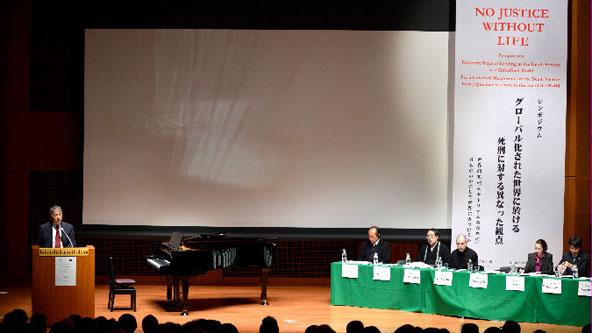
Article(s)
Japan’s death penalty under scrutiny
By The Advocates for Human Rights, on 5 November 2012
After a high-level conference on the abolition of the death penalty in Tokyo on October 29th, the United Nations’ Human Rights Council examined Japan’s record on October 31st as part of the Universal Periodic Review, a worldwide mechanism to monitor the enforcement of human rights. Major Japanese infringements concern the use of the death penalty.
2012
Clemency
Cruel, Inhuman and Degrading Treatment and Punishment
Death Row Conditions
Fair Trial
Intellectual Disability
Japan
Legal Representation
Mental Illness

Article(s)
Abolitionists from the whole Arab World hold their first congress
By Aurélie Plaçais, on 22 October 2012
The Regional Congress on the Death Penalty held in Rabat, Morocco between 18-20 October highlighted the key role of civil society in pushing the abolitionist agenda in a region affected by deep changes.
2012
Algeria
Egypt
Jordan
Mauritania
Moratorium
Morocco
Public Opinion
Tunisia
Document(s)
Facts and Figures 2012
By World Coalition against the death penalty , on 10 October 2012
2012
Campaigning
Trend Towards Abolition
esfrMore details Download [ pdf - 251 Ko ]
On October 10, the World Coalition Against the Death Penalty and abolitionists worldwide will celebrate the 10th
anniversary of World Day against the Death Penalty. This year’s World Day focuses on the achievements and
progress made toward abolition. Around the world, countries have ended or restricted their use of the death
penalty. In addition, they have signified their support of ending this practice by ratifying the Second Optional
Protocol to the International Covenant on Civil and Political Rights, aiming at the abolition of the death penalty
and by voting in favour of United Nations (UN) resolutions for a moratorium on the death penalty. The World
Coalition welcomes these steps forward as it also remains vigilant for the challenges ahead.
- Document type Campaigning
- Themes list Trend Towards Abolition
- Available languages Hoja Informativa DetalladaFaits et figures 2012
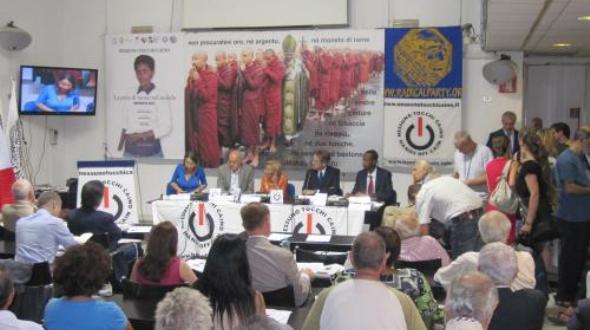
Article(s)
A Moratorium acts as a “truce” for the death penalty
on 23 August 2012
Hands Off Cain published its annual report in August. President of Sierra Leone Ernest Bai Koroma wrote the introduction and the book has been dedicated to Rwanda.
2012
Benin
Burundi
Ethiopia
Ghana
Guinea
Latvia
Maldives
Mauritania
Mongolia
Moratorium
Morocco
Myanmar
Nigeria
Rwanda
Sierra Leone
South Africa
Suriname
Uganda
United States
Zambia
Document(s)
2012 Report – Moratorium on the use of the death penalty
By United Nations, on 3 August 2012
2012
United Nations report
Moratorium
aresfrruzh-hantMore details See the document
The present report is submitted to the General Assembly pursuant to its resolution 65/206. It discusses the trend towards abolition of the death penalty and the establishment of a moratorium on execution. The report also reflects on the application of international standards relating to the protection of the rights of those facing the death penalty. It further discusses the importance of making available relevant information with regard to the use of the death penalty, which can contribute to transparent national debates and international and regional initiatives for the promotion of the universal abolition of the death penalty.
- Document type United Nations report
- Themes list Moratorium
- Available languages تقرير 2012 - وقف العمل بعقوبة الإعدامInforme 2012 - Moratoria del uso de la pena de muerteRapport 2012 - Moratoire sur l’application de la peine de mortДоклад 2012 - Мораторий на применение смертной казни2012报告 - 暂停使用死刑

Article(s)
Singaporean and Malaysian activists welcome changes in their country
By World Coalition Against the Death Penalty, on 16 July 2012
In Singapore and Malaysia, governments are considering removing mandatory death penalty in some drug and murder cases. A move welcomed by activists on the ground, though they consider it “only a small step in the right direction”.
2012
Drug Offenses
Malaysia
Singapore
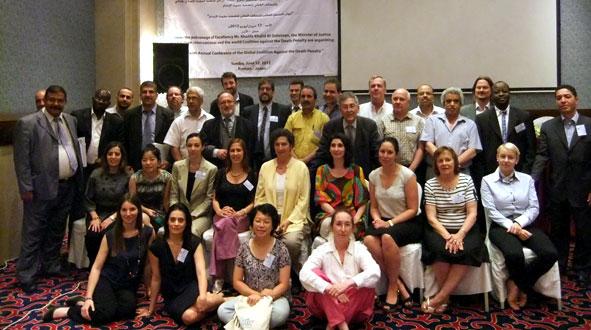
Article(s)
10 years, 132 members, 45 countries
By Florence Bellivier, on 30 June 2012
Penal Reform International welcomed the World Coalition Against the Death Penalty to celebrate its tenth anniversary in Jordan with support from Justice Minister Khalifa Al Sulaiman.
2012
Drug Offenses
Iran (Islamic Republic of)
Iraq
Jordan
Moratorium
Singapore
Taiwan

Article(s)
One in nine exonerations in new database is a capital case
By World Coalition, on 26 May 2012
A new online project listing 891 exonerated wrongful convictions in the US includes 101 death sentences.
2012
Innocence
United States
Article(s)
The death penalty at the heart of ACHPR debates
on 18 May 2012
The 51st Ordinary Session of the African Commission on Human and Peoples’ Rights (ACHPR) was held in Banjul from April 18 to May 2, 2012. During the session, the Commission presented its “Study on the question of the death penalty in Africa” prepared by the Working Group on the death penalty of the ACHPR.
2012
Angola
Burundi
Gabon
Moratorium
Rwanda
Somalia
South Sudan
Sudan
Togo
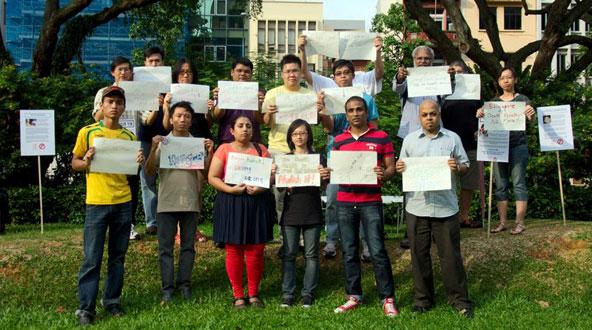
Article(s)
Migrant workers facing capital punishment show need for alternative sentences
By Think Centre, on 26 April 2012
Four Singapore-based organisations denounce the high risk of miscarriage of justice in recent death sentences handed down on poor immigrants and calls for the abolition of the death penalty in the city-state.
2012
Cruel, Inhuman and Degrading Treatment and Punishment
Moratorium
Singapore
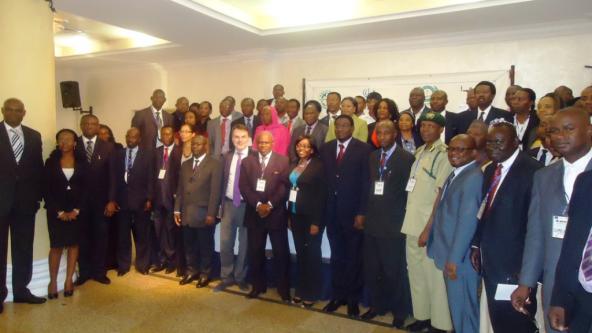
Article(s)
Three years to save lives in Nigeria
on 25 April 2012
A conference to launch the project SALI: Saving Lives, was held in Abuja, Nigeria, on 27 March. It marked the start of the project activities while encouraging discussions on the issue of the death penalty in Nigeria.
2012
Legal Representation
Nigeria

Article(s)
Connecticut increases momentum for abolition
By Elizabeth Zitrin, on 13 April 2012
Lawmakers in the US State of Connecticut have abolished capital punishment and the State’s governor has said that he would sign the bill into law. Elizabeth Zitrin of the US NGO Death Penalty Focus chairs the World Coalition’s working group on the United States. She writes on the significance of this news for the wider abolitionist movement.
2012
Murder Victims' Families
United States
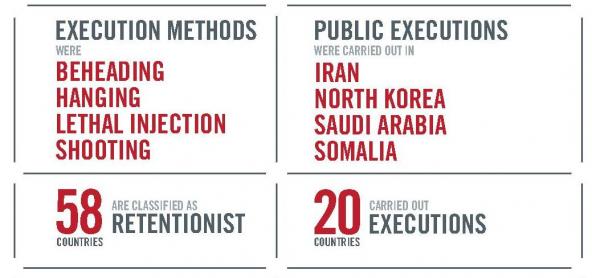
Article(s)
Alarming levels of executions in few countries – Amnesty
on 27 March 2012
In a new report, Amnesty International analyses some of the key developments in the worldwide application of the death penalty, citing figures it has gathered on the number of death sentences handed down and executions carried out in 2011.
2012
Bahrain
Belarus
China
Iran (Islamic Republic of)
Iraq
Moratorium
Nigeria
Saudi Arabia
Sierra Leone
South Sudan
Tunisia

Article(s)
Highest execution numbers in Iran in 10 years
By Mahmood Amiry-Moghaddam, on 13 March 2012
Iran Human Rights has published its annual report on the death penalty in Iran in 2011. IHR’s international spokesperson Mahmood Amiry-Moghaddam says the Iranian authorities are keeping the number of executions high because they use the death penalty as a political tool.
2012
Drug Offenses
Iran (Islamic Republic of)
Juveniles
Women
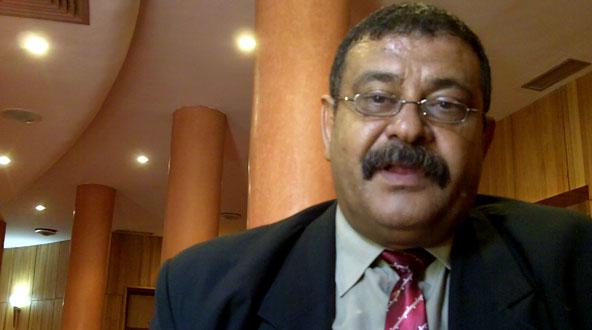
Article(s)
More than 1,000 sentenced to death in Iraq in 8 years
By Dr Nasr Abbood, on 1 March 2012
The Iraqi institutions established after the US-led invasion and the fall of Saddam Hussein have reinstated the death penalty and extended its scope since 2004. In this op-ed article, Iraqi Coalition Against the Death Penalty president Nassr Abood calls for alternative sentences and for a strong stance from the international community.
2012
Drug Offenses
Iraq
Iraq
Terrorism
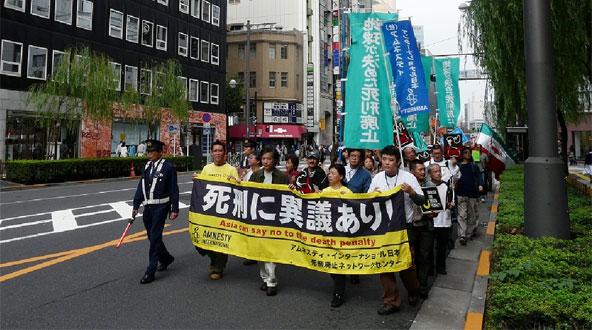
Article(s)
Japan death penalty at turning point
on 9 February 2012
After one year without executions, the Japanese government looks set to resume state killings. The Center for Prisoners’ Rights, a World Coalition member organisation, has launched an urgent petition to reverse the trend.
2012
Clemency
Japan

Article(s)
European Union tightens rules on export of death drug
By Emile Carreau, on 20 January 2012
On 20 December 2011 the European Commission added sodium thiopental to the list of goods that are subject to tight export controls to ensure they do not find their way into overseas death chambers.
2012
Cruel, Inhuman and Degrading Treatment and Punishment
Denmark
United States
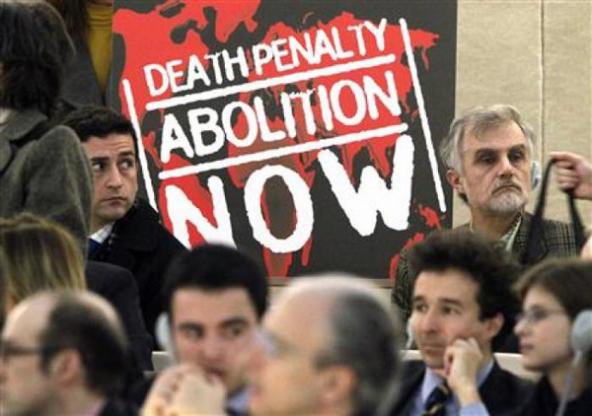
Article(s)
A challenge to the abolitionist movement
By Sandra Babcock, on 16 December 2011
Over the last few decades, we have made great strides toward the universal abolition of the death penalty. Nevertheless, despite the progress we have made, the death penalty remains entrenched in a significant number of states. And even in those nations that have refrained from carrying out executions in a sort of de facto moratorium, […]
2011
Intellectual Disability
Malawi
Mental Illness
Mexico
Moratorium
United States
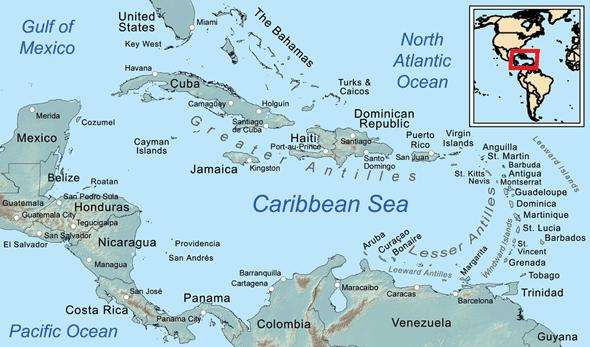
Article(s)
International conference addresses Caribbean outlook on capital punishment
By Emile Carreau, on 26 October 2011
A two-day conference organised by the Community of Sant’Egidio on the death penalty in the Greater Caribbean took place in Madrid between 17-19 October, highlighting issues of rising crime and international influence in the region.
2011
Murder Victims' Families
Public Opinion
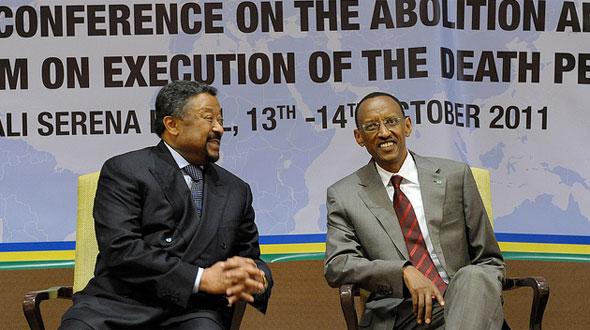
Article(s)
African countries discuss Rwandan example in abolition of the death penalty
on 22 October 2011
Kigali hosted the Inter-African conference against the death penalty on 13 and 14 October.
2011
Gabon
Public Opinion
Rwanda
Rwanda
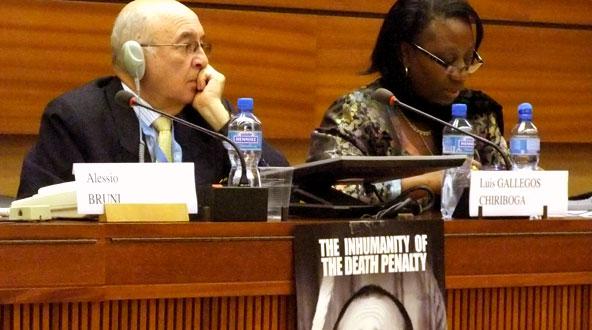
Article(s)
The great abolitionist event comes to the UN
By Aurélie Plaçais, on 17 October 2011
For the first time in nine years, the United Nations has participated in festivities marking the World Day Against the Death Penalty.
2011
Cruel, Inhuman and Degrading Treatment and Punishment
Death Row Conditions
Switzerland
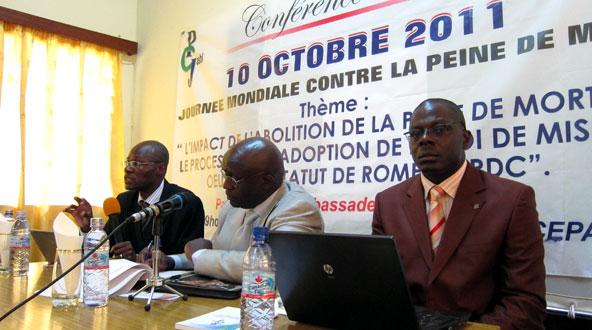
Article(s)
The death penalty and the situation in Africa debated in Kinshasa
on 17 October 2011
A debate led by members of the World Coalition in the Democratic Republic of Congo discussed international law, local sensitivities and abolition.
Democratic Republic of the Congo
Fair Trial
Document(s)
Detailed Factsheet
By World coalition against the death penalty , on 10 October 2011
2011
Campaigning
Trend Towards Abolition
frMore details Download [ pdf - 201 Ko ]
Detailed Factsheet 2019
- Document type Campaigning
- Themes list Trend Towards Abolition
- Available languages Fiche détaillée 2011
Document(s)
Educational guide: teaching abolition
By World Coalition against the death penalty , on 10 October 2011
Campaigning
Trend Towards Abolition
frMore details See the document
In 2009, the World Day Against the Death Penalty was
dedicated to the theme “Teaching Abolition”. The World
Coalition developed a teaching guide to be used in
schools throughout the world
- Document type Campaigning
- Themes list Trend Towards Abolition
- Available languages Guide pédagogique: éduquer à l'abolition
Document(s)
Poster 2011
on 10 October 2011
Campaigning
World Coalition
Trend Towards Abolition
arfrMore details Download [ pdf - 107 Ko ]
Poster 2011
- Document type Campaigning / World Coalition
- Themes list Trend Towards Abolition
- Available languages Poster Arabic 2011Affiche 2011
Document(s)
Facts and Figures 2011
By World Coalition against the death penalty , on 10 October 2011
Campaigning
Trend Towards Abolition
frMore details Download [ pdf - 100 Ko ]
Facts and Figures 2011
- Document type Campaigning
- Themes list Trend Towards Abolition
- Available languages Faits et chiffres 2011
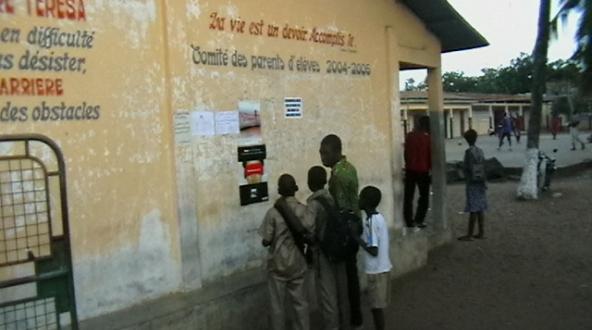
Article(s)
World Day Buzz In Africa
By Emile Carreau, on 6 October 2011
Conferences, round tables, talks, tours, meetings with politicians, debates, press conferences, sit-ins, cultural evenings, marches and speeches are among the many events that will take place in Africa for this 9th World Day Against the Death Penalty.
2011
Benin
Democratic Republic of the Congo
Moratorium
Murder Victims' Families
Public Opinion
Rwanda
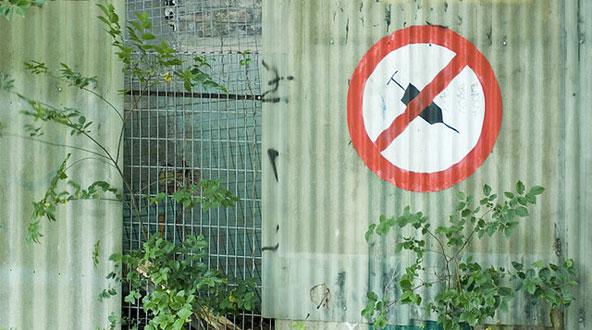
Article(s)
The shared responsibility of capital punishment
on 27 September 2011
Everyone agrees that the highest international standards should apply in the fight against drug. But what about the standards used in punishing traffickers- and the inappropriate use of the death penalty against such criminals?
2011
Australia
Bhutan
Colombia
Drug Offenses
Indonesia
Italy
Mozambique
Nepal
Niue
Pakistan
Philippines
South Africa
State of Palestine
Sweden
Taiwan
Terrorism
Thailand

Article(s)
Sharing best practices on ratifying the UN treaty to abolish the death penalty
By Aurélie Plaçais, on 25 September 2011
Belgium and the United Nations’ human rights office have held a panel discussion to promote efforts in favour of the strongest international instrument against capital punishment.
2011
Belgium
Mongolia
Moratorium
Russian Federation
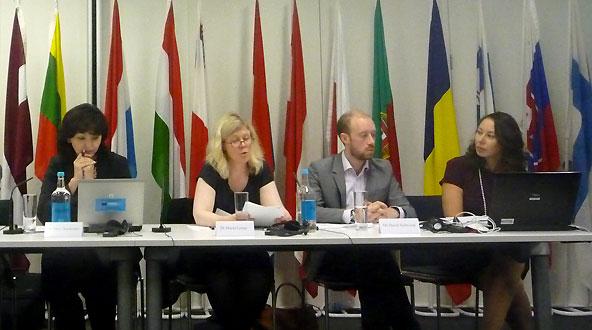
Article(s)
Opening up the debate in countries with the death penalty
By Penal Reform International, on 19 September 2011
On 19 and 20 September, World Coalition member organisation Penal Reform International (PRI) is bringing 120 people from retentionist countries to London to discuss global trends towards abolition of the death penalty.
2011
Cruel, Inhuman and Degrading Treatment and Punishment
Public Opinion
Syrian Arab Republic
United Kingdom
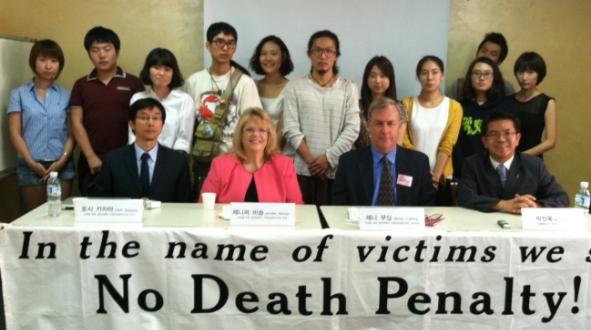
Article(s)
South Korea’s 5,000th day without an execution an opportunity for abolition
By Martin Carbonell with ADPAN and MVFHR, on 8 September 2011
8th September 2011 marks the 5,000th day without executions in South Korea. Houng-oh Kim, a member of the National Assembly and former Speaker, is aiming to introduce a new bill abolishing the death penalty to mark this occasion.
2011
Cruel, Inhuman and Degrading Treatment and Punishment
Moratorium
Republic of Korea
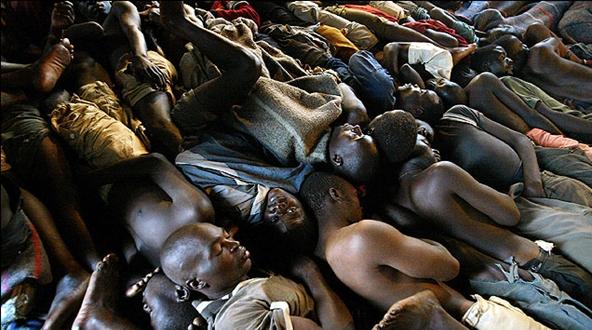
Article(s)
Asia still top executioner but more divided than ever: Hands Off Cain Report
By Aurélie Plaçais, on 11 August 2011
Hands Off Cain’s 2011 Report contains the most important facts regarding the practice of the death penalty in 2010 and the first six months of 2011.
2011
China
Democratic People's Republic of Korea
Drug Offenses
India
Iran (Islamic Republic of)
Mongolia
Moratorium
Myanmar
Viet Nam

Article(s)
Progressing towards abolition in East Africa
on 7 August 2011
On 24-27 July, 2011, World Coalition members Penal Reform International (PRI), Foundation for Human Rights Initiative (FHRI) and the International Commission of Jurists-Kenya section (ICJ), jointly hosted a regional roundtable on “Death Penalty in East Africa: Challenges, Strategies and Comparative Jurisprudence”, with the Judicial Studies Institute (JSI) in Nairobi, Kenya.
2011
Death Row Conditions
Fair Trial
Kenya

Article(s)
India asked to maintain the moratorium on executions
By Emile Carreau, on 28 July 2011
After a six year moratorium on executions, India’s President Patil has rejected the mercy petition of two Indian nationals despite international outcry to maintain the moratorium.
2011
Cruel, Inhuman and Degrading Treatment and Punishment
Drug Offenses
India
Moratorium
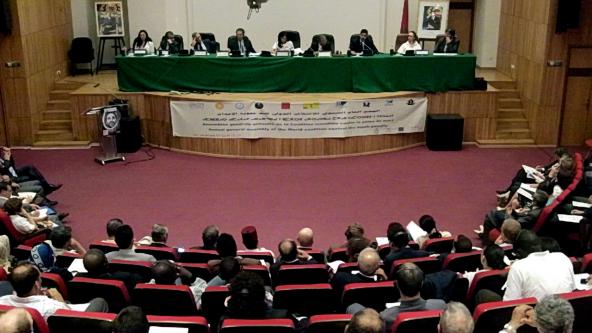
Article(s)
Arab spring at the heart of World Coalition debates
on 26 June 2011
International abolitionists gathered in Morocco have discussed the recent wind of change in the region and the resulting hope for the abolition of the death penalty.
2011
Cruel, Inhuman and Degrading Treatment and Punishment
Iraq
Morocco
Terrorism
Tunisia

Article(s)
Puerto Rico pressures Obama to abolish unwanted federal death penalty
on 25 June 2011
In a letter addressed to President Obama, World Coalition member, the Puerto Rican Coalition Against the Death Penalty (PRCADP), has requested that the President abolish the application of the federal death penalty in Puerto Rico. The letter , signed by PRCADP’s General Coordinator Edgardo Roman-Espada, was sent to the White House before the President’s visit to the island on 14 June 2011.
2011
Fair Trial
Puerto Rico
United States
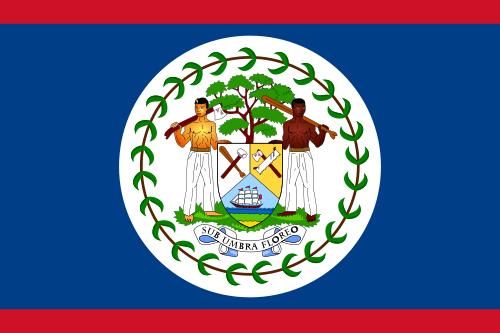
Article(s)
Belize PM aims to amend constitution to resume executions
on 9 June 2011
The Government of the small Caribbean nation has recently introduced a Constitution Amendment Bill, which seeks to make it clear that the death penalty is not unconstitutional.
2011
Belize
Belize
Legal Representation
Trinidad and Tobago
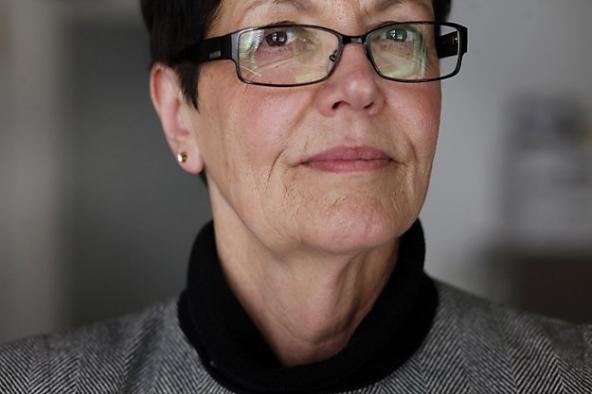
Article(s)
Former death row warden turns frontline abolitionist
on 6 June 2011
Jeanne Woodford, who used to oversee excutions in California, has become the executive director of the prominent anti-capital punishment organisation Death Penalty Focus.
2011
Death Row Conditions
Public Opinion
United States

Article(s)
Pressure mounts on Lundbeck to halt supply of execution drugs
on 27 May 2011
Thanks to a campaign by Coalition Member Reprieve and others, Danish chemicals company Lundbeck is feeling the heat from all sides for selling execution drugs to US prisons.
2011
Cruel, Inhuman and Degrading Treatment and Punishment
Denmark
Article(s)
The new Tunisia and the death penalty
on 16 May 2011
The revolution in Tunisia and the resulting changes in the political landscape may offer unprecedented new opportunities for abolitionist organizations
2011
Public Opinion
Tunisia
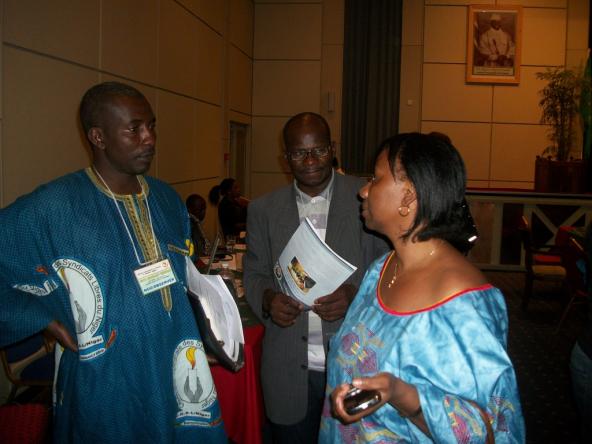
Article(s)
African human rights body targets death penalty
on 16 May 2011
The abolition of the capital punishment figured prominently at the 49th session of the African Commission of Human and People’s Rights.
Algeria
Botswana
Democratic Republic of the Congo
Equatorial Guinea
Mauritania
Public Opinion
Somalia
Sudan
Document(s)
Prison Conditions in Jamaica
on 19 April 2011
2011
NGO report
Death Row Conditions
Jamaica
More details Download [ pdf - 396 Ko ]
In criminal justice matters, Jamaica has been rightly praised for its de-facto abolitionist
stance on the death penalty: nobody has been executed on the island since 1988.
However, the alternative to death is imprisonment. For many years, NGOs, the UN
Human Rights Committee, the Inter-American Commission on Human Rights, and
various independent and internal reports have expressed serious concern about the
conditions in which Jamaica detains its prisoners.
- Document type NGO report
- Countries list Jamaica
- Themes list Death Row Conditions
Article(s)
Pressured Indian firm stops exporting lethal drugs
on 8 April 2011
The decision of Kayem to stop supplying the US with execution drugs may well have been influenced by a campaign organized by World Coalition member Reprieve.
2011
Cruel, Inhuman and Degrading Treatment and Punishment
India
United States
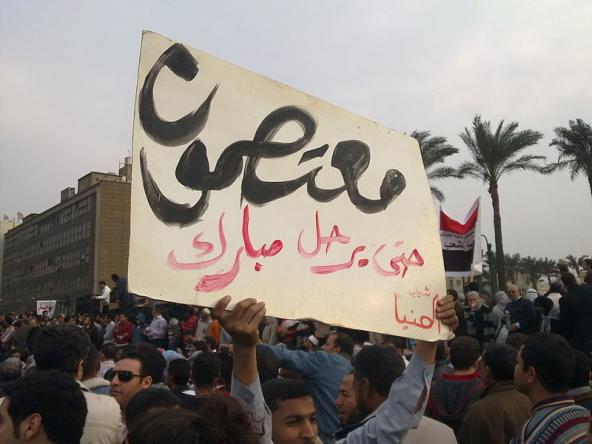
Article(s)
Will Arab revolutions bring new hope for abolition?
on 4 April 2011
The winds of change have brought fresh air to the abolitionist cause in countries throughout the Middle East and North Africa, with new faces in power reigniting a stalled debate.
2011
Algeria
Egypt
Lebanon
Mauritania
Moratorium
Morocco
Public Opinion
Syrian Arab Republic
Terrorism
Tunisia
Yemen

Article(s)
Amnesty 2010 stats: retentionist countries increasingly isolated
on 28 March 2011
Countries which continue to use the death penalty are being left increasingly isolated following a decade of progress towards abolition, Amnesty International has said in its new report Death Sentences and Executions in 2010.
2011
China
Drug Offenses
Egypt
Fair Trial
Indonesia
Iran (Islamic Republic of)
Juveniles
Lao People's Democratic Republic
Libya
Malaysia
Moratorium
Pakistan
Sudan
Thailand
United Arab Emirates
United States
Yemen
Article(s)
The future of the death penalty in the United States
on 27 March 2011
Governor Pat Quinn’s signing abolition into law last week in Illinois has reopened the debate on the death penalty throughout the country. Several states are currently considering abolition.
2011
Public Opinion
United States

Article(s)
An uncertain future for the infamous San Quentin prison
on 26 March 2011
The death row facility of California at San Quentin finds itself at the center of a fierce debate over the future of a hugely expensive and increasingly unpopular death penalty system.
2011
Death Row Conditions
Public Opinion
United States
Article(s)
Taiwan abolitionists remind their government of its promise
on 13 March 2011
After fresh executions, the Taiwan Alliance to End the Death Penalty has been campaigning to save the lives of five condemned prisoners, recalling the government to its commitments to human rights.
2011
Clemency
Death Row Conditions
Taiwan
Taiwan
Article(s)
Trinidad and Tobago narrowly avoids resumption of executions
on 8 March 2011
A bill which aimed to facilitate executions in the Caribbean nation was defeated in Parliament on February 28.
2011
Public Opinion
Trinidad and Tobago
Article(s)
CURE Conference weighs in on Nigeria death penalty debate
on 8 March 2011
World Coalition member International Citizens United for the Rehabilitation of Errants (CURE) held its 5th International Conference from 21-24 February, 2011, in Abuja, Nigeria.
Death Row Conditions
Juveniles
Legal Representation
Nigeria
Nigeria
Article(s)
Gabon quietly joins the abolitionist camp
on 4 March 2011
The West African nation outlawed the death penalty in February 2010 and then kept the secret for over a year.
2011
Gabon
Gabon
Moratorium
Article(s)
Puerto Rico hosts a week of World Coalition events
on 16 February 2011
International abolitionists gathered on the Caribbean territory to promote their message and to show solidarity with the local authorities against capital punishment.
2011
Murder Victims' Families
Public Opinion
Puerto Rico
United States
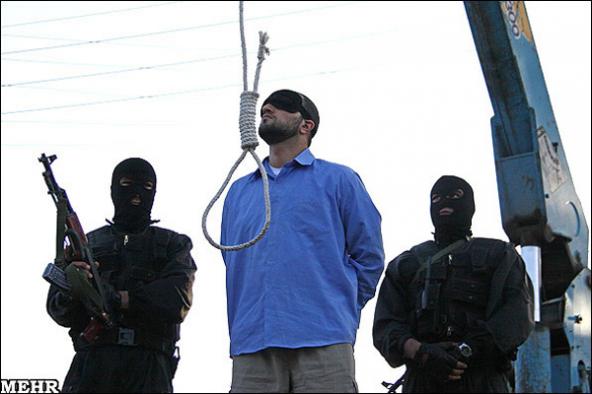
Article(s)
Outrage as Iran’s execution figures explode
on 12 February 2011
Iran hanged 121 people in six weeks between 20 December 2010 and 31 January 2011, many of them after unfair trails and for crimes that did not result in a person’s death.
2011
Drug Offenses
Fair Trial
Iran (Islamic Republic of)
Juveniles
Moratorium
Article(s)
UN resolution: the abolitionist front grows stronger again
on 22 December 2010
The World Coalition Against the Death Penalty welcomes the adoption by the United Nations General Assembly of a third resolution calling for a universal moratorium on the use of the death penalty.
2010
Moratorium
Article(s)
Kyrgyzstan becomes 73rd country to pass irreversible abolition
on 17 December 2010
Following one year of lobbying led by the World Coalition, the Central Asian country has become a party to the UN protocol on the abolition of the death penalty.
2010
Kyrgyzstan
Moratorium
Article(s)
Global mobilisation against Iraq’s high-profile death sentences
on 4 December 2010
Several former associates of Saddam Hussein have been sentenced to death. The Iraqi President, NGOs and international diplomats are now fighting to save their lives.
2010
Clemency
Iraq
Iraq

Article(s)
10.10.10 Looking back on the World Day in Asia
on 3 December 2010
The Anti-Death Penalty Asia Network rounds up reports from the main events organised across the Asia-Pacific region for World Day Against the Death Penalty on October 10.
2010
Australia
Bangladesh
India
Indonesia
Iran (Islamic Republic of)
Italy
Japan
Pakistan
Singapore
Terrorism
United States
Article(s)
NGOs seek abolition before African human rights body, The Gambia bucks the trend
on 26 November 2010
The African Commission on Human and Peoples’ Rights met in Banjul between November 10-24. A group of abolitionist organisations took part in the conference.
2010
Drug Offenses
Gambia
Moratorium
Article(s)
United Nations headed for new moratorium resolution
on 15 November 2010
A proposed United Nations General Assembly resolution calling for a global suspension of executions has gained the support of two more countries pending a plenary vote next month.
2010
Bhutan
Kiribati
Maldives
Mongolia
Moratorium
Togo
Article(s)
British sodium thiopental finds its way into Arizonian death chamber
on 2 November 2010
A shortage in one of the component of lethal injections has led to the drug being imported from Britain in violation of European law to carry out an execution in Arizona.
2010
Cruel, Inhuman and Degrading Treatment and Punishment
United Kingdom
Article(s)
From death row to elusive freedom
By Ron Keine, on 26 October 2010
Ron Keine, an exonerated former prisoner turned activist, shares his story so that the United States may one day join the rest of the civilized world in abolishing the death penalty.
2010
Death Row Conditions
Innocence
United States
Article(s)
Strong support for US abolitionists on World Day
on 11 October 2010
On 10.10.10, the 8th World Day against the Death Penalty focused on ending the use of the death penalty in the United States of America. Since 2003, abolitionists have taken actions all over the world every 10 October to raise awareness and opposition to the death penalty.
2010
Juveniles
Mental Illness
Public Opinion
United States
Article(s)
California’s moratorium holds
on 11 October 2010
A few days out from the World Day Against the Death Penalty, California has decided not to resume executions. A shortage of one of the drugs used for lethal injections gives death row inmates and abolitionists more time to continue the legal battle.
Clemency
Mental Illness
Moratorium
United States
Document(s)
Detailed Factsheet 2010
By World Coalition against the death penalty , on 10 October 2010
2010
Campaigning
Trend Towards Abolition
frMore details Download [ pdf - 479 Ko ]
Detailed Factsheet 2010
- Document type Campaigning
- Themes list Trend Towards Abolition
- Available languages Fiche détaillée 2010
Document(s)
Poster World Day 2010
By World Coalition against the death penalty , on 10 October 2010
Campaigning
Trend Towards Abolition
esfrMore details Download [ pdf - 82 Ko ]
Poster World Day against the death penalty 2010
- Document type Campaigning
- Themes list Trend Towards Abolition
- Available languages Poster Spanish 2010Affiche journée mondiale 2010
Document(s)
Facts and Figures 2010
By World Day against the death penalty , on 10 October 2010
Campaigning
Trend Towards Abolition
frMore details Download [ pdf - 81 Ko ]
Facts and Figures 2010
- Document type Campaigning
- Themes list Trend Towards Abolition
- Available languages Faits et chiffres 2010
Document(s)
Mobilization Kit 2010
By World Coalition against the death penalty , on 10 October 2010
Campaigning
Trend Towards Abolition
More details Download [ pdf - 138 Ko ]
Every year, the World Coalition Against the Death
Penalty (WCADP) calls for local initiatives worldwide.
The events involve citizens and organisations
supporting the abolition of capital punishment and
comprise debates, concerts, press releases or any
other action which would give the global abolition claim
an international boost.
This Day is aimed at both political leaders and public
opinion in countries where the death penalty has or
has not yet been abolished: people have to remember
the meaning of abolition and pass it down through the
generations.
They must be aware that justice without the death
penalty is possible
- Document type Campaigning
- Themes list Trend Towards Abolition
Article(s)
Moving towards abolition in the Arab World
on 8 October 2010
NGOs and international organisations opposing the death penalty in Arab countries have met in Egypt for the second time. The World Coalition presented them with a new version of its study on abolition in the region.
2010
Djibouti
Egypt
Public Opinion
Turkey
Yemen
Article(s)
167 Ugandan death row inmates saved from gallows
on 19 September 2010
Recent figures show that a January ruling by the Ugandan supreme court making it illegal to keep people on death row for more than three years has saved 167 lives.
2010
Cruel, Inhuman and Degrading Treatment and Punishment
Uganda
Article(s)
FIDH report on Vietnam: an update on death penalty statistics
on 19 September 2010
The FIDH and the Vietnam Committee on Human Rights released a new report, From Visions to Facts: Human Rights in Vietnam under its Chairmanship of ASEAN, on 16 August 2010.
Drug Offenses
Moratorium
Viet Nam
Viet Nam

Article(s)
‘Sakineh’ campaign to culminate in worldwide protests
on 25 August 2010
What started as an effort to save an Iranian woman sentenced to death by stoning is turning into a global movement for human rights and against capital punishment.
2010
Cruel, Inhuman and Degrading Treatment and Punishment
Iran (Islamic Republic of)
Public Opinion
Article(s)
EU-NGO forum: death penalty is a priority
on 6 August 2010
At a meeting in Brussels in July, European institutions and NGOs restated their commitment to a long-term partnership to oppose the death penalty worldwide.
2010
Innocence
Japan
Murder Victims' Families
Article(s)
Kenya’s mandatory death penalty ruled unconstitutional
on 6 August 2010
A joint effort by Kenyan and British lawyers and NGOs resulted in a court decision overturning all death sentences for murder. Legislation making capital punishment the only possible penalty for certain crimes is invalid.
Cruel, Inhuman and Degrading Treatment and Punishment
Kenya
Kenya
Article(s)
10.10.10 World Day Against the Death Penalty – USA special
on 6 August 2010
On 10 October 2010, the World Day Against the Death Penalty will focus on the USA. There are two months left to prepare and promote the events planned around the world on the big day.
Cruel, Inhuman and Degrading Treatment and Punishment
United States
Article(s)
Japan executions “a step backward for Asia”
on 30 July 2010
Activists in Japan and elsewhere have criticised Justice Minister Keiko Chiba for ordering two men to be hanged in Tokyo on July 28 despite her earlier abolitionist statements.
2010
Japan
Moratorium
Public Opinion
Taiwan

Article(s)
Singapore arrests writer over death penalty book
on 20 July 2010
The British author of a book on Singapore’s death penalty is facing prosecution for criticizing the massive use of capital punishment in the Asian city-state.
2010
Drug Offenses
Singapore
Article(s)
US murder victims’ families advocate abolition in Asia
on 14 July 2010
World Coalition member organisation Murder Victims’ Families for Human Rights held public events and meetings with victims and leaders during a recent tour of South Korea, Japan and Taiwan.
2010
Murder Victims' Families
Republic of Korea
Article(s)
Abolitionists block Nigerian executions
on 9 July 2010
Legal action by local activists and pressure from international organizations have succeeded in stopping plans by Nigeria’s authorities to execute hundreds of death row inmates.
2010
Fair Trial
Innocence
Legal Representation
Moratorium
Nigeria
Nigeria
Terrorism
Article(s)
Taiwan’s top court rejects appeal to suspend executions
on 7 June 2010
As the legal action taken by local activists to block the use of the death penalty failed, abolitionists across Asia have been calling for an end to the death penalty in their region.
2010
Fair Trial
Taiwan
Taiwan
Article(s)
World Coalition takes part in UN death penalty report launch
on 30 May 2010
The World Coalition held a side event to accompany the presentation of the 8th Quinquennial Report of the UN Secretary General on capital punishment in Vienna on May 19.
2010
Death Row Conditions
Innocence
Juveniles
Legal Representation
Article(s)
California Democratic Party endorses abolition of the death penalty
on 12 May 2010
One of the two main political parties in the largest US State has taken a formal stance against capital punishment – with help from local abolitionist organisations.
2010
Public Opinion
United States
Article(s)
UAE use of death penalty raises “grave concerns”
on 7 May 2010
In a letter to the United Arab Emirates’ justice minister, the World Coalition denounced the growing number of death sentences handed down in the country, especially after unfair trials or against juvenile offenders.
2010
Fair Trial
Juveniles
United Arab Emirates
Article(s)
Taiwan breaks five-year moratorium on executions
on 6 May 2010
Abolitionists have lashed out at Taiwan’s government for the surprise execution of four death row inmates in contradiction to its public commitment to work towards the abolition of capital punishment.
2010
Moratorium
Taiwan
Taiwan
Article(s)
Soon-to-be abolitionist Benin hosts forum on death penalty in Africa
on 24 April 2010
The African Commission on Human and Peoples’ Rights held a regional conference on the death penalty in North and West Africa in Benin mid-April.
2010
Benin
Benin
Public Opinion
Article(s)
Four Japanese executed in China
on 9 April 2010
A Japanese abolitionist organisation has criticised both the Chinese and the Japanese authorities after the series of executions.
2010
China
Drug Offenses

Article(s)
Belarusian setback on the way to abolition
on 2 April 2010
After one year of encouraging signals from Belarus, the last European country with the death penalty has brutally resumed secretive executions and the harassment of abolitionist activists.
2010
Belarus
Belarus
Cruel, Inhuman and Degrading Treatment and Punishment
Moratorium
Article(s)
2009 Amnesty statistics: at least 714 executions… excluding China
on 30 March 2010
Amnesty International has released its report on the death penalty in the world in 2009. The organisation has decided to exclude China from its calculation due to the lack of transparency on capital punishment in that country.
2010
Belarus
Burundi
China
Cruel, Inhuman and Degrading Treatment and Punishment
Fair Trial
Iran (Islamic Republic of)
Iraq
Saudi Arabia
Togo
United States
Article(s)
Hank Skinner’s execution stayed amid international action
on 25 March 2010
The American death row inmate heard the news less than one hour before he was scheduled to die. From Huntsville to Paris, activists demand that new evidence be examined.
2010
Innocence
United States
Article(s)
Taiwan activists battle in death penalty-triggered political crisis
on 19 March 2010
After Taiwan’s justice minister was forced to step down for not signing execution warrants, local and international abolitionists rushed in to restore a balanced debate and protect the country’s 44 death row inmates.
2010
Moratorium
Public Opinion
Taiwan
Taiwan
Article(s)
Universal abolition will happen when four key countries change sides
on 28 February 2010
The US, Iran, China and Japan hold a strategic cultural or geographic position, but the road to abolition remains blocked in those countries.
2010
China
Death Row Conditions
Iran (Islamic Republic of)
Japan
Juveniles
Switzerland
United States
Article(s)
“We go to the prisoner’s village to question the witnesses”
on 28 February 2010
Caroline Muchuma, contributor to the round table on the vital role played by lawyers in defending those sentenced to death, describing her role as a lawyer and campaigner in Uganda.
Legal Representation
Uganda
Article(s)
“We are the future” – Kids Against the Death Penalty
on 28 February 2010
The teenage nephews of an American death row inmate started an anti-death penalty organization that has grown into a pillar of the Texas abolitionist community.
Innocence
Switzerland
United States
Article(s)
“Academics can enable activists with technology”
on 28 February 2010
Luis Arroyo Zapatero is the head of the Institute for European and International law at the University of Castilla-La-Mancha. In 2009, he kick-started the foundation of the International Academic Network for the Abolition of Capital Punishment.
Moratorium
Women
Article(s)
Pushing for abolition in the Middle East and in North Africa
on 28 February 2010
According to Amnesty International (2009), 21% of world executions take place in the Middle-East and North Africa. Only one of the 22 Arab League countries is abolitionist: Djibouti.
Algeria
Fair Trial
Jordan
Moratorium
Poland
Turkey
Article(s)
Detailing EU support for NGOs
on 28 February 2010
European Union support to human rights projects is a well-known fact. Abolitionist organizations are among its beneficiaries.
Mental Illness
Article(s)
Abolition as seen by police and justice practicioners
on 28 February 2010
You can devote your life to crime reduction in retentionist countries and affirm your opposition to the death penalty. James Abbott is a member of this growing category.
Democratic Republic of the Congo
Public Opinion
United States
Article(s)
Asia between an abolitionist trend and populist politics
on 28 February 2010
At least 76% of executions worldwide take place in Asia. Despite these impressive figures, Bikramjeet Batra, and indian lawyer with Amnesty International, is optimistic and explains that “the asian trend is toward abolition”.
Public Opinion
Taiwan
Article(s)
Crime and populism prevent abolition in the Caribbean
on 28 February 2010
The region has the highest crime rate in the world. Whether it is gratuitous violence, domestic violence, ethnic tensions or drug-related violence, people want solutions faced to the accumulation of crime.
Colombia
Drug Offenses
Jamaica
South Africa
Article(s)
Clever use of online tools could boost activism
on 28 February 2010
Kathy Brown, an English IT specialist, is not the typical anti-death penalty campaigner. She is not an NGO-registered lawyer nor a political science student. But through the internet, she has become active in the global abolitionist community.
China
Drug Offenses
Mental Illness
Article(s)
Final Declaration 4th World Congress Against the Death Penalty
on 26 February 2010
The participants to the World Congress Against the Death Penalty have handed over their final declaration to the UN’s High Commissioner for Human Rights, Navanethem Pillay.
2010
Moratorium
Article(s)
Victims of crime oppose the death penalty
on 26 February 2010
Parents and friends of those killed fill a growing space in the debate on the death penalty and, increasingly, this is to call for abolition rather than vengeance.
Murder Victims' Families
Article(s)
To escape the death penalty: be rich and kill a foreigner
on 24 February 2010
The racial origin of the victim and the social class of the criminal are key factors of discrimination.
2010
Bahrain
Fair Trial
Pakistan
Saudi Arabia
Article(s)
Protecting vulnerable groups from the death penalty
on 24 February 2010
Juveniles and the mentally ill face a higher risk of falling victims to the death penalty. Abolitionists and activists defending their rights have teamed up to highlight this situation.
Drug Offenses
Iran (Islamic Republic of)
Juveniles
Mental Illness
Switzerland
Women
Article(s)
Campaigning through forgiving
on 24 February 2010
A former death row inmate and the grandson of a murder victim explain why compassion – not the death penalty – is the way to heal wounds.
Murder Victims' Families
Public Opinion
Switzerland
United States
Article(s)
Abolitionist co-operation at all levels kick-started in Geneva
on 24 February 2010
The first plenary session of the World Congress Against the Death Penalty focused on “increasing cooperation between States, NGOs and international organizations and developing common strategies for a death penalty-free world”.
China
Iran (Islamic Republic of)
Moratorium
Switzerland
Article(s)
International pressure on Iraq to stop executions
on 18 February 2010
Several UN member states taking part in Iraq’s UN human rights review have asked Bagdad to restore a moratorium on the use of the death penalty and to move towards abolition.
2010
France
Iraq
Iraq
Italy
Terrorism
United Kingdom
Article(s)
Benin on track to achieve abolition
on 7 February 2010
Benin’s President Thomas Yayi Boni, one of the World Congress’s guests, has asked the parliament to enshrine the abolition of the death penalty in the constitution. Justice Minister Victor Tokpanou details Benin’s path to abolition.
2010
Benin
Benin
Public Opinion
Article(s)
Activists and diplomats slam political executions in Iran
on 1 February 2010
The Islamic Republic finds itself more isolated than ever after it hanged to dissidents and threatened many more with execution.
2010
Cruel, Inhuman and Degrading Treatment and Punishment
Fair Trial
Iran (Islamic Republic of)
Article(s)
Mumia’s supporters fight back after legal setback and turn to Obama
on 29 January 2010
After the US Supreme Court restored Mumia Abu Jamal’s death sentence, the campaigners working to save his life have started an international petition addressing the president of the United States.
2010
Innocence
United States
Article(s)
Book: a victory on the road to abolition
on 19 January 2010
The Taiwan Alliance to End the Death Penalty has just published Staving off the Executioner, a book describing the Taiwanese abolitionist movement’s strategies, challenges and successes.
2010
Fair Trial
Legal Representation
Taiwan
Taiwan
Article(s)
Mongolian president calls for abolition
on 18 January 2010
In a vibrant speech before the parliament on January 14, President Elbegdorj Tsakhia of Mongolia developed all the arguments put forward by the abolitionist community.
2010
Clemency
Mongolia
Moratorium
Article(s)
Bad press for China after Briton’s execution
on 10 January 2010
Bitter criticism has been targeting China since the execution of British national Akmal Shaikh in the Chinese province of Xinjiang on December 29 after he was found guilty of transporting drugs.
2010
China
Mental Illness
United Kingdom
Article(s)
US death sentences hit new low in 2009
By Death Penalty Information Center, on 7 January 2010
As legal efforts and economic woes weighed in against the death penalty, fewer Americans were sent to death row in 2009 than any other year since the restoration of capital punishment in the US in 1976.
2010
Mental Illness
United States
Article(s)
Fear of mass executions in Iraq
on 4 January 2010
Information obtained by the World Coalition suggests that the Iraqi authorities have been planning the mass execution of nearly 1,000 people. In a column offered to international newspapers, the World Coalition denounces that barbaric plan.
2010
Clemency
Iraq
Iraq
Women
Article(s)
Spain and world academics join forces against the death penalty
on 22 December 2009
Spanish President José Luis Zapatero attended the international abolitionist colloquium during which the Academic Network against the Death Penalty was launched.
2009
Benin
Chile
France
Mental Illness
Spain
Women
Article(s)
FIACAT: abolition “is part of the mission of the Churches”
on 16 December 2009
Days before the major Christian festival of Christmas, the International Federation of Action by Christians for the Abolition of Torture reaffirmed its Gospel-inspired opposition to the death penalty.
2009
Cruel, Inhuman and Degrading Treatment and Punishment
Iran (Islamic Republic of)
Juveniles
Saudi Arabia
Sudan
Yemen
Article(s)
Teaching abolition in Taiwan
on 9 December 2009
Tsou Tzung Han is a Taiwanese teacher who actively took part in educational activities organised around World Day Against the Death Penalty. He writes about his experience with his students.
2009
Public Opinion
Taiwan
Taiwan
Article(s)
Europe and Japan share “Reflections on life”
on 8 December 2009
Speaking at a symposium on the death penalty organised in Tokyo by the Swedish presidency of the European Union, a Japanese minister expressed his commitment for abolition.
2009
Innocence
Japan
Moratorium
Public Opinion
Article(s)
Iran ignores nearly 100,000 signatures against child executions
on 23 November 2009
The World Coalition delegation carrying 90,708 signatures against juvenile executions in the world was not admitted to the embassies of Iran and Saudi Arabia, in contrast to those of Sudan and Yemen.
2009
Iran (Islamic Republic of)
Juveniles
Sudan
Article(s)
Chinese death penalty targets minorities
on 19 November 2009
The recent execution of several Uyghurs and Tibetans after ethnic clashes in China was met with severe international criticism.
2009
China
Fair Trial
Legal Representation
Article(s)
Flurry of educational events on World Day Against the Death Penalty
on 6 November 2009
An abolitionist wave of marches, cultural happenings, petition signings and educational events swept across the world for the 7th World Day on October 10.
2009
Australia
Clemency
Democratic Republic of the Congo
India
Indonesia
Innocence
Public Opinion
Taiwan
United States
Article(s)
African Great Lakes Coalition gets stronger
on 6 November 2009
The group, which brings together more than 30 member organisations from four countries, established itself as a formal body and launched its website on World Day Against the Death Penalty.
Burundi
Democratic Republic of the Congo
Juveniles
Rwanda
Uganda
Document(s)
Educational guide 2009
By World Coalition against the death penalty , on 10 October 2009
2009
Campaigning
Trend Towards Abolition
esfrruzh-hantMore details Download [ pdf - 536 Ko ]
With this Educational Guide, the World Coalition
Against the Death Penalty is launching a collaborative
initiative which aims to improve the contributions of all.
This guide will be regularly supplemented by new infor-
mation and themes. It will also be frequently updated
on the Coalition’s website (www.worldcoalition.org).
On behalf of the members of the World Coalition in
more than thirty countries across the world, we thank
you for your support.
- Document type Campaigning
- Themes list Trend Towards Abolition
- Available languages Guía pedagógica Jornada mundial 2009Guide pédagogique 2009Руководство по обучению организации мероприятий по случаю Всемирного дня борьбы против смертной казни2009 年世界反死刑日
Document(s)
Poster World Day 2009
By World Coalition against the death penalty , on 10 October 2009
Campaigning
Trend Towards Abolition
frMore details Download [ pdf - 11475 Ko ]
Poster world day against the death penalty 2009
- Document type Campaigning
- Themes list Trend Towards Abolition
- Available languages Affiche journée mondiale 2009
Document(s)
Facts and Figures 2007
By World Coaliton against the death penalty , on 10 October 2009
Campaigning
Trend Towards Abolition
frMore details Download [ pdf - 24 Ko ]
Facts and Figures 2007
- Document type Campaigning
- Themes list Trend Towards Abolition
- Available languages Faits et chiffres 2007
Document(s)
Facts and Figures 2009
By World Coalition against the death penalty , on 10 October 2009
Campaigning
Trend Towards Abolition
frMore details Download [ pdf - 95 Ko ]
Facts and Figures 2009
- Document type Campaigning
- Themes list Trend Towards Abolition
- Available languages Faits et chiffres 2009
Article(s)
Sweden and Amnesty International raise death penalty issue in New York
on 7 October 2009
Upcoming United Nations resolutions for a moratorium on executions and progress towards abolition across Africa were among the subjects discussed on the fringe of the UN General Assembly in New York.
2009
Moratorium
Sweden
United States
Article(s)
Africa moving towards regional abolition treaty
on 5 October 2009
The African Commission on Human and People’s Rights organised its first regional conference on the death penalty in Africa in late September.
2009
Moratorium
Rwanda
Article(s)
US activists turn spotlight on executed innocent man
on 28 September 2009
An official report and a feature in the New Yorker have confirmed that Todd Willingham was not guilty of the arson for which he was executed. Abolitionist campaigners are now targeting his case.
2009
Innocence
United States
Article(s)
African Commission urges Gaddafi not to kill Nigerian convicts
on 20 September 2009
The African human rights watchdog has asked Libya not to execute 20 Nigerians on death row in the North African country after a Nigerian NGO highlighted their plight.
2009
Libya
Moratorium
Nigeria
Article(s)
Japan executes mentally ill people and pushes prisoners over the edge
on 11 September 2009
The Japanese government continues to execute prisoners with psychiatric illnesses and the conditions on death row provoke mental disorders among inmates, according to a new Amnesty International report.
2009
Death Row Conditions
Japan
Mental Illness
Article(s)
Resumption of executions in Thailand criticised
on 3 September 2009
The Thai government has attracted widespread condemnation from the global abolitionist movement after it had two drug traffickers executed.
2009
Drug Offenses
Thailand
Article(s)
Pardons and commutations in Nigeria
on 29 August 2009
Shortly after Kenya commuted thousands of death sentences, the Nigerian state of Lagos took similar steps and moved closer to abolition.
2009
Clemency
Nigeria
Nigeria
Article(s)
China acknowledges death row organ trafficking
on 29 August 2009
The World Coalition and its members have been criticizing illegal organ transplants after executions. Beijing promises to tackle the problem.
China
Cruel, Inhuman and Degrading Treatment and Punishment
Article(s)
4,000 death sentences commuted in Kenya
on 6 August 2009
Kenya’s president has commuted all death sentences in the country in the wake of legal challenges brought by local and international activists.
2009
Clemency
Kenya
Kenya
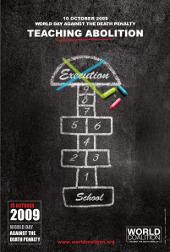
Article(s)
7th World Day Against the Death Penalty: teaching abolition
By Aurélie Plaçais, on 27 July 2009
On 10 October 2009, World Day Against the Death Penalty, the World Coalition Against the Death Penalty wishes to teach abolition to all citizens around the world, especially to teenagers aged 14 to 18.
2009
Public Opinion
Article(s)
Fair and open investigation in Uyghur region
on 21 July 2009
Following the death penalty threats issued against protestors in Xinjiang, the World Coalition calls on China to respect its international committments and to guarantee fair trials.
2009
China
Fair Trial
Article(s)
Madrid Declaration calls for immediate moratorium in Arab Countries
on 16 July 2009
National experts and civil society representatives from took part in a seminar in Madrid on 14 and 15 July 2009 at the invitation of Casa Arabe and the Spanish ministry for foreign affairs and cooperation.
2009
Moratorium
Spain
Article(s)
Devising a strategy to support ratifications of the UN protocol
on 10 July 2009
The World Coalition organised a round table on action to be taken to support the ratification of the UN’s protocol on the abolition of the death penalty, as part of International CURE’s conference in Geneva in June.
2009
Kazakhstan
Terrorism
Article(s)
Paris activists lie down against US federal executions
on 10 July 2009
ACAT-France and Amnesty International France staged their 9th “die-in” against the death penalty in the United States.
Death Row Conditions
France
France
Innocence
United States
Article(s)
Death penalty and mental illness: “Double Tragedies”
on 7 July 2009
Murder Victims’ Families for Human Rights and the National Alliance on Mental Illness slam the use of capital punishment against mentally ill people in the United States.
2009
Mental Illness
Murder Victims' Families
United States
Article(s)
Debate on California executions turned into abolitionist rally
on 4 July 2009
Hundreds of activists descended on Sacramento for a public review of the state’s lethal injection protocol, arguing that «the death penalty is killing California’s budget».
2009
Death Row Conditions
United States
Article(s)
End the death penalty for drug-related offences
on 26 June 2009
June 26 is a world day of action against drugs. Several international NGOs have joined their voices to condemn the use of capital punishment against drug users and traffickers.
2009
China
Drug Offenses
Indonesia
Viet Nam
Article(s)
Every voice counts to oppose the death penalty in California
on 24 June 2009
Abolitionists are given a unique opportunity to voice their position as Californian authorities seek comments from the public on the review of the lethal injection process.
2009
Cruel, Inhuman and Degrading Treatment and Punishment
United States
Article(s)
Belarus moratorium a condition for closer ties with Europe
on 23 June 2009
The Parliamentary Assembly of the Council of Europe has decided not to restore Belarus’s special guest status until the country establishes a moratorium on the death penalty.
2009
Belarus
Belarus
Moratorium
Article(s)
Joint Italian-Congolese effort against capital punishment
on 16 June 2009
World Coalition member organisation Hands Off Cain has launched a campaign targeting DRC’s opinion leaders. The government regards the renovation of the prison system as a prerequisite for abolition.
2009
Democratic Republic of the Congo
Italy
Moratorium
Article(s)
200 executions in Texas under Rick Perry
on 8 June 2009
On June 2, 2009, the 200th execution authorized by governor Rick Perry took place in Texas. Protests were scheduled from Huntsville to Paris to denounce the death penalty situation in the southern US state.
2009
Clemency
Innocence
Mental Illness
United States
Article(s)
World Coalition worried by the current situation in Iraq and Tibet (China)
on 19 May 2009
Alerted by local members, the World Coalition Against the Death Penalty recently sent protest letters to the Chinese and Iraqi authorities.
2009
China
Fair Trial
Iraq
Article(s)
Global outrage at Iranian juvenile execution
on 6 May 2009
Human rights organisations and governments worldwide have slammed the Iranian authorities for the illegal execution of Delara Darabi, a young woman convicted of a murder committed when she was 17.
2009
Innocence
Iran (Islamic Republic of)
Juveniles
Article(s)
Corpses of doubtful origin banned from Paris exhibition
on 24 April 2009
Two French organisations have won a court case against an exhibition presenting human bodies likely to be those of executed Chinese citizens.
2009
China
Fair Trial
France
France
Article(s)
Is the death penalty a cruel, inhuman or degrading punishment under international law?
on 20 March 2009
Special Rapporteur Manfred Nowak raised the issue at the UN’s Human Rights Council, triggering a debate in which World Coalition member organisations had their say.
2009
Cruel, Inhuman and Degrading Treatment and Punishment
Article(s)
World Coalition calls on Canada to keep up its efforts against the death penalty
on 10 March 2009
The World Coalition has sent a letter to Canadian Prime Minister Stephen Harper, asking him to “protect its nationals sentenced to death abroad, whether it is in a democratic country or not”.
2009
Canada
Canada
Clemency
United States
Article(s)
Saudi Arabia slammed over child executions, discrimination
on 21 February 2009
United Nations agencies, governments and NGOs criticised Saudi Arabia’s death penalty record at the UN’s universal periodic review of human rights.
2009
Juveniles
Saudi Arabia
Article(s)
Indonesian activists face upward death penalty trend
on 10 February 2009
Indonesia-based researcher Dave McRae finds that a core group of abolitionists are battling a rise in the number of executions, death sentences and death row inmates in the country.
2009
Cruel, Inhuman and Degrading Treatment and Punishment
Drug Offenses
Indonesia
Public Opinion
Article(s)
Vietnam considers reduction in scope of death penalty
on 9 February 2009
Vietnamese Justice Minister Ha Hung Cuong has proposed a reduction in the number of capital offences – a demand put forward by the World Coalition’s demands on World Day Against the Death Penalty.
2009
Drug Offenses
Viet Nam
Viet Nam
Article(s)
Jamaica vote illustrates retentionist trend in the Caribbean
on 9 January 2009
Jamaican lawmakers voted to keep capital punishment and the government seems determined to use it. Caribbean abolitionists are battling similar moves across the region.
2009
Jamaica
Public Opinion
Saint Kitts and Nevis
Article(s)
Togo on the path to abolition
on 8 January 2009
While the World celebrated the 60th anniversary of the Universal Declaration of Human Rights the Togolese government decided to abolish the death penalty.
2009
Moratorium
Togo
Article(s)
UN resolution: the abolitionist front gets stronger
on 19 December 2008
The World Coalition Against the Death Penalty welcomes the adoption by the United Nations General Assembly of a second resolution calling for a universal moratorium on the use of the death penalty.
2008
Algeria
Bahrain
Chad
Democratic Republic of the Congo
Equatorial Guinea
Jordan
Kiribati
Mauritania
Moratorium
Oman
Seychelles
Article(s)
EU diplomats team up with US activists to co-ordinate efforts against the death penalty
on 18 December 2008
The French presidency of the European Union organised a meeting between EU diplomats and US abolitionists in November to strengthen a discreet but long-standing partnership.
2008
Innocence
Public Opinion
United States
Article(s)
Uzbekistan becomes the 70th state party to the UN’s Second Optional Protocol
on 17 December 2008
The former Soviet republic has confirmed its accession to the only international treaty abolishing the death penalty in an irreversible manner.
2008
Clemency
Uzbekistan
Article(s)
Algerian MPs want to abolish the death penalty
on 9 December 2008
A group of Algerian parliamentarians has filed a bill aimed at abolishing capital punishment. The World Coalition supports their campaign to have the proposed legislation passed.
2008
Algeria
Moratorium
Article(s)
Activists from Burundi, Rwanda and DR Congo join forces
on 3 December 2008
The Great Lakes Regional Coalition Against the Death Penalty held its first meeting on November 17 in Kinshasa. Its lobbying efforts have accelerated Burundi’s legislative process.
2008
Burundi
Democratic Republic of the Congo
Moratorium
Rwanda
Article(s)
Africa’s human rights body takes a stance against the death penalty
on 30 November 2008
The African Commission on Human and Peoples’ Rights calls for a moratorium on executions and the ratification of the UN Protocol for the abolition of the death penalty.
2008
Fair Trial
Article(s)
800 cities light up for life
on 17 November 2008
On November 30, monuments in nearly 800 cities across the globe will light up to celebrate “Cities for Life – Cities Against the Death Penalty”.
2008
Italy
Public Opinion
Article(s)
Nations of the world to vote on fresh moratorium resolution
on 8 November 2008
As the 63rd session of the UN General Assembly gets under way in New York, the spotlight is once again put on a text calling for a global moratorium on executions.
2008
Moratorium
Article(s)
Activists oppose the death penalty across Asia
on 30 October 2008
Although European activists were slow to take action on World Day Against the Death Penalty, their Asian counterparts showed their strength, especially in the World Coalition’s target countries.
2008
India
Japan
Mongolia
Pakistan
Public Opinion
Republic of Korea
Taiwan
Article(s)
Two days to discuss abolition in Morocco
on 27 October 2008
Gathered in Rabat on World Day Against the Death Penalty, Moroccan and international politicians, religious leaders and campaigners held advanced discussions on this subject. The country has not carried out a single execution in the last fifteen years.
2008
Moratorium
Morocco
Article(s)
Helping South Korea on its progress towards abolition
on 22 October 2008
On October 10, World Day Against the Death Penalty, the World Coalition took part in a South Korean event aimed at bringing lawmakers closer to the abolition of capital punishment.
2008
Moratorium
Public Opinion
Republic of Korea
Document(s)
Mobilization Kit 2008
By World Coalition against the death penalty , on 10 October 2008
2008
Campaigning
Trend Towards Abolition
frMore details Download [ pdf - 137 Ko ]
Every year, the World Coalition Against the Death
Penalty (WCADP) calls for local initiatives worldwide.
The events involve citizens and organisations
supporting the abolition of capital punishment and
comprise debates, concerts, press releases or any
other action which would give to the global abolition
claim an international boost.
This Day is intended for both political leaders and
public opinion of countries where the death penalty
has or not been abolished yet: people have to
remember the meaning of abolition and pass it down
through generations.
They must be aware that a justice without death
penalty is possible.
- Document type Campaigning
- Themes list Trend Towards Abolition
- Available languages Kit de mobilisation 2008
Document(s)
Poster World Day 2008
By World Coalition against the death penalty , on 10 October 2008
Campaigning
Trend Towards Abolition
frMore details Download [ pdf - 34 Ko ]
Poster World day against the death penalty 2009
- Document type Campaigning
- Themes list Trend Towards Abolition
- Available languages Affiche Journée mondiale 2008
Document(s)
Facts and Figures 2008
By World Coalition against the death penalty , on 10 October 2008
Campaigning
Trend Towards Abolition
frMore details See the document
Facts and Figures 2008
- Document type Campaigning
- Themes list Trend Towards Abolition
- Available languages Faits et chiffres 2008
Article(s)
World Coalition calls on Liberia to regain its leading abolitionist role
on 2 October 2008
Details have emerged on the recent enactment of legislation asserting the death penalty in Liberia. The World Coalition has offered authorities in Monrovia its support to put Liberia back on the path to abolition.
2008
Clemency
Liberia
Liberia
Article(s)
Filming in the darkness of China’s death row
on 17 September 2008
Night Train, a Chinese film featuring a couple faced with the absurdity of the death penalty, is coming out in DVD.
2008
China
Death Row Conditions
Article(s)
Death row inmates and abolitionists take Uganda’s death penalty to court
on 11 September 2008
Hundreds of Ugandan death row inmates and those who support them are awaiting a final decision in the constitutional case they have taken against the death penalty in their country.
2008
Fair Trial
Uganda
Article(s)
Africa takes a good look at the death penalty
on 5 August 2008
A working group of the African Commission on Human and People’s Rights is preparing a report on capital punishment on the continent.
2008
Eswatini
Moratorium
Article(s)
Mexican executed in Texas
on 5 August 2008
Jose Medellin, a Mexican sentenced to death in Texas, was executed on August 5 despite serious flaws in his trial. The Texas Coalition to Abolish the Death Penalty denounces an “irrevocable breach of international law”.
Legal Representation
Mexico
United States
Article(s)
Thai seminars explore religious perspectives on the death penalty
on 4 August 2008
Thai human rights activists led by the Union for Civil Liberty (UCL) organised a series of seminars with religious leaders to raise their awareness and discuss their perspectives on abolition.
2008
Murder Victims' Families
Public Opinion
Thailand
Article(s)
Liberia illegally restores the death penalty
on 28 July 2008
New Liberian legislation makes some violent crimes punishable by death, in violation of the country’s international obligations.
2008
Liberia
Liberia
Terrorism
Article(s)
Interview: Pakistan on its way to a moratorium?
on 25 July 2008
Pakistan’s new government has called on all death sentences in the country to be commuted to life imprisonment. Pakistani lawyer and human rights defender Kamran Arif believes a moratorium is at hand.
2008
Clemency
Moratorium
Pakistan
Pakistan
Article(s)
Taiwan visit raises hopes of local abolitionists
on 9 July 2008
A recent visit to Taiwan by a joint World Coalition-ADPAN delegation left the impression that the Asian island was on course to “join a global trend towards abolition of the death penalty”, as was reported in the local media.
2008
Public Opinion
Taiwan
Taiwan
Article(s)
State-sponsored report finds California’s death penalty is “dysfunctional”
on 9 July 2008
A recent report from a far-reaching commission established by the Californian senate on the administration of capital punishment in the state concluded that “the system is broken”.
Innocence
United States
Article(s)
Japanese lawyer indignant after her client is executed without notice
on 23 June 2008
On June 17, Tsutomu Miyazaki, Shinji Mutsuda and Yoshio Yamazaki were executed in Japan. Lawyer Maiko Tagusari, who defended one of the three men, denounces the rising number of executions in her country.
2008
China
Japan
Legal Representation
Taiwan
Article(s)
China refuses to consider 250,000-strong petition
on 16 June 2008
A World Coalition delegation found the door closed on June 16 when they attempted to handover to the Chinese Liaison Office in Hong Kong a petition urging for changes in the death penalty system in China.
2008
China
Fair Trial
Innocence
Moratorium
Article(s)
The Arab civil society calls for a moratorium on capital punishment
on 6 June 2008
Between 12-14 May, representatives from Arab civil society organisations gathered in Alexandria, Egypt at the invitation of the Swedish Institute to discuss the implementation of the UN moratorium on the use of the death penalty in the Arab world.
2008
Egypt
Moratorium
Article(s)
Mali: is abolition in sight?
on 4 June 2008
With public meetings, football matches and media action Malian activists have been covering all bases to try to push through adoption of a law abolishing the death penalty before the end of the parliamentary session.
2008
Innocence
Mali
Mali
Moratorium
Article(s)
Mental illness and the death penalty: a painful intersection
on 28 May 2008
Two leading American grassroots organisations have come together to raise awareness about the execution of mentally ill defendants.
2008
Mental Illness
Murder Victims' Families
United States
Article(s)
India: a “lethal lottery”
on 15 May 2008
A study of the rulings by New Delhi’s Supreme Court for more than 50 years concluded that “the administration of the death penalty in India is manifestly flawed”.
2008
Fair Trial
India
Innocence
Legal Representation
Terrorism
Article(s)
Welcome to the United States of torture
on 2 May 2008
After the Supreme Court re-opened the possibility of lethal injections, executions are scheduled to resume in the US on May 6, starting with William E. Lynd (photo) in Georgia. TCADP International chairperson Sandrine Ageorges denounces an “inhumane” process.
2008
Cruel, Inhuman and Degrading Treatment and Punishment
United States
Article(s)
What now for Mumia?
on 28 April 2008
On 27 March, a US federal appeals court overturned Mumia Abu-Jamal’s death sentence, but not his conviction for murder. His lead counsel Robert R. Bryan gives his reaction to the ruling and the next steps in America’s most high-profile capital case.
2008
Fair Trial
United States
Article(s)
Death sentence in the Palestinian Territories
on 18 April 2008
The World Coalition Against the Death Penalty calls on President Mahmoud Abbas to declare an official moratorium on the death penalty and not to ratify Mr Tha’er Rmailat’s death sentence.
2008
Moratorium
State of Palestine
Article(s)
US Supreme Court revives “failed” death penalty
on 17 April 2008
The World Coalition condemns the April 16th decision of the United States Supreme Court upholding the lethal injection as a humane method of executing a human being.
2008
Moratorium
United States
Article(s)
Executions and secrecy in Japan
on 15 April 2008
The World Coalition condemns the acceleration of executions in Japan andt the continued secrecy surrounding them.
2008
Cruel, Inhuman and Degrading Treatment and Punishment
Japan
Article(s)
Mobilisation gathers pace in Tunisia
on 7 April 2008
The Tunisian Coalition Against the Death Penalty has launched a campaign combining support for an abolition bill and reaction to the sentencing of a man sentenced for terrorism.
2008
Fair Trial
Moratorium
Tunisia
Article(s)
Anti-death penalty double bill in the Gaza Strip
on 3 April 2008
The Palestinian Centre for Human Rights (PCHR), a Gaza-based NGO and a member of the World Coalition, organised two meetings on the death penalty in March.
2008
Public Opinion
State of Palestine
Article(s)
From Italian prisons to Texas death row
on 27 March 2008
A conference held near Naples, Italy last month helped around 200 attendees, most of them secondary school students, understand the death penalty situation in the US and relate it to prison issues in their own country.
2008
Death Row Conditions
Italy
United States
Article(s)
Saudi Arabia: why are foreigners losing their heads?
on 26 March 2008
Rizana Nafeek, a Sri Lankan servant sentenced to death by a Saudi court, is facing decapitation. ACAT-France and ECPM have joined forces to defend poor immigrants at risk of capital punishment in Saudi Arabia.
2008
Fair Trial
Juveniles
Legal Representation
Saudi Arabia
Women
Article(s)
Top Chinese abolitionist receives threats
on 14 March 2008
The World Coalition Against the Death Penalty (WCADP) is concerned about the security of human rights lawyer, academic and anti-death penalty activist Teng Biao.
2008
China
Fair Trial
Article(s)
1,700-mile “Walk4Life” across the US
on 13 March 2008
American hip-hop artist Andre Latallade, also known as Capital-“X”, will walk 1,700 miles from New Jersey to Texas from March 31 to campaign against the death penalty.
2008
Drug Offenses
United States
Article(s)
Open letter to the China National People’s Congress
on 26 February 2008
The World Coalition and ADPAN are publicising an open letter to the China National People’s Congress demanding concrete steps towards the abolition of the death penalty in China.
2008
China
Fair Trial
Moratorium
Article(s)
MEPs call on Guatemala not to reinstate capital punishment
on 25 February 2008
Members of the European Parliament Hélène Flautre and Raimon Obiols have called on Guatemala to maintain its moratorium on the death penalty after the Central American country passed dangerous legislation.
2008
Clemency
Guatemala
Moratorium
Article(s)
Teng Biao: Olympics an opportunity to put pressure on the Chinese authorities”
on 13 February 2008
Teng Biao is one of the rare activists who call for the immediate abolition of the death penalty from within China. In the past weeks, the police confiscated his passport and he received threats.
2008
China
Innocence
Public Opinion
Article(s)
Moroccan coalition highlights Mrini case
on 12 February 2008
The Moroccan Coalition Against the Death Penalty has been campaigning about the case of Amin Mrini, a Moroccan-born Dutch national sentenced to death in Salé whose appeal will he heard from February 13.
2008
Fair Trial
Morocco
Article(s)
ADPAN: tearing down Asia’s death penalty veil of secrecy in 2008
on 3 February 2008
The majority of executions take place in Asia. But this is also the continent where campaigners have developed a fantastic regional abolitionist network, one that reaches across borders, languages and religions.
2008
China
Drug Offenses
Fair Trial
Japan
Mental Illness
Mongolia
Murder Victims' Families
Public Opinion
Republic of Korea
Article(s)
Abolition in the US: what role for overseas activists?
on 3 February 2008
As part of its 2008 annual conference, the National Coalition to Abolish the Death Penalty (NCADP) organised a brainstorming session to explore the question: “How can the international community support us in our efforts to abolish the death penalty in the US?”
Clemency
Public Opinion
United States
Article(s)
USA: reaching for the dream
on 3 February 2008
For once, the annual conference of the National Coalition to Abolish the Death Penalty opened on an optimistic note.
Public Opinion
United States
Article(s)
For ACATs, every executed person “is one of us”
on 22 January 2008
Wherever the Action by Christians for the Abolition of Torture (ACAT) is present, the struggle against the death penalty is an important element within their commitment to respect for human dignity.
2008
Benin
Democratic Republic of the Congo
Germany
Moratorium
Public Opinion
Spain
Article(s)
Nie Shubin: a victim of the arbitrary in China
on 21 January 2008
In the lead up to the Beijing Olympics, the French coalition Collectif Chine JO 2008 highlights cases of human rights abuse in China on a weekly basis. This week, they focus on Nie Shubin, who was executed by mistake in 1995.
2008
China
Cruel, Inhuman and Degrading Treatment and Punishment
Women
Article(s)
While we wait for the Supreme Court
on 17 January 2008
After the Supreme Court held a hearing much awaited by the abolitionist community on January 7th, we all need to reassess our strategy for abolition in America, writes Sandrine Ageorges.
2008
Cruel, Inhuman and Degrading Treatment and Punishment
Public Opinion
United States
Article(s)
New Jersey sets an example for US states
on 8 January 2008
The abolition of the death penalty in New Jersey on December 17 could pave the way for other US states. Death Penalty Focus’s Speedy Rice explains how some of them may make the move.
2008
Public Opinion
United States
Article(s)
Activists celebrate abolition in Uzbekistan
on 7 January 2008
Uzbekistan became the first state to abolish the death penalty in 2008. World Coalition members Community of Sant’Egidio and Mothers Against the Death Penalty, who have led a campaign in the region, welcome the move.
2008
Moratorium
Uzbekistan
Article(s)
Video: watch and think
on 7 January 2008
As the debate about lethal injections and the presidential election campaign are raging in the United States, a short film by two young directors establishes a link between the two.
Cruel, Inhuman and Degrading Treatment and Punishment
United States
Article(s)
Texas report released on 25th anniversary of lethal injections
on 12 December 2007
The Texas Coalition Against the Death Penalty released its report on the death penalty in the state in 2007 exactly 25 years after the first death American row inmate received a lethal injection.
2007
Cruel, Inhuman and Degrading Treatment and Punishment
United States
Article(s)
International mobilisation saves the life of Filipina maid
on 12 December 2007
A Filipina woman sentenced to death in Kuwait for the murder of her employer has seen her sentence commuted to life imprisonment after joint action by migrant and abolitionist groups.
Kuwait
Philippines
Women
Article(s)
Hands Off Cain holds moratorium conference in Gabon
on 11 December 2007
The Italian-based abolitionist group organised the event in Libreville on December 10, Human Rights Day 2007, with the government of Gabon and financial backing from the Dutch government.
2007
Burundi
Democratic Republic of the Congo
Gabon
Gabon
Mali
Moratorium
Article(s)
Tuscany against the death penalty
on 1 December 2007
The Italian province celebrated the anniversary of the first law to ever abolish the death penalty on November 28.
2007
Italy
Moratorium
Article(s)
Opportunity to end US lethal injections
on 15 November 2007
Executions are currently on hold in the US pending a Supreme Court decision on the constitutionality of lethal injections. This is an opportunity for action from abolitionists, especially among the medical professions.
2007
Cruel, Inhuman and Degrading Treatment and Punishment
Moratorium
United States
Article(s)
A significant step towards universal abolition
on 15 November 2007
The World Coalition Against the Death Penalty welcomes the vote by the Third Committee of the United Nations General Assembly of a resolution calling for a moratorium on the use of the death penalty worldwide.
Moratorium
Article(s)
UN receives five million signatures in favour of a moratorium on executions
on 8 November 2007
A delegation of World Coalition member organisations has handed over the petition to United Nations General Assembly president Srgjan Kerim.
2007
Moratorium
Article(s)
“Ending the death penalty in Lebanon and worldwide”
on 5 November 2007
Over 75 people attended the conference focussing on the legal and social perspectives of the abolition of capital punishment in Beyrouth on October 17.
2007
Lebanon
Moratorium
Murder Victims' Families
Article(s)
World Coalition hands 5 million signatures over to the UN
on 1 November 2007
The President of UN General Assembly is to receive 5 million signatures calling for a moratorium on executions collected worldwide by the Community of Sant’Egidio and the World Coalition Against the Death Penalty.
2007
Albania
Angola
Brazil
Croatia
Gabon
Mexico
Moratorium
New Zealand
Philippines
Portugal
Article(s)
Speaking out in favour of a global moratorium on executions
on 25 October 2007
Together with filmmaker Tim Robbins, abolitionists launched an appeal from New York to support the proposed UN resolution imposing a freeze on executions. Five million people signed the petition supporting this initiative. Watch the video.
2007
Moratorium
Article(s)
World Day: inventiveness against the death penalty
on 23 October 2007
France, Peru, Togo, India… Abolitionist activists sounded a rallying call for the 5th World Day Against the Death Penalty across numerous countries via a variety of initiatives.
2007
Denmark
Mongolia
Peru
Public Opinion
Republic of Korea
Taiwan
Article(s)
Iran: Human rights and anti-death penalty activist Emmadeddin Baghi arrested
on 16 October 2007
The World Coalition Against the Death Penalty (WCADP) is greatly concerned with the arrest and imprisonment, on 14 October, of Iranian abolitionist Emmadeddin Baghi.
2007
Iran (Islamic Republic of)
Legal Representation
Article(s)
World Day: the French and Iranians hand-in-hand in Paris
on 12 October 2007
Abolitionists from the two countries set up a gallows in the heart of the French capital similar to that used in Tehran only a few weeks ago.
2007
Fair Trial
France
France
Iran (Islamic Republic of)
Document(s)
Poster World Day 2007
By World coalition against the death penalty , on 10 October 2007
2007
Campaigning
Trend Towards Abolition
arfrMore details Download [ pdf - 228 Ko ]
Take action
against the death penalty:
Join the hundreds
of initiatives worldwide
Sign the petition
calling for a universal
moratorium on executions
- Document type Campaigning
- Themes list Trend Towards Abolition
- Available languages Poster Arabic 2007Affiche journée mondiale 2007
Document(s)
Leaflet Lobbying
By World Coalition against the death penalty , on 10 October 2007
Campaigning
Trend Towards Abolition
frMore details See the document
Leaflet Lobbying
- Document type Campaigning
- Themes list Trend Towards Abolition
- Available languages Brochure Lobbying 2007
Article(s)
The difficult struggle facing Iran’s abolitionists
on 3 September 2007
Iran has taken a dreadful step in the wrong direction in the summer of 2007, through a combination of an increase in executions and the repression of activists opposed to the death penalty.
2007
Iran (Islamic Republic of)
Juveniles
Legal Representation
Public Opinion
Article(s)
Outrage at Texas’s 400th execution
on 27 August 2007
The execution of Johnny Ray Conner, the 400th inmate put to death in Texas since the US reinstated capital punishment 31 years ago, has attracted heavy criticism from abolitionist activists and political institutions.
2007
Public Opinion
United States
Article(s)
World Day campaign launched!
on 13 August 2007
The countdown to the fifth World Day Against the Death Penalty on October 10 has begun. It will focus on the proposed resolution against capital punishment to be discussed in the UN this autumn.
2007
Moratorium
Article(s)
Arab abolitionists organise to act together
on 8 August 2007
Abolitionists in the Arab World have been generating increased mobilisation and improved co-ordination, with the assistance of Penal Reform International, a member of the World Coalition.
2007
Algeria
Egypt
Jordan
Lebanon
Moratorium
Morocco
State of Palestine
Tunisia
Yemen

Article(s)
Europe to lead the abolitionist way
on 29 June 2007
European institutions have decided to press a resolution against the death penalty at the next General Assembly and to mark an official European Day against the Death Penalty on October 10th.
2007
Moratorium
Article(s)
5th World Day against the death penalty: the world decides!
By Thomas Hubert, on 29 June 2007
On October 10th, 2007, the World Day against the Death Penalty focussed on the proposed UN General Assembly resolution for a universal moratorium on executions. The proposal would save lives and give the population of retentionist states an opportunity to see for themselves that a pause in death sentences does not lead to higher crime rates.
Moratorium
Article(s)
Mobilisation for Mumia Abu Jamal
on 19 June 2007
Last May 17, the Philadelphia Federal Court of Appeal held a hearing that could seal the fate of Mumia Abu Jamal. On the occasion of this new hearing, the Collectif unitaire de soutien à Mumia Abu Jamal, and all his supporters, organized public mobilization and information initiatives on all continents.
2007
Fair Trial
United States
Article(s)
Human Rights and the Death Penalty in Iran
on 19 June 2007
A gathering has taken place in Geneva on June 11, 2007 to protest against human rights violations in Iran. On the initiative of Human Rights in Iran, this demonstration was supported by Hands Off Caïn, the International Committee against Torture, Rights & Democracy, and the Canadian Center for the Victims of Torture (CCVT), among others.
Cruel, Inhuman and Degrading Treatment and Punishment
Iran (Islamic Republic of)
Juveniles
Women
Article(s)
Significant but fragile progress in the Great Lakes region
on 1 May 2007
Rwanda and Burundi are apparently close to abolishing the death penalty; in the Democratic Republic of Congo, all references to capital punishment have been removed from the text of the constitution. The death penalty is on borrowed time in these countries scarred by conflicts. For the first time, the region’s abolitionists met in Paris and called for the creation of a regional coalition.
2007
Democratic Republic of the Congo
Public Opinion
Article(s)
Moving towards an inter-Arab coalition against the death penalty
on 1 May 2007
As of today, no country in North Africa and the Middle-East has yet abolished the death penalty. However, there are positive signs that the region is now ready to debate the issue – as can be seen from the profusion of discussions and exchanges that took place during the 3 rd World Congress against the Death Penalty.
Public Opinion
Women
Document(s)
Poster World Day 2006
on 10 October 2006
2006
Campaigning
Trend Towards Abolition
frMore details Download [ pdf - 191 Ko ]
Discrimination, unfair trials, judicial error, the execution of child
offenders and those suffering from mental disabilities all
amount to a failure of justice and provide more compelling rea-
sons to abolish the death penalty. 10 October 2006 is the fourth
World Day Against the Death Penalty. Join the World Coalition
Against the Death Penalty in working for an end to the use of
capital punishment and a globe free of judicial killing.
- Document type Campaigning
- Themes list Trend Towards Abolition
- Available languages Affiche journée mondiale 2006
Document(s)
Initiatives World Day 2006
By World Coalition against the death penalty , on 10 October 2006
Campaigning
Trend Towards Abolition
frMore details See the document
Initiatives World Day 2006
- Document type Campaigning
- Themes list Trend Towards Abolition
- Available languages Initiatives journée mondiale 2006
Document(s)
Mobilization Kit 2006
By World Coalition against the death penalty , on 10 October 2006
Campaigning
Trend Towards Abolition
frMore details Download [ pdf - 114 Ko ]
The World Coalition was created in Rome on 13 May
2002, following the commitment undertaken by the
organizations who signed the Final Declaration of
the First World Congress against the death penalty
in June 2001 in Strasbourg. It comprises 52 non-
governmental organizations, as well as bar asso-
ciations, trade unions and local communities.
The Coalition aims to reinforce the international
movement to abolish the death penalty, to reduce
the scope of capital punishment and put an end
to executions wherever they take place. To this
end, the Coalition facilitates the creation and devel-
opment of national and regional coalitions against
the death penalty. The Coalition also spearheads
lobbying efforts directed towards states and inter-
national institutions.
- Document type Campaigning
- Themes list Trend Towards Abolition
- Available languages Kit de mobilisation 2006
Document(s)
Intiatives World Day 2005
By World coalition against the death penalty , on 10 October 2005
2005
Campaigning
Trend Towards Abolition
frMore details See the document
Intiatives World Day 2005
- Document type Campaigning
- Themes list Trend Towards Abolition
- Available languages Initiatives journée mondiale 2005
Document(s)
Italian Poster 2005
By World coalition against the death penalty , on 10 October 2005
Campaigning
Trend Towards Abolition
More details See the document
Italian Poster 2005
- Document type Campaigning
- Themes list Trend Towards Abolition
Document(s)
Poster World Day 2005
By World Coalition against the death penalty , on 10 October 2005
Campaigning
Trend Towards Abolition
frMore details Download [ pdf - 46 Ko ]
To date, 12 African countries have abolished the death penalty for all crimes;
20 retain the death penalty but are no longer carrying out executions; and 21 retain and use
the death penalty. The World Coalition against the death penalty has decided to devote the
World Day 2005 to a campaign to encourage all African countries to abolish capital
punishment permanently.
- Document type Campaigning
- Themes list Trend Towards Abolition
- Available languages Affiche journée mondiale 2005
Document(s)
Abolitionnist portrait
By World Coalition against the death penalty , on 10 October 2004
2004
Campaigning
Trend Towards Abolition
frMore details See the document
Abolitionnist portrait
- Document type Campaigning
- Themes list Trend Towards Abolition
- Available languages Portrait d'abolitionnistes
Document(s)
Abolitionnist portrait 2004
By World Day against the death penalty , on 10 October 2004
Campaigning
Trend Towards Abolition
frMore details See the document
Abolitionnist portrait 2004
- Document type Campaigning
- Themes list Trend Towards Abolition
- Available languages Portrait d'abolitionnistes 2004
Document(s)
Poster World Day 2004
By World Coalition against the death penalty , on 10 October 2004
Campaigning
Trend Towards Abolition
esfrMore details Download [ pdf - 17 Ko ]
Poster world day against the death penalty 2004
- Document type Campaigning
- Themes list Trend Towards Abolition
- Available languages Poster Spanish 2004Affiche journée mondiale 2004
Document(s)
Initiatives World Day 2004
By World Coalition against the death penalty , on 10 October 2004
Campaigning
Trend Towards Abolition
frMore details See the document
Initiatives World Day 2004
- Document type Campaigning
- Themes list Trend Towards Abolition
- Available languages Initiatives journée mondiale 2004
Document(s)
Poster World Day 2003
By World Coalition against the death penalty , on 10 October 2003
2003
Campaigning
Trend Towards Abolition
More details See the document
Poster for the world day against the death penalty 2003
- Document type Campaigning
- Themes list Trend Towards Abolition
Document(s)
Poster World Day 2003
By World coalition against the death penalty , on 10 October 2003
Campaigning
Trend Towards Abolition
frMore details See the document
Poster World Day 2003
- Document type Campaigning
- Themes list Trend Towards Abolition
- Available languages Affiche journée mondiale 2003

